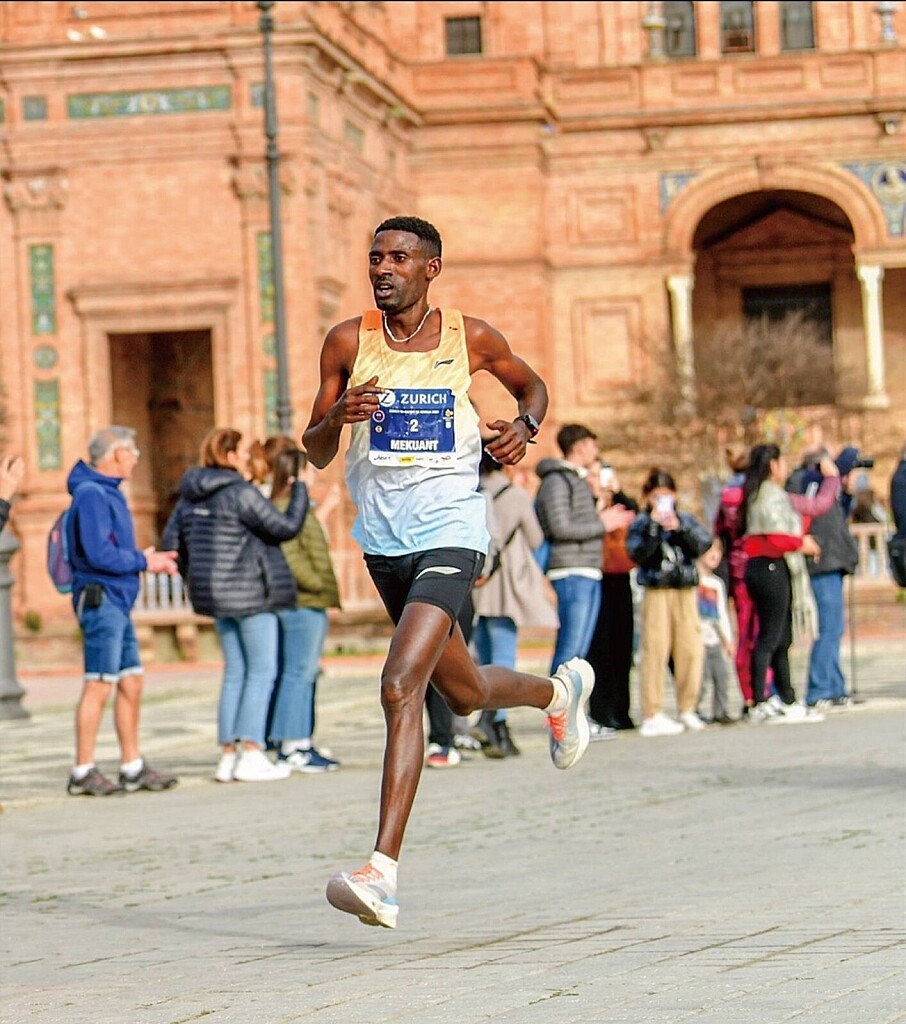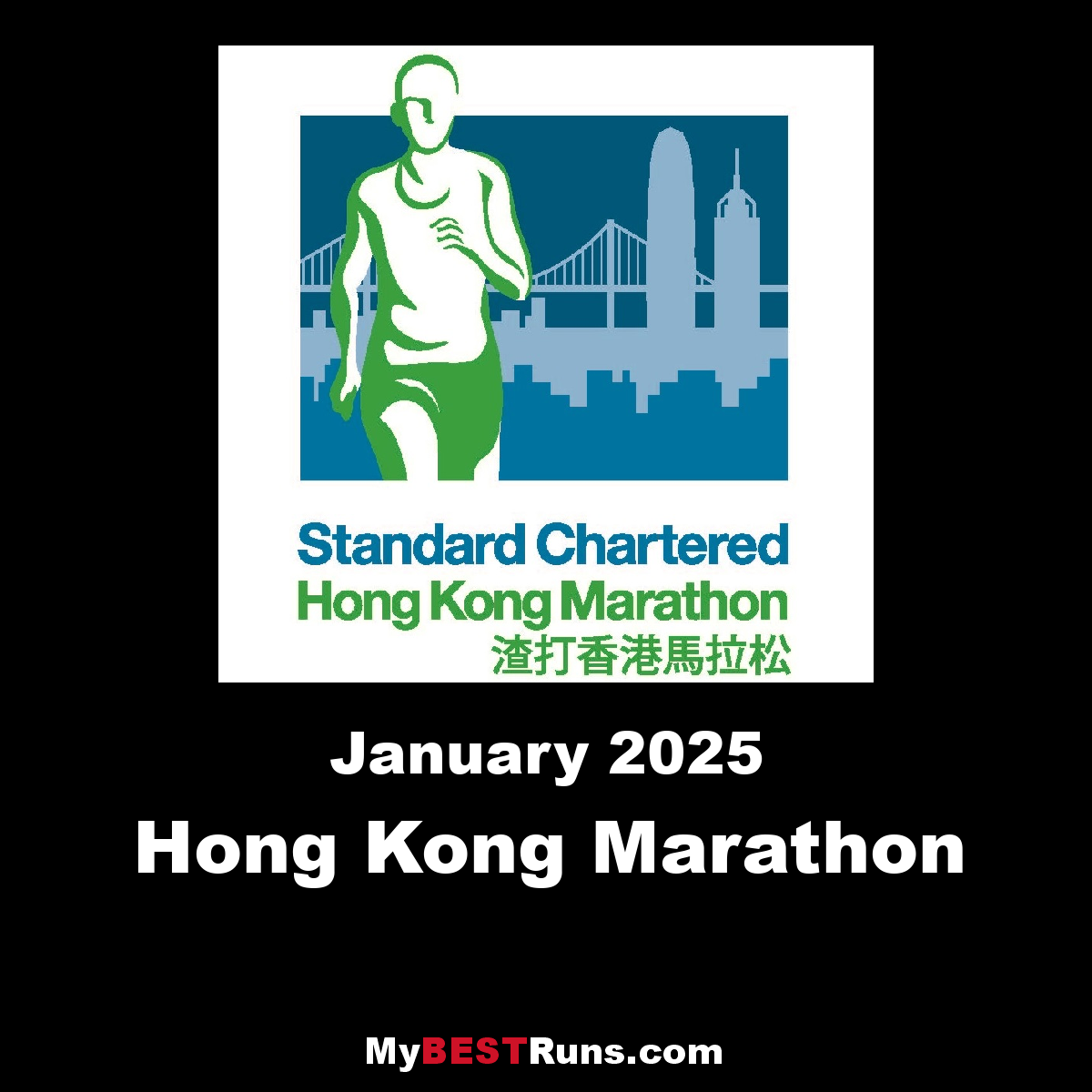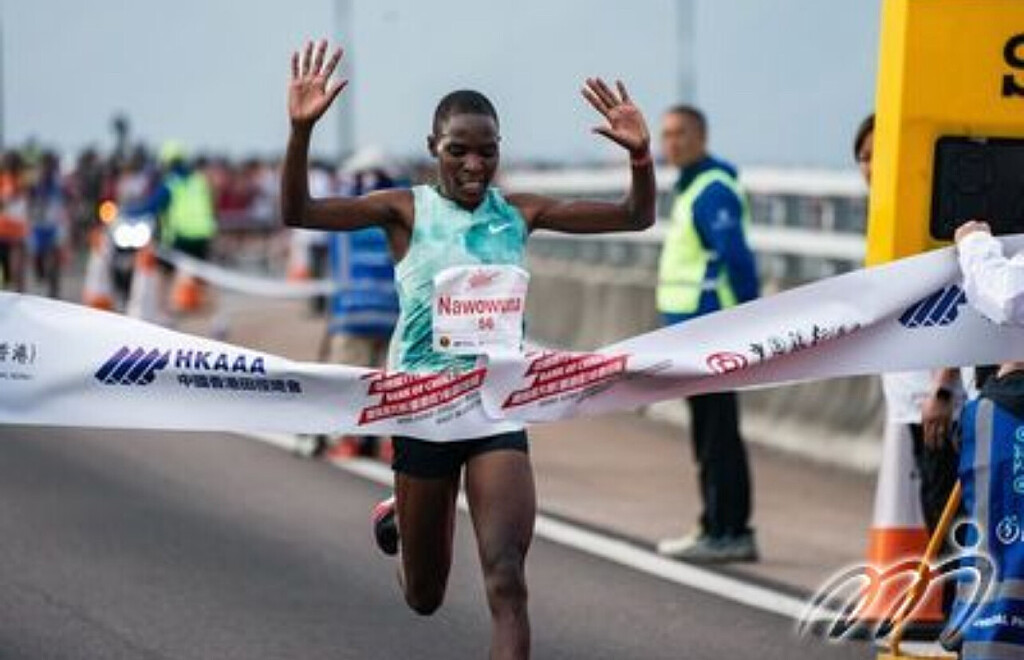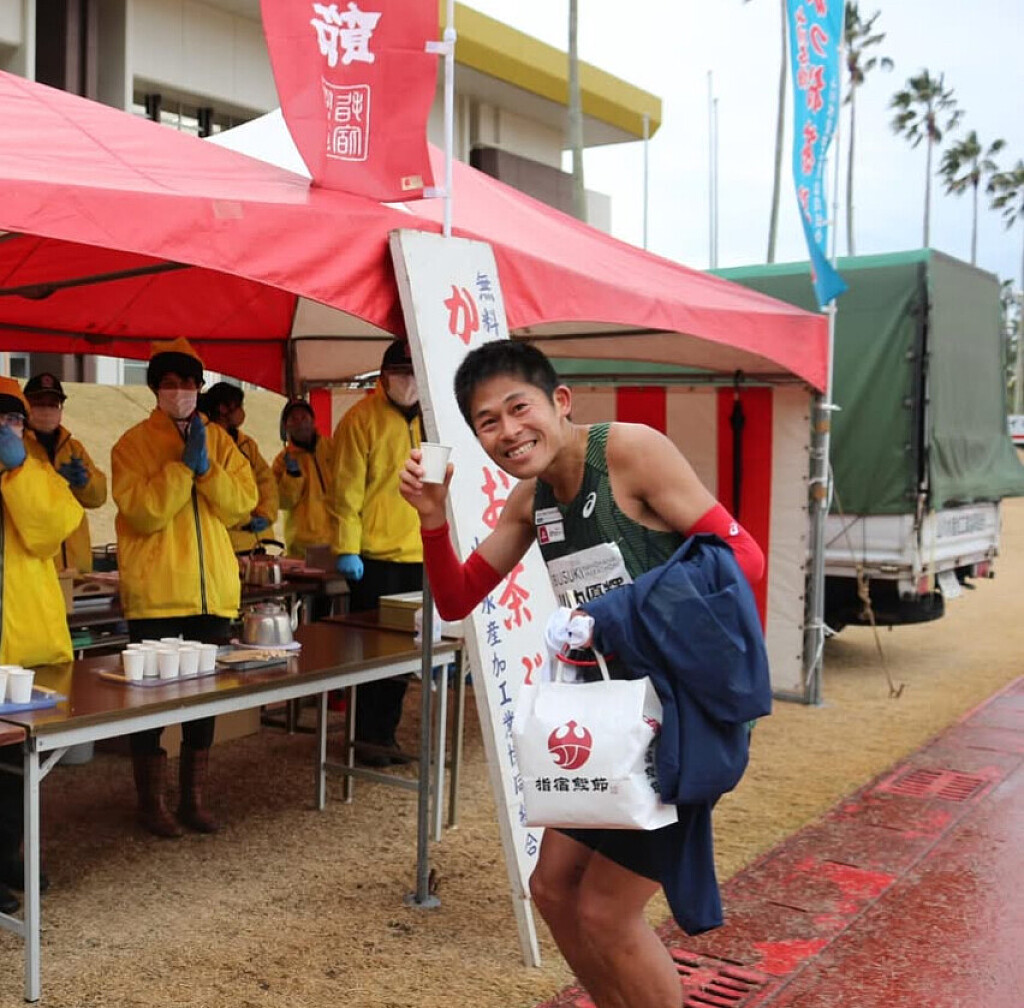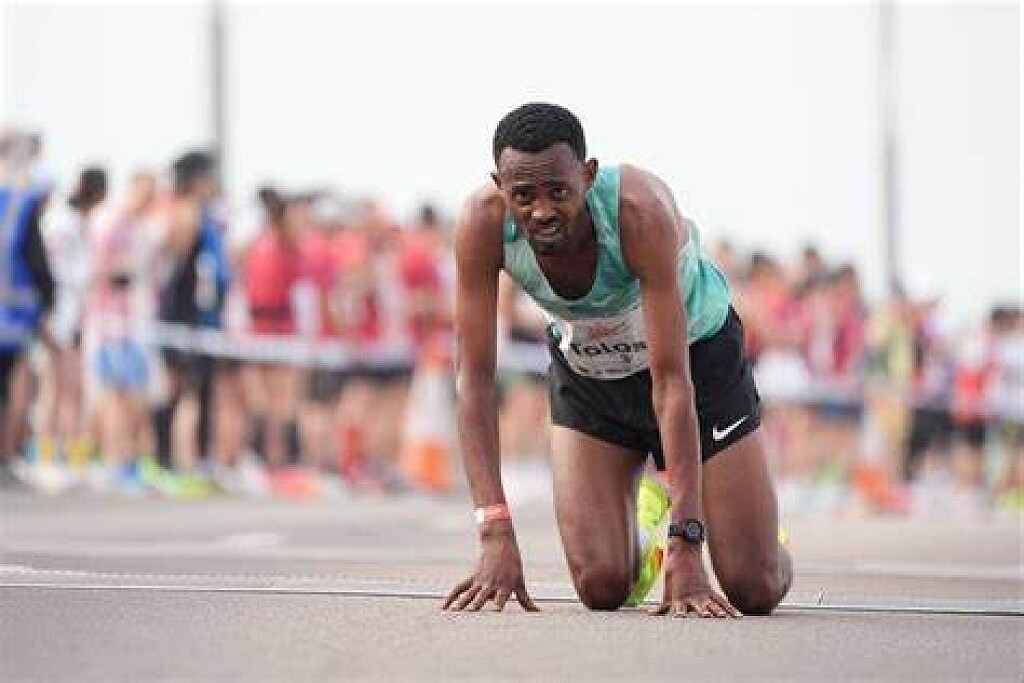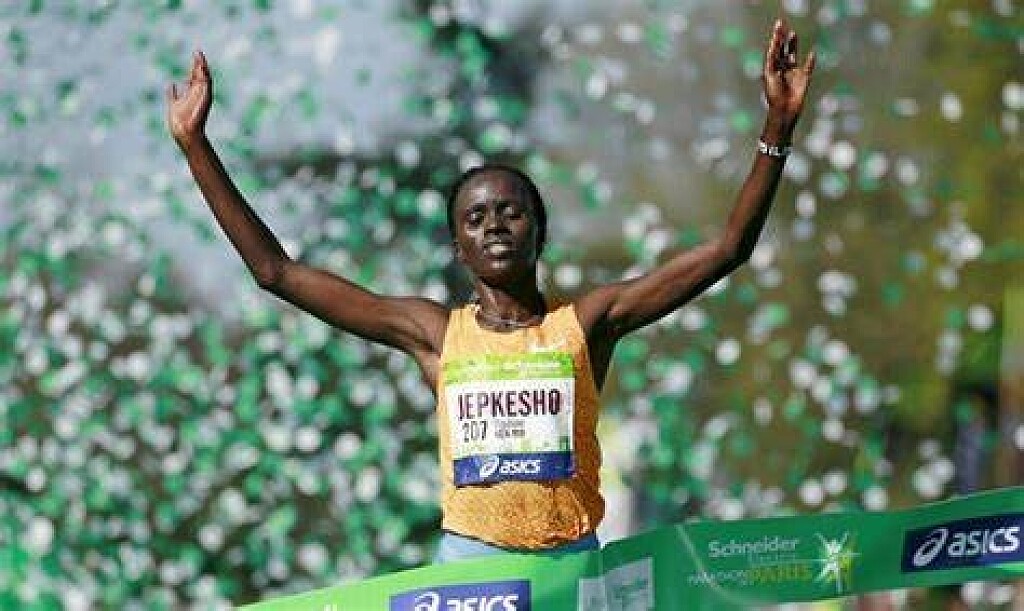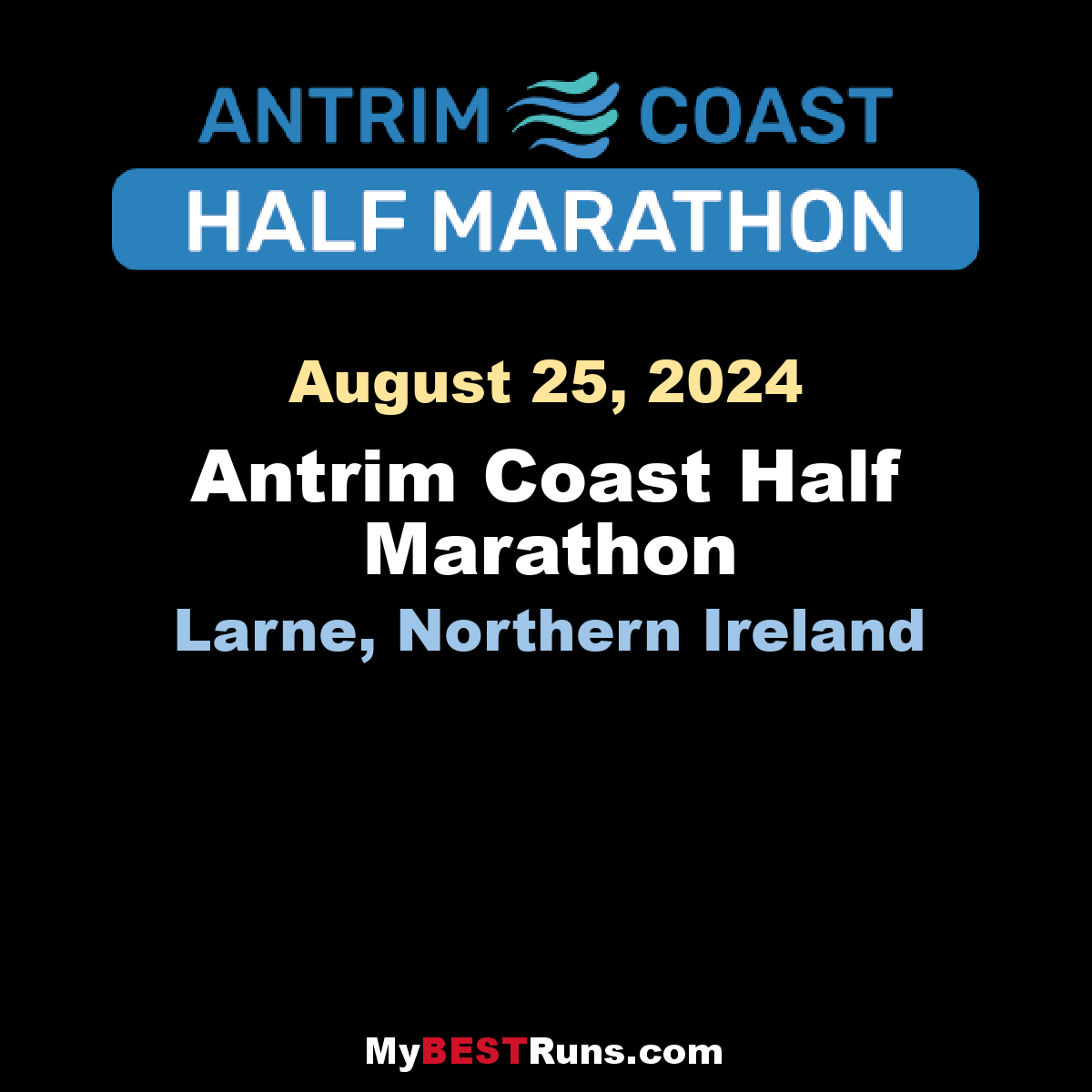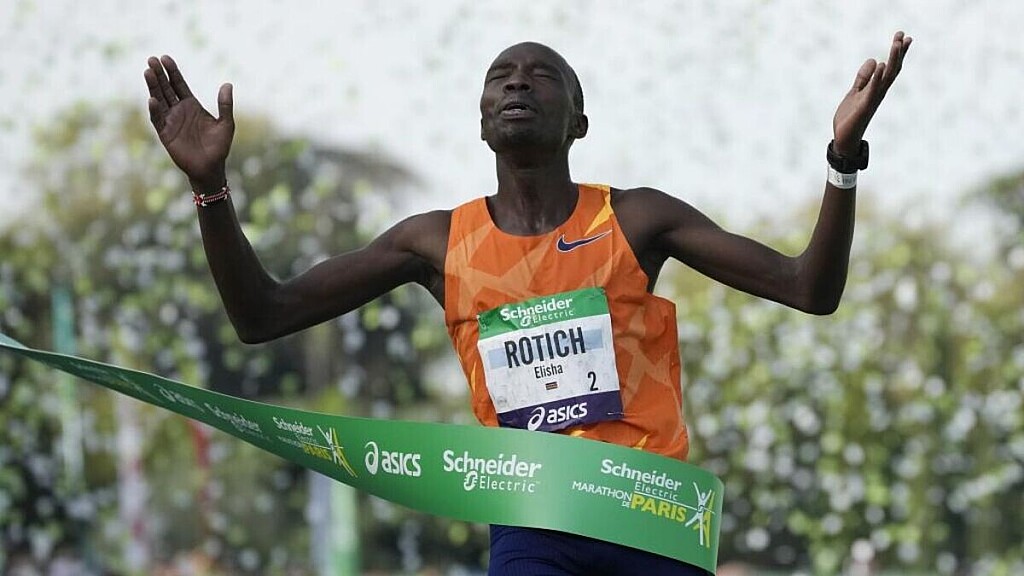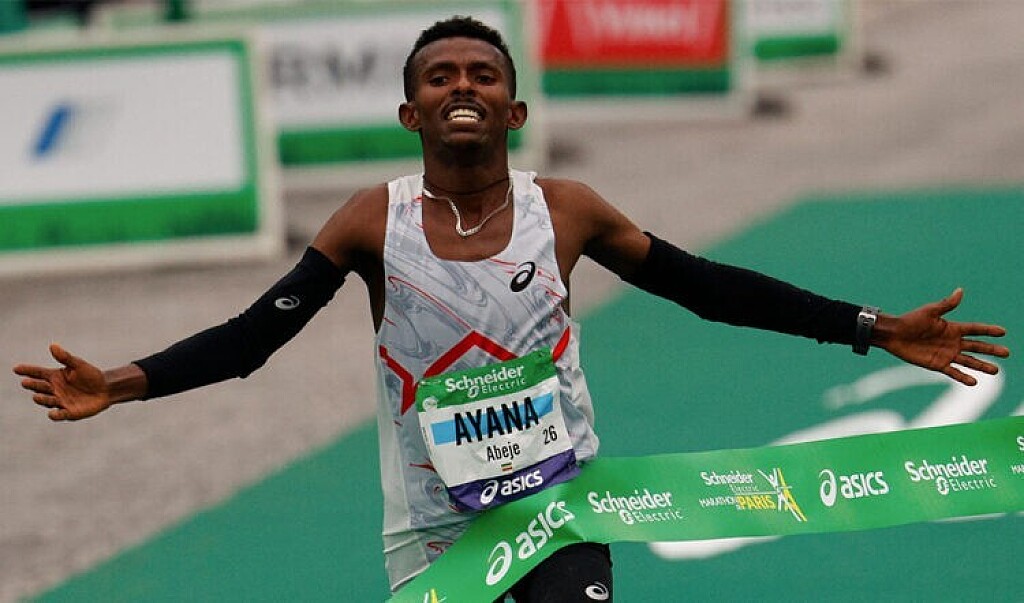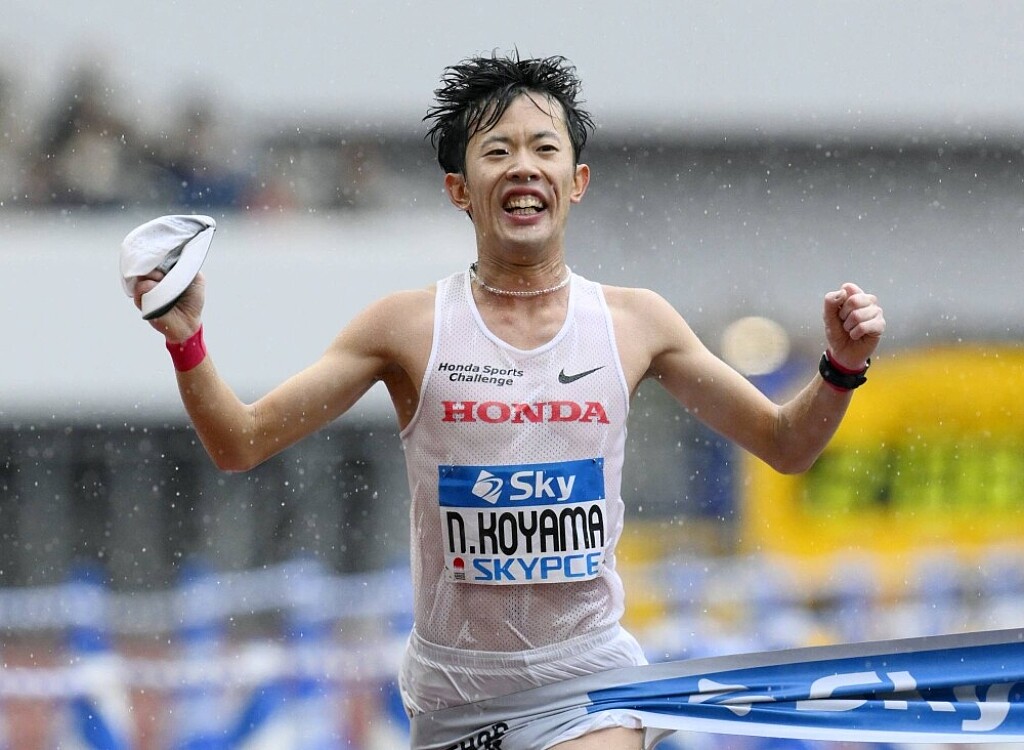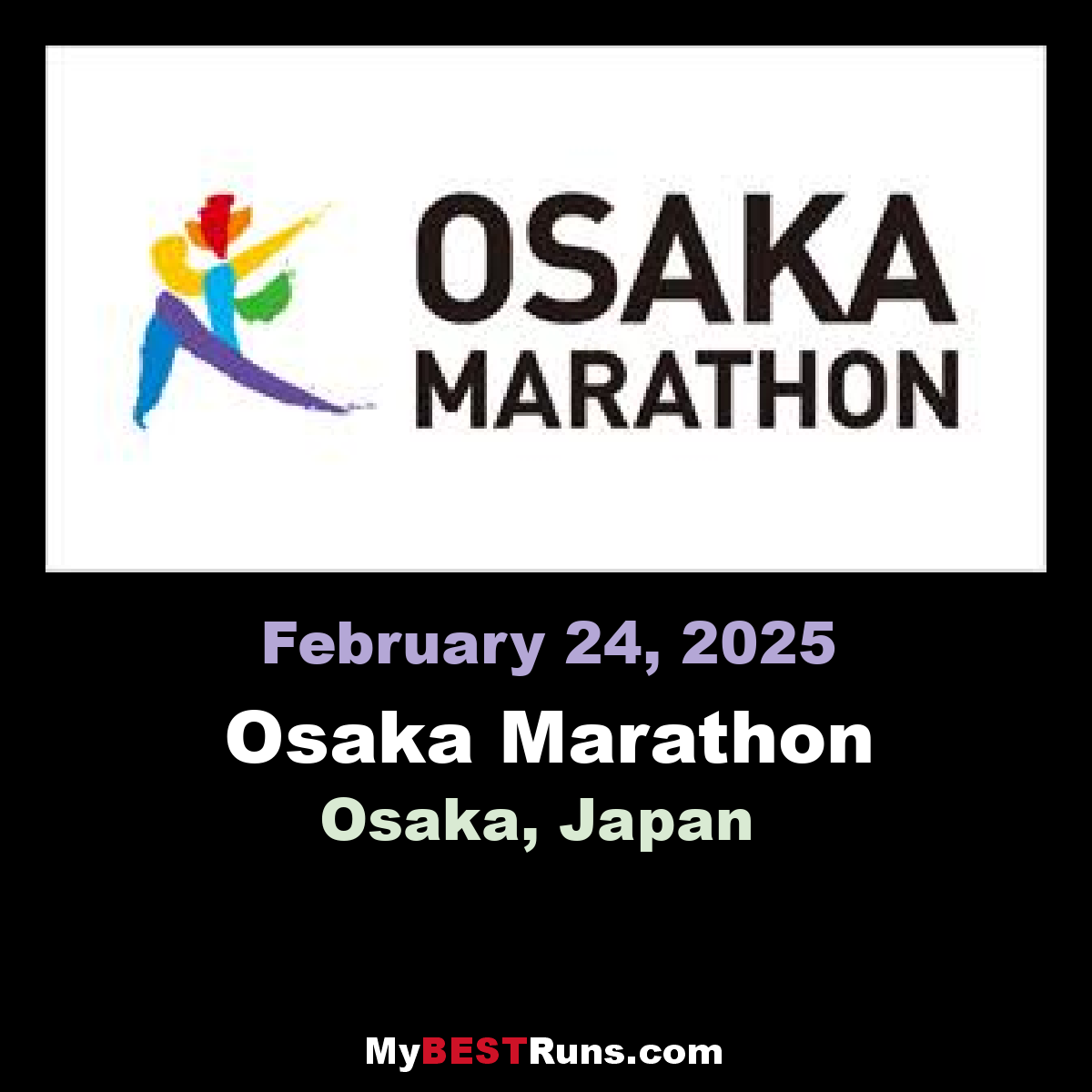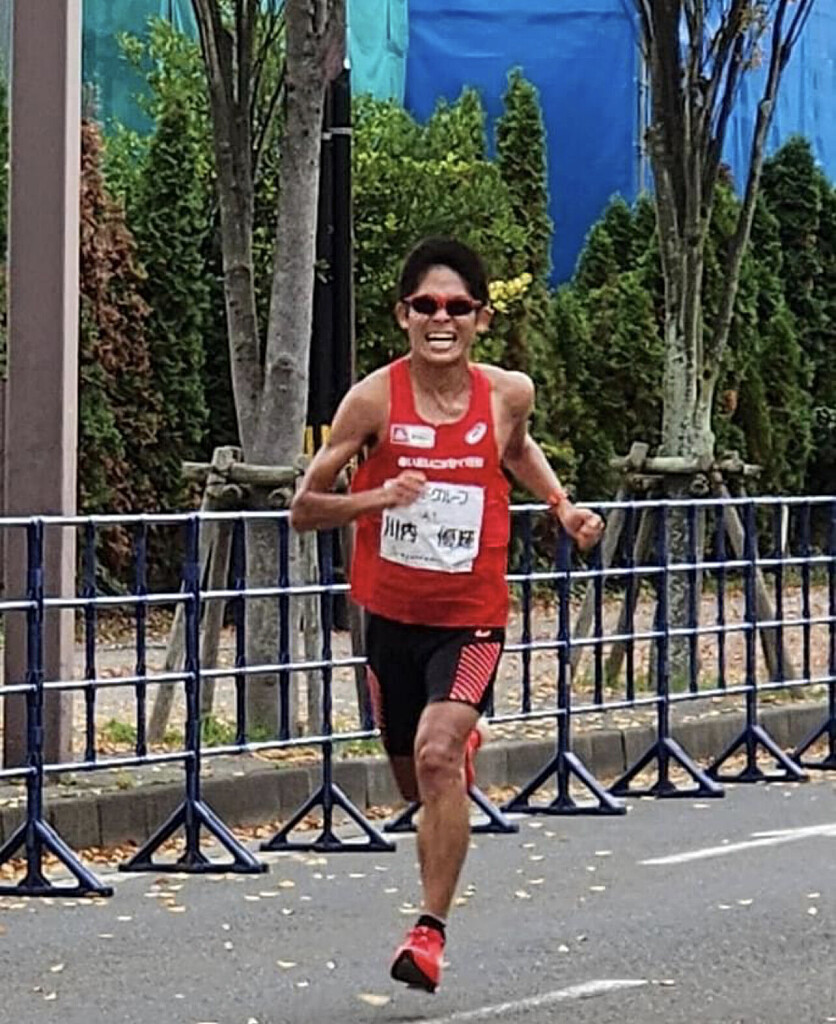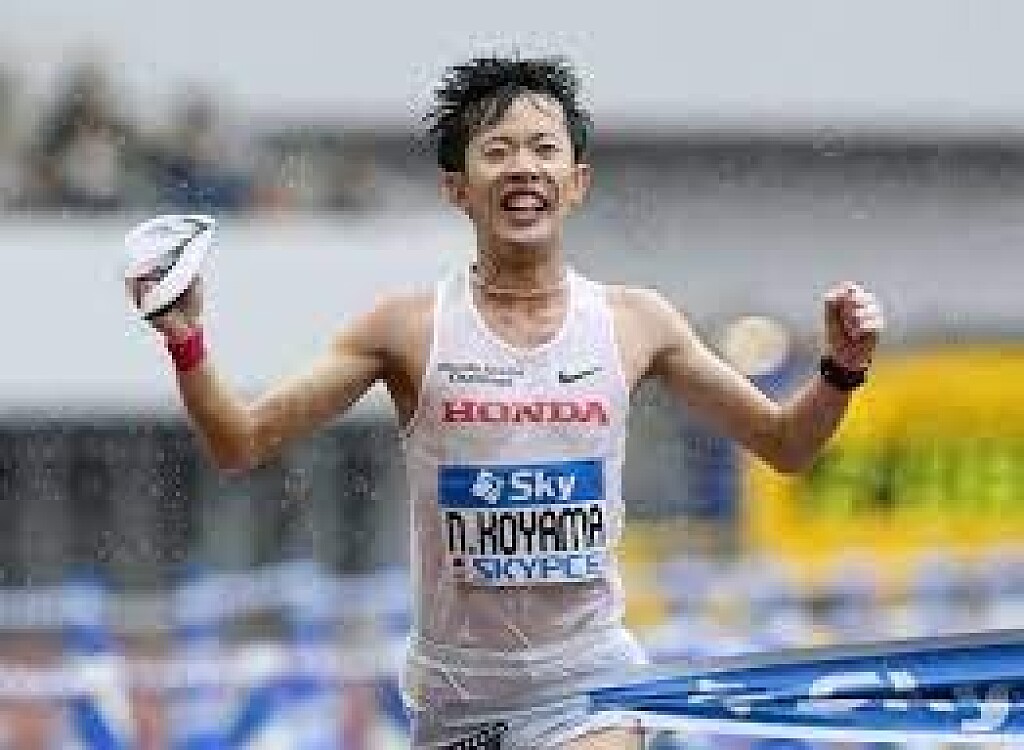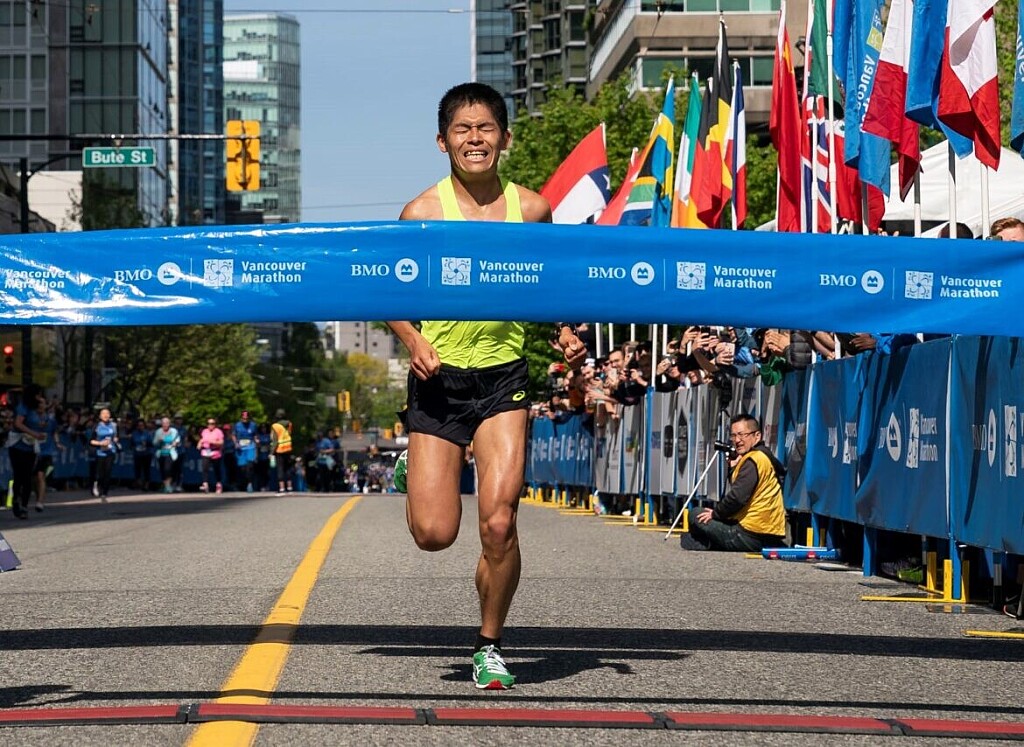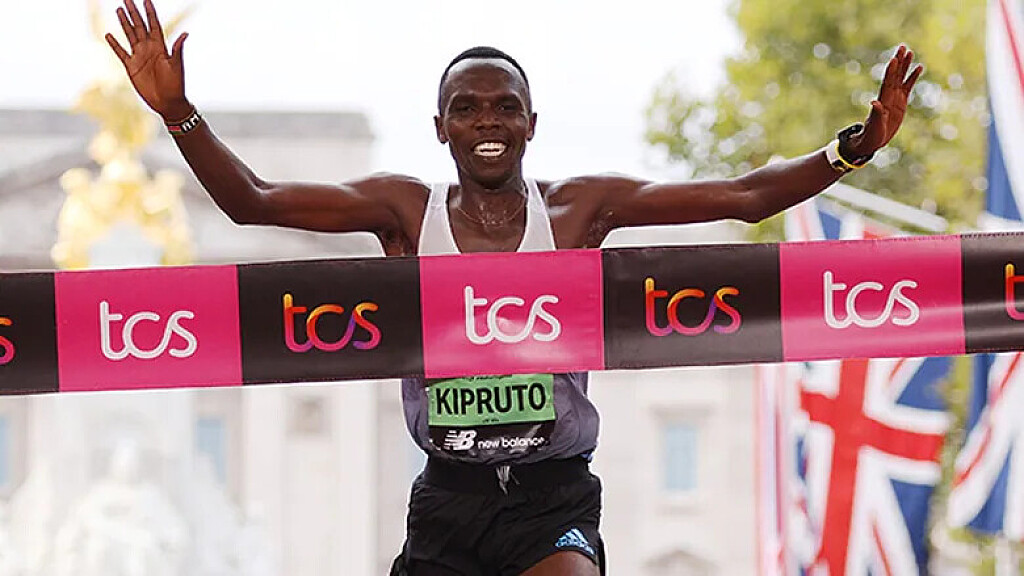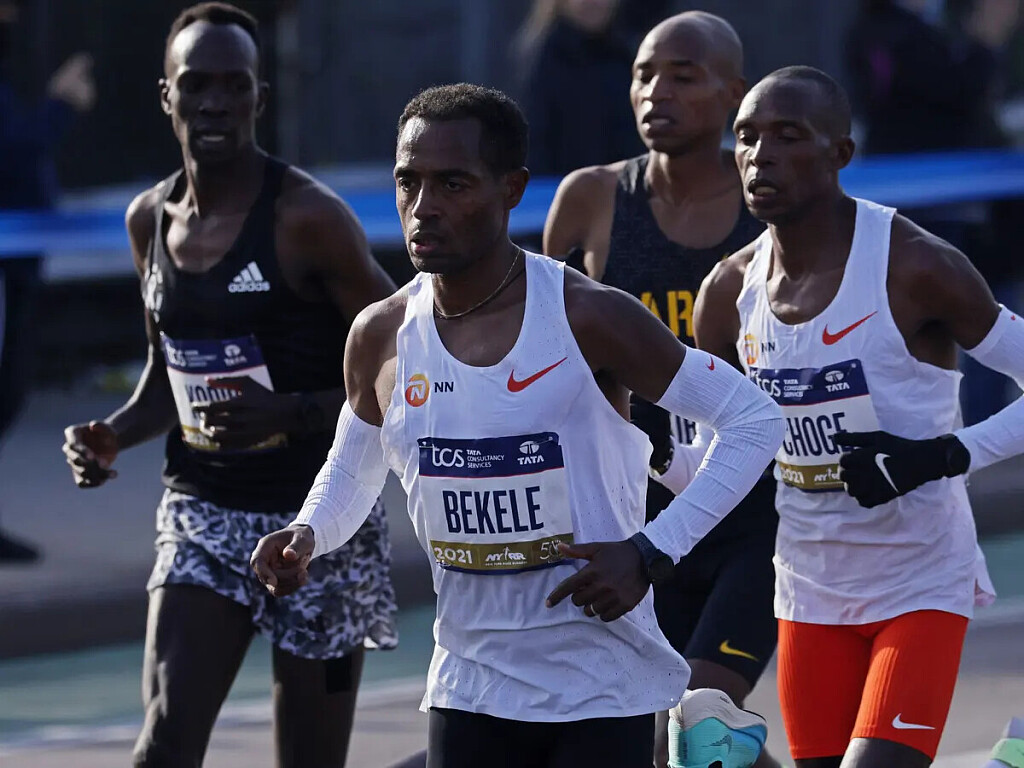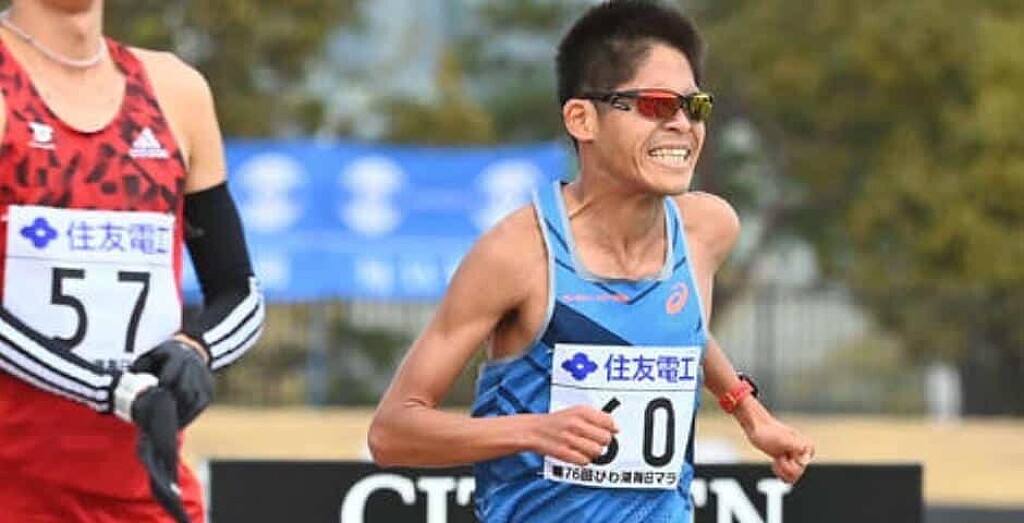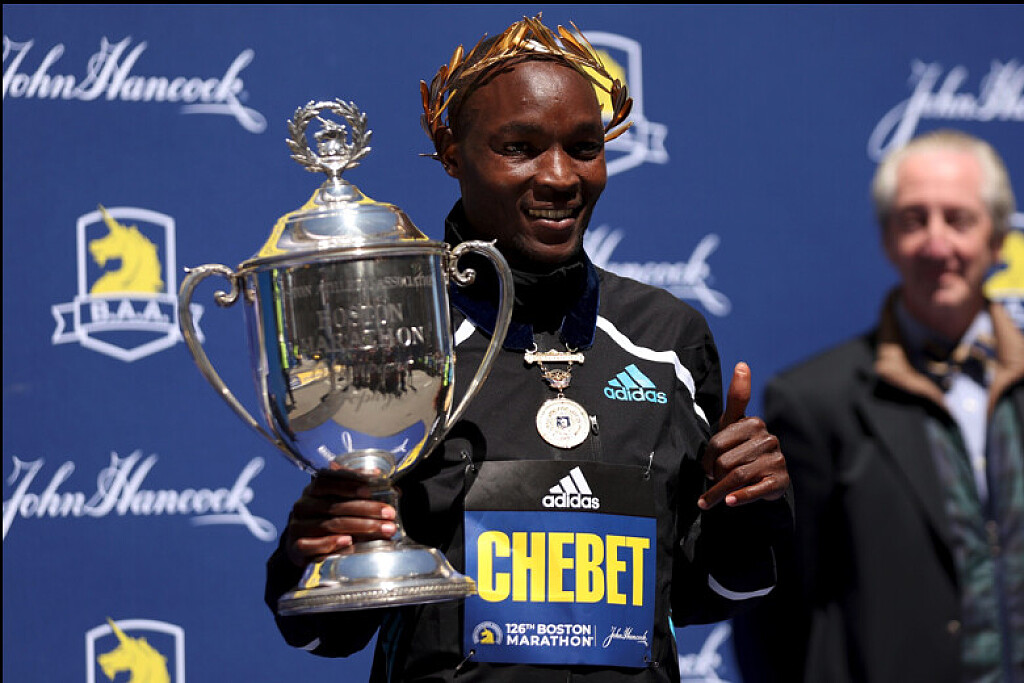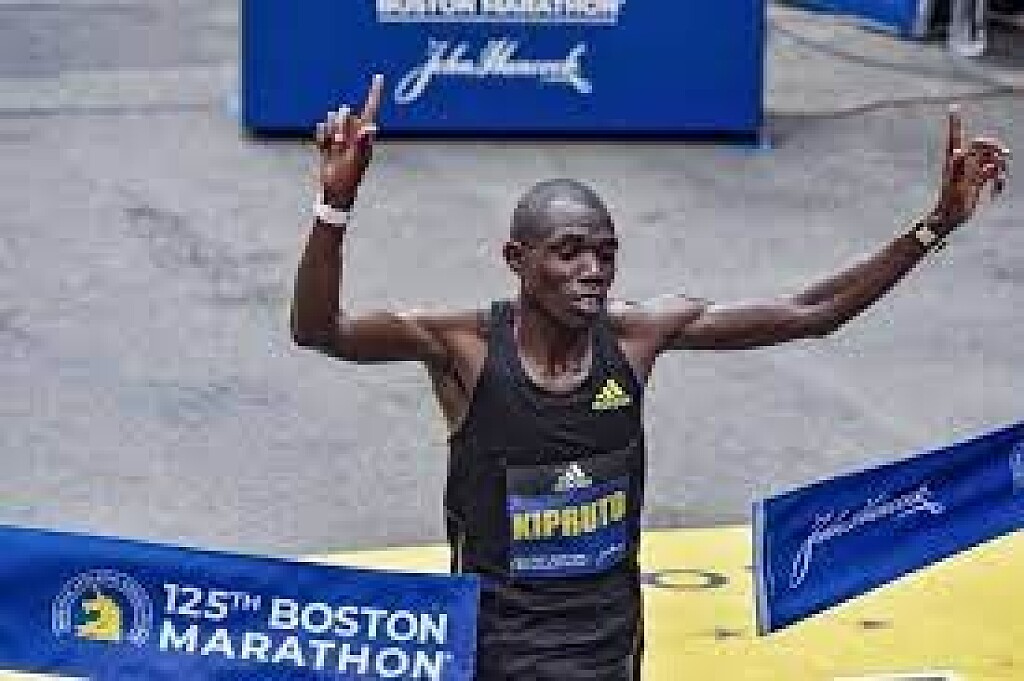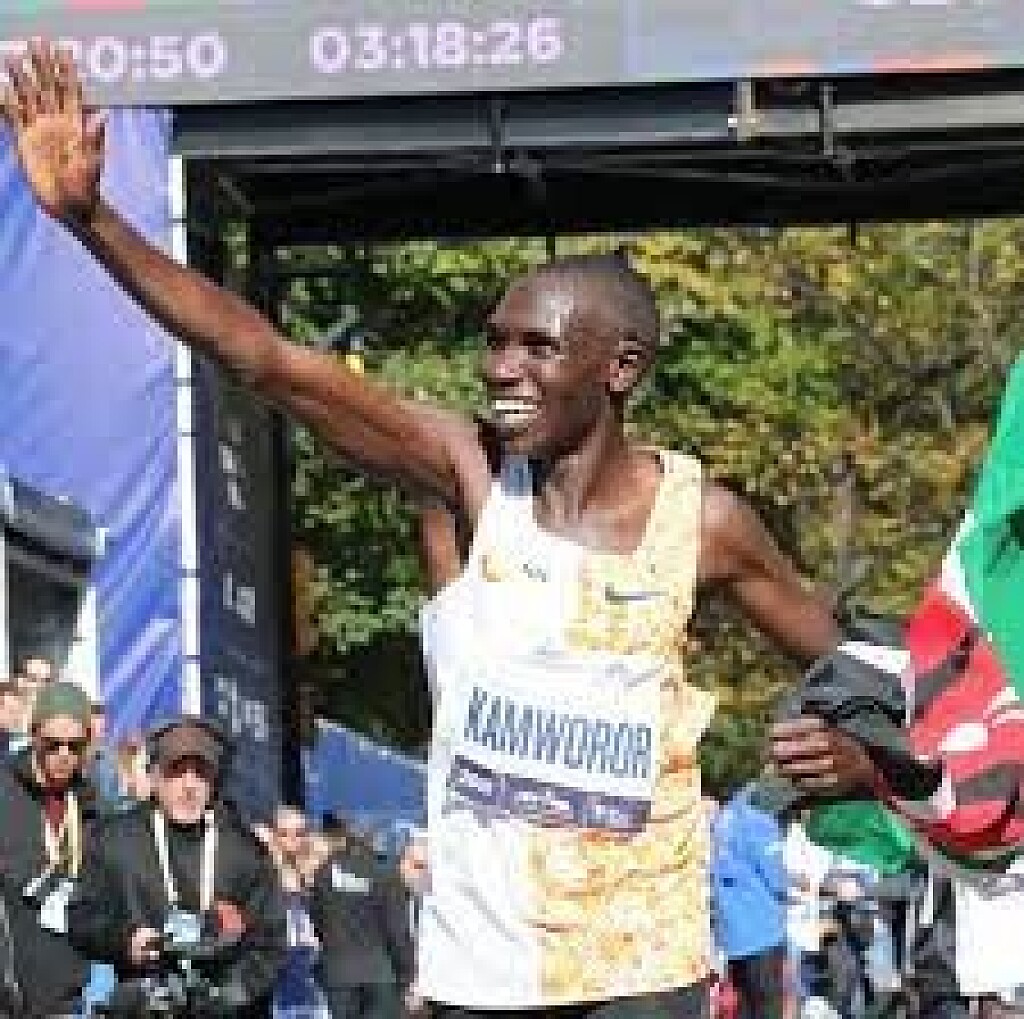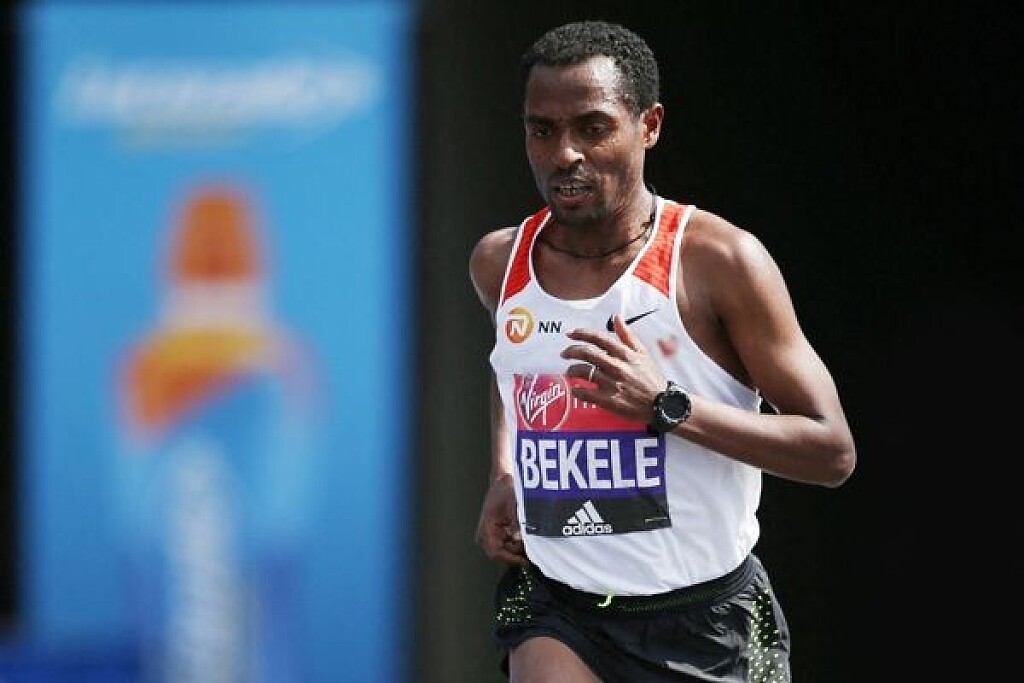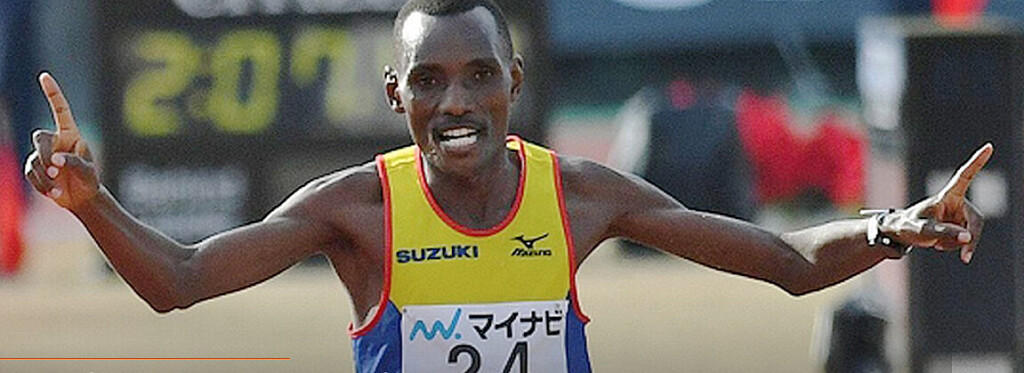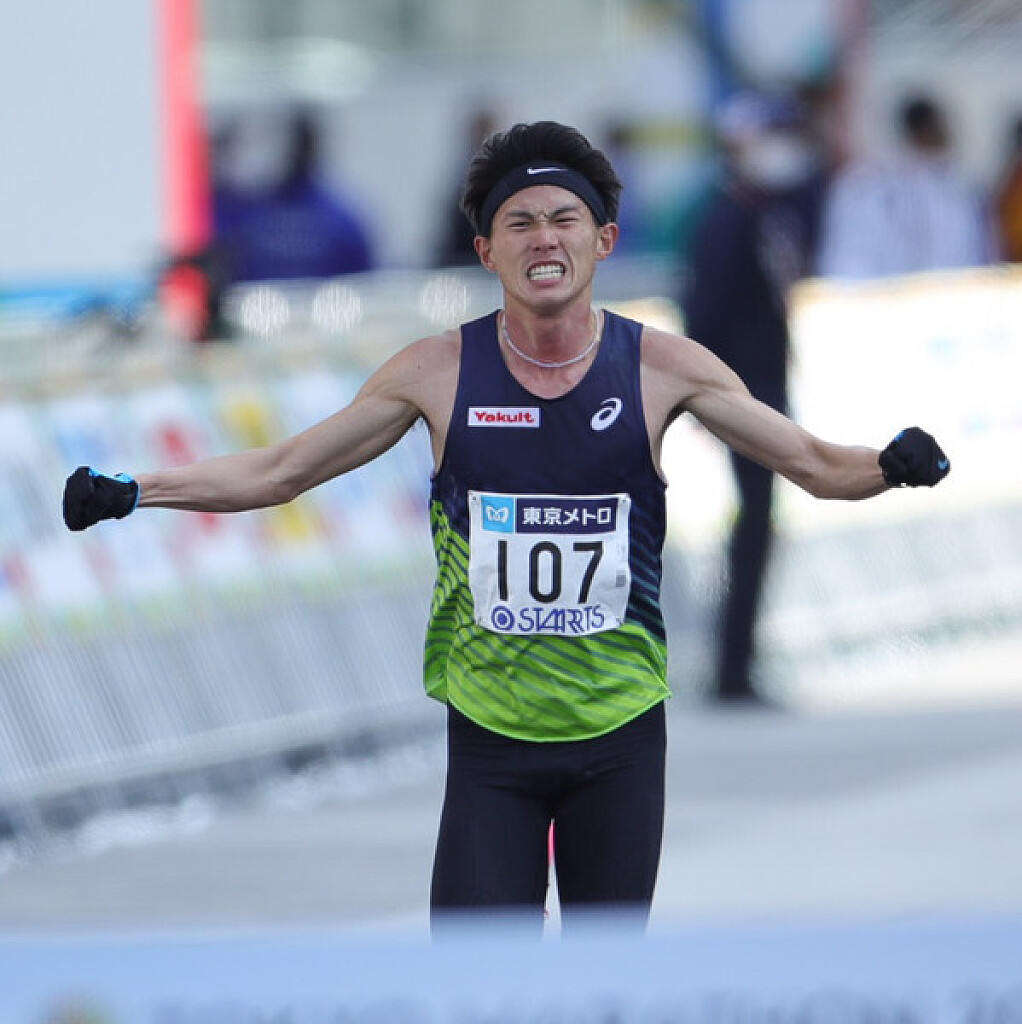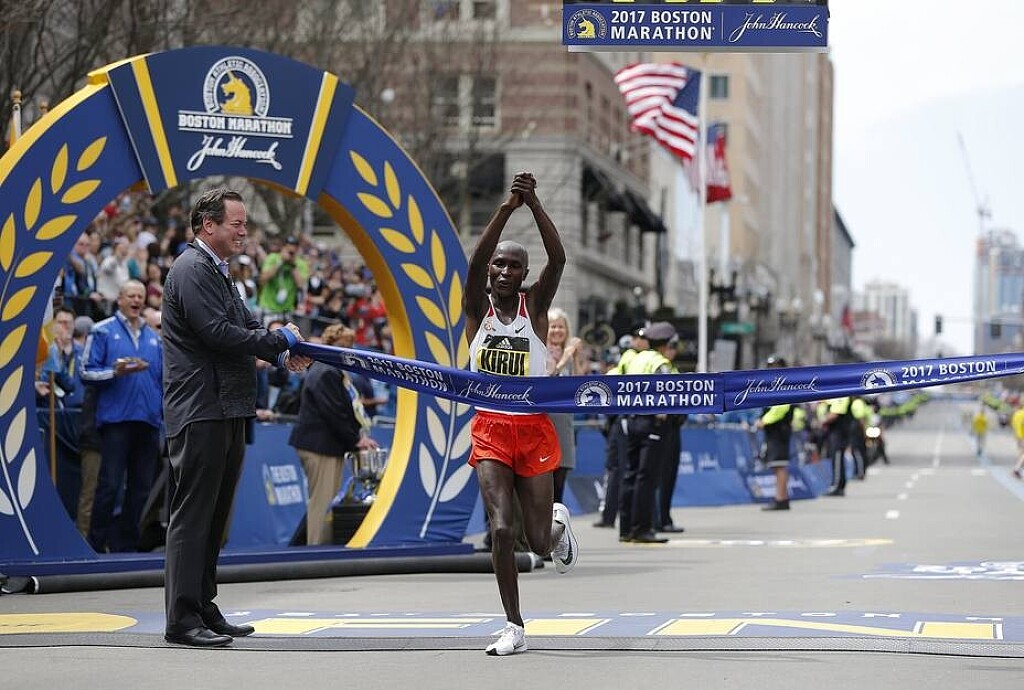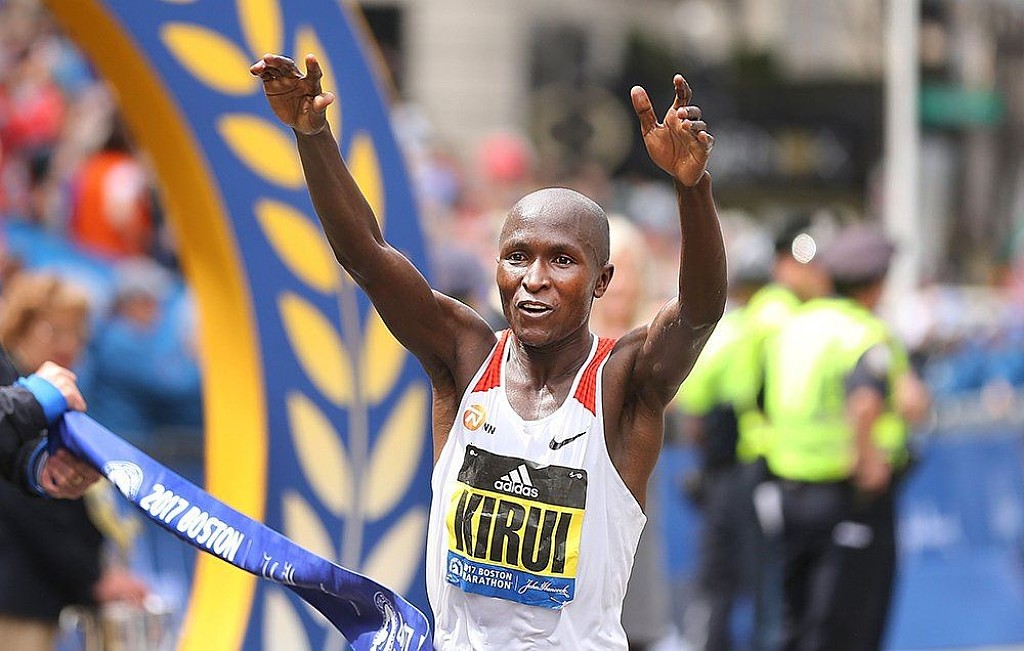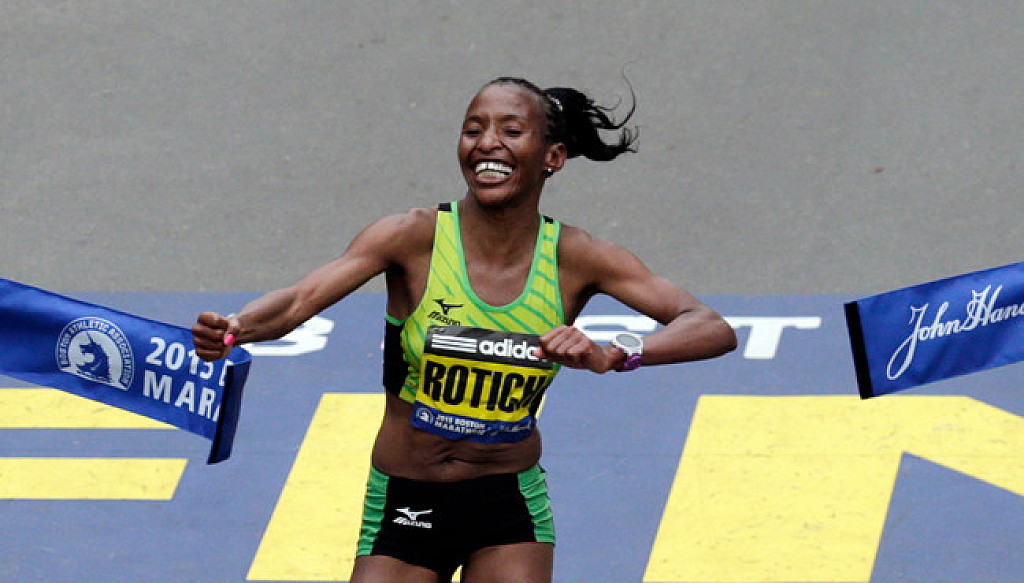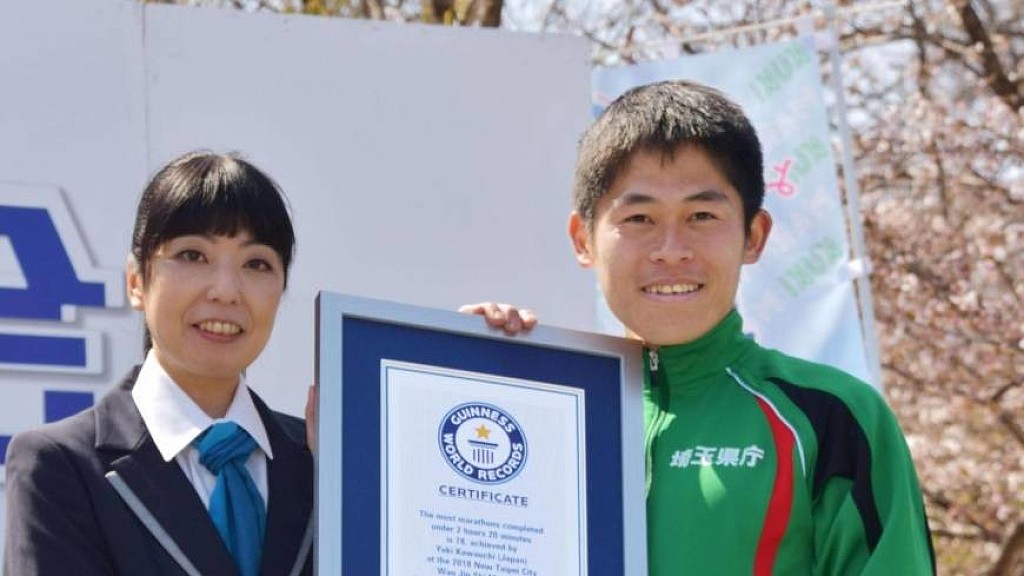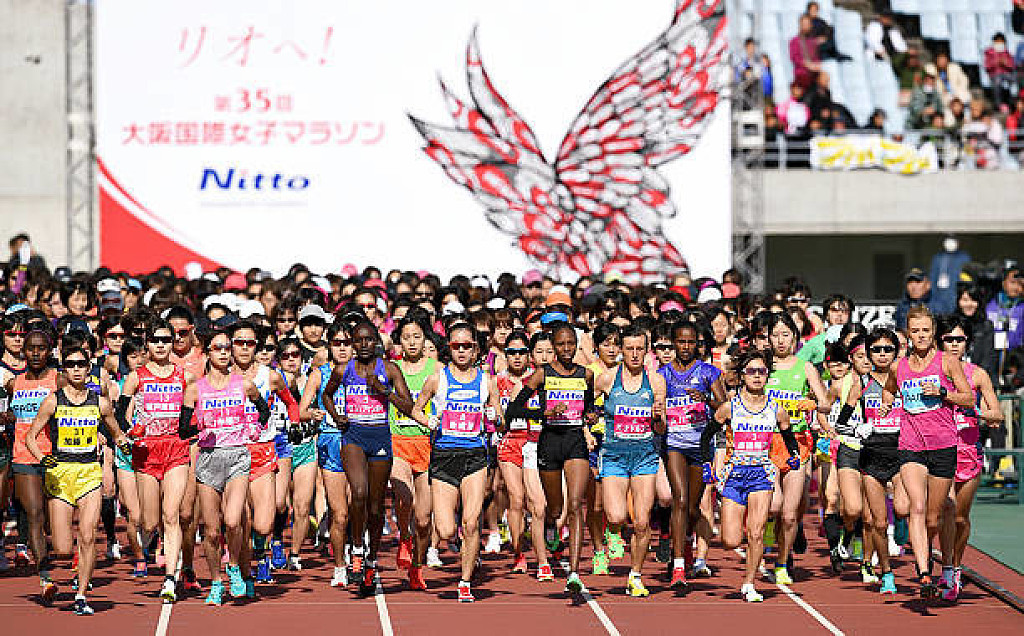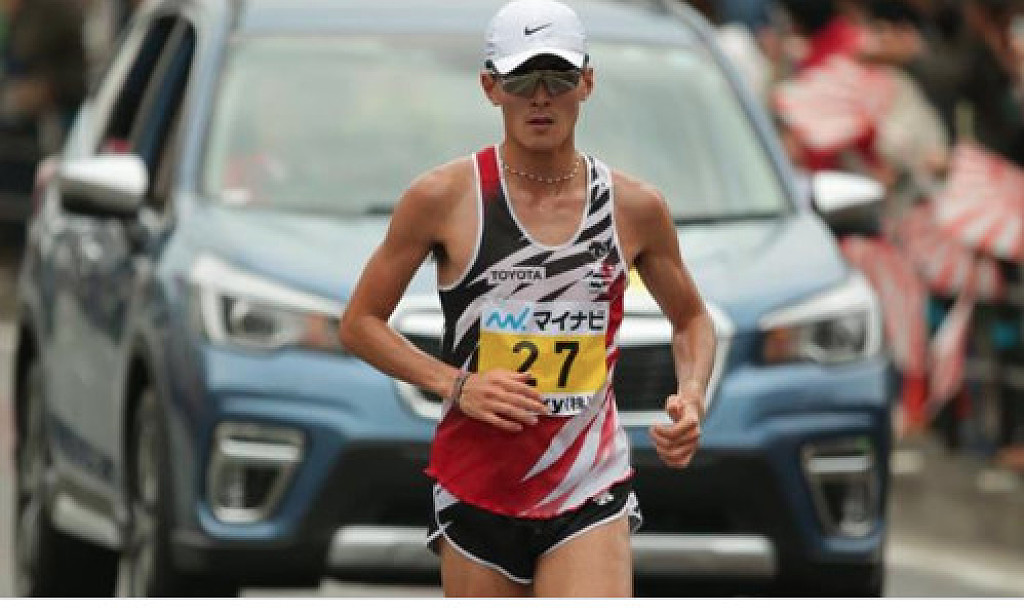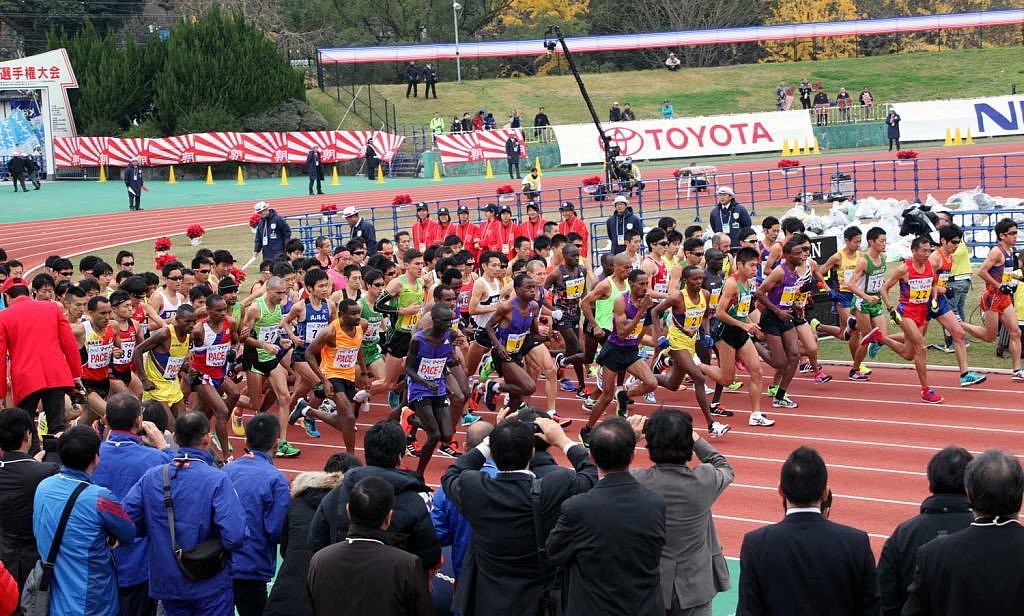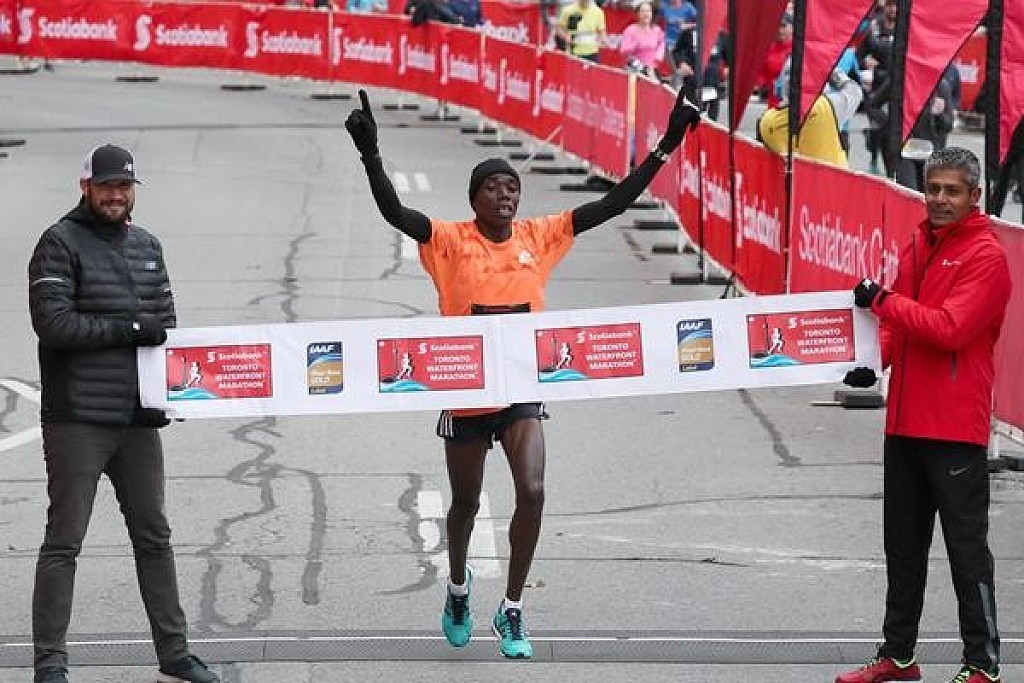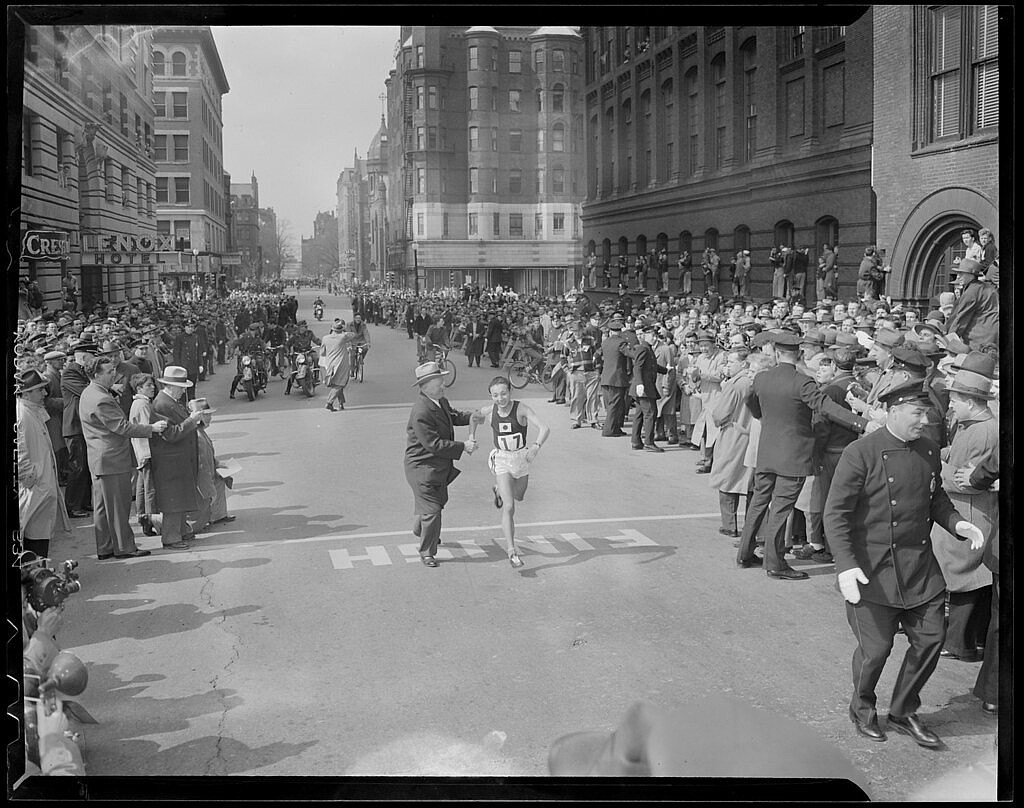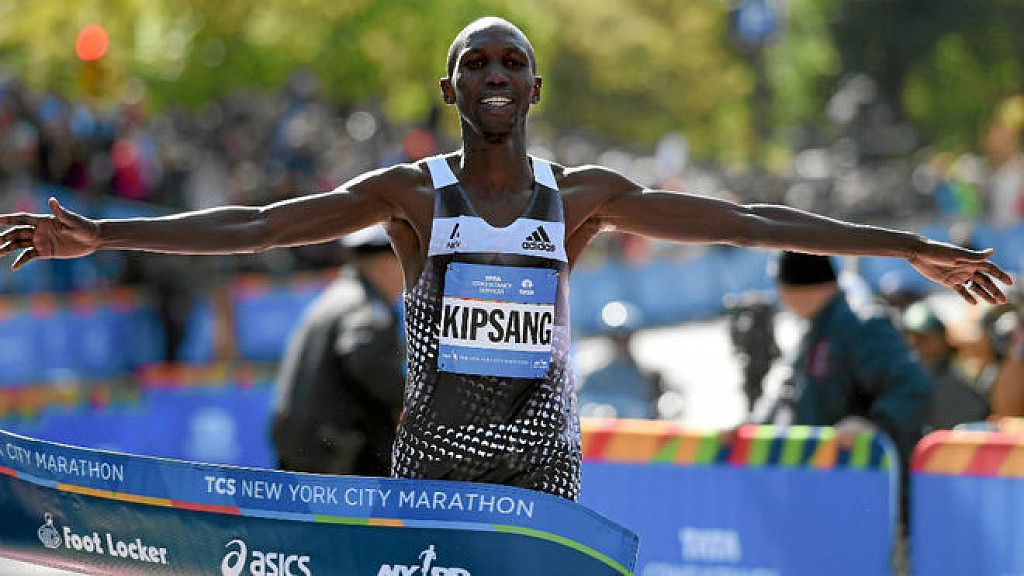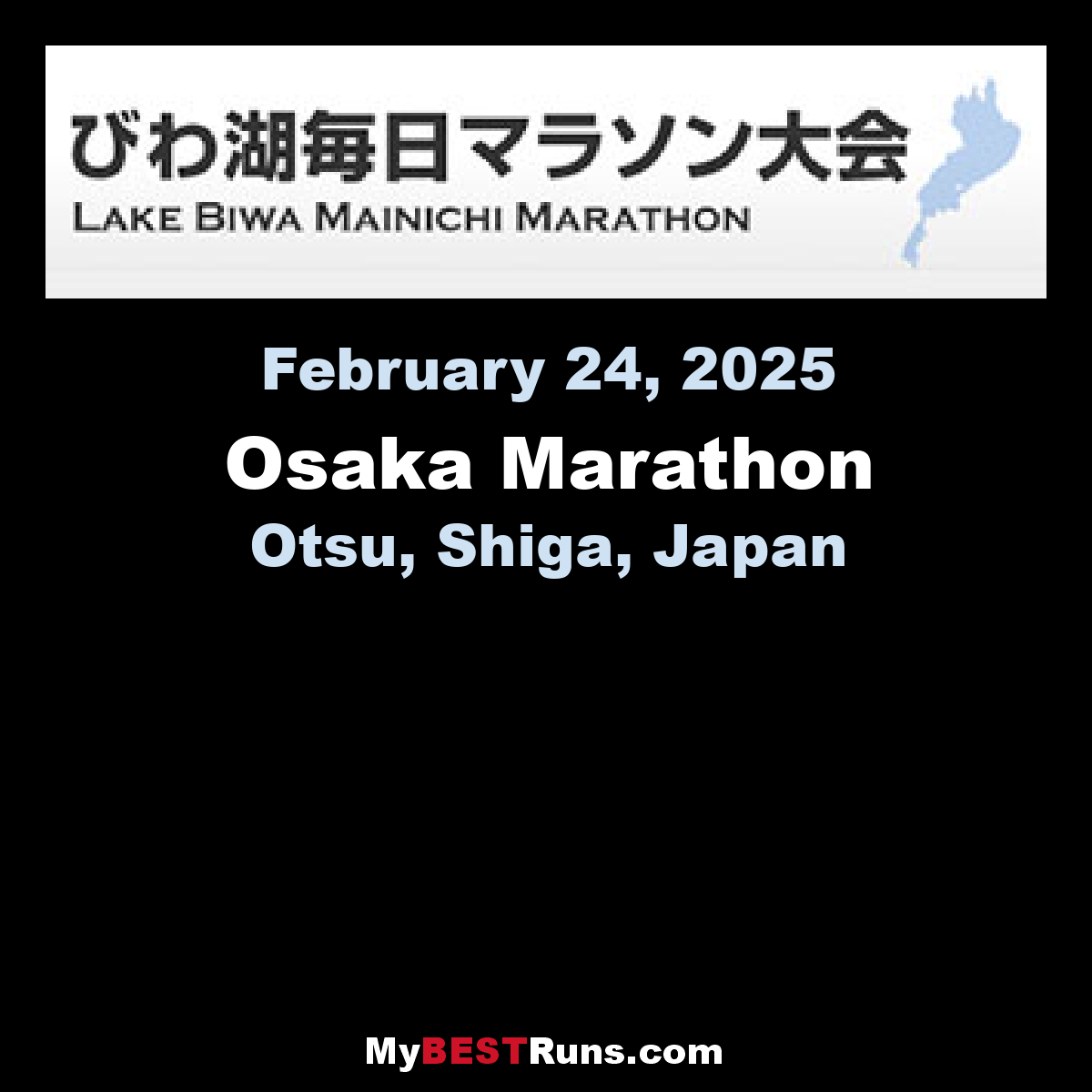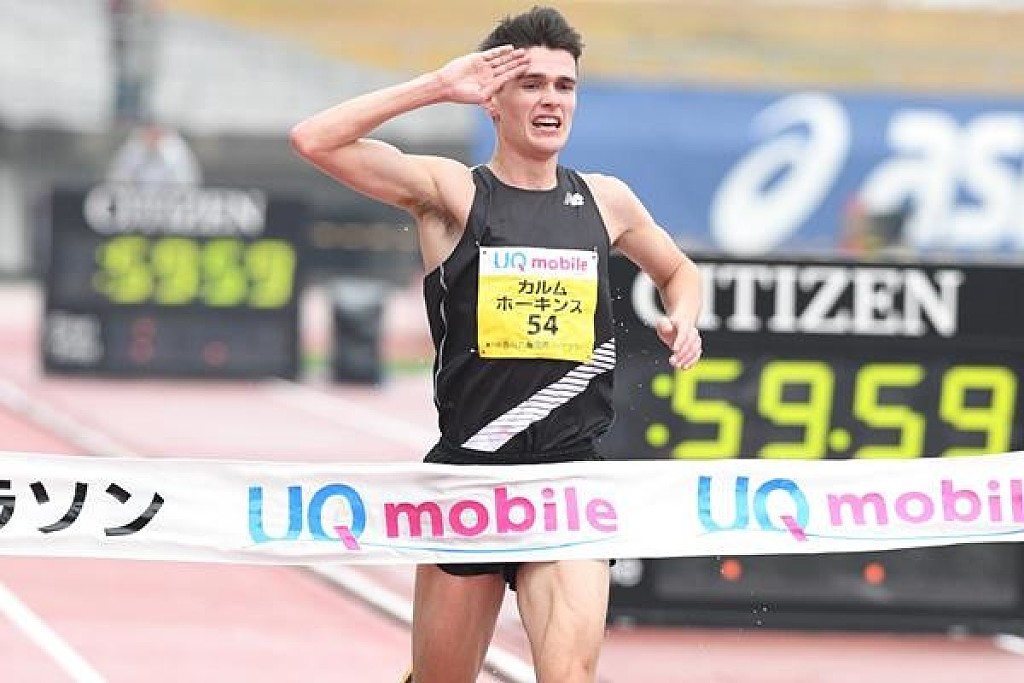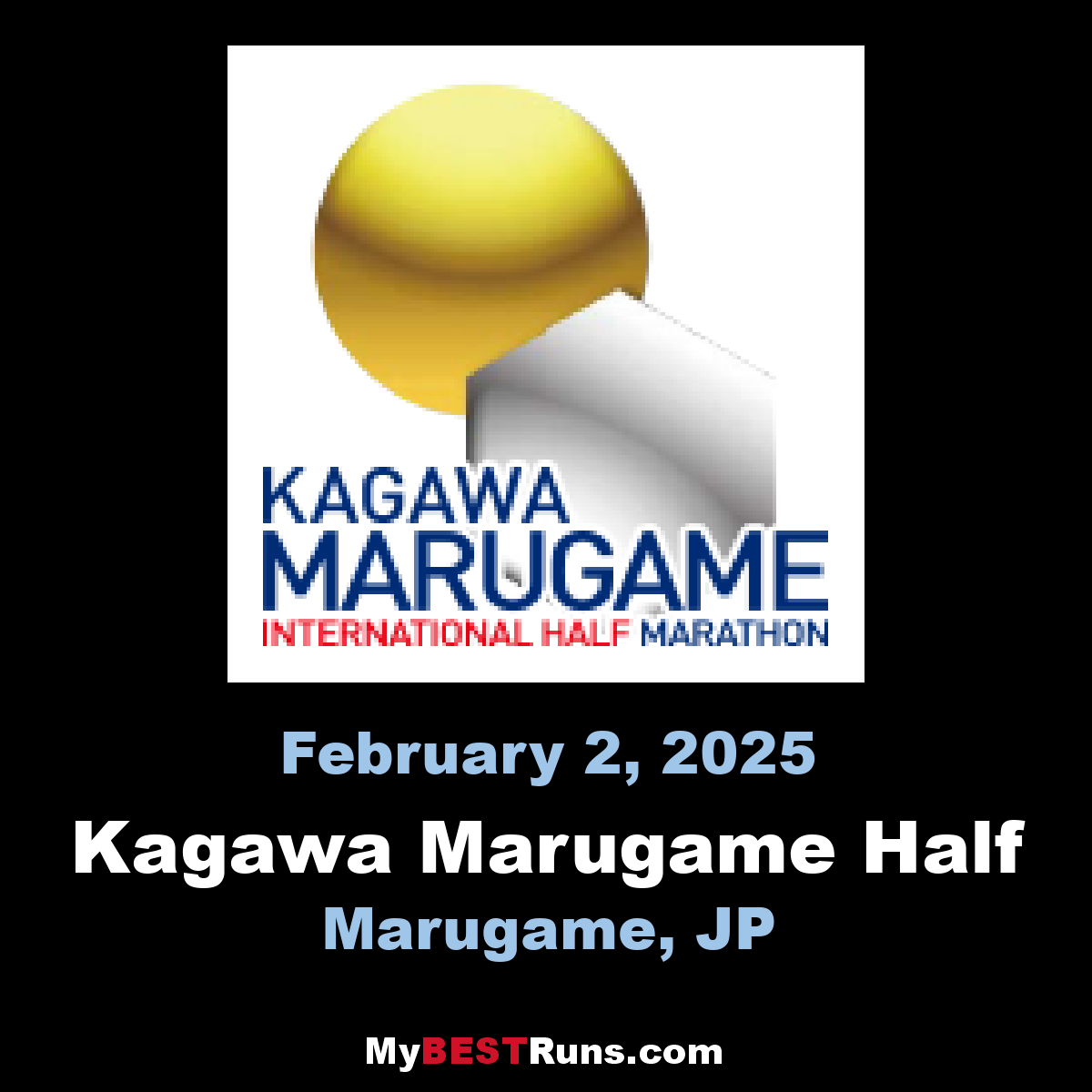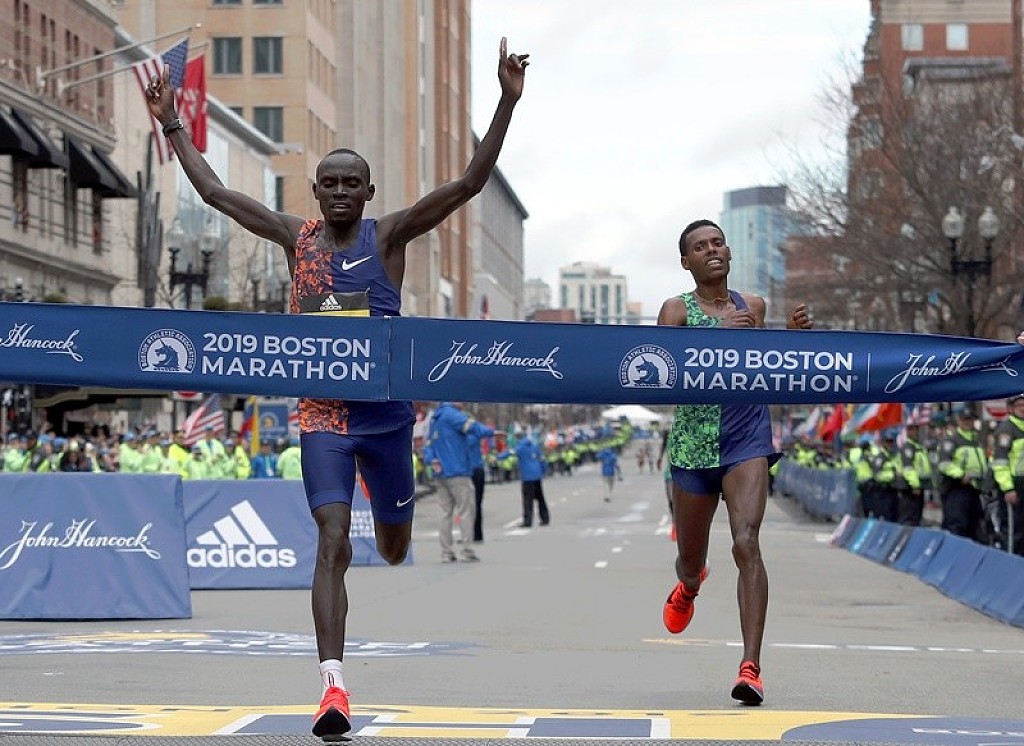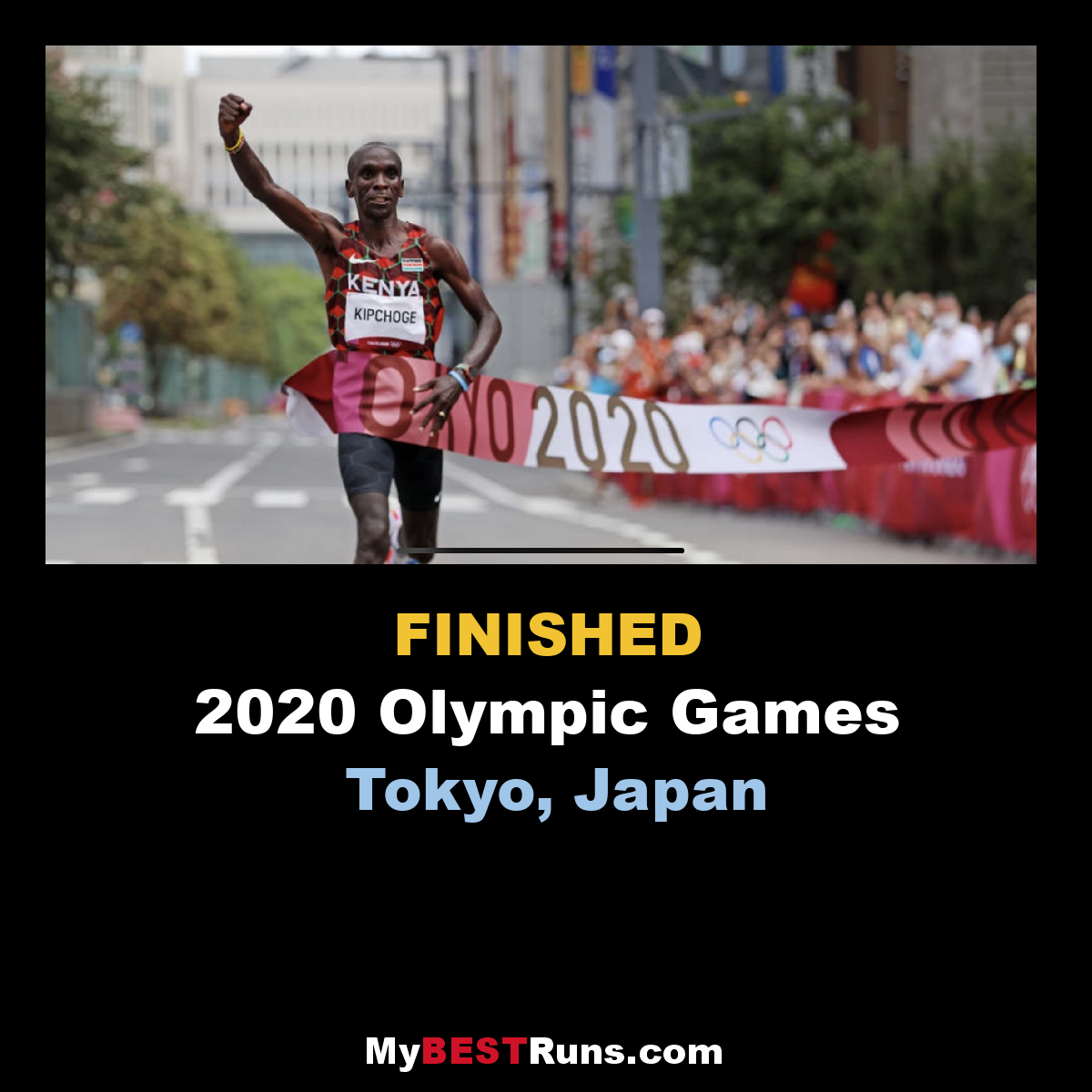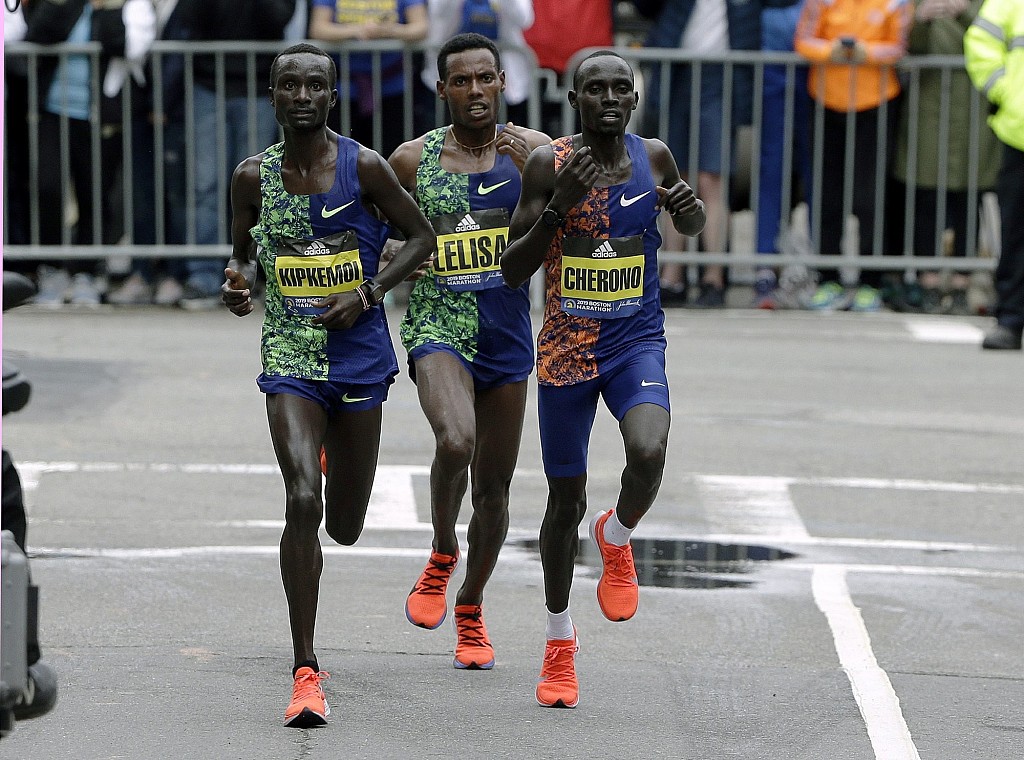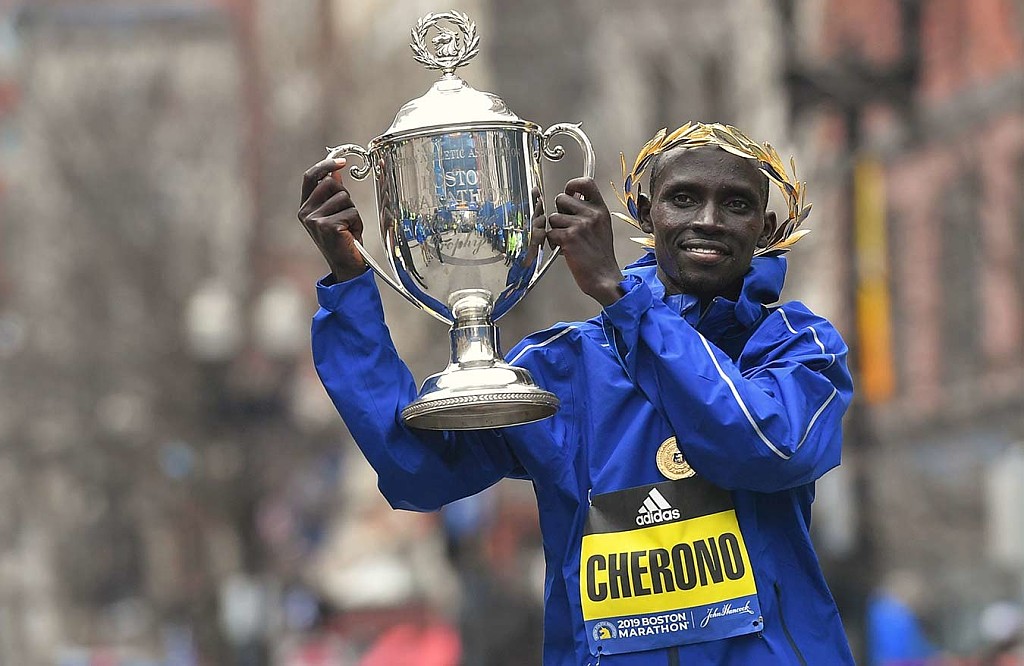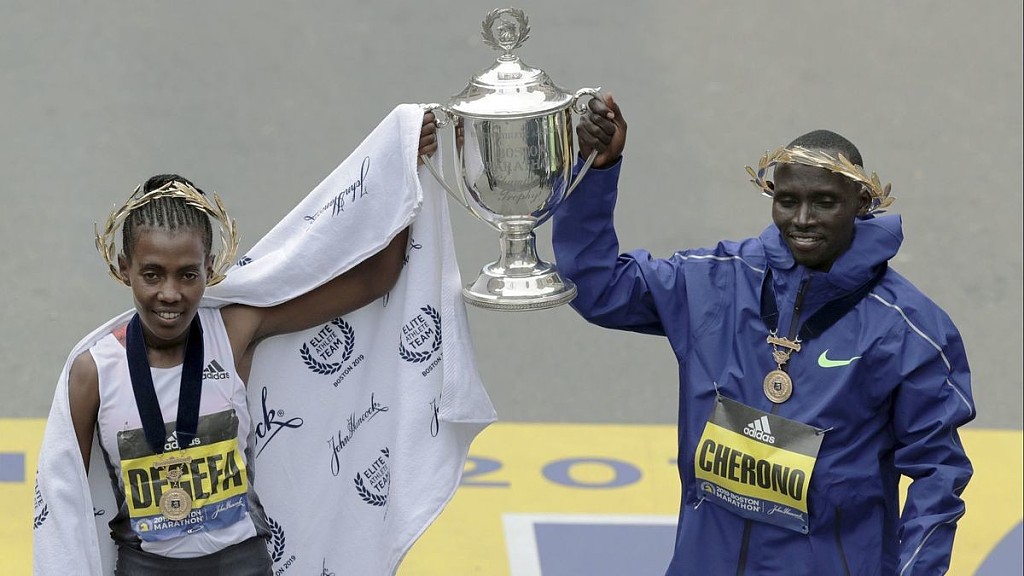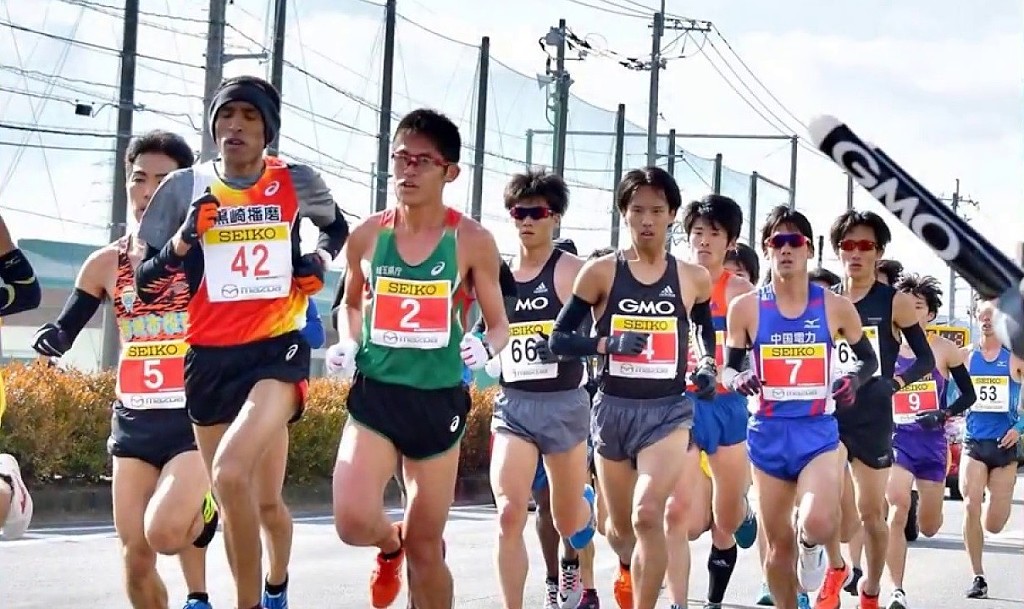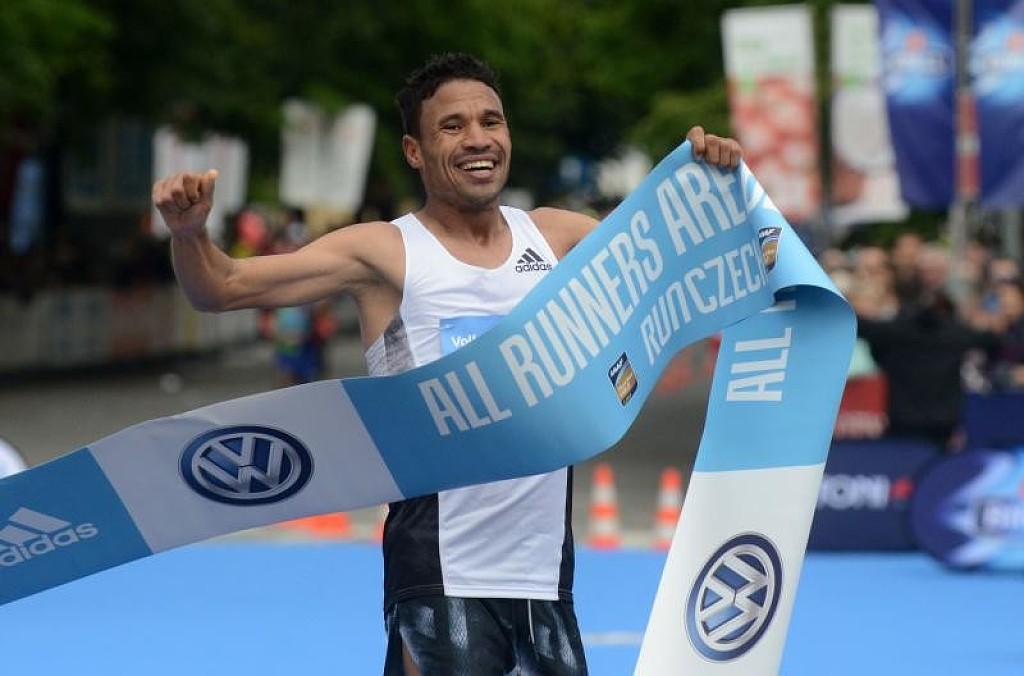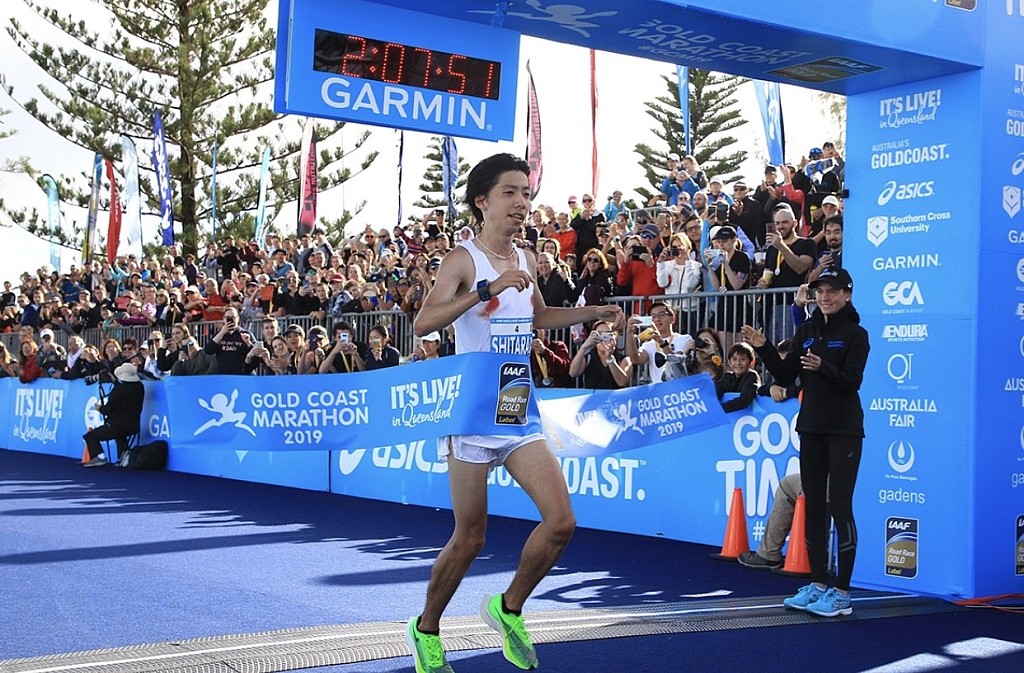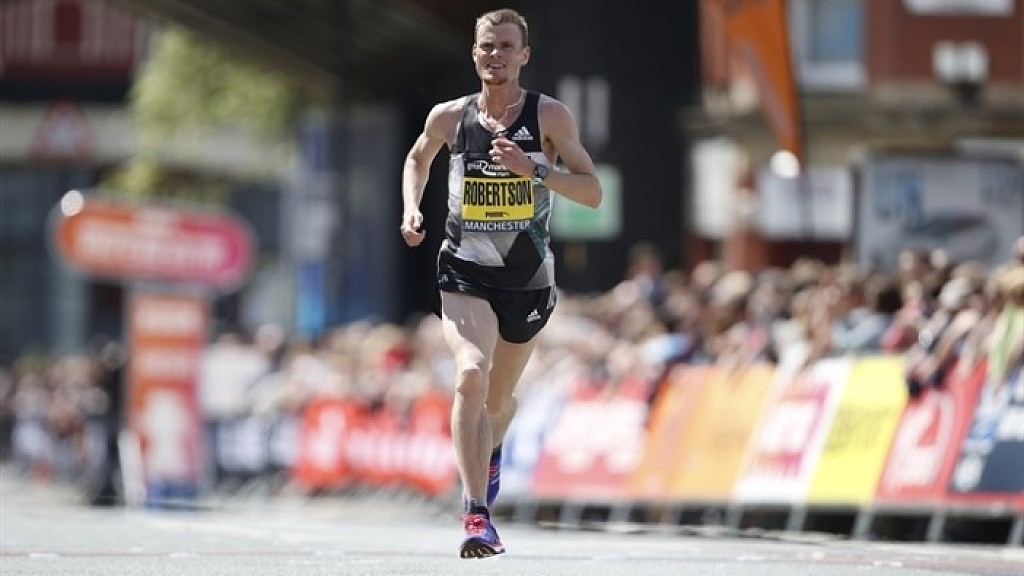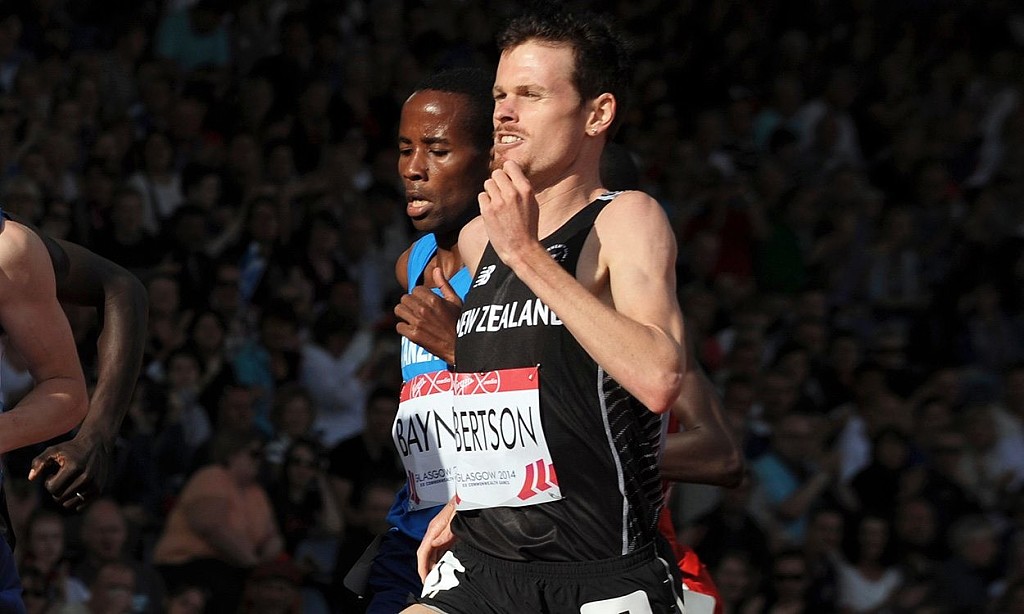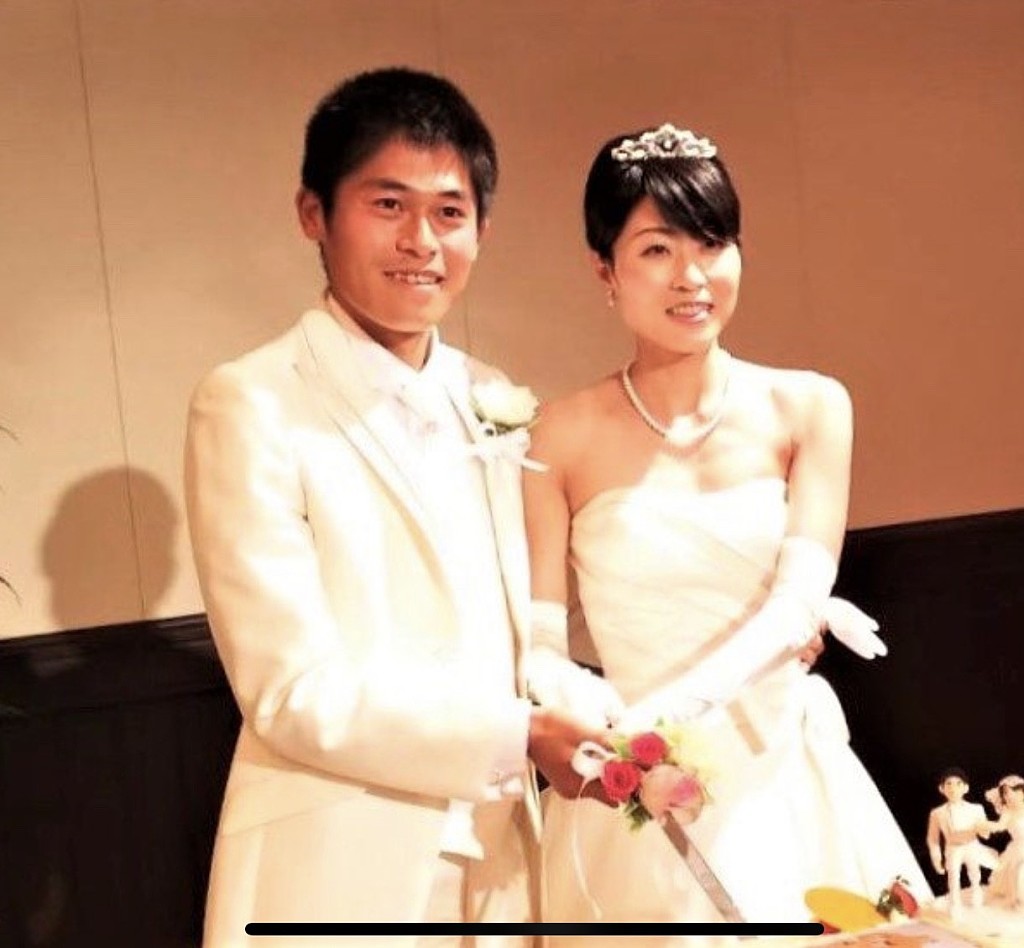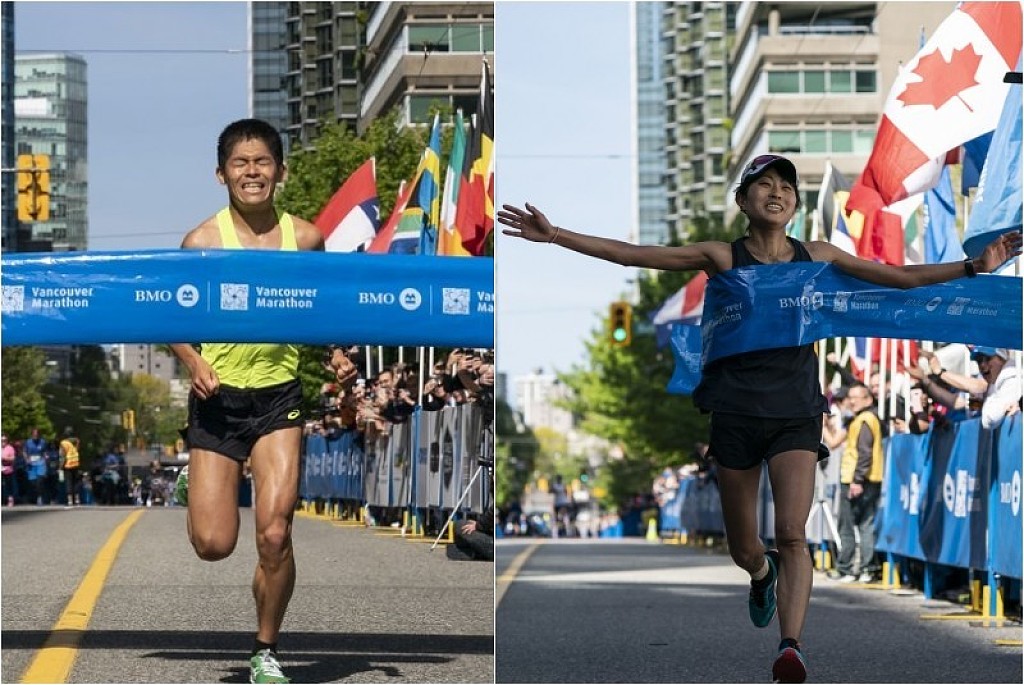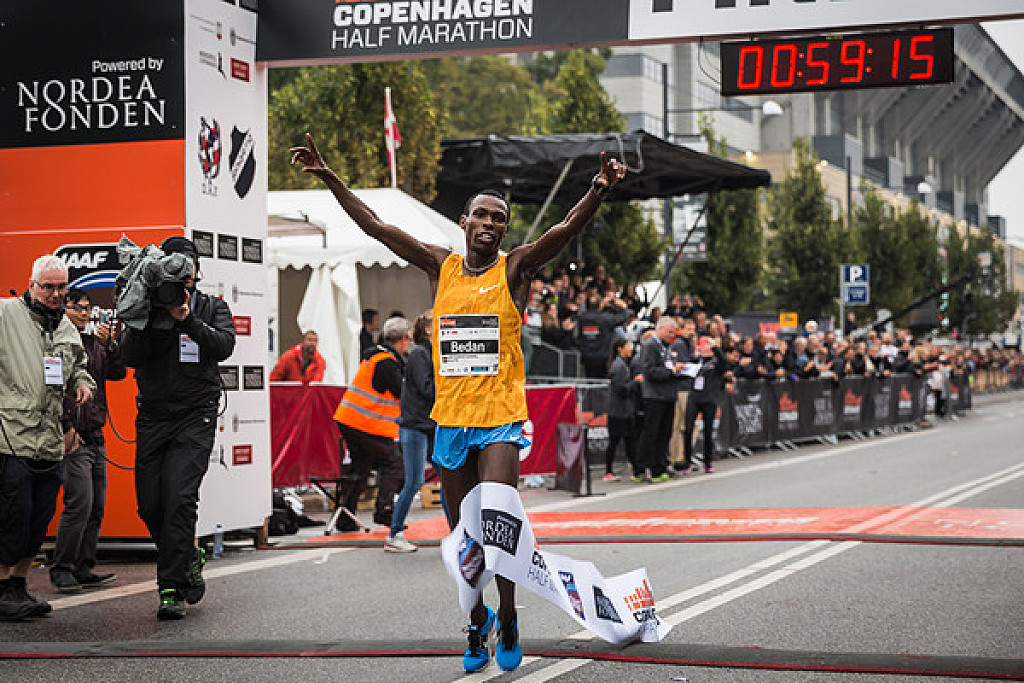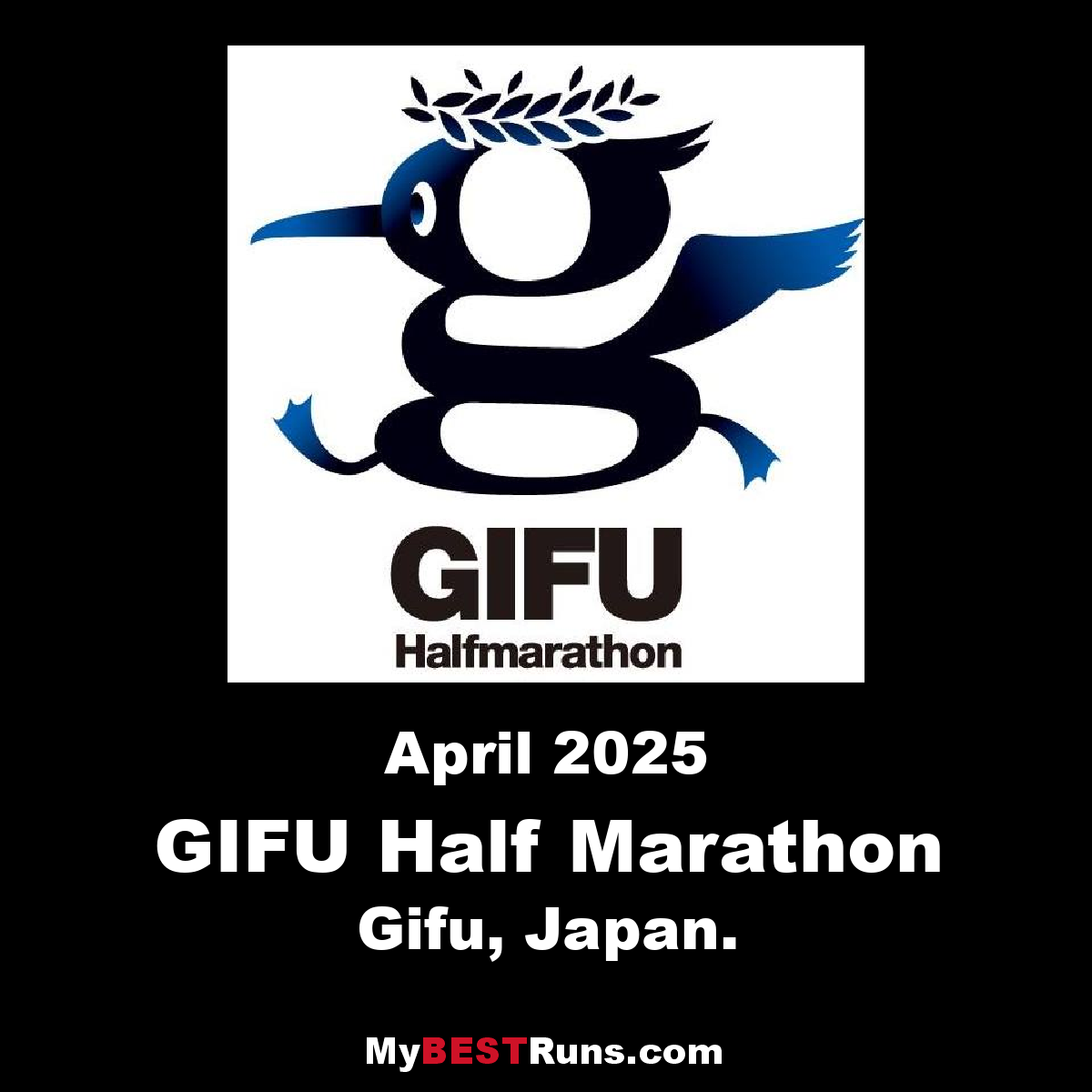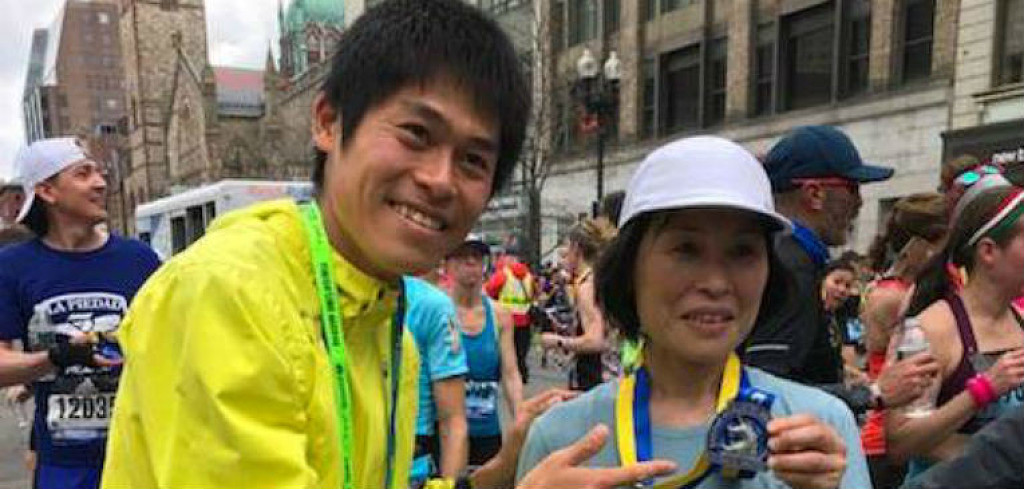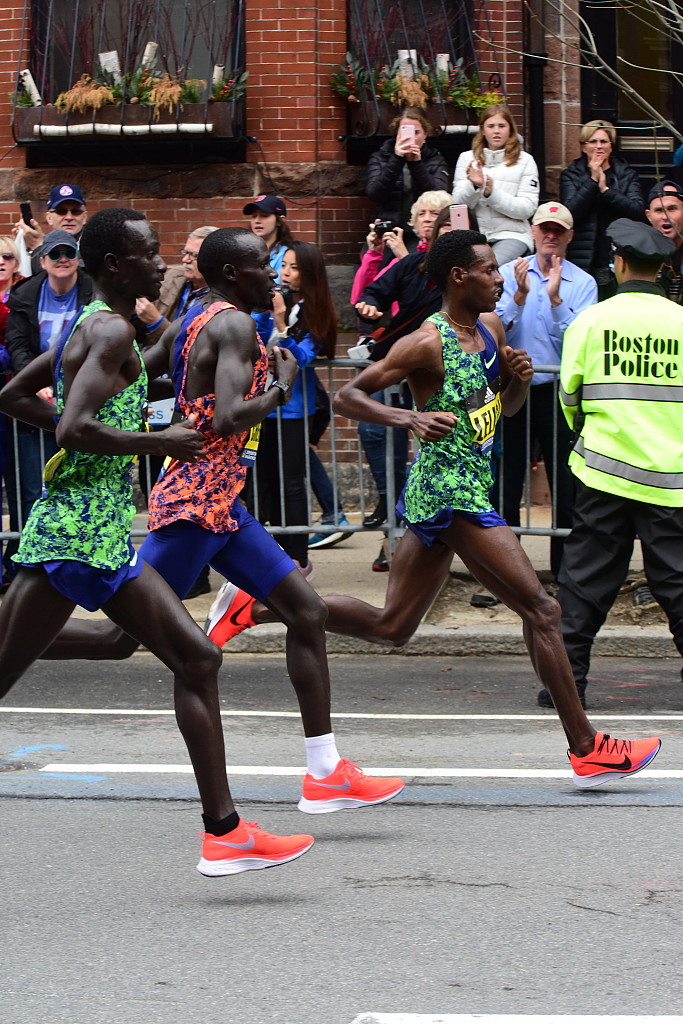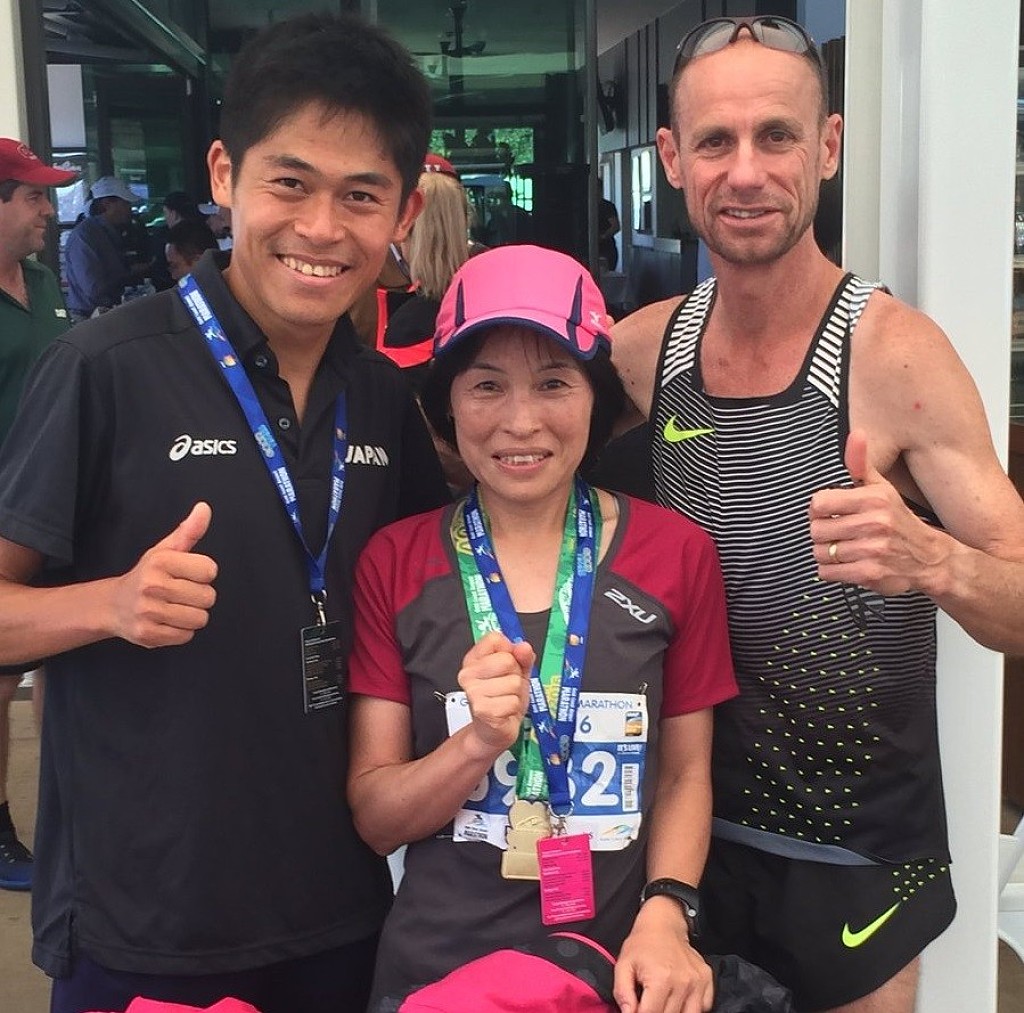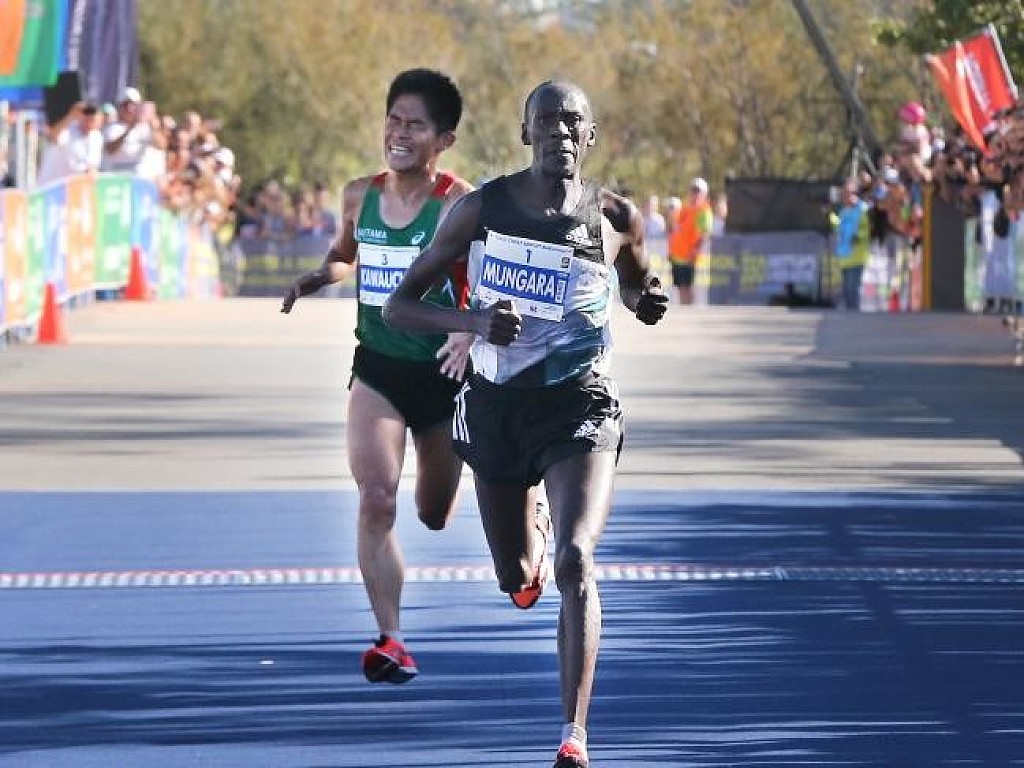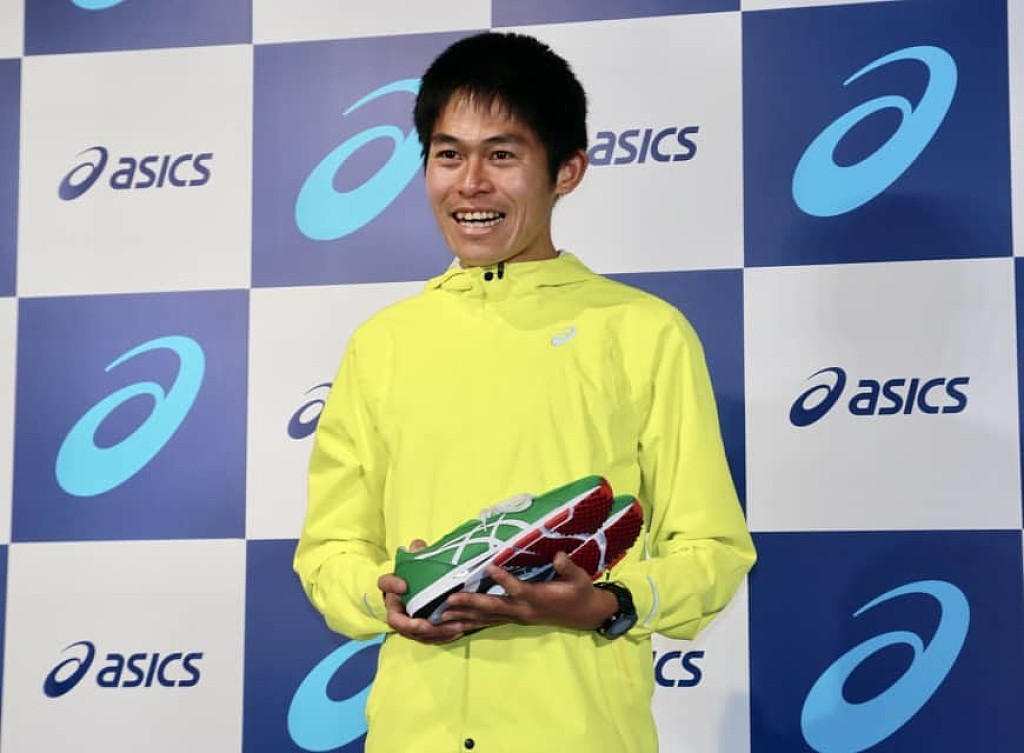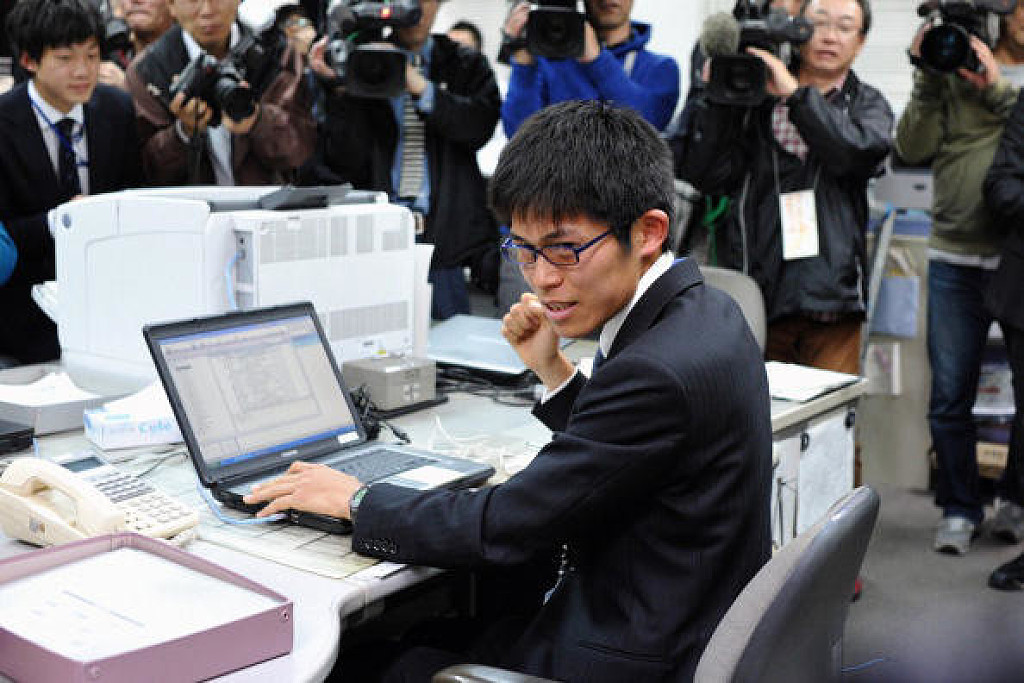Running News Daily
Running News Daily is edited by Bob Anderson. Send your news items to bob@mybestruns.com Advertising opportunities available. Train the Kenyan Way at KATA Kenya and Portugal owned and operated by Bob Anderson. Be sure to catch our movie A Long Run the movie KATA Running Camps and KATA Potato Farms - 31 now open in Kenya! https://kata.ke/
Index to Daily Posts · Sign Up For Updates · Run The World Feed
Articles tagged #Yuki Kawauchi
Today's Running News
A Tactical Marathon Showdown: Elite Entrants Eye Hong Kong Glory
The Standard Chartered Hong Kong Marathon returns on Sunday, January 18, 2026, shaping up as one of the most intriguing early-season tests on the global marathon calendar. Established in 1997 and now a World Athletics Gold Label event, the race has built its reputation not on record-chasing, but on tactical nuance—where patience, positioning, and timing often trump raw speed.
That dynamic makes this year’s edition especially compelling, as a deep and accomplished elite field converges on a course known for demanding smart racing.
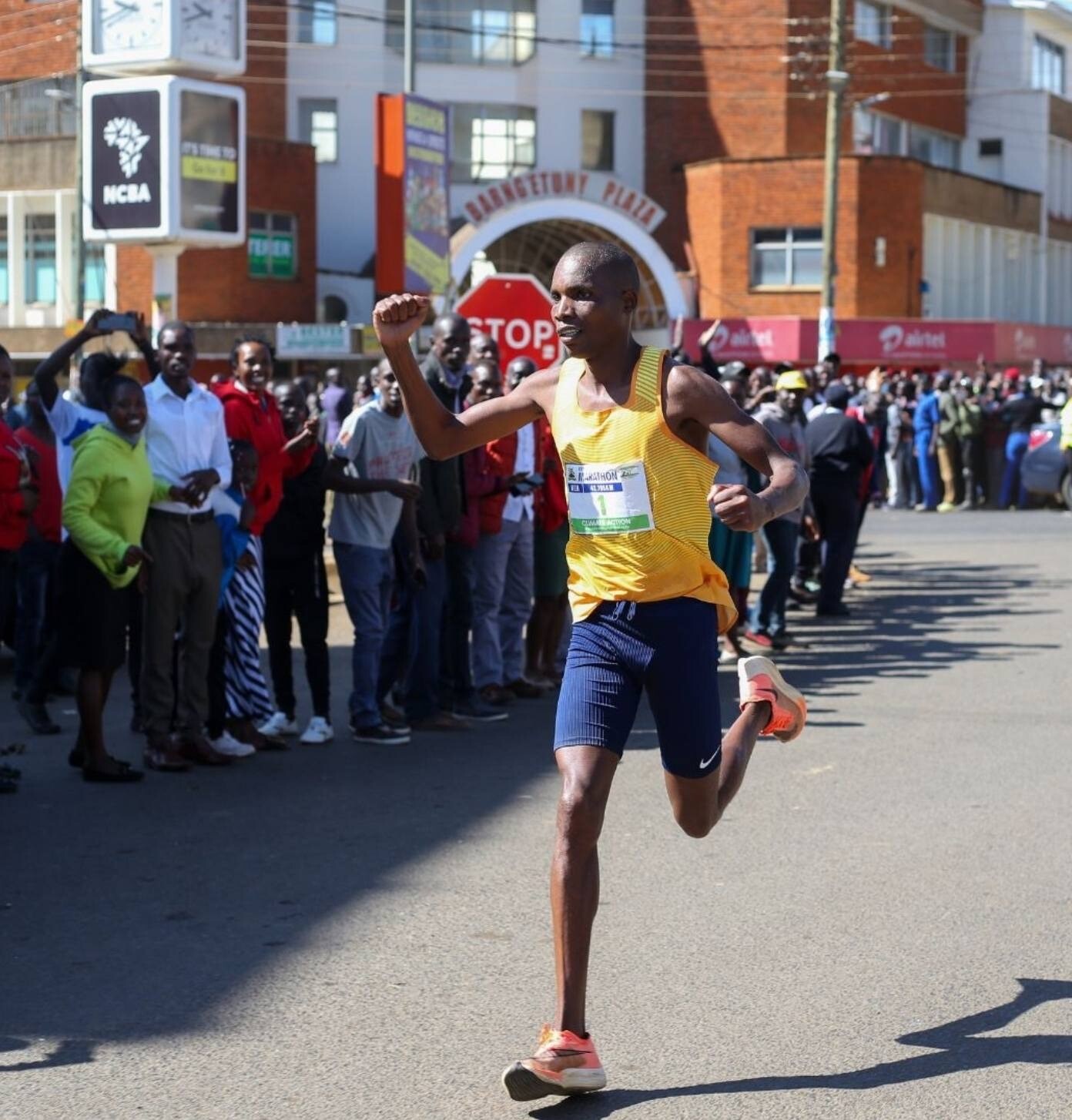
Leading the men’s start list is Ethiopia’s Gebre Mekuant Ayenew, whose personal best of 2:04:46 positions him as the clear favorite on paper. By global standards, Ayenew ranks among the sport’s upper tier—an athlete capable of world-class times if conditions allow.
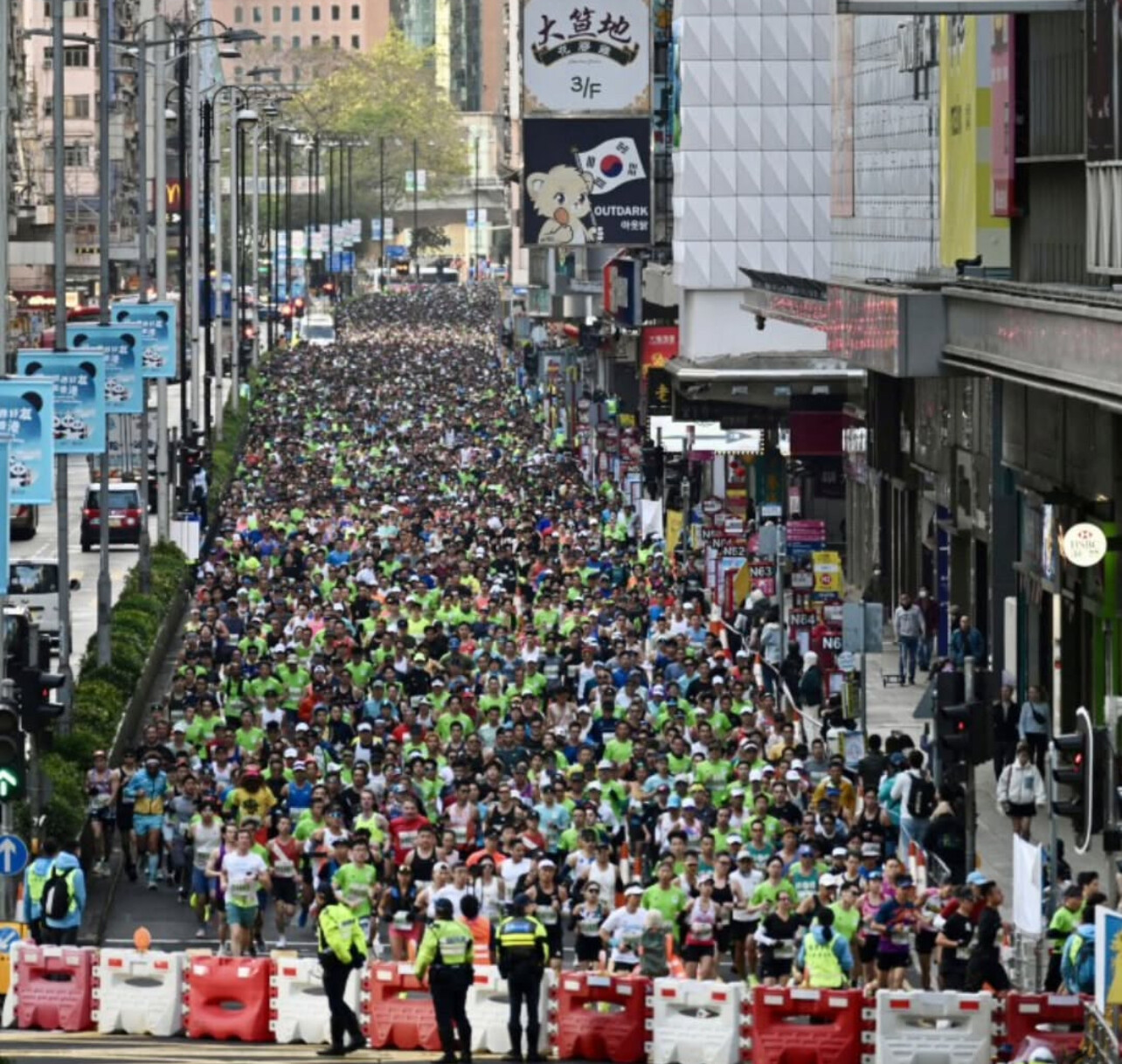
But Hong Kong rarely rewards straight-line speed alone. The urban course, winding from Nathan Road to Victoria Park, features sharp turns, rolling sections, bridges, and the ever-present factor of subtropical winter humidity. These elements routinely transform the race into a chess match, where tactical awareness becomes as decisive as fitness.
Kenya’s contingent arrives with depth and experience, forming a formidable counterbalance. Victor Kipchirchir (2:05:43) stands out as the most immediate threat. Known for measured pacing and a strong finish, Kipchirchir is well-suited to a race that rewards restraint before aggression.
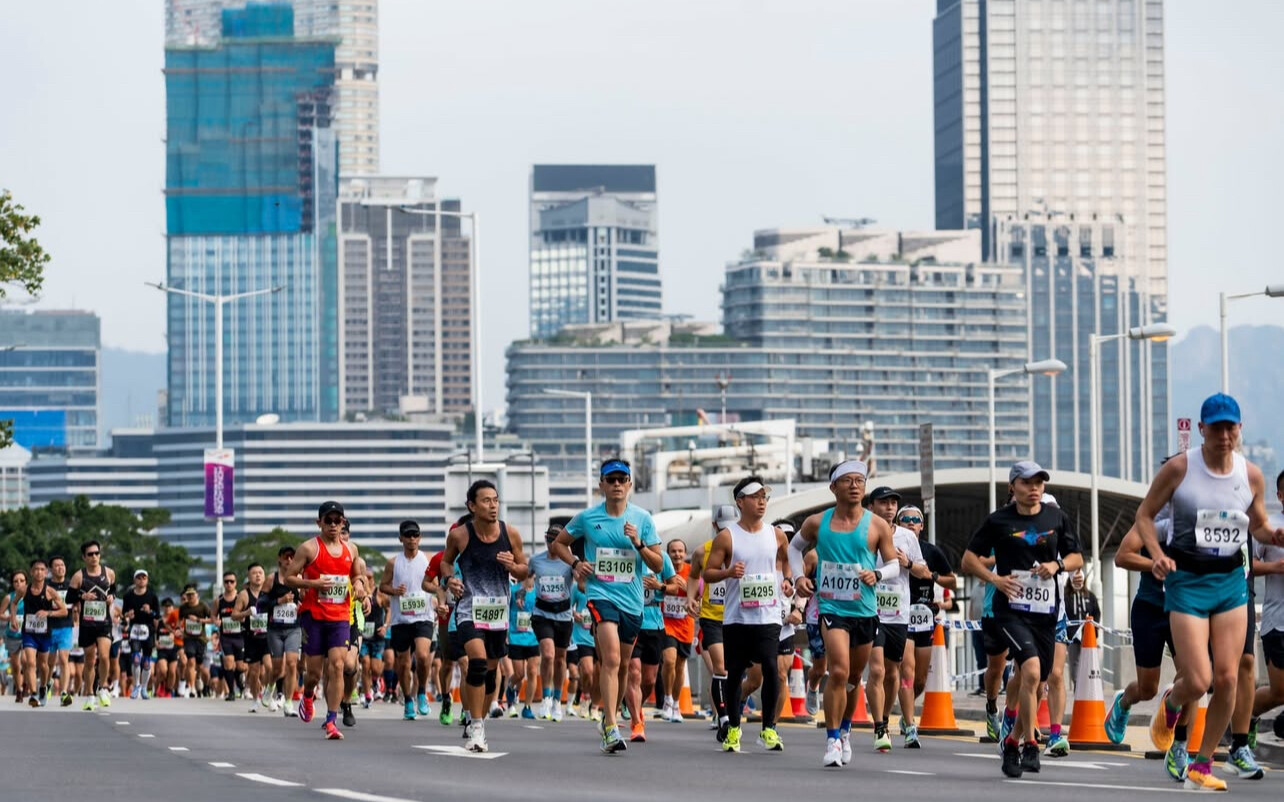
Backing him are Silas Kiprono Too (2:06:32), Kipkemoi Kiprono (2:06:45), Reuben Kiprop Kerio(2:07:00), and Simon Kipkosgei (2:07:07). Collectively, they offer tactical versatility and the ability to apply pressure during the critical middle stages—often where Hong Kong races are won or lost.
Ethiopia counters with its own depth. Abdi Fufa Nigassa (2:05:57), Gebru Nguse Redahgne(2:05:58), Yitayal Atnafu Zerihun (2:06:21), and Melaku Belachew Bizuneh (2:06:30) complete a formidable lineup. While their personal bests suggest the potential for fast running, Hong Kong history suggests that tactical surges and energy management often dictate the podium.
International intrigue comes courtesy of Yuki Kawauchi (JPN, 2:07:27), one of the sport’s most unpredictable racers. Renowned for his aggressive, fearless approach, Kawauchi has a habit of disrupting conventional pacing and forcing rivals into uncomfortable decisions. He is joined by Ghazouany Mohamed (MAR, 2:09:01) and Han Il Ryong (PRK, 2:09:42), underscoring the truly global character of the field.
Recent history provides useful perspective. In 2025, winning times hovered around 2:11–2:12, with Kenyan runners dominating the podium. The 2024 edition was similarly measured, reinforcing the course’s tactical reputation. Against that backdrop, the 2026 start list represents a notable shift: several contenders arrive with sub-2:06 credentials, raising the possibility of a quicker race—if the lead pack commits to pushing the tempo.
Still, the course demands respect. Early aggression has often been punished, while disciplined positioning and energy conservation through the mid-race sections have proven decisive. Misjudgment can lead to dramatic fade-outs over the final 10 kilometers; patience, on the other hand, often opens the door to late-race surges and podium-deciding moves.
That tension sets up a fascinating strategic question: will Ethiopia attempt to control the race through collective pacing, or will Kenya counter with tactical pressure and well-timed attacks? And could Kawauchi’s trademark aggression fracture the rhythm entirely?
With personal bests tightly clustered and tactical variables at play, Hong Kong once again promises a marathon where intelligence and restraint may outweigh even the fastest résumés.
As the 2026 marathon season gets underway, all eyes turn to January 18 when Hong Kong’s streets will host a contest shaped by history, strategy, and split-second decisions—another reminder that here, the smartest runner often wins.
by Robert Kibet for My Best Runs
Login to leave a comment
HONG KONG MARATHON
The Hong Kong Marathon, sponsored by Standard Chartered Bank, is an annual marathon race held in January or February in Hong Kong. In addition to the full marathon, a 10 km run and a half marathon are also held. Around 70,000 runners take part each year across all events. High levels of humidity and a difficult course make finishing times...
more...Mengesha and Loibach Conquer the World’s Longest Sea Bridge at Zhuhai–Macao Half Marathon
Ethiopia’s Milkesa Mengesha delivered a commanding performance to claim the men’s title at the 2026 Zhuhai–Macao Bridge Half Marathon, stopping the clock at 1:01:27 as elite runners battled wind and exposure on one of the most extraordinary road courses in the world.
Staged on the Hong Kong–Zhuhai–Macao Bridge, the longest sea-crossing bridge on the planet, the race offered a rare blend of speed, spectacle, and sustained mental challenge. Athletes surged onto wide, open tarmac suspended above the Pearl River Delta, facing long straightaways, gentle undulations, and uninterrupted views of open water stretching in every direction.
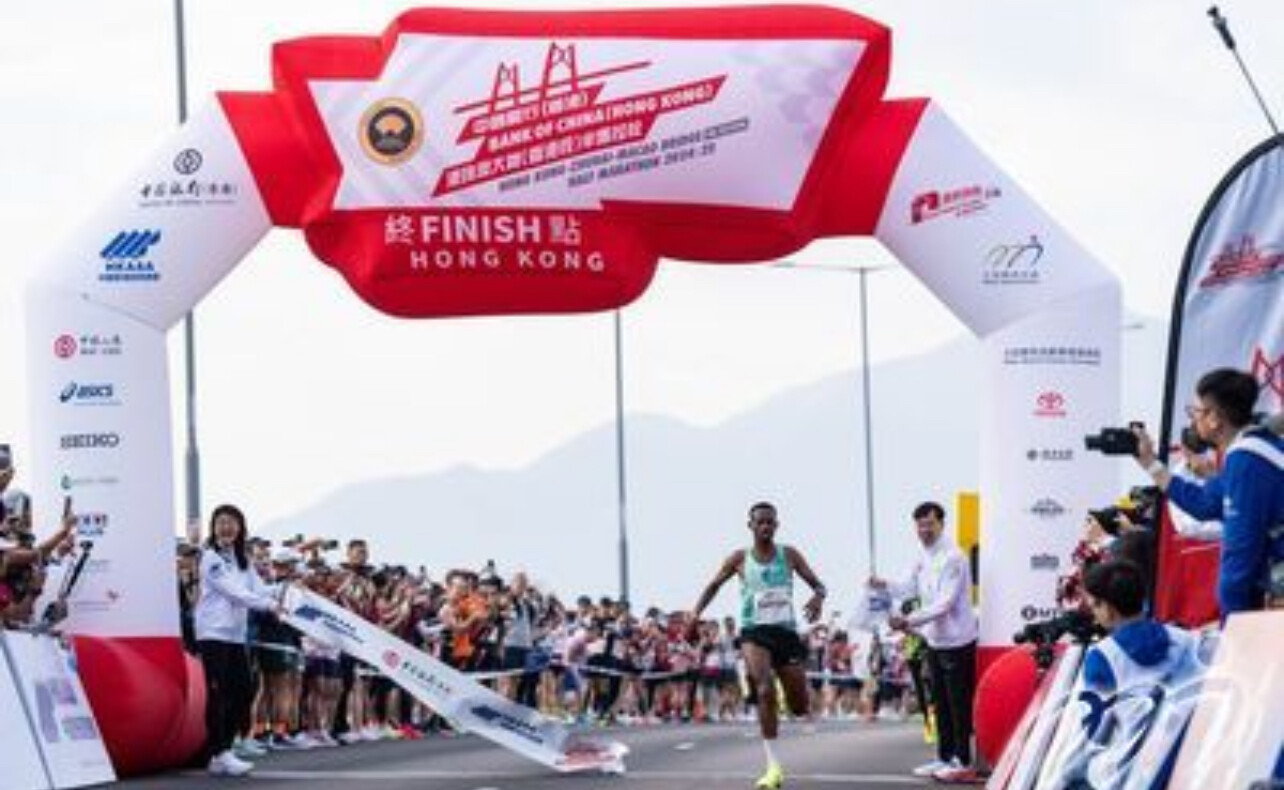
Mengesha remained patient through the early kilometres as a tightly packed lead group controlled the tempo. He broke clear late in the race, asserting his strength when conditions began to bite. Kenya’s Patrick Mosin stayed close throughout but settled for second in 1:01:30, just three seconds back, while fellow Ethiopian Haftu Teklu completed the podium in 1:02:54.
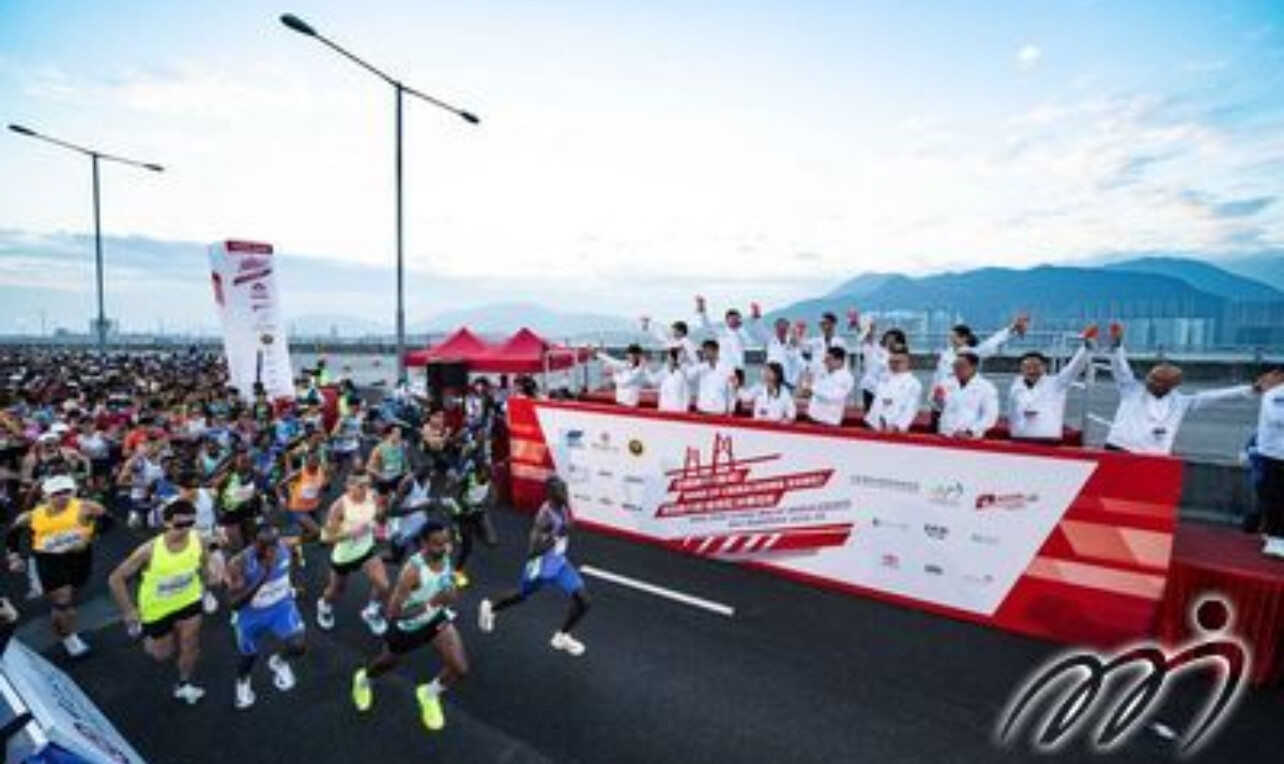
A Course That Tests Rhythm and Resolve
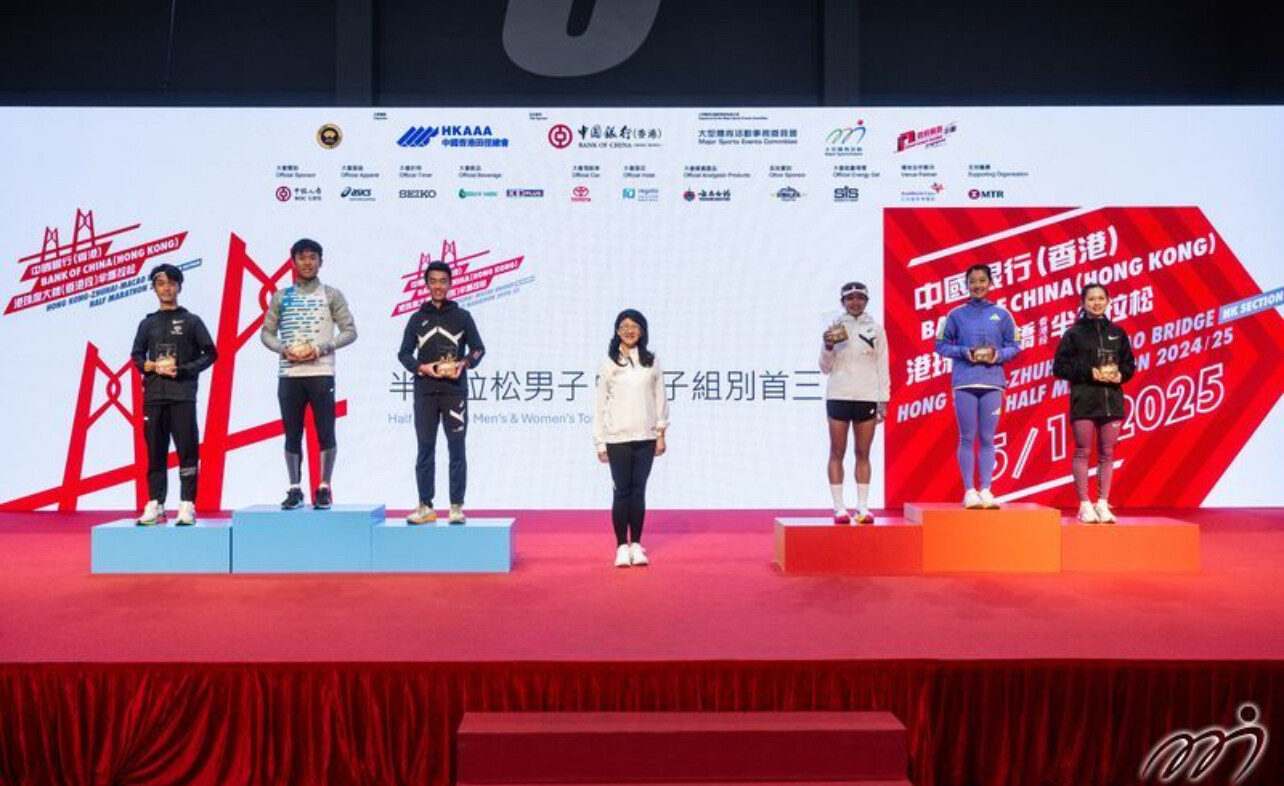
Unlike traditional city courses lined with spectators, the bridge route is defined by exposure. January brought cool temperatures and steady coastal winds—ideal for fast running but demanding precise pacing. With little shelter on the open deck, runners were forced to manage rhythm and energy as gusts disrupted stride patterns and pack dynamics.
The out-and-back layout added another tactical layer, allowing athletes to measure themselves directly against the field. The turnaround point became a revealing moment, separating those with reserves left for the return leg from those already on the edge.
Loibach Leads Kenyan Sweep in the Women’s Race
In the women’s contest, Kenya’s Grace Loibach Nawowuna underlined her rising status on the international road circuit, claiming victory in 1:07:56 after a fiercely contested race among a deep Kenyan contingent.
She was followed closely by Sheila Chelangat (1:08:06) and Viola Chepngeno (1:08:09), with the top four women finishing within half a minute of one another—a reflection of both tactical racing and the course’s unforgiving nature.
Loibach’s winning time marked an improvement on last year’s performance, highlighting both favourable conditions and the increasing depth of competition the race continues to attract.
A Step Forward From Last Year
In the previous edition, winning times were marginally slower, shaped by cautious early pacing. This year’s performances—particularly at the front—reflected a shift toward more assertive racing, aided by calm early conditions and strong international fields from East Africa and Asia.
The Zhuhai–Macao Bridge Half Marathon is rapidly establishing itself as a destination race for elite and sub-elite runners alike, offering genuine speed potential on a course unlike any other on the global road calendar.
For many competitors, it was more than a race for time or position—it was an experience of running between sea and sky, where concentration, patience, and strength mattered as much as raw speed.
RESULTS – ZHUHAI–MACAO BRIDGE HALF MARATHON
Men
1. Milkesa Mengesha (ETH) — 1:01:27
2. Patrick Mosin (KEN) — 1:01:30
3. Haftu Teklu (ETH) — 1:02:54
4. Weldon Langat (KEN) — 1:02:57
5. Luke Kiprop (KEN) — 1:02:57
6. Negasa Dekeba (ETH) — 1:05:03
7. Yuki Kawauchi (JPN) — 1:07:52
8. Chong See Yeung (HKG) — 1:09:44
9. Man Ho (HKG) — 1:10:36
Women
1. Grace Loibach Nawowuna (KEN) — 1:07:56
2. Sheila Chelangat (KEN) — 1:08:06
3. Viola Chepngeno (KEN) — 1:08:09
4. Gladys Chepkurui (KEN) — 1:08:23
5. Gotytom Gebreslase (ETH) — 1:08:54
6. Miriam Chebet (KEN) — 1:09:59
7. Daisy Jepkemei (KAZ) — 1:10:08
8. Megertu Mideksa (ETH) — 1:11:41
9. Ying Chu Lo (HKG) — 1:16:45
10. Shiu Yan Leanne Szeto (HKG) — 1:20:15
by Robert Kibet for My Best Runs
Login to leave a comment
Yuki Kawauchi Proves His Endurance with New Marathon Success in 2025
Yuki Kawauchi, known worldwide as the “Citizen Runner,” continues to defy expectations in the marathon world. From his historic 2018 Boston Marathon victory to his latest triumphs in 2025, Kawauchi remains one of the most consistent and determined long-distance runners in the sport. Now a full-time professional, he has overcome setbacks and continues to post impressive results on the global stage.
The 2018 Boston Marathon Victory
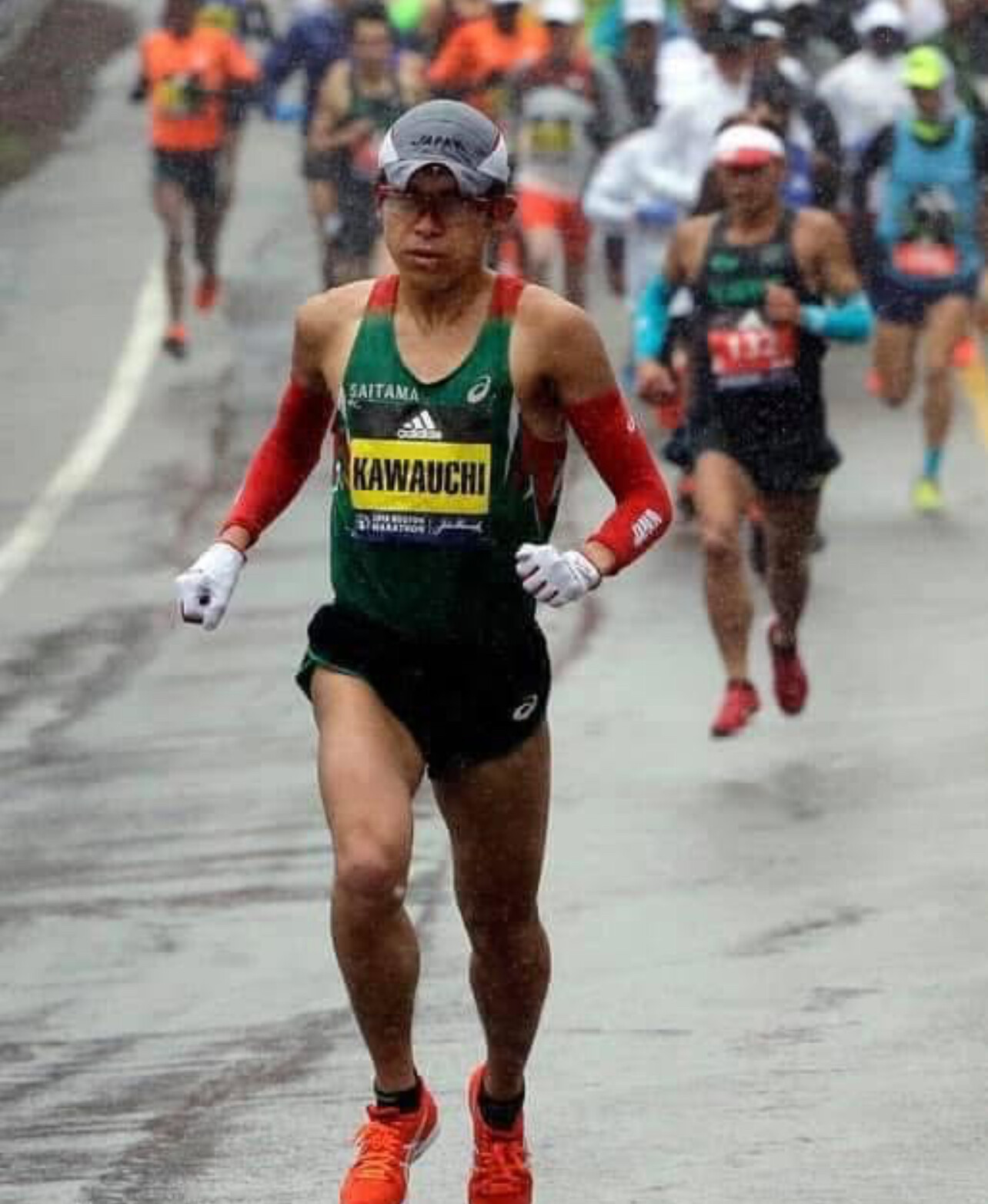
Kawauchi cemented his place in marathon history on April 16, 2018, when he won the Boston Marathon in one of the most challenging weather conditions the race had ever seen. With heavy rain, powerful headwinds, and freezing temperatures around 40°F (4°C), many elite runners struggled—but not Kawauchi. His relentless surges and fearless strategy allowed him to overtake defending champion Geoffrey Kirui in the final miles, crossing the finish line in 2:15:58. He became the first Japanese man to win the race since Toshihiko Seko in 1987.
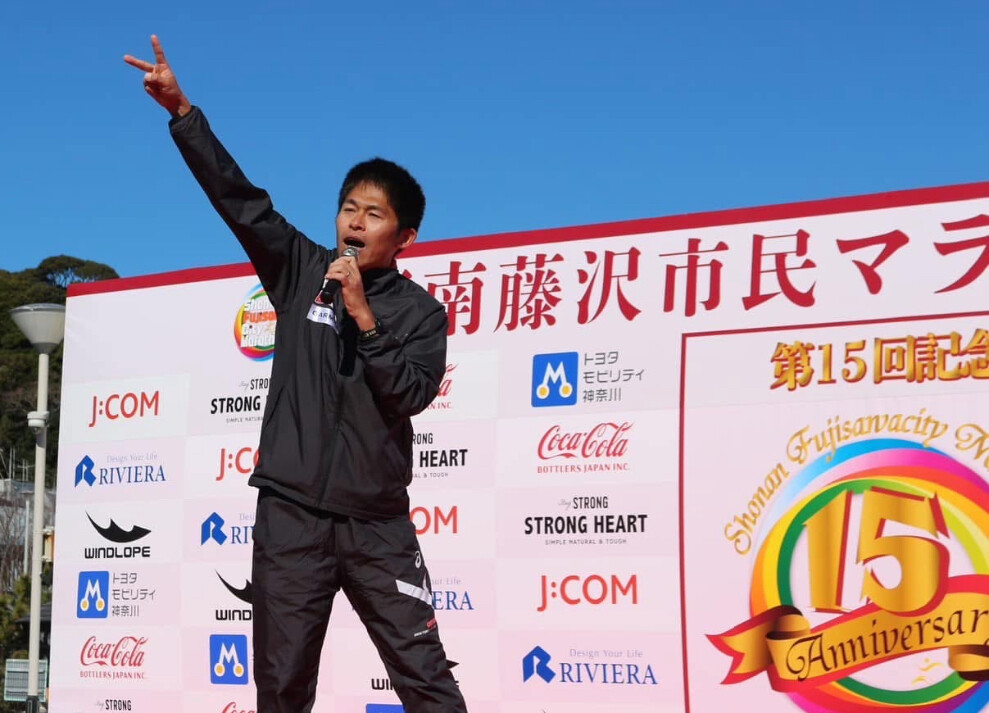
Transition to Professional Running
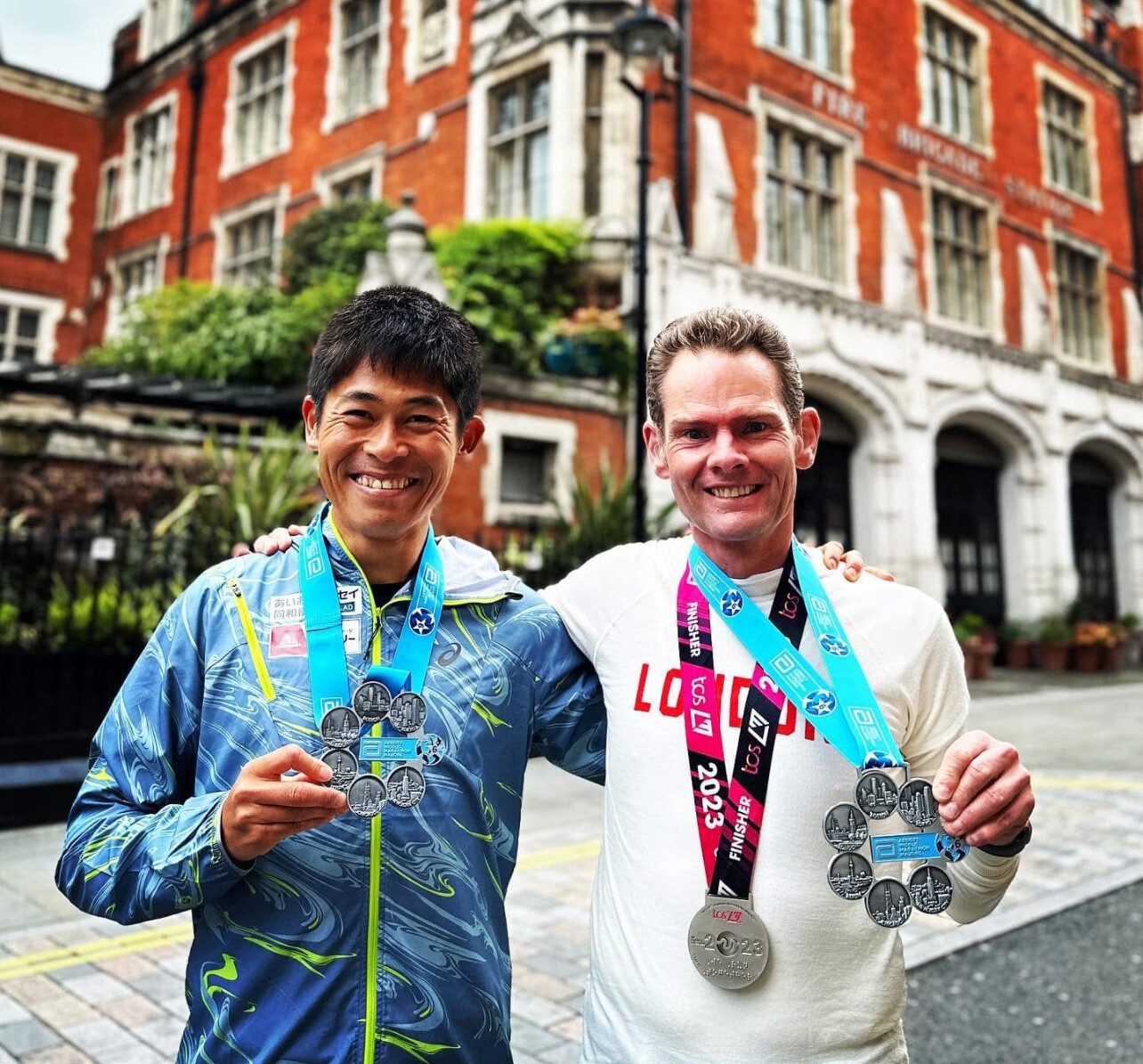
Despite his international success, Kawauchi spent years balancing his training with a full-time job as a government clerk. In 2019, he made the long-awaited decision to turn professional, allowing him to focus entirely on training and racing. The transition led to an improvement in his performances, including a personal best marathon time of 2:07:27 at the 2021 Lake Biwa Marathon.
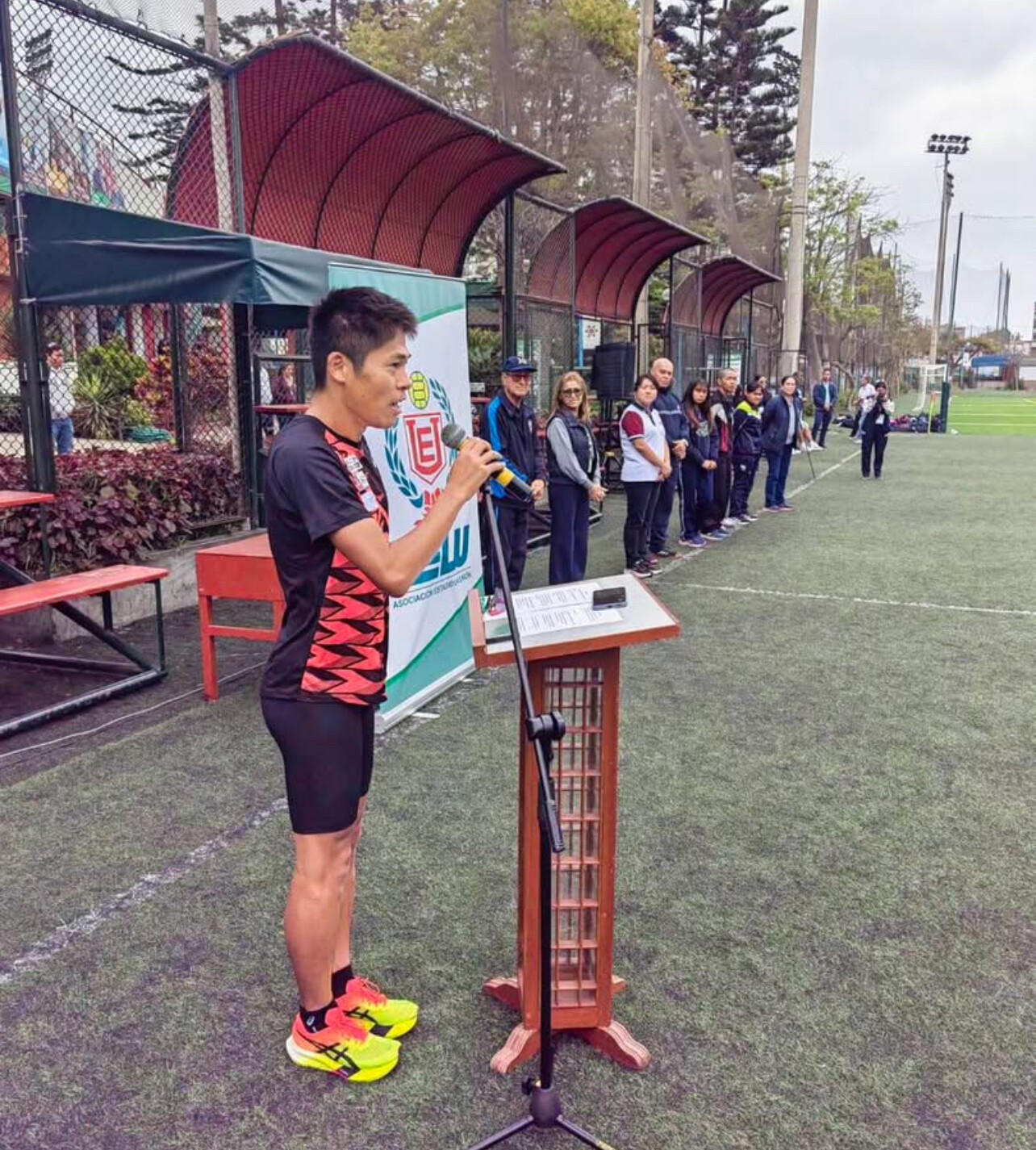
Battling Through 2024
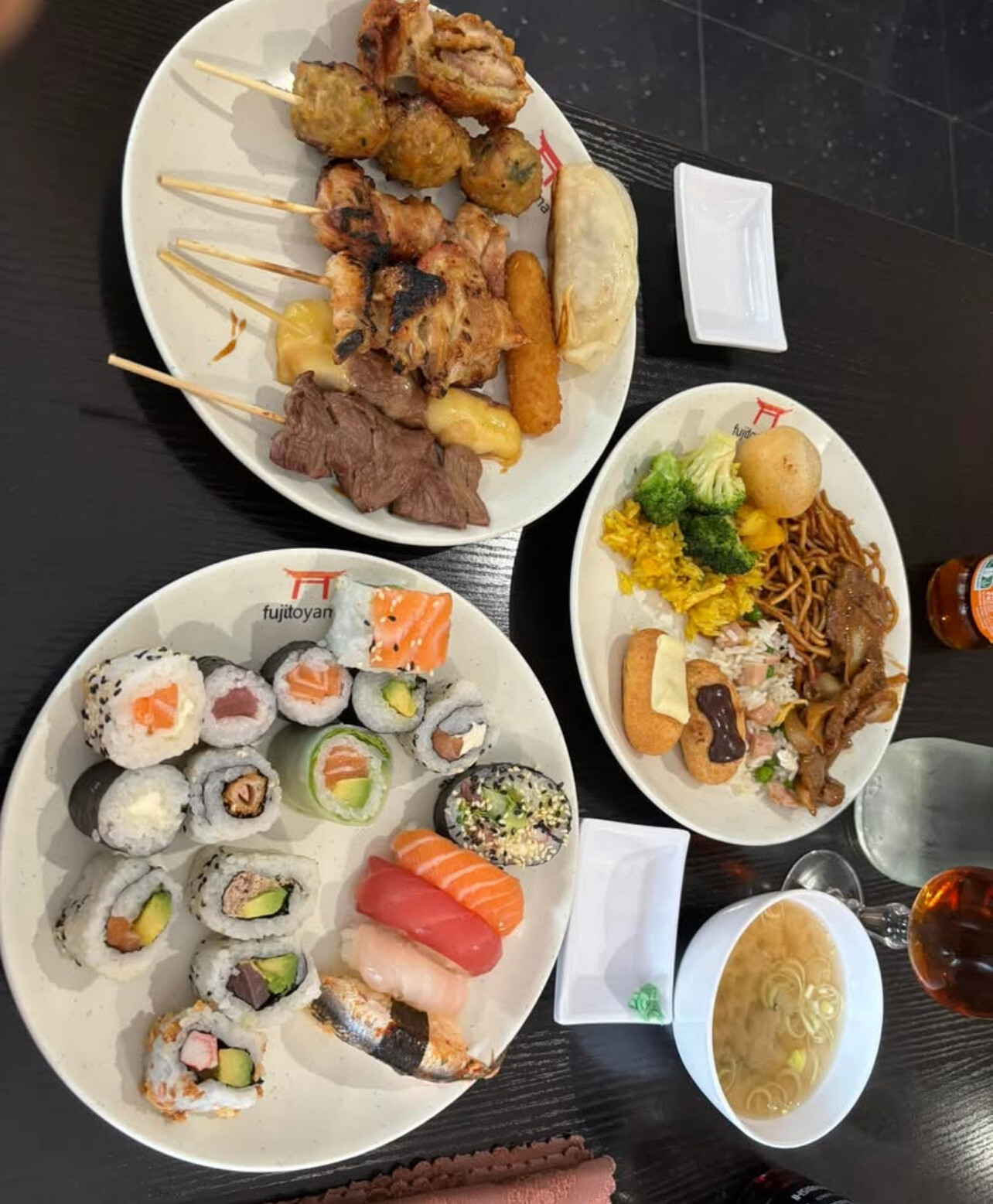
The road to success is never without obstacles. In 2024, Kawauchi endured an inconsistent season, marked by injuries and slower race times. However, he continued to compete with determination, finishing several marathons despite the setbacks:
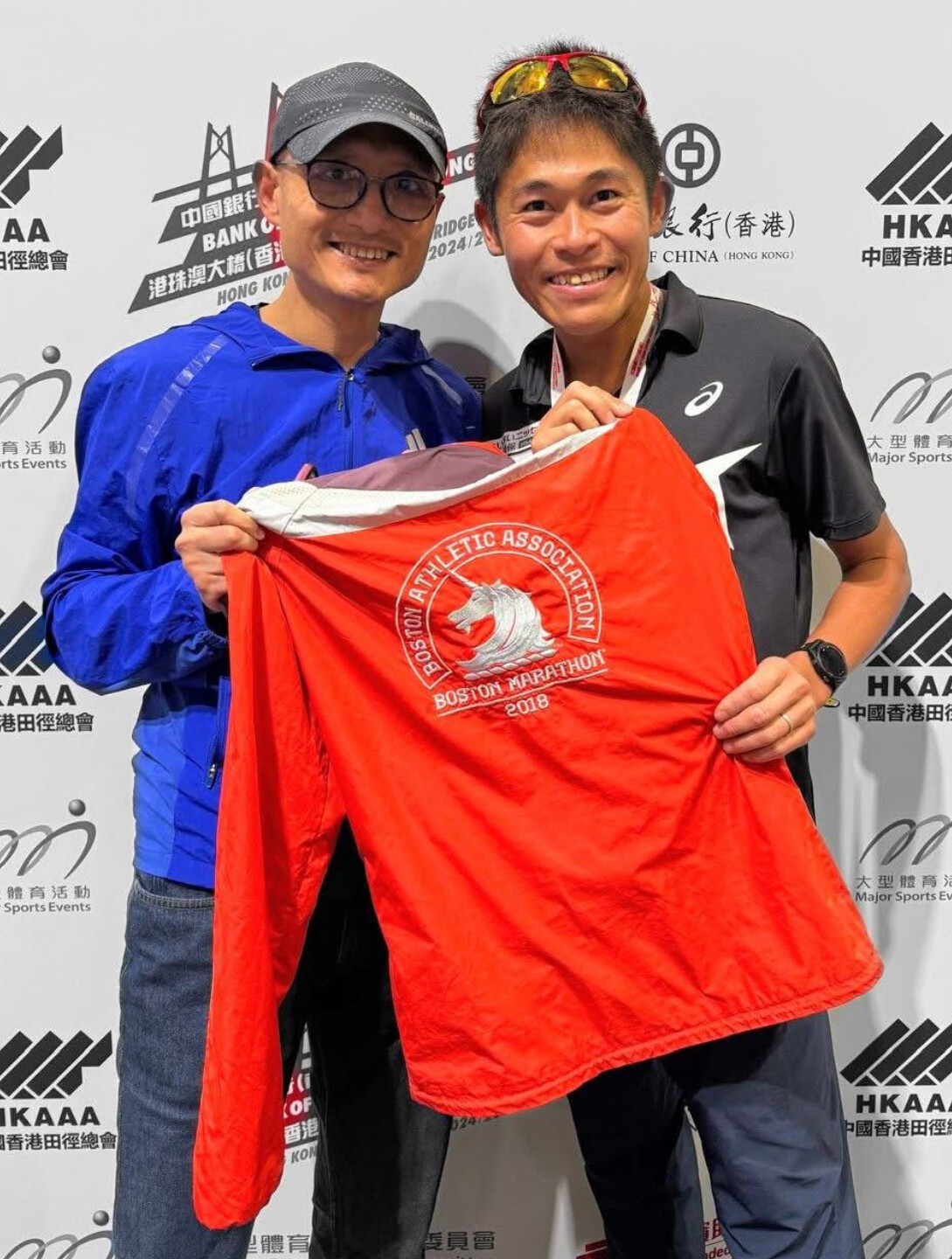
• Ibusuki Nanohana Marathon (January 2024): 1st place, 2:21:13
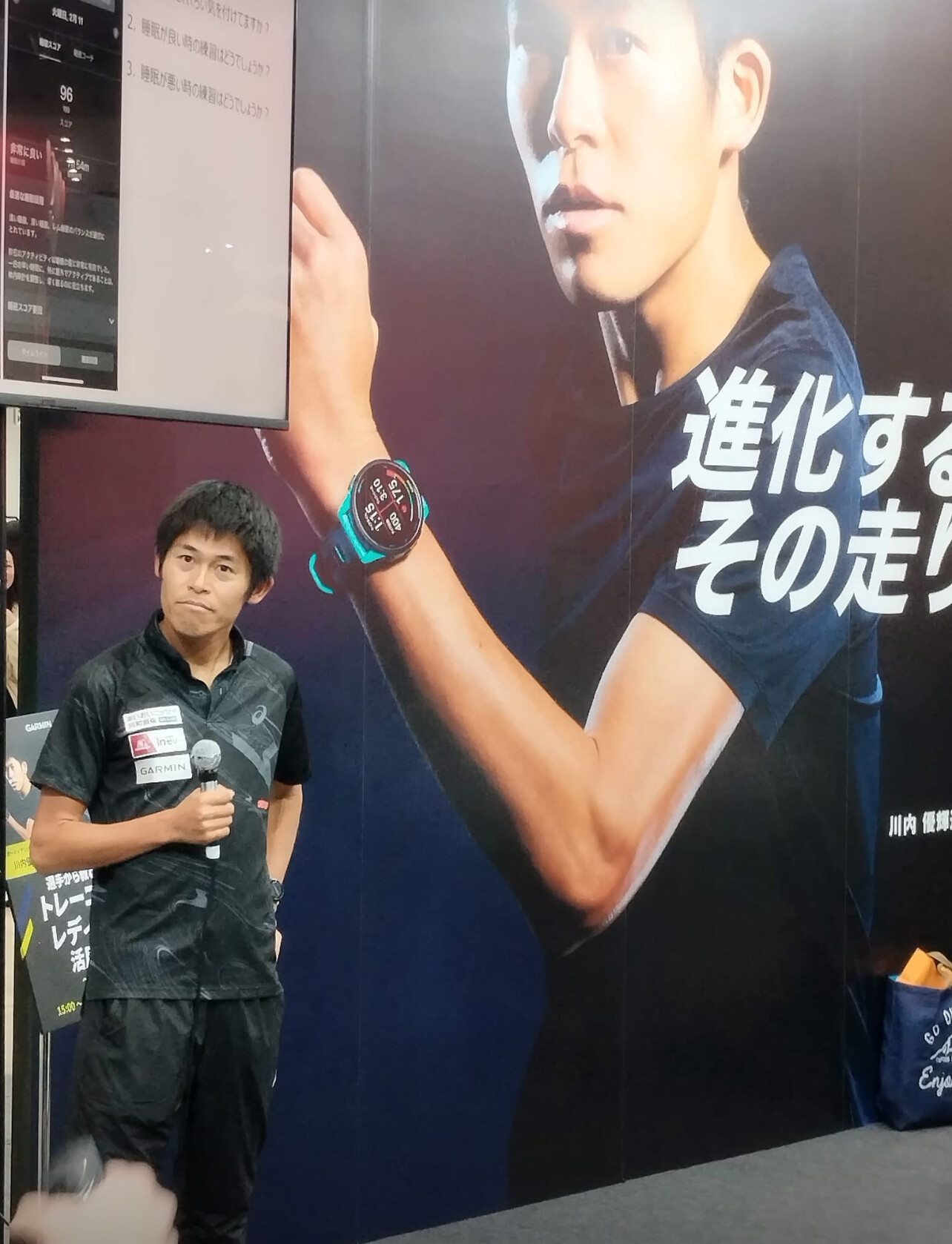
• Paris Marathon (April 2024): 75th place, 2:31:03
• Gold Coast Marathon (July 2024): 156th place, 2:42:26
• Hofu Yomiuri Marathon (December 2024): 38th place, 2:33:01
• Mie Matsusaka Marathon (December 2024): 6th place, 2:22:02
Despite these struggles, Kawauchi never lost sight of his goal—to return stronger in 2025.
A Strong Comeback in 2025
This year, Kawauchi has proven once again why he is one of the most enduring marathoners in the world. His persistence paid off with a strong performance early in 2025:
• Tokyo Marathon (March 2025): 15th place, 2:10:45
His victory at the Tohoku Miyagi Revive Marathon was a defining moment, signaling that Kawauchi is back in top form.
Training and Personal Life
Now a professional, Kawauchi has adapted his training regimen to include higher mileage and more structured workouts. He still follows an old-school approach, frequently training alone and racing more often than most elite marathoners. His high-volume racing strategy continues to set him apart, proving that consistency and experience can be just as valuable as raw speed.
In his personal life, Kawauchi married fellow runner Yuko Mizuguchi in 2019. The couple shares a passion for marathon running, supporting each other’s athletic careers. Their shared dedication to the sport has made them one of Japan’s most inspiring running duos.
A Lasting Legacy
Yuki Kawauchi has defied conventional wisdom in long-distance running, proving that elite performances don’t require sponsorships, high-tech training camps, or corporate teams. His dedication, work ethic, and ability to push through challenges continue to inspire runners of all levels.
With his recent 2025 victory and continued improvement, Kawauchi remains a formidable competitor in the global marathon scene. Whether battling extreme weather or personal setbacks, his resilience and love for the sport continue to make him a legend in the running community.
by Boris Baron
Login to leave a comment
No one has run more sub 2:20 marathons than Yuki.
As of March 8, 2025, Yuki Kawauchi has completed 104 marathons under 2 hours and 20 minutes. This milestone includes his recent performances in 2025:
Tokyo Marathon (March 2025): 15th place with a time of 2:10:45 and Tohoku Miyagi Revive Marathon (April 2025): 1st place, finishing in 2:11:18. - Bob Anderson 3/9 7:31 pm |
Ethiopia’s Mengesha wins Hong Kong-Zhuhai-Macau Bridge race
The Bank of China Hong Kong-Zuhai-Macau Bridge Half Marathon made a considerable improvement on its flawed previous edition as it was praised by elite and amateur runners on Sunday.
After criticism following the inaugural race 14 months ago, the logistical aspects were as important as the identities of the winners at this second event.
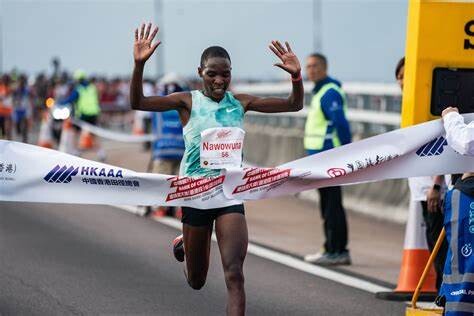
Handily for organizers, the first man and woman over the line, Milkesa Mengesha and Grace Nawowuna, were gushing in their assessments of the race, which is staged inside a border checkpoint at the Hong Kong end of the world’s longest sea-crossing bridge.
Ethiopian Mengesha, winner of last year’s Berlin Marathon, completed the 13.1 miles (21km) in one hour, one minute and 27 seconds, three seconds ahead of Patrick Mosin, from Kenya, who finished in 1:01.30.
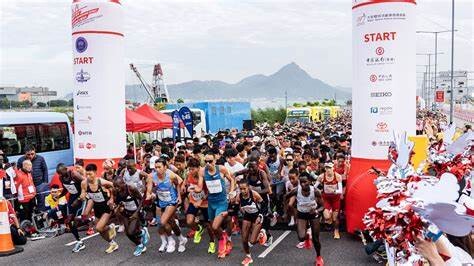
“I am so happy to win here, the level of everything has been perfect, even above my expectations,” Mengesha said.
The 21-year-old Kenyan Nawowuna clocked 1:07.56, ahead of compatriot Sheila Chelangat in 1:08.06. She said the mixed reviews of November 2023 had not been a factor when deciding whether to compete.
“The organisation was everything we could have asked for and Hong Kong is beautiful,” Nawowuna said.
Complaints following the debut race focused on a scarcity of toilets, delays transporting runners between their AsiaWorld-Expo assembly point and the course, an absence of food and shortage of drink, and a pre-race drop-off about a 1.5km walk from the start line.
Simon Yeung Sai-mo, chairman of the organising committee, said a backlash from “runners and the media” had prompted a host of changes.
“There were more than 70 toilets in the starting and finishing areas,” Yeung said. “The drop-off point was fewer than 500 metres from the start line and we provided food and drinks for runners.”
As they walked to the start, flanked by rows of portable toilets, some of the 8,000 runners were heard saying lessons had been learned. Out on the course, there were six water stations, with food available from those on the homeward straight.
The start was watched by government officials including Secretary for Culture, Sports and Tourism Rosanna Law Shuk-pui.
Fleets of buses were waiting to take runners back to AsiaWorld-Expo, where they were greeted with gift bags containing a banana, crackers, water and a towel, before collecting their bags.
Amateur runner Rick Yam said: “I heard a lot about last year, but there isn’t anything I can say that needs improving.
“We could see the start line when we got off the bus and the transport was good. It can’t be as easy as some other races, because we’re in an area where there is usually restricted access. Overall, it was pretty good.”
Fellow runner Alan Zagury said the toilets and shuttle bus service were faultless, but he would not be back for future editions “because it is a huge logistical headache”. “I left home at 4.30am, it’s now past 9.30am, which is far too much for a half-marathon,” he said.
Zagury also said the 45-minute wait in a confined area before starting was “too long and meant we could not warm-up”.
Given the race’s location, however, hanging around before starting was the nature of the beast.
Virginia Lo Ying-chiu, the first Hong Kong woman home in 1:16.45, said it had been a “privilege to be involved”. “I think the problems were solved,” she said. “We didn’t need to wait for toilets, or walk to the start line. The arrangement is much better.”
Japan’s 2018 Boston Marathon winner, Yuki Kawauchi, finished seventh in 1:07.52 before being mobbed for autographs and selfies. He said it had been a “good decision” to compete and rated the event above his own country’s Chiba Aqualine Marathon, where runners race on the bridge section of the Tokyo Bay Aqua-Line.
Yeung said the race would return next year, on condition of government support, but the plan was to make it “better rather than bigger”.
“If we increased numbers, it would not be a good experience for runners,” he said. “We can’t have any more, because we have to give the bridge back to the government as soon as possible.”
After assembling a strong international field, organisers were rewarded when World Athletics designated the event a Gold Label Road Race, one rung beneath its top-tier Platinum Label races.
by Paul McNamara
Login to leave a comment
Jepkesho favorite to clinch Sunday's Gold Coast Marathon title
Seoul Marathon's second runner-up Visiline Jepkesho will start as the favorite in the elite women’s race on Sunday during the Gold Coast Marathon on the Eastern Coast of Australia.
Jepkesho is competing in her second marathon this year after finishing third in South Korea with a time of 2:22:52 on March 17.
The 34-year-old also boasts victories from the 2018 Rotterdam Marathon, where she clocked 2:23:47 and the 2016 Paris Marathon (2:25:53).
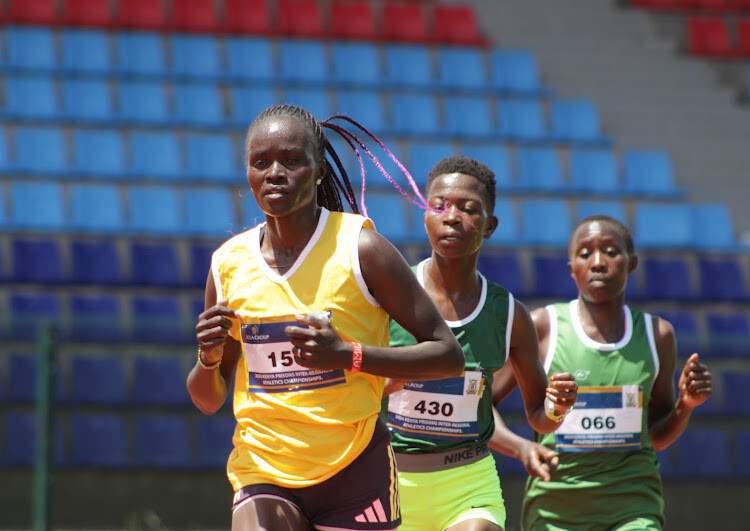
She also placed third in the 2015 edition of the Paris Marathon clocking 2:24:44 and placed second at the 2017 Istanbul Marathon (2:22:40).
Other top performances include the 2019 Nagoya women’s Marathon (2:22:58) and the 2017 Lille Half Marathon (1:08:12).
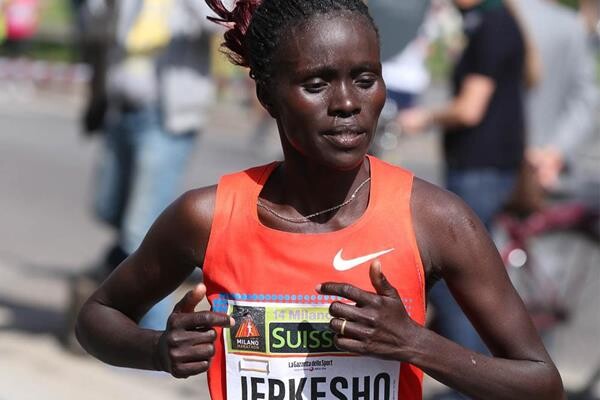
The seasoned long-distance runner will face stiff competition from Japan’s Rie Kawauchi and Misato Horie.
Kawauchi boasts titles from the Nagano Marathon (2:33:16) and last year’s Tokushima Marathon (2:33:50).
Horie is the 2016 Gold Coast champion, where she claimed the title in a time of 2:26:40. She also holds a title from the 2022 Osaka Marathon (2:32:10).
Jepkesho will be joined by compatriot Irene Jerobon, the Castellon Marathon runner-up (2:30:51).
She is also the Alpes-Maritimes Nice-Cannes Marathon champion with a time of 2:41:18. Milly Clark, the 2021 Melbourne Marathon champion, will be seeking to make a mark for the host nation.
Clark’s achievements include winning the 2021 Launceston Half Marathon (1:11:09) and securing silver at the 2019 Oceania Marathon (2:28:08) and 2017 Gold Coast Half Marathon (1:11:15).
The men’s field will be spearheaded by 2015 Praha Marathon Champion Felix Kandie.
Organizers termed the men’s race as the strongest in the event’s history with 12 athletes having run sub 2:10 times.
“ Twelve male athletes have sub 2:10 performances. This will be the strongest field to ever jump to the starting gun in the 44-year history of the ASICS Gold Coast Marathon,” the statement from the organizers read.
Kandie is a silver medalist in the 2017 Seoul Marathon (2:06:03) as well as the 2016 edition of the Praha Marathon (2:08:14).
He is a bronze medalist at the 2015 Valencia Marathon (2:07:07) and the 2018 Toronto Waterfront Marathon (2:08:30).
Kandie will be joined by fellow Kenyans Timothy Kattam, the 2023 Milano Marathon silver medalist (2:07:53), Geoffrey Birgen and Kenneth Omulo.
Japan’s Yuki Kawauchi, the 2016 Gold Coast runner-up (2:09:01), will provide formidable competition along with Uganda’s Kibet Soyekwo, the 2013 Dronten Half Marathon champion (1:03:45) and Ethiopia’s Belay Tilahun.
by Teddy Mulei
Login to leave a comment
MEA ANTRIM COAST HALF MARATHON
The MEA Antrim Coast Half Marathon 2022 has been approved by World Athletics as an Elite Event. The World Athletics certified course takes in some of the most stunning scenery in Europe, combined with some famous landmarks along the route. With it's flat and fast course, the race is one of the fastest half marathons in the world. Starting...
more...Rotich spearheads Kenyan quest at Paris Marathon on Sunday
Kenyan marathoners face a stern test at the Paris Marathon on Sunday as Elisha Rotich spearheads the country's charge.
Rotich, who won the event in 2021 and is currently the course record holder with a time of 2:04:21, returns to the event after a two-year absence.
Rotich won the 2016 Cannes Marathon in France; the 2017 Chuncheon Marathon in South Korea and the 2018 Eindhoven Marathon.
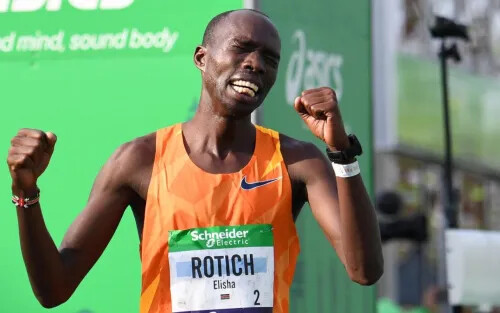
Hillary Kipsambu, who finished third and sixth in the French Capital in 2021 and 2022, will be aiming to go one place better this time round.
Kipsambu, who won the Kosice Marathon in Slovakia in 2019 in 2:09:33, will fancy his chance of going all the way.
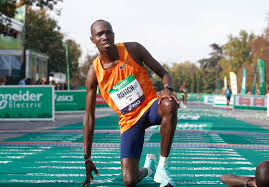
The 2023 Frankfurt Marathon champion Brimin Kipkorir is also in the mix for the title.
The Kenyan trio will be up against a formidable contingent from Ethiopia including the defending champion Gisealew Ayana.
The Ethiopian will be seeking to become the third person to defend the crown after Britain’s Steve Brace (1989 and 1990) and Kenya’s Paul Lonyangata (2017 and 2018).
Ayalew will have Mekuant Ayenew and Bazezew Asmare – all with PBs under 2:05:00 for the company in what is expected to be a competitive race
Japan’s Yuki Kawauchi will aim to challenge the African dominance while France’s Freddy Guimard will hope to impress on home turf. In the women's category, Vivian Cheruiyot lines up as a contender. Her last win was the 2018 London Marathon, where she clocked 2:18:31.
The 2016 Olympic 5000m champion will bounce back to marathon running at the age of 39 as her last marathon dates back to 2019.
Cheruiyot will have her work cut out against a strong Ethiopian field. Buzunesh Getachew, winner in Frankfurt last October, will lead the Ethiopian team and will be joined by Rahma Tusa, Etagena Woldu, Hailu Haven and Gelete Burka, winner of the 2019 Paris Marathon. More than 54,000 runners are set to take part in the event.
Following tradition, participants will set off from the Champs-Élysées to cover the gruelling distance of 26.2 miles, passing through some of the most beautiful Parisian spots.
The route will include the Place de la Concorde, the Opéra Garnier, the Louvre, Notre-Dame de Paris, the Musée d’Orsay, the Eiffel Tower, the Grand Palais and the Hippodrome d’Auteuil to name a few.
by William Njuguna
Login to leave a comment
Schneider Electric Paris Marathon
The Schneider Electric Marathon de Paris offers a unique opportunity to make the city yours by participating in one of the most prestigious races over the legendary 42.195 km distance. The Schneider Electric Marathon de Paris is now one of the biggest marathons in the world, as much for the size of its field as the performances of its runners....
more...Defending champ Gisealew Ayana and Vivian Cheruiyot lead fields for Paris Marathon
More than 54,000 runners are set to gather at the starting line of the 47th Schneider Electric Marathon de Paris this Sunday (April 7).
Following tradition, participants will set off from the Champs-Élysées to cover the gruelling distance of 26.2 miles, passing through some of the most beautiful Parisian spots.
The route will include the Place de la Concorde, the Opéra Garnier, the Louvre, Notre-Dame de Paris, the Musée d’Orsay, the Eiffel Tower, the Grand Palais and the Hippodrome d’Auteuil to name a few.
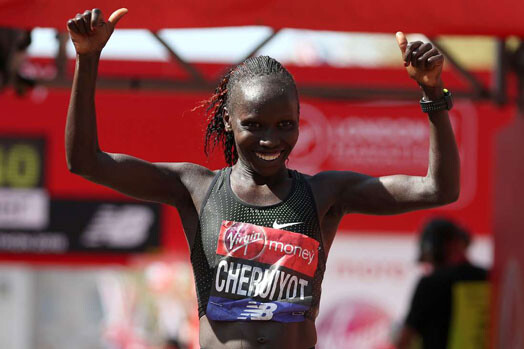
The marathon has attracted a strong field of elite athletes who will be aiming to clinch the title and walk away with the prize money, which stood at €50,000 last year.
Gisealew Ayana, a 21-year-old Ethiopian who secured victory last year, will lead the men’s race as he will aim for a double that only Britain’s Steve Brace (1989 and 1990) and Kenya’s Paul Lonyangata (2017 and 2018) have achieved.
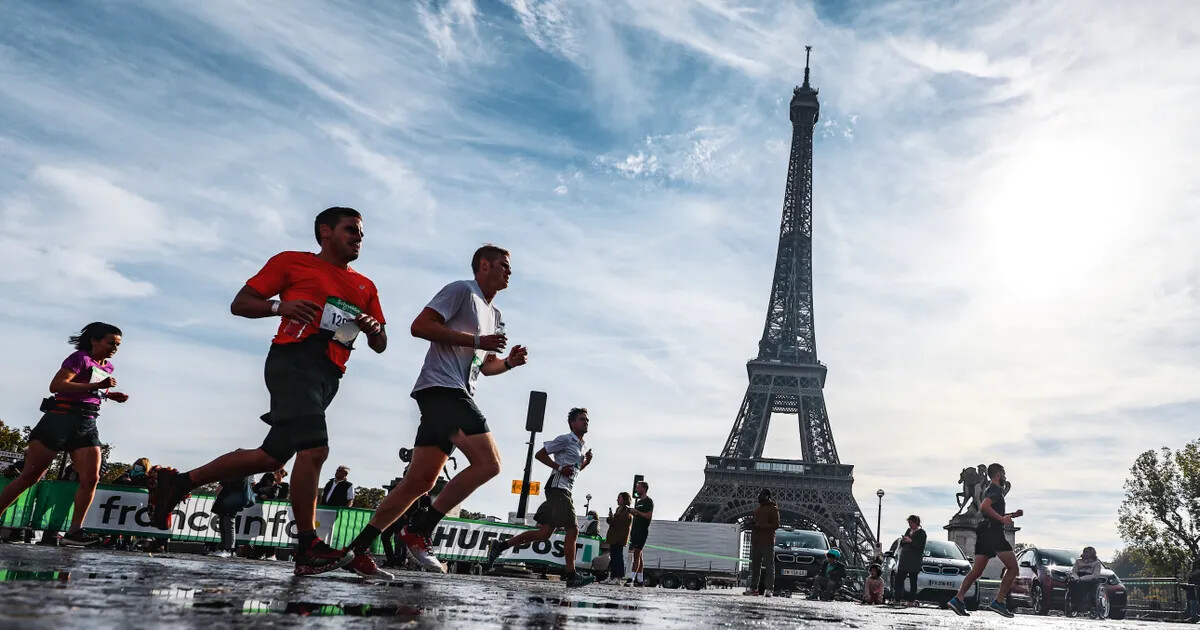
Ayana will face tough competition as he goes up against two previous Paris winners, 2022 champion Deso Gelmisa and Elisha Rotich, winner of the 2021 Pairs Marathon and event record holder (2:04:21). Rotich, 33, will return to the marathon after a two-year absence.
A strong contingent of Kenyan and Ethiopian runners will join the trio of recent winners in leading the field including Hilary Kipsambu (2021 bronze medallist), Brimin Kipkorir (2023 Frankfurt Marathon winner), Mekuant Ayenew and Bazezew Asmare – all with PBs under 2:05:00.
Japan’s Yuki Kawauchi will aim to challenge the African dominance while France’s Freddy Guimard will hope to impress on home turf.
In a change from previous years, the elite women will start on the same line as the men rather than having a separate start. The adjustment provides the women with an earlier start time, aimed at allowing them to take advantage of favourable conditions to achieve faster times.
Kenya’s Vivian Cheruiyot lines up as a favourite. Her last win was the 2018 London Marathon where she clocked 2:18:31.
The 2016 Olympic 5000m champion will bounce back to marathon running at the age of 39 as her last marathon dates back to 2019.
Cheruiyot will have her work cut out against her rivals as there is a strong Ethiopian field. Buzunesh Getachew, winner in Frankfurt last October, will lead the Ethiopian team as she will be joined by Rahma Tusa, Etagena Woldu, Hailu Haven and Gelete Burka, winner of the 2019 Paris Marathon.
There is more than just the marathon on offer this weekend as ASICS, partner of the Schneider Electric Marathon de Paris, is hosting a three-day Festival of Running event.
The unique festival will feature elite 5km and 10km speed races on Friday evening, with Eilish McColgan being one of the athletes set to run. A pre-marathon shake-out run is scheduled for Saturday.
by Jasmine Collett
Login to leave a comment
Schneider Electric Paris Marathon
The Schneider Electric Marathon de Paris offers a unique opportunity to make the city yours by participating in one of the most prestigious races over the legendary 42.195 km distance. The Schneider Electric Marathon de Paris is now one of the biggest marathons in the world, as much for the size of its field as the performances of its runners....
more...Koyama and Inoue among invited runners for Osaka Marathon
A total of 19 invited runners were announced Monday for the upcoming Osaka Marathon, including Paris Olympics-bound Naoki Koyama and 2018 Asian Games gold medalist Hiroto Inoue.
The Feb. 25 marathon is the first of the two remaining "final challenge" races for Japan's third and last spot in the men's marathon at this summer's Olympics.
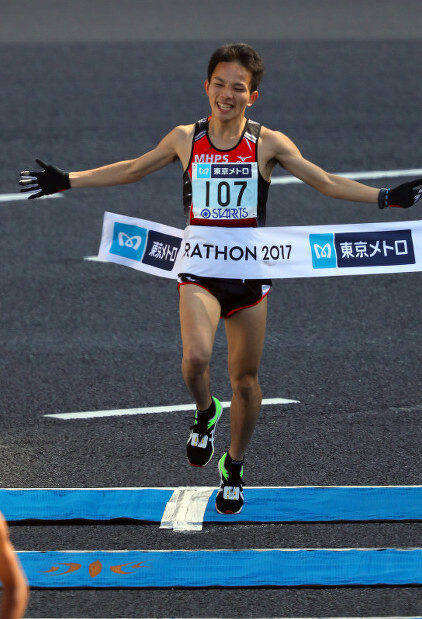
Shogo Nakamura, who competed at the Tokyo Olympics in 2021, will also run, but 2018 Boston Marathon winner Yuki Kawauchi will not take part due to an injury, according to organizers of the Osaka race.
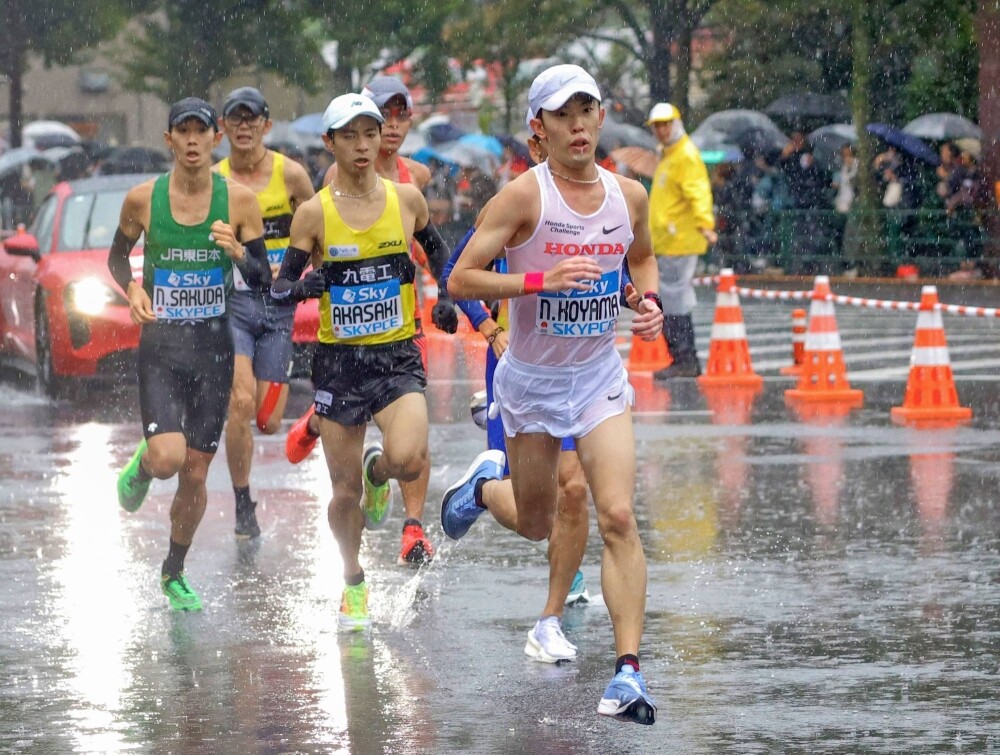
Koyama and Akira Akasaki have already clinched their Olympic berths by finishing first and second, respectively, at last October's Marathon Grand Championship in Tokyo.
The Tokyo Marathon, scheduled for March 3, wraps up the competition schedule for Olympic selection.
by The Japan Times
Login to leave a comment
Osaka Marathon
Let’s run for fun in the shadow of Osaka Castle, the symbol of the city!This is a fun running event, which welcomes international runners from all corners of the global alongside families, friends and Japanese runners; all running together through the colored leaves of Osaka Castle Park on a crisp autumn morning. The fun and pleasure of running is universal! ...
more...2018 Boston marathon winner Yuki Kawauchi and wife were winners today at marathon in Japan
The man who shocked the world in 2018 when he won the Boston Marathon, Yuki Kawauchi is a marathon-running icon. He shared this on FB today:
"I ran Tohoku Miyagi Fukko Marathon today.
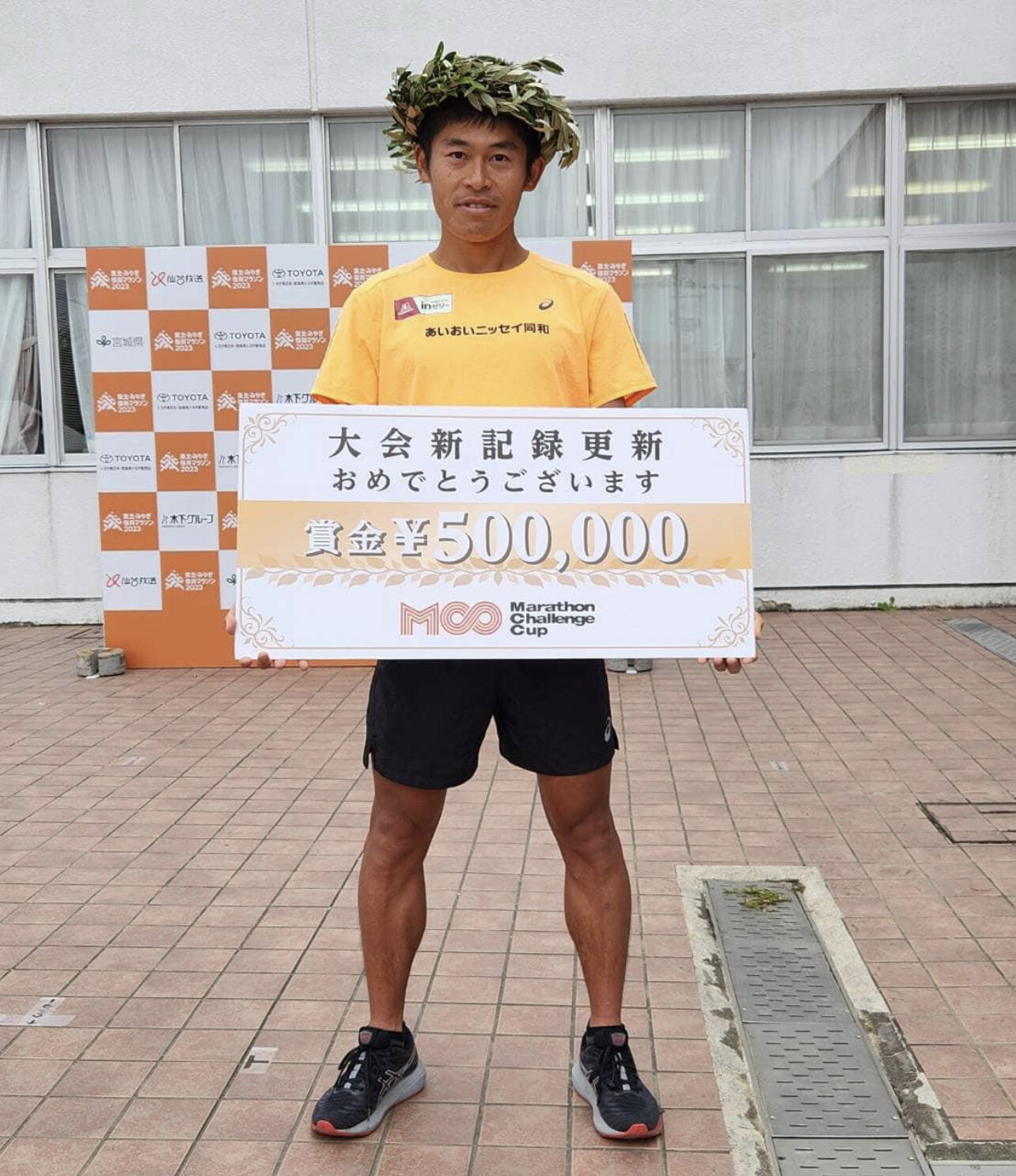
My result was 2:11:48 and I broke course record.
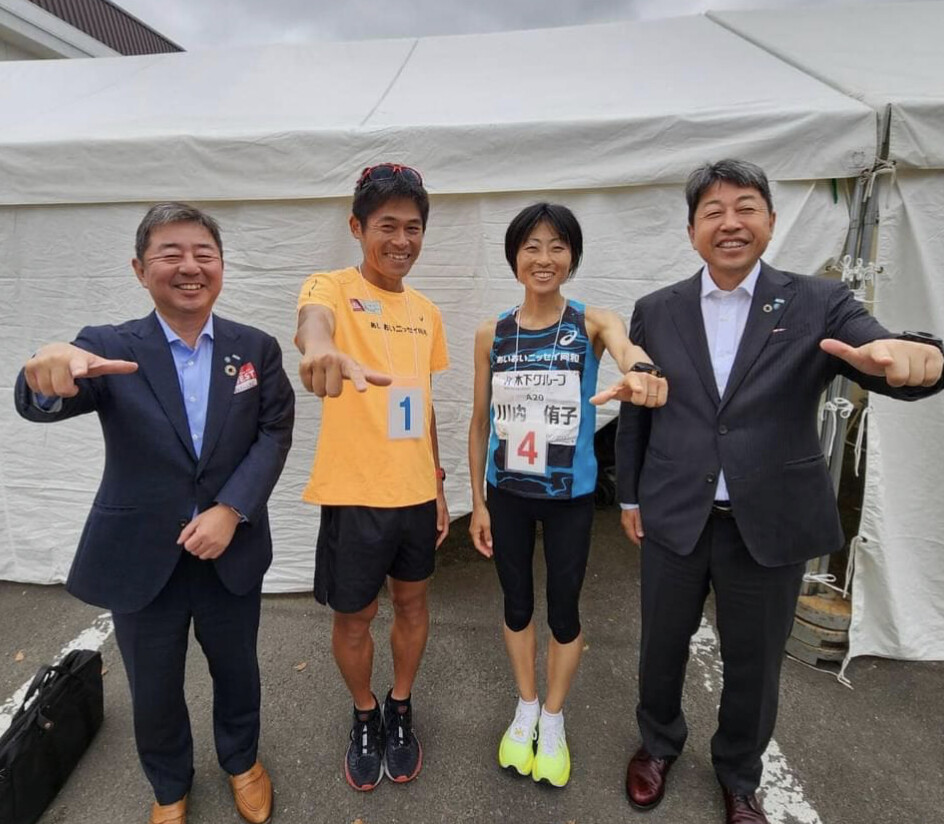
So I got course record bonus(¥500000 = $3350).
I was so good until 25km today.
But I struggled head wind & small hills from 25km.
Part of this course was a revival road built over an area destroyed by the 2011 earthquake and tsunami.
I am proud that I was able to run well in area that is unforgettable for Japanese people.
And my wife YUKO was 4th clocking 2:56'29.
Today's marathon was her first marathon since giving birth last year."
I'm also proud of her efforts for sub-3, who continued to run with the stroller every day.
Login to leave a comment
Koyama and Suzuki secure places on Japan’s Olympic marathon team
Naoki Koyama and Yuka Suzuki won Japan’s Marathon Grand Championship in Tokyo on Sunday (15), guaranteeing their selection for the Paris 2024 Olympic Games.
Koyama won in 2:08:57 with Akira Akasaki finishing a close second in 2:09:06, also securing his place on the team. As was the case in Japan’s Olympic selection race for the last Games, Suguru Osako finished third, meaning his selection is only provisional and not yet guaranteed.
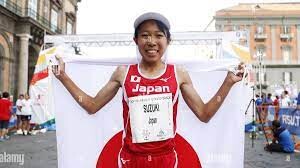
Suzuki’s triumph in the women’s race was more clear cut as she won by 34 seconds in 2:24:09. Mao Ichiyama placed second in 2:24:43 while Ai Hosoda took third place (2:24:50).
Former Boston Marathon winner Yuki Kawauchi was the early leader of the men’s race, building up a 41-second lead at 25km (1:15:36). His lead was still 34 seconds at 30km, but several athletes in the chase pack started to make a move.
Kawauchi was caught with about seven kilometres remaining, but he didn’t drop back. Just four men remained in contention in the final five kilometres – Kawauchi, Koyama, Osako and Akasaki. Koyama made a decisive move just before 40km, and despite a strong finish from Akasaki and Osako, there was no catching Koyama who won in 2:08:57.
The first big move in the women’s race came at about 23km when Mao Ichiyama opened up a bit of a gap ahead of the rest of the leaders. Hosoda then took a turn in the lead at 30km, but Ichiyama regained it a few kilometres later.
Suzuki caught Hosoda at 36km, and then reeled in Ichiyama about 10 minutes later. In the final four kilometres, Suzuki extended her leading margin and eventually crossed the finish in 2:24:09. Ichiyama held off a strong challenge from Hosoda in the closing stages to hold on to second place.
Login to leave a comment
Should I Tune In or Tune Out During My Run?
How to think on challenging runs depends on your intention. Here’s what the research says. Runners often develop a type of tunnel vision. Case in point: In 2006, Scott Douglas went to India to cover a five-day stage race in the Himalayan foothills. The day before the race, he and the eventual winner went for a run from the race headquarters in Mirik. There was a small lake with a perimeter path nearby that was perfect for the occasion—they could easily settle into a rhythm and crank out several 10-minute loops until it was time to call it a day.
When Douglas got back to the lodge, his wife, Stacey, asked, “Wasn’t that amazing!?” It turned out that Stacey had also gone to the lake for a stroll and had come upon a couple dozen women celebrating the Diwali festival. Clad in bright yellow and red wraps and head scarves, they squatted next to the lakeside trail with big bowls of bananas, melons, other fruits, vegetables, and flowers as offerings.

Douglas can relay these details, thanks to a photo Stacey took, but he hadn’t noticed them—not on the first loop around the lake, or the third, or any other one. Without making a conscious decision to do so, he’d been entirely focused on his run.There are far loftier examples of intense concentration in running history. In the 2004 Olympic marathon, Deena Kastor didn’t realize she was in the bronze-medal position until the final 100 meters. During the 2018 Boston Marathon, which was run in an apocalyptic rain-and-wind storm, eventual winners Des Linden and Yuki Kawauchi didn’t know they had taken the lead until well after doing so.
Some of this seeming tunnel vision stems from runners focusing on what are known as “process goals,” such as running the next mile as well as they’re able, rather than thinking about outcomes, such as winning an Olympic medal. Also, during hard efforts, seasoned runners are good at suppressing strong emotions like anxiety that can lead to focusing on distracting and irrelevant information.
Let’s look in more detail at how successful runners hone their ability to concentrate on the task at hand to the point of seeming oblivious to much of what’s going on around them.
Throughout his career as one of the world’s leading exercise psychology researchers, Noel Brick asked athletes ranging from beginners to Olympians a simple question: What were you thinking? The answers provide fascinating insight into what athletes think about during peak performances. Brick has lost count of the number of times he has sat captivated as athletes recounted how they struggled with, and overcame, the challenges they experienced when racing and training.
One of the most common themes that emerges is that running fast is incredibly hard, both physically and mentally. This is true for novices and Olympians alike. But what separates the best from the rest is their ability to extract exceptional performances through a process of deep focus and concentration. These athletes know what they need to focus on and, more importantly, have the mental tools in their kit to do it. Take this example from an elite cross-country runner whom Brick interviewed following one of her toughest races:
I went through two and four [kilometers] on the back of the leading group. And going into the third lap, I started falling off the leading group. And it was everything for me to stay attached [because I was distracted by a spectator] and suddenly I just lost a second’s concentration, and it was like, “Don’t lose concentration, concentrate now,” and I covered the move. I finished second in that race. But if I had fallen off that group, I wouldn’t have gotten back on and that would have been it.
Triumph in a footrace—however that’s defined for you—often requires winning the battle that takes place within your mind. For athletes like the one quoted above, this means resisting a range of different distractions. Some are external, like a spectator who momentarily captures the athlete’s attention. Others are internal thoughts, like worry or the sometimes-irresistible urge to stop or quit.
So how do they do it? What tools do athletes use to remain focused and on task? Just as important, how do they get their concentration back if they lose it?
The first answers to these questions began to emerge in the late 1970s. Across a series of studies, psychologist William Morgan and exercise physiologist Michael Pollock interviewed recreational and elite distance runners to discover what they focused on during training and competition.
Their findings revealed that national- and world-class marathoners adopted what Morgan and Pollock called an “associative strategy.” As described in a classic study, these runners “paid very close attention to bodily input such as feelings and sensations arising in their feet, calves, and thighs, as well as their respiration; . . . [their] pace was largely governed by ‘reading their bodies’; . . . [and] they constantly reminded or told themselves to ‘relax,’ ‘stay loose,’ and so forth.”
The details of what elite runners paid attention to when racing surprised the research team. Up until this point, the consensus was that it was best to tune out from bodily sensations. After all, if running fast was hard, then surely paying less attention to physical feelings would be better than focusing in on them.
But Morgan and Pollock soon realized that these elite marathoners were different from the recreational athletes they usually interviewed. Not only were their physical performances miles apart, literally and figuratively; so, too, were their mental strategies.
What non-elites preferred to do was adopt a range of distraction strategies. In other words, they preferred to tune out from the physical sensations they experienced. They did so by thinking about past memories, imagining listening to music (remember, this was pre-earbuds), singing, or, for one runner, visualizing stepping on the faces of two coworkers she detested.
With these two separate ways of thinking, we’ve now got a dilemma. What is the best way for athletes to think? Which type of strategy helps most: tuning out or tuning in?
These were the questions that grabbed Brick’s attention when he began to plot his PhD research in 2012. By 2014, he had published a review of 112 studies on the attentional strategies of endurance athletes—that is, what they focus their attention on. In it, he sifted through the evidence supporting distraction, on the one hand, and association, on the other.
Before we can answer this question, we first need to consider a much simpler one. What do we mean by best? If better—that is, faster—performance is the goal, then athletes probably want to avoid being distracted at all costs.
But that’s not the full picture. In Brick’s review, he noted that distractions, such as daydreaming, conversing with a training partner, or focusing on scenic views, can help to reduce boredom and make a run more enjoyable. In other words, when the outcomes are less about going faster and more about feeling better, then distraction is best. A recreational runner whom Brick interviewed put it like this:
My mind just wanders whenever I’m out. It’s as if it’s a freedom. It’s my time and it’s me thinking about my things, you know? You’re not sitting in the house or you’re not working or you’re not thinking about things. You’re just thinking about your things.
What these insights tell us is that distraction has its place in our mental tool kit. It can be a useful way to manage our emotions, especially when we need to switch off, chill out, and get away from it all.
One great way to do this is to spend time in natural spaces, such as the countryside or a park. Studies have found increased brain activity relating to calmness and meditative thoughts when people exercise in a park versus crowded urban settings. In the latter, brain activity linked with negative thoughts such as rumination has been found to be much higher than when people exercise in more natural settings.
But this is only half the story. Although positive distractions like nature have benefits, performing to the best of their capabilities is a more immediate priority for athletes during competition. In these instances, tuning in might be a better approach than tuning out.
When Brick dug deeper into the results of more than 35 years of research, he soon discovered that the effects of association strategies on performance were much more nuanced than previously thought. When athletes focused excessively on bodily sensations like breathing or muscle soreness, their performance suffered. Doing so made tasks feel harder. In contrast, strategies like keeping relaxed or optimizing movement technique improved performance, sometimes without increasing how hard a task felt.
An intricate study involving 60 experienced runners helps to explain some of these nuances. These individuals completed three 5-kilometer runs, once on a laboratory treadmill, once on a 200-meter indoor running track, and once on a flat outdoor road route. Half the runners—the association group—were asked to tune in every 30 seconds during each run to the heart rate and pace readings on their watch. The other half were assigned to a distraction strategy of listening to music through headphones. All participants were instructed to run as fast as they would like during each 5-kilometer run. The research team also recorded how good or bad runners felt, how hard each run was perceived to be, and their final 5-kilometer times.
In line with research on other distraction strategies, the findings revealed that those who listened to music felt calmer and more tranquil during their runs. Runners also felt better when running outdoors than they did in the indoor settings.In terms of performance, however, runners in the heart rate and pace-monitoring group ran faster than the music group by an average of 1 minute and 47 seconds. In a sport in which participants obsess over every second of a race time, that’s a significant difference!
Just as interesting were the effects of location on performance. Although 5-kilometer times were slower on the treadmill than both the track (by 3 minutes and 46 seconds) and the road route (by 4 minutes and 2 seconds), running on the treadmill felt hardest. This was most likely because of the treadmill environment, devoid of mental stimulation or distraction. In this setting, athletes probably focused on little else other than how tough their run felt. In contrast, running the outdoor road route, the fastest location of all, felt easiest.
Periodically monitoring bodily sensations and tuning into pace allows for better performance. In contrast, tuning out might result in a slower pace but can help make an activity feel more pleasant. In effect, our focus matters, and when best performance is a priority, then having the mental skill to focus effectively is essential.
Login to leave a comment
Yuki Kawauchi snags second BMO Vancouver Marathon victory
Japan’s Yuki Kawauchi claimed his second BMO Vancouver Marathon title on Sunday, finishing in 2:17:05–just over two minutes slower than his course-record-setting time of 2:15:01 in the 2019 marathon, and good enough to secure the 36-year-old a decisive victory against Toronto’s David Mutai (20:20:05) and Mississauga’s Sergio Raez Villanueva (2:23:21). Vancouver was just one of a number of marathons in Canada and Europe on Sunday.
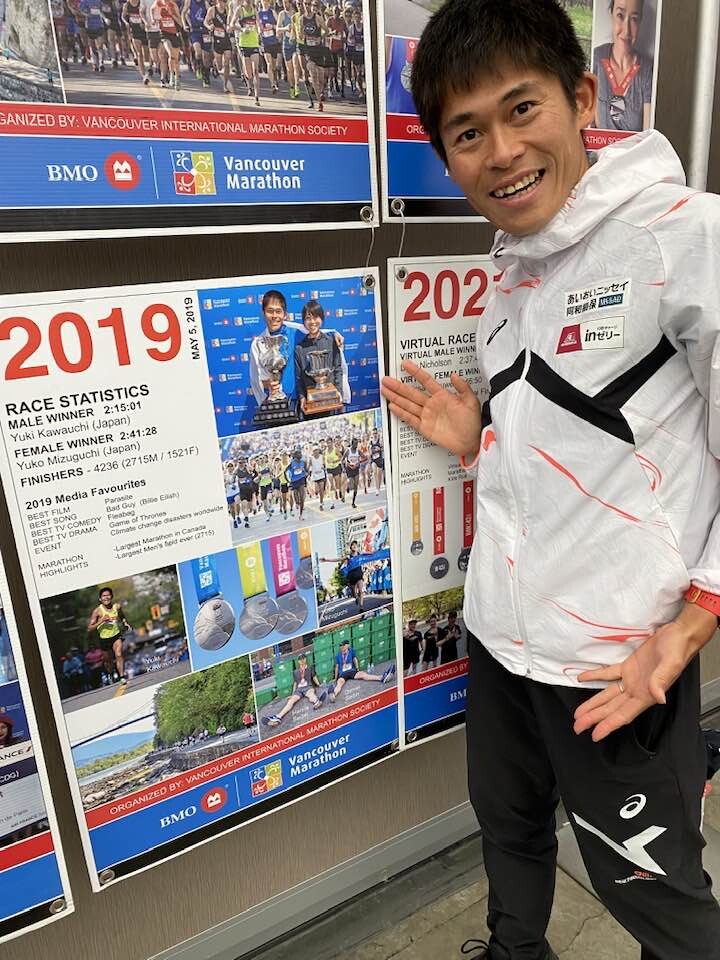
With his latest victory, Kawauchi adds to an impressive list of accomplishments as a marathoner. The 2018 Boston Marathon champion was recognized by the Guinness World Records in 2021 for becoming the first person to run 100 sub-2:20 marathons.
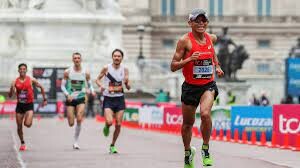
Vancouver’s own Dayna Pidhoresky won the women’s marathon in 2:34:27, ahead of fellow Canadian Rozlyn Boutin (2:48:09) and U.S. marathoner Callahan McKenzie (2:49:28). Highlights of Pidhoresky’s running resume include winning the Canadian Olympic Trials Marathon in 2019 and being a four-time winner of the Around the Bay 30K race in Hamilton, Ont.
by Paul Baswick
Login to leave a comment
BMO Vancouver Marathon
The BMO Vancouver Marathon is one of Vancouver’s most iconic marathon events. The event features a full marathon, marathon relay, half marathon, 8k run, and streets lined with thousands of spectators. Runners can expect to experience a little bit of everything that Vancouver has to offer as they run a straight course that starts at Queen Elizabeth Park, and finishes...
more...Defending champion Kipruto to take on Bekele, Kamworor, Farah, Tola and Kiptum at London Marathon
The 2023 TCS London Marathon elite men’s field will be a landmark occasion when, for the first time in history, two men who have run inside 2:02 will be together on the same start line at the World Athletics Platinum Label road race on 23 April.
Ethiopia’s Kenenisa Bekele, the second-fastest man ever with a PB of 2:01:41, and Kenya’s Kelvin Kiptum, the winner of the 2022 Valencia Marathon and the fastest marathon debutant in history (2:01:53) have both been confirmed for the race.
With Ethiopian duo Birhanu Legese (2:02:48) and Mosinet Geremew (2:02:55) also in the field, it means this year’s London Marathon will have four of the five fastest men in marathon history on the start line.
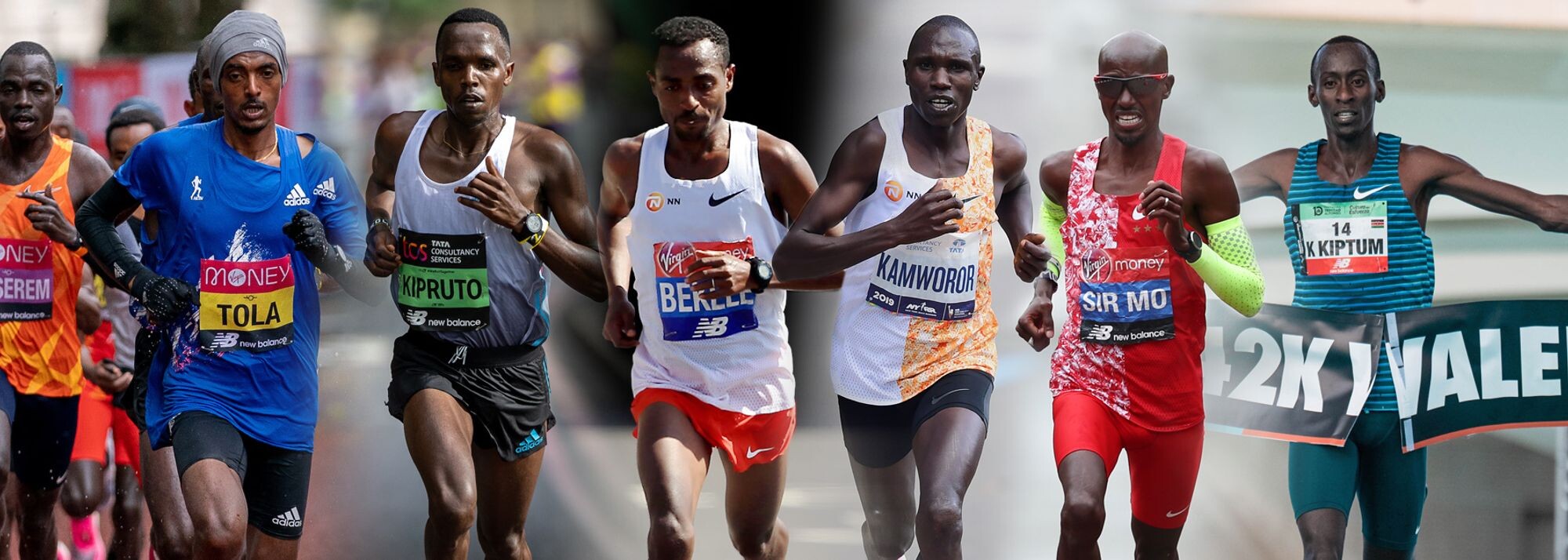
In addition, the defending champion Amos Kipruto of Kenya and world champion Tamirat Tola of Ethiopia will also return to London, along with multiple world and Olympic champion Mo Farah and two-time New York Marathon winner Geoffrey Kamworor.
Kipruto’s win at last year’s London Marathon was the biggest victory of his career and his first Abbott World Marathon Major triumph. “Winning last year’s TCS London Marathon was an incredible experience for me,” said the 30-year-old, who was second at last year’s Tokyo Marathon behind world record-holder Eliud Kipchoge and third in the 2019 World Championships. “I am now preparing hard for this year’s race and I can’t wait to return to London as the champion.
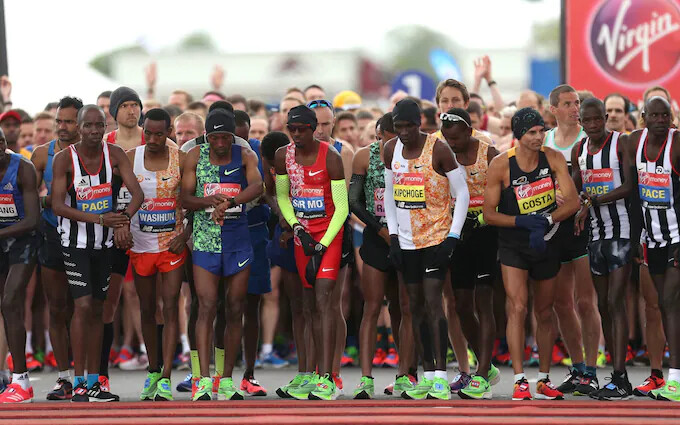
“London always has a really strong field and this year is the same so I know I will face a battle to defend my title, but I’m confident and looking forward to it.”
Tola, who won the world title in Oregon last year, will be one of several men aiming to prevent Kipruto from winning back-to-back titles. Tola, 31, is in a fine run of form over the 26.2-mile distance, winning the 2021 Amsterdam Marathon and finishing third at the 2022 Tokyo Marathon (behind Kipchoge and Kipruto) before winning his world title last summer.
Also in the field is last year’s runner-up Leul Gebresilase of Ethiopia, and the second-placed finisher in London in both 2020 and 2021 Vincent Kipchumba.
The new holder of the Oceanian marathon record Brett Robinson, who ran 2:07:31 in Fukuoka last year, returns to London after finishing eighth in 2022. Japan’s 2018 Boston Marathon champion Yuki Kawauchi is making his London Marathon debut in what will be his 114th marathon. By finishing in London, Kawauchi will be eligible for his Abbott World Marathon Majors six star medal for finishing all six major marathons: London, Tokyo, Boston, Berlin, Chicago and New York.
The elite women’s field will be announced tomorrow.
Elite men’s field
Kenenisa Bekele (ETH) 2:01:41
Kelvin Kiptum (KEN) 2:01:53
Birhanu Legese (ETH) 2:02:48
Mosinet Geremew (ETH) 2:02:55
Amos Kipruto (KEN) 2:03:13
Tamirat Tola (ETH) 2:03:39
Kinde Atanaw (ETH) 2:03:51
Leul Gebresilase (ETH) 2:04:02
Vincent Kipchumba (KEN) 2:04:28
Seifu Tura (ETH) 2:04:29
Mo Farah (GBR) 2:05:11
Geoffrey Kamworor (KEN) 2:05:23
Yuki Kawauchi (JPN) 2:07:27
Brett Robinson (AUS) 2:07:31
Dewi Griffiths (GBR) 2:09:49
Rory Linkletter (CAN) 2:10:24
Chris Thompson (GBR) 2:10:52
Tom Gröschel (GER) 2:11:03
Ben Connor (GBR) 2:11:20
Joshua Griffiths (GBR) 2:11:28
Frank Lara (USA) 2:11:32
Luke Caldwell (GBR) 2:11:33
Weynay Ghebresilasie (GBR) 2:11:57
Emile Cairess (GBR) debut.
by World Athletics
Login to leave a comment
TCS London Marathon
The London Marathon was first run on March 29, 1981 and has been held in the spring of every year since 2010. It is sponsored by Virgin Money and was founded by the former Olympic champion and journalist Chris Brasher and Welsh athlete John Disley. It is organized by Hugh Brasher (son of Chris) as Race Director and Nick Bitel...
more...Kenenisa Bekele leads list of all-stars in London
Four of the five fastest marathon men in history go head-to-head in mouth-watering race in London on April 23.
The TCS London Marathon has pulled out all the stops to put together one of the greatest men’s line-ups of all time. When it comes to the best marathon runners on the planet, only Eliud Kipchoge, is missing.
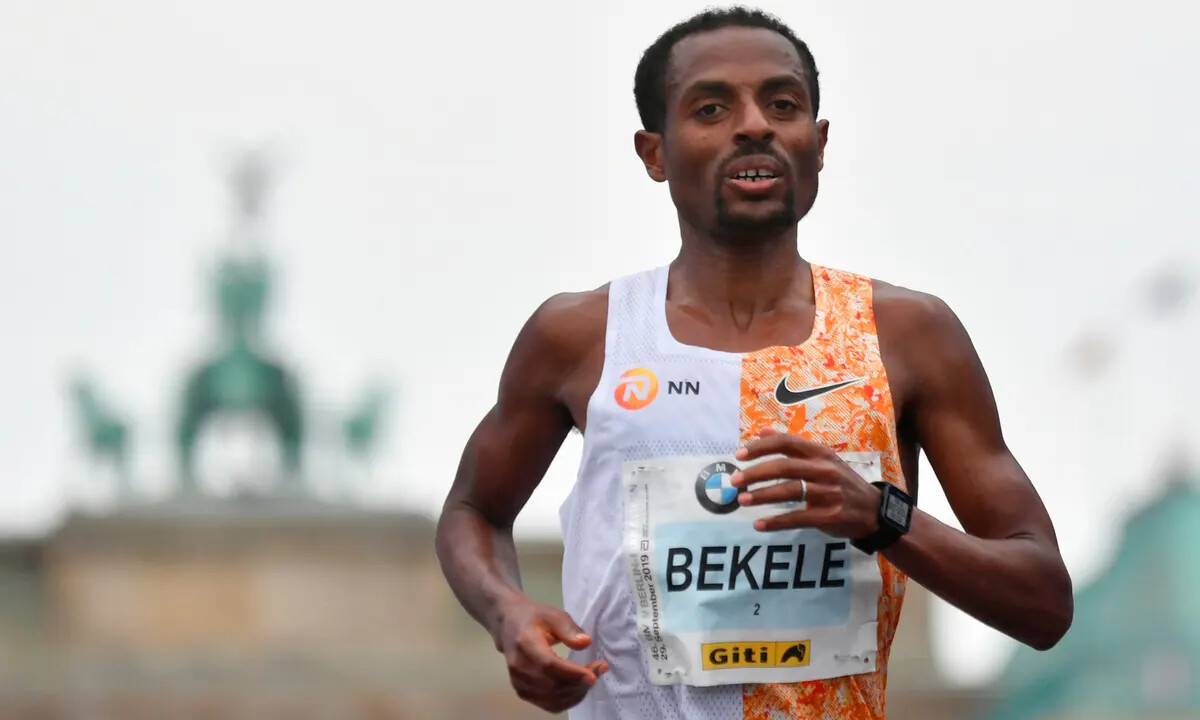
Kipchoge is racing in Boston instead but he would have his work cut out if he had chosen to race in London as the field includes:
» Kenenisa Bekele – No.2 on the all-time rankings with 2:01:41, former world 5000m and 10,000m record-holder and multiple winner of Olympic and world titles on the track and country.
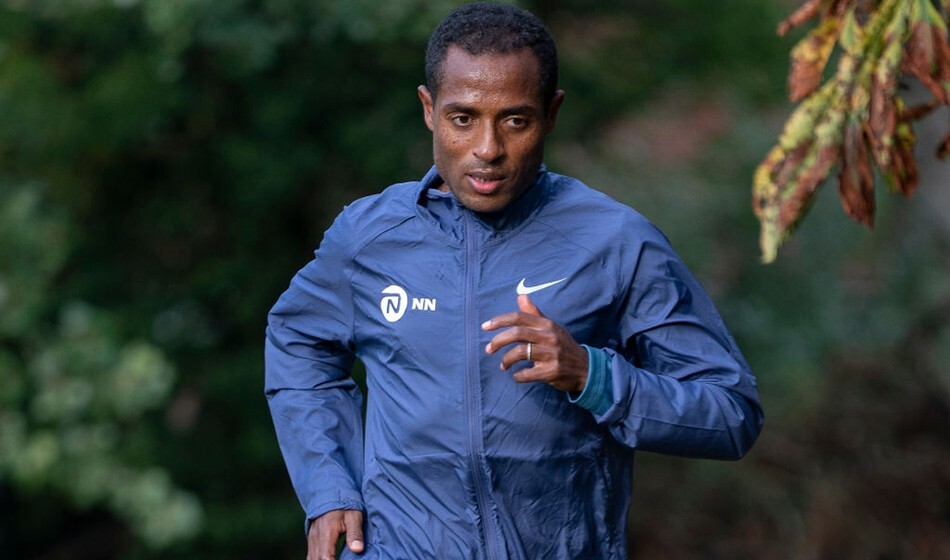
» Kelvin Kiptum – the fastest debutant in history with a best of 2:01:53 from Valencia in December.
» Amos Kipruto – defending London Marathon winner from last October.
» Tamirat Tola – reigning world champion from Eugene last summer.
» Mo Farah – British record-holder and 10-time global track champion.
In addition to this the field boasts Ethiopians Birhanu Legese and Mosinet Geremew, who have both run 2:02 marathons, plus last year’s London runner-up Leul Gebresilase, the 2020 and 2021 runner-up Vincent Kipchumba and two-time New York City Marathon winner Geoffrey Kamworor.
Kipruto, the Kenyan who won last October, said: “I am now preparing hard for this year’s race and I can’t wait to return to London as the champion.
“London always has a really strong field and this year is the same so I know I will face a battle to defend my title, but I’m confident and looking forward to it.”
Brett Robinson, the Australian who ran an Oceania record of 2:07:31 in Fukuoka late last year, will hope to improve on his eighth place from London last October. Sean Tobin, who earned headlines recently for his Antarctic marathon exploits, makes his road marathon debut in London.
Yuki Kawauchi, the Japanese runner who prevailed in terrible weather to win the 2018 Boston Marathon, is also in the line-up.
TCS London Marathon – elite men’s field
Amos Kipruto (KEN, PB 2:03:13)
Kenenisa Bekele (ETH, 2:01:41)
Kelvin Kiptum (KEN, 2:01:53)
Birhanu Legese (ETH, 2:02:48)
Mosinet Geremew (ETH, 2:02:55)
Tamirat Tola (ETH, 2:03:39)
Kinde Atanaw (ETH, 2:03:51)
Leul Gebresilase (ETH, 2:04:02)
Vincent Kipchumba (KEN, 2:04:28)
Seifu Tura (ETH, 2:04:29)
Sir Mo Farah (GBR, 2:05:11)
Geoffrey Kamworor (KEN, 2:05:23)
Yuki Kawauchi (JPN, 2:07:27)
Brett Robinson (AUS, 2:07:31)
Dewi Griffiths (GBR, 2:09:49)
Rory Linkletter (CAN, 2:10:24)
Chris Thompson (GBR, 2:10:52)
Tom Gröschel (GER, 2:11:03)
Ben Connor (GBR, 2:11:20)
Joshua Griffiths (GBR, 2:11:28)
Frank Lara (USA, 2:11:32)
Luke Caldwell (GBR, 2:11:33)
Weynay Ghebresilasie (GBR, 2:11:57)
Phil Sesemann (GBR, 2:12:10)
Charlie Hulson (GBR, 2:13:34)
Andrew Heyes (GBR, 2:13:52)
Adam Craig (GBR, 2:13:58)
Alex Monroe (USA, 2:14:15)
Ross Braden (GBR, 2:14:32)
Nick Earl (GBR, 2:14:38)
Nigel Martin (GBR, 2:15:19)
Ronnie Richmond (GBR, 2:16:59)
Nicholas Bowker (GBR, 2:17:35)
Alex Milne (GBR, 2:17:40)
Josh Lunn (GBR, 2:17:59)
Fraser Stewart (GBR, 2:18:40)
Matthew Dickinson (GBR, 2:19:23)
Emile Cairess (GBR, Debut)
Sean Tobin (IRL, Debut)
Ryan Forsyth (IRL, Debut)
The men’s and women’s wheelchair fields will be announced on Wednesday afternoon (Feb 1) while the elite women’s field will be announced on Thursday (Feb 2).
by Jason Henderson
Login to leave a comment
TCS London Marathon
The London Marathon was first run on March 29, 1981 and has been held in the spring of every year since 2010. It is sponsored by Virgin Money and was founded by the former Olympic champion and journalist Chris Brasher and Welsh athlete John Disley. It is organized by Hugh Brasher (son of Chris) as Race Director and Nick Bitel...
more...Get Ready to Run with Marathon Legends
Run with Abbott World Marathon Major Legends!
The AbbottWMM Global Run Club today launched Legends Week – a new free virtual Challenge taking place from August 15-19.
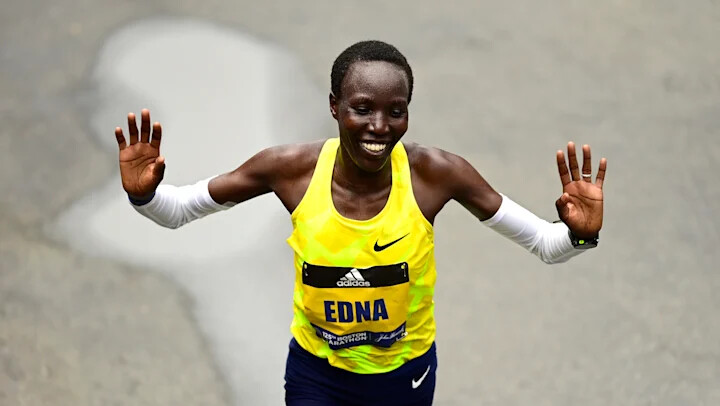
Runners must complete one challenge a day, for five days, to earn their Legends Week virtual badge and enter a prize draw for a special signed gift from five incredible athletes.
Each daily workout has been chosen by one of the legends to offer a mix of distances and training styles for everyone to enjoy.Edna Kiplagat, the Kenyan superstar who is a former World Champion, three-time AbbottWMM Series Champion and a Six Star finisher. She loves to add some speed and repetitions into her weekly routine and kicks things off with 4 x 1-mile repeats.Deena Kastor, a former American record holder and Olympic Bronze medalist for the marathon but also a 5km champion too! She set the 5km world record on the road at Carlsbad in 2002 (14:54) and she still enjoys racing them today.
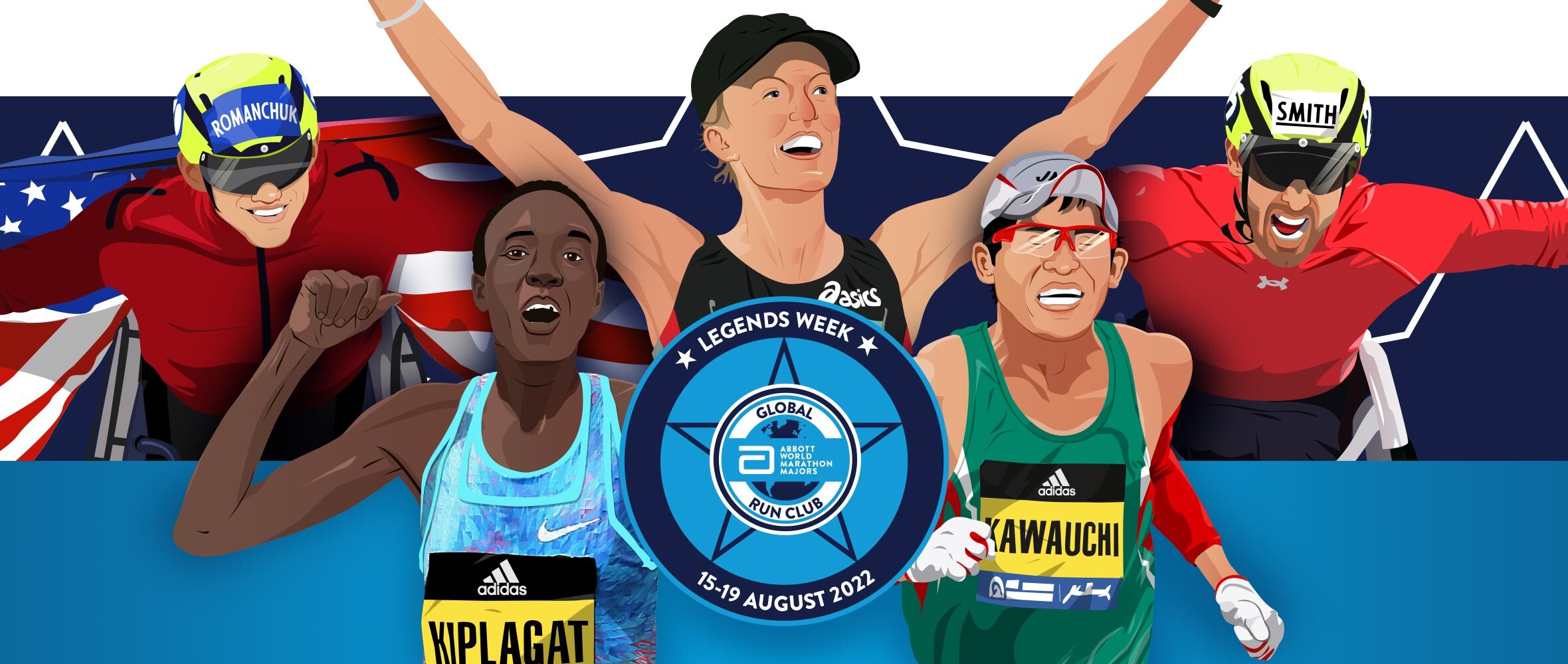
Multiple Major winner Daniel Romanchuk is a master of many distances. Representing the United States, he claimed the gold medal and a new World Record at the Tokyo Paralympic Games in the T54 400m in 45:72, coming from behind to win by 0.1 second! His workout is 4 x 400m on the track or road.
British wheelchair racer Johnboy Smith the newly-minted 2022 Commonwealth Games Marathon champion, is also a Six Star finisher! Smith, who took second place in the 2017 New York City Marathon, completed his Six Star journey in Tokyo earlier this year. His challenge is a six-mile run to celebrate this success.
Japanese marathon legend Yuki Kawauchi who ran his final mile of that grueling 2018 Boston Marathon in 5:12! He survived rain, wind, and hail to take the finisher tape on Boylston Street for the Boston Marathon victory. We are closing the week with a 1-mile challenge to celebrate and appreciate that amazing feat.
This is a fun and free challenge to motivate runners before we move into a busy fall calendar with four Abbott World Marathon Majors in close succession. A chance to mix things up, test your limits and enjoy a break from the norm!
Participants can walk or run your way through these workouts:
Monday 15 Aug: 4 x 1-mile with Edna Kiplagat
Tuesday 16 Aug: 5km with Deena Kastor
Wednesday 17 Aug: 4 x 400m with Daniel Romanchuk
Thursday 18 Aug: 6 miles with Johnboy Smith
Friday 19 Aug: 1-mile with Yuki Kawauchi
Login to leave a comment
Here's How How Evans Chebet of Kenya Won the 2022 Boston Marathon
He led a Kenyan podium sweep in the deepest Boston men’s pro field ever.
Thanks to covering the stretch between 35 and 40 kilometers in an astounding 13:55, Evans Chebet of Kenya won the 2022 Boston Marathon in 2:06:51.
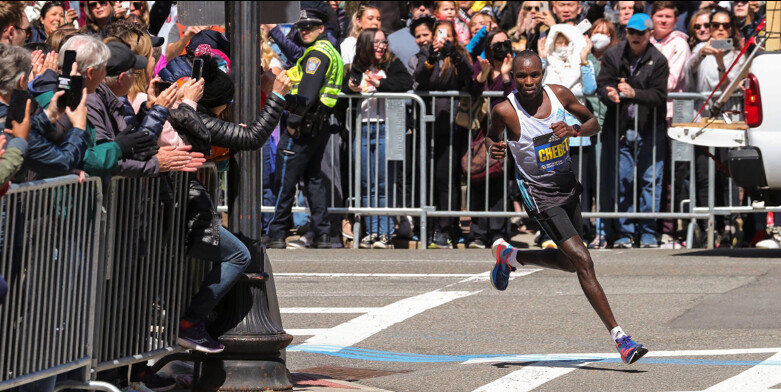
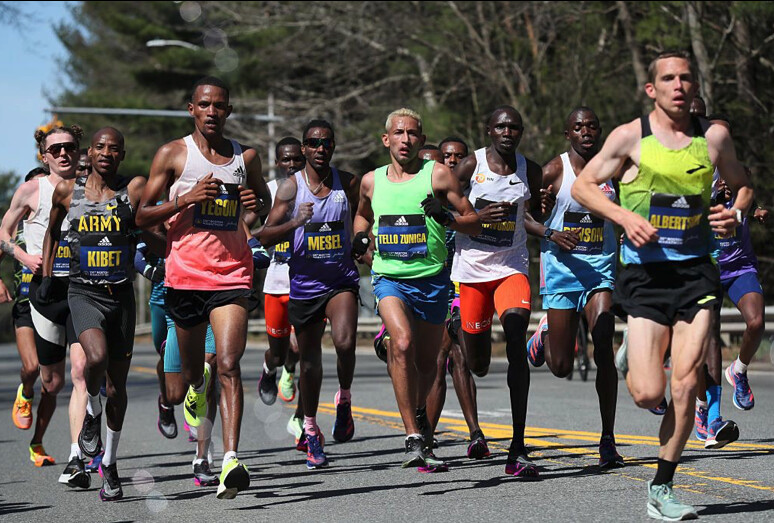
Lawrence Cherono, the 2019 winner, and Benson Kipruto, the 2021 champion, made it a Kenyan podium sweep. Cherono placed second in 2:07:21. Kipruto took third in 2:07:27.
Scott Fauble was the top American, placing seventh in 2:08:52. Fauble was also the top American in 2019, when he also finished seventh. Elkanah Kibet, ninth in 2:09:07, and CJ Albertson, 13th in 2:10:23, were the second and third U.S. finishers. All three set personal bests.
Here’s a full breakdown of the 2022 Boston Marathon men’s race, from how the race was won to the biggest surprise to the $$$.
The Winner: Evans Chebet
Chebet, 33, has been near the top of world marathoning for the past few years. Only one man in the field has a better personal best than his 2:03:00, and before today he had placed first or second in 10 marathons. But his Boston win was still a big step forward in his career.
Chebet’s best races before today were in high-level marathons such as Valencia, Prague, and Seoul, not in World Marathon Majors. He placed third in Berlin in 2016, fourth in Tokyo in 2017, and fourth last fall in London. He started Boston once before today, in 2018, when he was among the one-third of elite entrants who dropped out during that year’s horrific wind, rain, and cold.
Certainly his momentum was heading in the right direction for today’s Boston. Other than that fourth in London in October, he has been on a winning streak, taking titles in Buenos Aries in 2019 and Lake Biwa and Valencia (where he set his PR) in 2020. Chebet will no doubt cherish but not be complacent about his new status among the world’s best. He likely knows that since 2009, only one man, Lelisa Desisa of Ethiopia (2013 and 2015), has won more than one Boston title.
Where the Race Was Won
Chebet covered the 22nd mile in 4:27. Or as Geay apparently thought, “4:27?!” The Tanzanian looked at his watch, either in disbelief or in regret about how much time remained in the race now that he’d opted to go with Chebet. Whatever the case, Chebet dropped Geay a couple of minutes later en route to a 4:26 23rd mile. Then he ran another 4:26 mile.
Chebet’s 13:55 5K between 35K and 40K is good enough to win most open 5K road races. Cherono and Kipruto gave chase and overtook Geay in the process, but Chebet’s victory was never in doubt once he started his fabulous display of late-race speed. Chebet acknowledged as much at the postrace press conference, saying through an interpreter he was confident that his move would get him the win.
The Biggest Surprise
It was a fast, deep race. The 10th finisher, Kinde Atanaw of Ethiopia, ran 2:09:16. That’s 35 seconds faster than Benson Kipruto ran to win the 2021 edition.
Wait, that’s surprising? Wasn’t this said to be the best Boston field in years? Didn’t the postponement of the London Marathon to October funnel that many more elites to the start line in Hopkinton? And doesn’t everyone run fast in the super shoe era?
Well, there were super shoes six months ago when winner Kipruto was the only one to break 2:10. Also, despite what may have appeared to be the case on television, the weather was challenging. The wind was slight—usually no more than 5 miles per hour while the pros were racing—but not favorable. Des Linden, who won during the 2018 monsoon and knows from wind, said there was a persistent headwind. A weather team from the University of Massachusetts at Lowell who tracked conditions confirmed to Runner’s World there was an atypical easterly (i.e., in-their-race) wind throughout the race.
And, as we noted above, it’s become common at Boston for the men to not really start racing until the final five miles. Today, they happened to do so after an opening half of 1:03:24, almost three minutes faster than the main pack ran last year.
So, yes, a bunch of really fast guys ran fast today at Boston. But that outcome was neither predictable nor weather-enabled.
In recent years, the men’s race at Boston has often featured a large lead pack cresting Heartbreak Hill together, and then someone shattering the pack with an aggressive move soon after. That trend continued today.
Chebet was among a pack of 20 that hit halfway in 1:03:24. He occasionally appeared near the front of the pack as they moved through the Newton hills, looking eager to get going, then perhaps reminding himself it was too early, and disappearing back into the group.
Fifteen men came up and over the most famous hill in running together. With five miles to go, two-time New York City winner Geoffrey Kamworor and last year’s champ, Benson Kipruto, appeared at the front for the first time. Chebet looked around some more. Then he started to push.
Within a minute, the field was single file. Only Gabriel Geay of Tanzania went with Chebet. Kipruto and 2019 winner Lawrence Cherono ran together in third and fourth
Tidbits From the Top 20
In addition to runner-up Lawrence Cherono (2019) and third-place finisher Benson Kipruto (2021), there were two other former Boston champions in the top 20. Lemi Berhanu of Ethiopia, the 2016 winner, placed 11th in 2:09:43. Yuki Kawauchi of Japan, winner during the apocalyptic storm of 2018, finished 20th in 2:12:55.
If sixth-place finisher Albert Korir and his knock-kneed gait looked familiar, that’s because he won the 2021 New York City Marathon in November.
Besides Scott Fauble, Elkanah Kibet, and CJ Albertson, there were four other American men in the top 20: Matthew McDonald, 14thin 2:10:35 (a PR); Reed Fischer, 16th in 2:10:54 (also a PR); Mick Iacofano, 17th in 2:11:48; and Colin Bennie, 19th in 2:12:08.
The Prize Money
Evans Chebet, $150,000
Lawrence Cherono, $75,000
Benson Kipruto, $40,000
by Runner’s World
Login to leave a comment
Boston Marathon
Among the nation’s oldest athletic clubs, the B.A.A. was established in 1887, and, in 1896, more than half of the U.S. Olympic Team at the first modern games was composed of B.A.A. club members. The Olympic Games provided the inspiration for the first Boston Marathon, which culminated the B.A.A. Games on April 19, 1897. John J. McDermott emerged from a...
more...Training mates Evans Chebet, Benson Kipruto plot Boston Marathon conquest
The withdrawal of the Ethiopian long distance legend Kenenisa Bekele and Kenya’s Titus Ekiru from this years’ Boston Marathon may have grabbed the headlines, but the field still has some formidable names.
Ethiopia’s Birhanu Legese (2:02:48) is now the fastest in the field, with Kenya's Evans Chebet the second fastest in the startlist with a personal best of 2:03:00 which he clocked in the 2020 Valencia Marathon.
Former champions Geoffrey Kirui (2017), Japan’s Yuki Kawauchi (2018), Kenya’s Lawrence Cherono (2019) and the defending champion Benson Kipruto will all be clashing for the title on Monday.
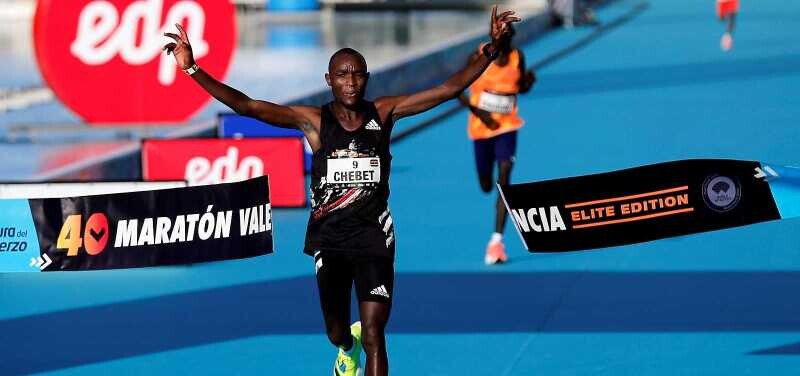
Other athletes who will be competing from Kenya are Bernard Koech (2:04:09), former New York Marathon champion Geoffrey Kamworor (2:05:23), Eric Kiptanui (2:05:47), Bethwel Yegon (2:06:14) who was second in Berlin Marathon and New York Marathon champion Albert Korir (2:08:03).
But the duel has also some finest athletes from Ethiopia, the likes of Sisay Lemma (2:03:36), Kinde Atanaw (2:03:51), Lemi Berhanu (2:04:33) and Lelisa Desisa (2:04:45).
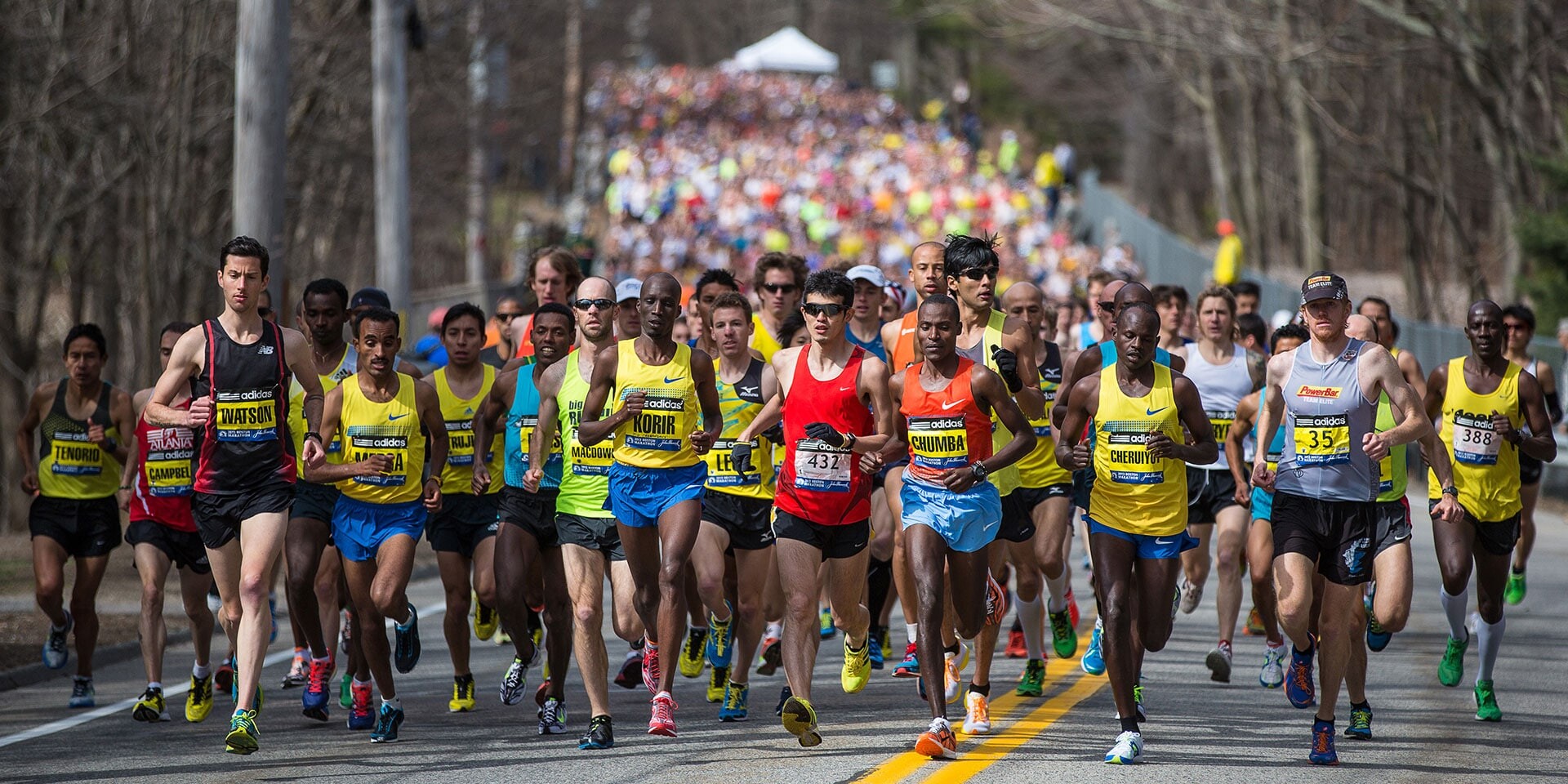
Training mates Chebet and defending champion Kipruto, who train in Kapsabet, Nandi County under 2Running Club, are optimistic that they will be able to run well.
Chebet said that the lineup is strong and they have discussed how they will compete.
Chebet competed in Boston in 2018 where a big number of athletes dropped out including him due to a storm.
“I’m heading to Boston Marathon once again and my target is to run well. Last time I competed in the race the weather affected us and had to drop at the 30km mark but I have seen the weather this year is fair,” said Chebet.
But for Chebet, he will be competing against Cherono whom he outsprinted in the last 50 meters in 2020 when they competed at the Valencia Marathon.
He said that he knows that it will be a tight contest but they are up to the task.
“I can see Cherono will also be competing in the race and having run with him at the Valencia Marathon, he is a tough opponent,” added Chebet.
Kipruto wants to ink his name in history books by defending his title.
“I’m glad to be back in Boston Marathon and my plan is to defend the title I won last year. The startlist is rich but I believe I would be able to run well and join the list of multiple champions,” said Kipruto.
by Bernard Rotich
Login to leave a comment
Boston Marathon
Among the nation’s oldest athletic clubs, the B.A.A. was established in 1887, and, in 1896, more than half of the U.S. Olympic Team at the first modern games was composed of B.A.A. club members. The Olympic Games provided the inspiration for the first Boston Marathon, which culminated the B.A.A. Games on April 19, 1897. John J. McDermott emerged from a...
more...Two-time New York City Marathon champion Geoffrey Kamworor will be making his debut on the streets of Boston on April 18
Three-time World Half marathon champion Geoffrey Kamworor has set his focus on next month's Boston marathon after shaking off a groin injury that ruled him out of last month's Agnes Tirop Memorial World Cross Country Tour.
The two-time New York City Marathon champion will be making his debut on the streets of Boston on April 18 seeking to add to his burgeoning accolades on American soil.
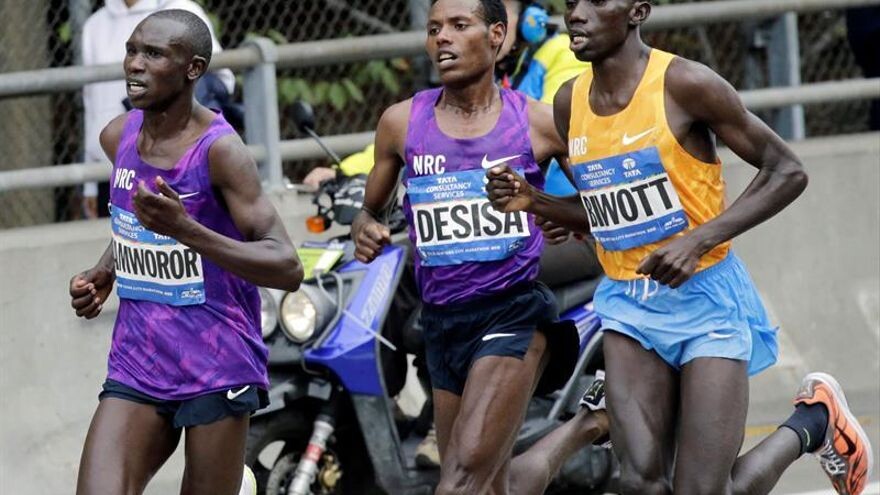
“I was well prepared for the Agnes Tirop World Cross Country Tour but it was very unfortunate that two weeks to the event, I got a groin injury and I had to pull out,” said the 2015 world championships 10,000m silver medalist.
Kamworor said he is targeting a podium finish on debut.
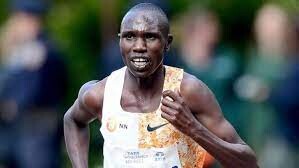
“I feel in great shape, just trying to sharpen my skills a little bit. My training has been flawless and I am hoping for a good result in Boston,” he added.
The four-time world cross country champion (two in senior and two in junior) will be joining a host of top athletes in Boston including compatriots Benson Kipruto (defending champion), Geoffrey Kirui (2017 champion) Evans Chebet, Titus Ekiru, Lawrence Cherono (2019 winner), Bernard Koech, Eric Kiptanui, Bethwell Yegon and Albert Korir (New York City Marathon champion).
Rivals Ethiopia are also represented by a huge, talented contingent led by three-time Olympic champion and the second-fastest marathon runner in history with a best of 2:01:41 Kenenisa Bekele, Lemi Berhanu (2016 winner), Lelisa Desisa (2015 and 2013 winner), Bayelign Teshager and Jemal Yimer.
Italian Eyob Faniel of Italy, Japan's Yuki Kawauchi (2018 winner), Amanuel Mesel, Tsegay Tuemay Weldibanos (Eritrea), Scott Fauble, Colin Bennie, Jared Ward, Ian Butler, Mick Iacofano, Jake Riley, Jerrell Mock, Matt McDonald, Matt Llano, Elkanah Kibet, CJ Albertson, Diego Estrada (USA), Trevor Hofbauer (Canada), Juan Luis Barrios (Mexico) and Gabriel Geay of Tanzania are also in the mix.
by Emmanuel Sabuni
Login to leave a comment
Boston Marathon announces their fastest ever men’s field
Organisers of the Boston Marathon have revealed their fastest ever men’s field for the 126th edition of the World Athletics Platinum Elite Label road race on 18 April.
It features 12 men with lifetime bests faster than 2:06, led by three-time Olympic champion Kenenisa Bekele of Ethiopia, the second fastest marathon runner in history with a best of 2:01:41.
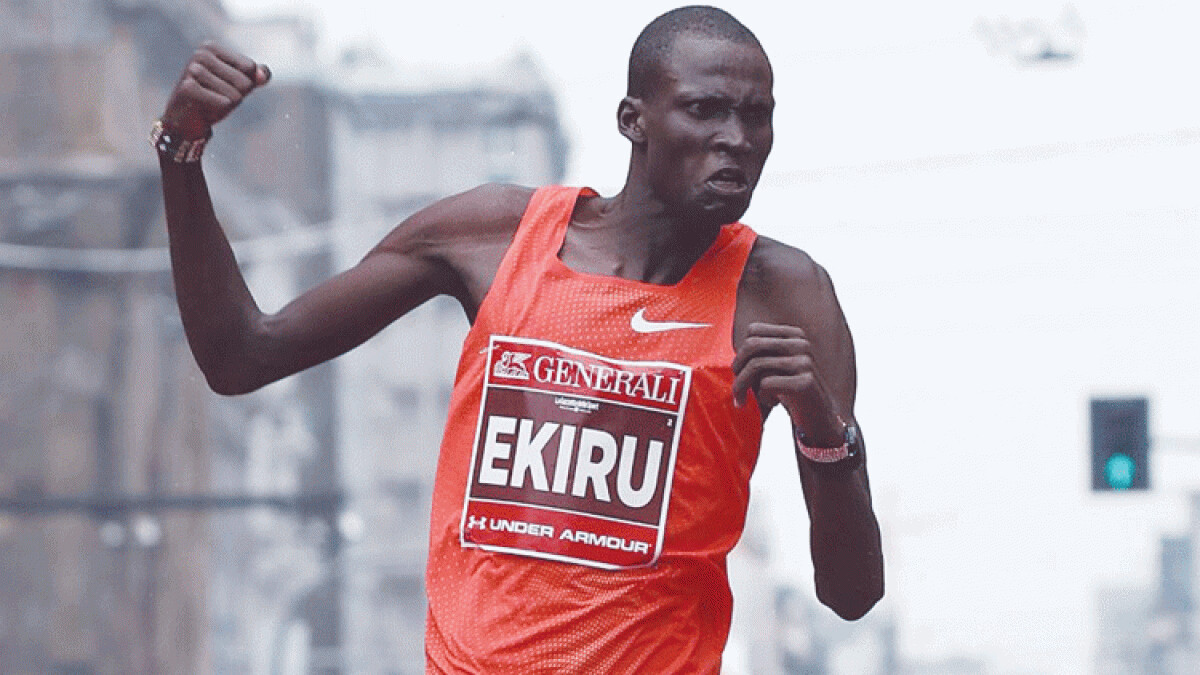
“I recognise the tradition of the Boston Marathon and look forward to racing in April,” said Bekele. “For many years Ethiopia has had a strong tradition in Boston, and I am excited to join that legacy. I have long looked forward to racing the Boston Marathon.”
Seven of the past eight winners will also return to Boston, including 2021 champion Benson Kipruto of Kenya. Lawrence Cherono (2019), Yuki Kawauchi (2018), Geoffrey Kirui (2017), Lemi Berhanu (2016), and Lelisa Desisa (2015 and 2013) are the other six former winners.
“Being back in Boston as a champion is very exciting, but at the same time I feel the pressure and the responsibility to defend my title,” said Kipruto. “I really admire those athletes that managed to be multiple champions in big races. I really want to do my best to be one of them and I really hope to make my name among those Boston champions that people will remember for a long time.”
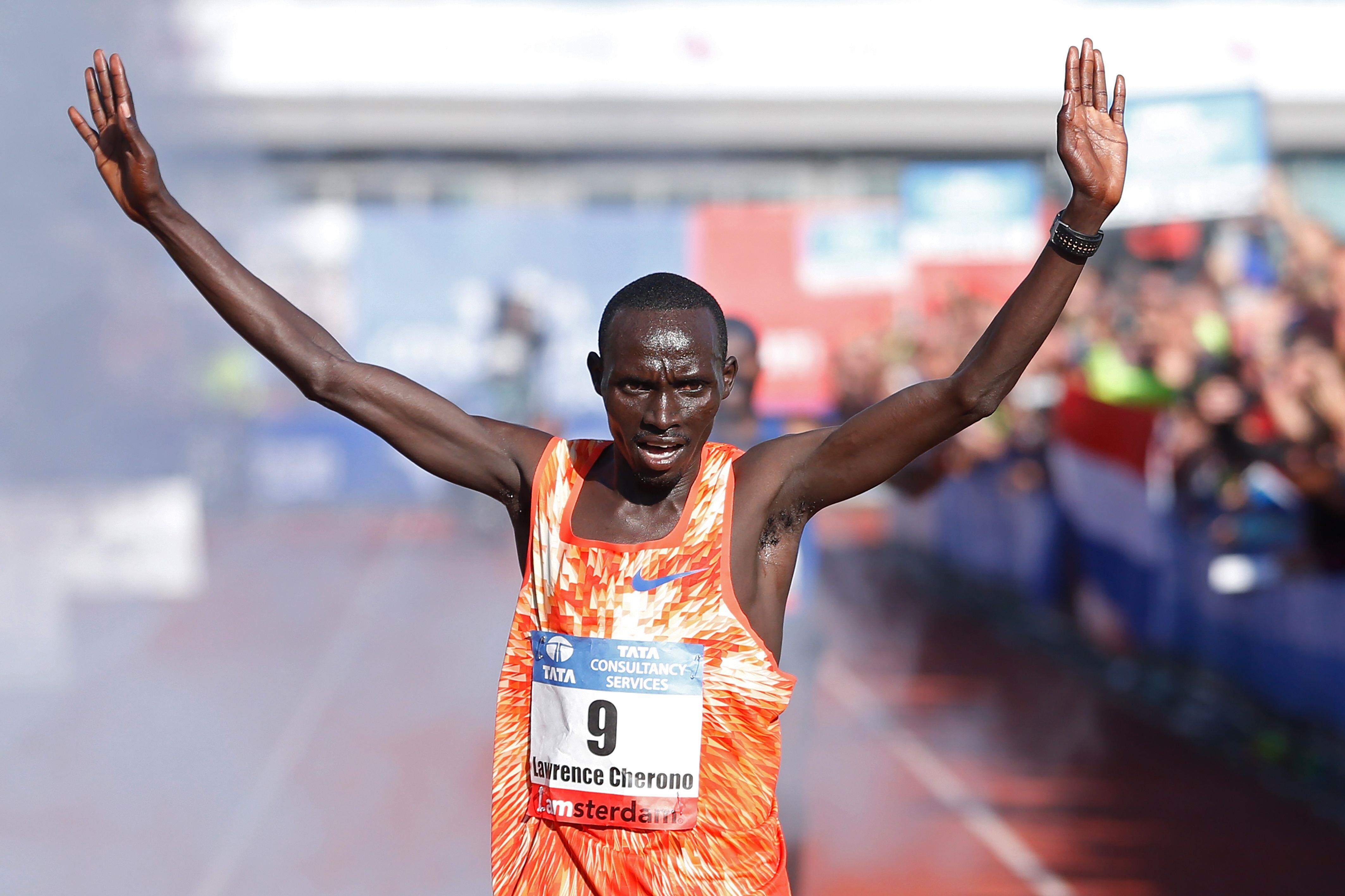
Other strong contenders include Titus Ekiru, the fastest marathon runner in the world last year having run 2:02:57 in Milan, 2020 world leader Evans Chebet, New York City Marathon winner Albert Korir, and three-time world half marathon champion Geoffrey Kamworor.
Men’s elite field
Kenenisa Bekele (ETH) 2:01:41Titus Ekiru (KEN) 2:02:57Evans Chebet (KEN) 2:03:00Lawrence Cherono (KEN) 2:03:04Bernard Koech (KEN) 2:04:09Lemi Berhanu (ETH) 2:04:33Lelisa Desisa (ETH) 2:04:45Gabriel Geay (TAN) 2:04:55Benson Kipruto (KEN) 2:05:13Geoffrey Kamworor (KEN) 2:05:23Eric Kiptanui (KEN) 2:05:47Bethwell Yegon (KEN) 2:06:14Geoffrey Kirui (KEN) 2:06:27Eyob Faniel (ITA) 2:07:19Yuki Kawauchi (JPN) 2:07:27Albert Korir (KEN) 2:08:03Amanuel Mesel (ERI) 2:08:17Bayelign Teshager (ETH) 2:08:28Tsegay Tuemay Weldibanos (ERI) 2:09:07Scott Fauble (USA) 2:09:09Colin Bennie (USA) 2:09:38Trevor Hofbauer (CAN) 2:09:51Jared Ward (USA) 2:09:25Ian Butler (USA) 2:09:45Mick Iacofano (USA) 2:09:55Jake Riley (USA) 2:10:02Jerrell Mock (USA) 2:10:37Jemal Yimer (ETH) 2:10:38Juan Luis Barrios (MEX) 2:10:55Matt McDonald (USA) 2:11:10Matt Llano (USA) 2:11:14Elkanah Kibet (USA) 2:11:15CJ Albertson (USA) 2:11:18Diego Estrada (USA) 2:11:54
by World Athletics
Login to leave a comment
Boston Marathon
Among the nation’s oldest athletic clubs, the B.A.A. was established in 1887, and, in 1896, more than half of the U.S. Olympic Team at the first modern games was composed of B.A.A. club members. The Olympic Games provided the inspiration for the first Boston Marathon, which culminated the B.A.A. Games on April 19, 1897. John J. McDermott emerged from a...
more...Githae wins final edition of Fukuoka Marathon
Michael Githae was victorious at the 75th and final edition of Fukuoka International Marathon on Sunday (5), winning the World Athletics Elite Label road race in 2:07:51.
Githae, who runs for Suzuki track team, improved his previous best of 2:08:17, which he set when finishing fourth at last year’s Fukuoka Marathon. Japan’s Kyohei Hosoya finished second, 25 seconds adrift of Githae.
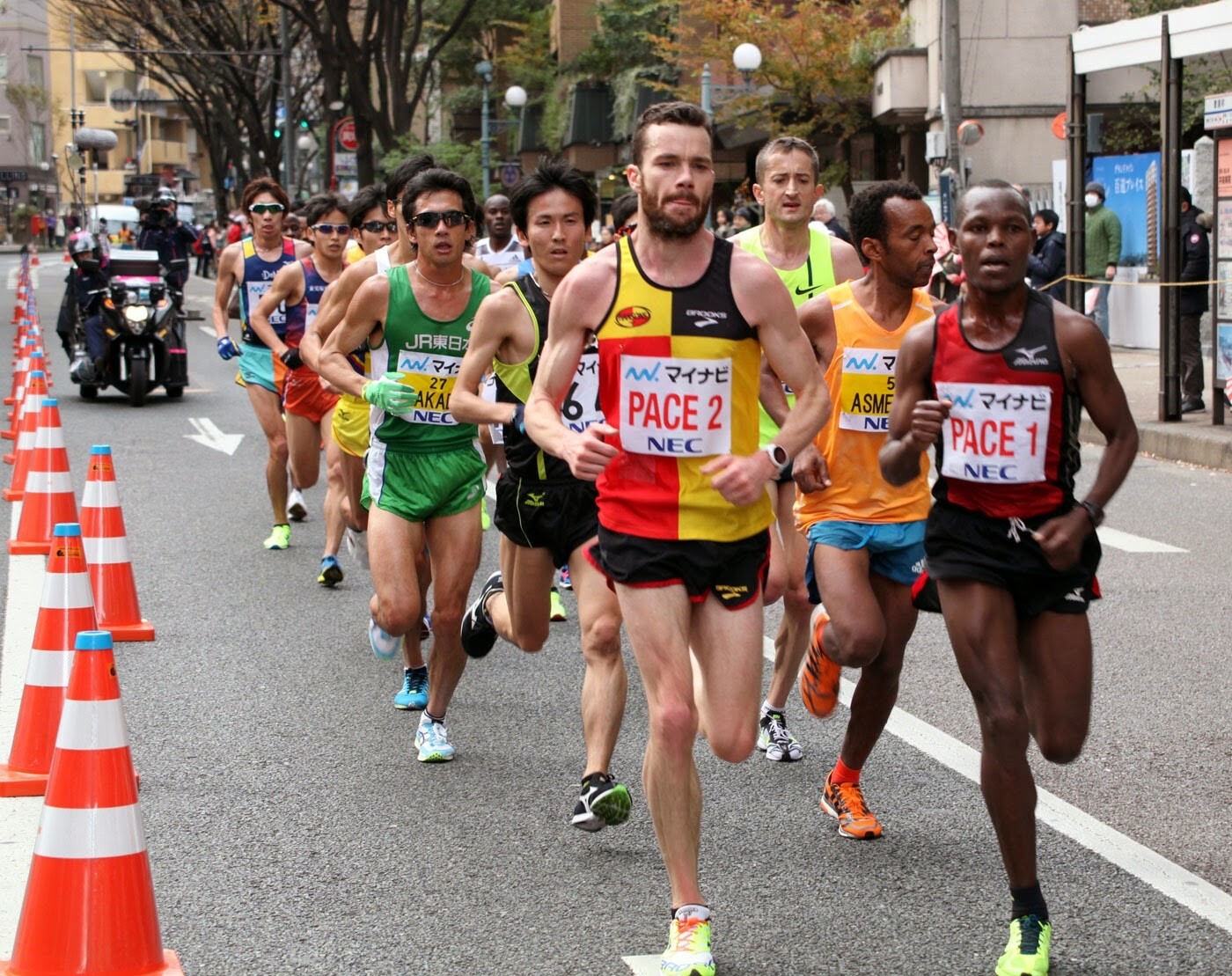
The pacers, led by 2012 Olympian Yuki Sato, directed the huge lead pack through 5km (14:47), 10km (29:39), 15km (44:30) and 20km (59:24) in what turned out to be something of a race of attrition. Yuta Shitara was one of the athletes to fall out of contention before the half-way stage; the former national marathon record-holder dropped out at 20km.
The half-way point was reached in 1:02:41, meaning an attack on the 2:05:18 course record was not out of the question. Simon Kariuki and Charles Wanjiku kept the pace going at the start of the second half, and 30km was reached in 1:29:08. But the pacemakers dropped out soon after, and the pace dramatically slowed down.
Nevertheless, the pack became strung out to almost a single file, and by 34km just Githae, James Rungaru, Hosoya and Ryu Takaku remained in contention. Soon after, Githae surged and Hosoya made a valiant effort to stay close but Githae gradually pulled away to win by 25 seconds in 2:07:51.
In third, Rungaru set a PB of 2:08:25, while fourth-placed Shohei Otsuka and Ryu Takaku and Daisuke Uekado in fifth and sixth respectively were just outside their PBs. Yuki Kawauchi, running his 12th Fukuoka Marathon, fittingly finished 12th in 2:11:33. He is planning on running the Hofu Marathon in two weeks’ time.
Looking back at Fukuoka's history
The Fukuoka International Marathon – which was awarded a World Athletics Heritage Plaque in 2019 – started in 1947 and is the second oldest marathon in Japan behind the now defunct Lake Biwa Marathon.
In its 75-year history, the world record was broken twice there – first in 1967 when Derek Clayton became the first runner to break 2:10 with 2:09:37, and then in 1981 when fellow Australian Rob de Castella ran 2:08:18.
De Castella isn’t the only global marathon champion to have contested the race over the years. Frank Shorter, the 1972 Olympic champion, notched up four consecutive Fukuoka Marathon victories between 1971 and 1974. 2000 Olympic champion Gezahegn Abera won in 1999, 2001 and 2002, while 1996 Olympic champion Josiah Thugwane won in 1997. The late Samuel Wanjiru, winner of the 2008 Olympic title, made a remarkable marathon debut in Fukuoka in 2007, winning in 2:06:39. And two-time world champion Jaoud Gharib won in 2010.
Numerous world record-holders have also competed in Fukuoka, including Haile Gebrselassie (winner in 2006), Belayneh Dinsamo (1990 winner) and Patrick Makau (2014 and 2015 champion).
Japanese runners have also enjoyed moments of victory in Fukuoka. Toshihiko Seko won four times (1978-1980 and 1983), and Takeyuki Nakayama won twice (1984 and 1987). During his 1987 run, Nakayama was on world record pace through 20km (58:37) and 35km until a heavy downpour in the closing stages slowed him down, and he eventually finished in 2:08:18.
When asked about the end of the Fukuoka Marathon, four-time winner Seko said: “It is like part of my history is being erased.”
Japan Running News, a leading authority on the sport in Japan, has produced a docu-film on the Fukuoka Marathon, entitled ‘Inside the Outside – When the World Came to Fukuoka’.
Leading results
1 Michael Githae (KEN) 2:07:512 Kyohei Hosoya (JPN) 2:08:163 James Rungaru (KEN) 2:08:254 Shohei Otsuka (JPN) 2:08:335 Ryu Takaku (JPN) 2:08:386 Daisuke Uekado (JPN) 2:08:567 Kohei Futaoka (JPN) 2:09:148 Masaya Taguchi (JPN) 2:09:359 Toshiki Sadakata (JPN) 2:10:3110 Takuma Kumagai (JPN) 2:10:4111 Ryota Komori (JPN) 2:11:3212 Yuki Kawauchi (JPN) 2:11:33
Login to leave a comment
Hosoya, Takaku and Uekado Will Lead Fukuoka International Marathon's Final Elite Field
With just over a month to go until its final edition, on Nov. 1 the organizers of the Fukuoka International Marathon held a press conference to announce its last elite field. For the second year in a row it's domestic-only, headlined by Kyohei Hosoya (Kurosaki Harima), 2:06:35 at the final Lake Biwa Marathon this past spring, Ryu Takaku (Yakult), 2:06:45 in Tokyo last year, and Daisuke Uekado (Otsuka Seiyaku), 2:06:54 in Tokyo just behind Takaku.
Out of a total field of 124, along with the 3 sub-2:07 guys there are 11 sub-2:08, 18 sub-2:09, 25 sub-2:10 and many more at the sub-2:11 and sub-2:12 levels. It's an even bigger front end than was on the entry list at the record-breaking final Lake Biwa Marathon earlier this year, and for a domestic field it's one worthy of sending off Fukuoka's 75-year history. Last year's winner Yuya Yoshida (GMO), who was scheduled to run October's Tokyo Marathon before it was postponed until March, is absent.
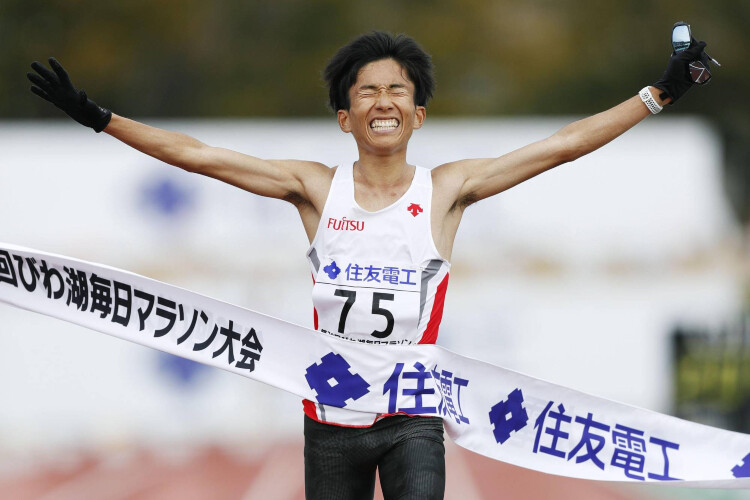
With Japan still holding tight to its border closures the international component of the field is covered by Japan-based internationals Michael Githae (Suzuki), 2:08:17 in Fukuoka last year, Mongolian NR holder Ser-Od Bat-Ochir (Mie T&F Assoc.) past Marugame Half winner Paul Kuira (JR Higashi Nihon), James Gitahi Rungaru (Chuo Hatsujo), Daniel Muiva Kitonyi (Track Tokyo), and the debuting Nicholas Kosimbei (YKK).
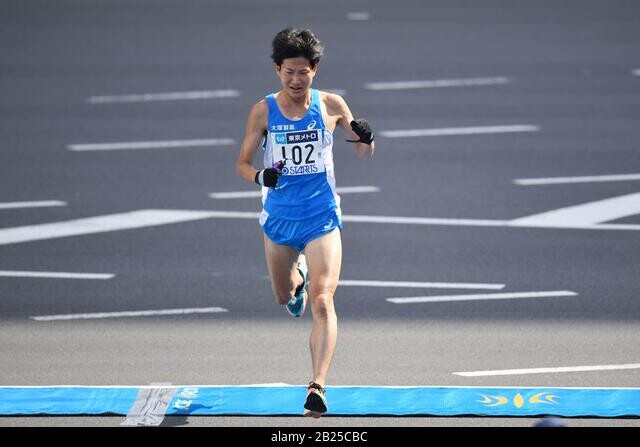
complete field listing
Kyohei Hosoya (Kurosaki Hariima) - 2:06:35 (Lake Biwa 2021)
Ryu Takaku (Yakult) - 2:06:45 (Tokyo 2020)
Daisuke Uekado (Otsuka Seiyaku) - 2:06:54 (Tokyo 2020)
Toshiki Sadakata (Mitsubishi Juko) - 2:07:05 (Tokyo 2020)
Shuho Dairokuno (Asahi Kasei) - 2:07:12 (Lake Biwa 2021)
Shin Kimura (Honda) - 2:07:20 (Tokyo 2020)
Yuki Kawauchi (ANDS) - 2:07:27 (Lake Biwa 2021)
Shohei Otsuka (Kyudenko) - 2:07:38 (Fukuoka Int'l 2020)
Masaru Aoki (Kanebo) - 2:07:40 (Lake Biwa 2021)
Yuta Shitara (Honda) - 2:07:45 (Tokyo 2020)
Atsumi Ashiwa (Honda) - 2:07:54 (Lake Biwa 2021)
Natsuki Terada (JR Higashi Nihon) - 2:08:03 (Fukuoka Int'l 2020)
Kento Otsu (Toyota Kyushu) - 2:08:15 (Lake Biwa 2021)
Michael Githae (Kenya/Suzuki) - 2:08:17 (Fukuoka Int'l 2020)
Junichi Tsubouchi (Kurosaki Harima) - 2:08:35 (Lake Biwa 2021)
Yuji Iwata (Mitsubishi Juko) - 2:08:45 (Tokyo 2020)
Kazuma Kubo (Nishitetsu) - 2:08:53 (Lake Biwa 2021)
Kenta Murayama (Asahi Kasei) - 2:08:56 (Berlin 2019)
Chihiro Miyawaki (Toyota) - 2:09:04 (Tokyo 2020)
Kohei Futaoka (Chudenko) - 2:09:15 (Beppu-Oita 2019)
Shoma Yamamoto (NTT Nishi Nihon) - 2:09:18 (Lake Biwa 2020)
Ser-Od Bat-Ochir (Mongolia/Mie T&F Assoc.) - 2:09:26 (Lake Biwa 2021)
Yoshiki Takenouchi (NTT Nishi Nihon) - 2:09:31 (Fukuoka Int'l 2020)
Takahiro Nakamura (Kyocera Kagoshima) - 2:09:40 (Lake Biwa 2021)
Paul Kuira (Kenya/JR Higashi Nihon) - 2:09:57 (Fukuoka Int'l 2020)
Jo Fukuda (NN Running Team) - 2:10:32 (Beppu-Oita 2020)
Ryota Komori (NTN) - 2:10:33 (Lake Biwa 2021)
Yuki Nakamura (Sumitomo Denko) - 2:10:47 (Lake Biwa 2021)
Takuma Shibata (Komori Corp.) - 2:10:48 (Hofu 2020)
Koshiro Hirata (SG Holdings) - 2:10:50 (Lake Biwa 2021)
Shota Saito (JFE Steel) - 2:10:50 (Beppu-Oita 2020)
Asuka Tanaka (Runlife) - 2:11:07 (Fukuoka Int'l 2020)
Taiki Suzuki (Eldoreso) - 2:12:09 (Fukuoka Int'l 2019)
Keita Shitara (Hitachi Butsuryu) - 2:12:13 (Tokyo 2020)
James Gitahi Rungaru (Kenya/Chuo Hatsujo) - 2:12:54 (Hofu 2020)
Daniel Muiva Kitonyi (Kenya/Track Tokyo) - 2:14:41 (Nagano 2019)
Debut
Nicholas Mboroto Kosimbei (Kenya/YKK) - 1:00:21 (Lisbon Half 2019).
by Brett Larner
Login to leave a comment
Fukuoka Marathon
The Fukuoka International Open Marathon Championship is one of the longest running races in Japan, it is alsoan international men’s marathon race established in 1947. The course record is held by Tsegaye Kebede of Ethiopia, running 2:05:18 in 2009. Frank Shorter won first straight years from 1971 to 1974. Derek Clayton set the World Record here in 1967 running 2:09:37. ...
more...Kenyan Geoffrey Kirui looks to upstage opponents in Boston
Former Boston Marathon Geoffrey Kirui is hopeful of pulling another surprise when he lines up for the 2021 Boston Marathon on Monday.
Boston Marathon, the fourth race in the Abott World Marathon Majors series, shall be held a day after Sunday’s Chicago Marathon, has attracted a good number of participants in the elite field.
Kirui, who won the 2017 Boston Marathon, is happy to get back to competition, having been idle for more than a year following the suspension of sporting activities due to the Coronavirus pandemic.
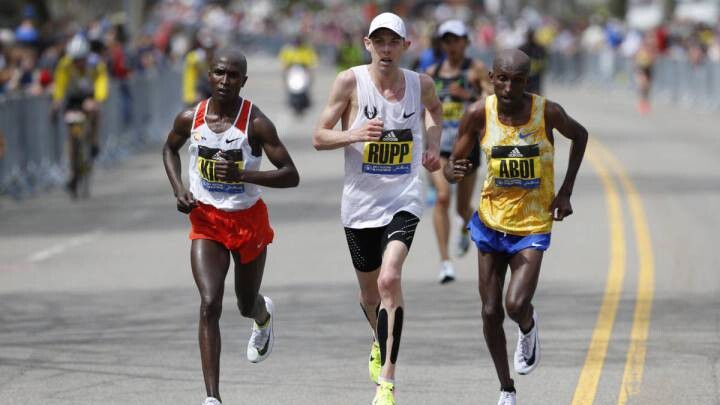
“Participating the 2021 Boston Marathon again brings good memories for me. I love the course. I have been training for a long period of time with no opportunity to compete due to the Covid-19 pandemic but I’m happy I will be running on Sunday,” Kirui, who has a personal best time of 2 hours, 06 minutes and 27 seconds, told Nation Sport early this week in Eldoret before flying out to the USA.
He said having been out of competition for a long time puts him in a tricky situation because on Sunday, he will come up against strong opponents.
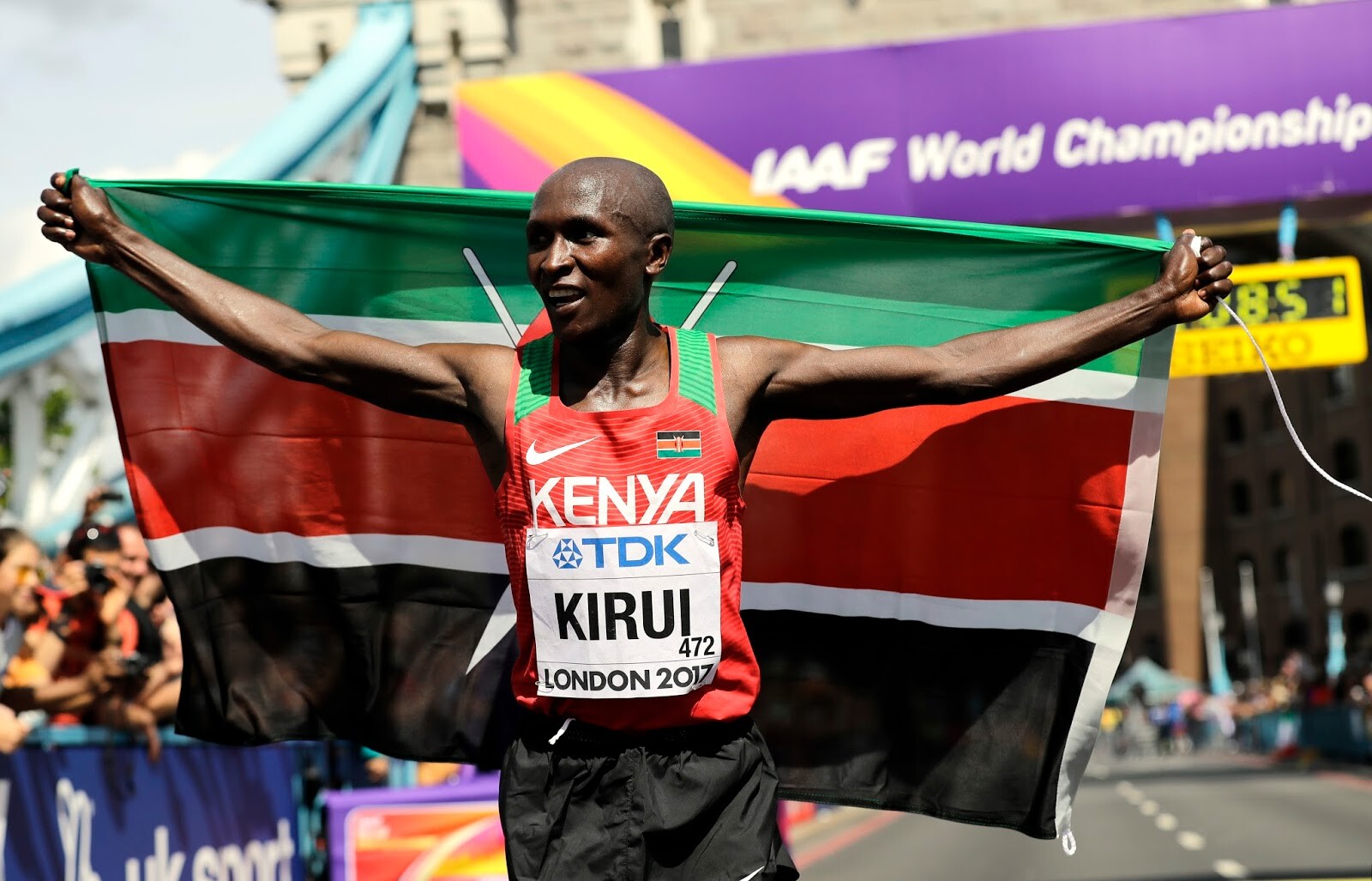
“I want to run my best time in Boston. We have been out of competition for a long period and it’s really difficult to gauge how strong the field will be when we line up for the race. I just want to run well and be in the podium at the end of the day,” Kirui, who belongs to the Global Sports Communication, said.
He has been training at both Keringet in Nakuru County and at Kaptagat in Elgeyo Marakwet County. He counts himself lucky to be enjoying unfettered access to a physiotherapist attached tothe Global Sports Communication.
“In some occasions, I normally join my training mates Eliud Kipchoge and others at Kaptagat, and they push me to the limit. The camp also has a full-time physiotherapist which is good for an athlete especially when one is preparing for a race,” said Kirui.
His last race was the 2019 Boston Marathon. He finished 14th in the race, something he is keen to improve this year.
He has good memories of the 2017 edition of the race which he won against a strong team in a time of 2:09:37 which earned him a ticket to represent Kenya at the 2017 World Athletics Championships in London. Kirui went on to win gold for Kenya in the English capital.
In 2018, his bid to retain the Boston Marathon title went up in flames. He timed 2:18:53 to finish second behind Japan’s Yuki Kawauchi (2:15:58) in bad weather.
by Bernard Rotich
Login to leave a comment
Boston Marathon
Among the nation’s oldest athletic clubs, the B.A.A. was established in 1887, and, in 1896, more than half of the U.S. Olympic Team at the first modern games was composed of B.A.A. club members. The Olympic Games provided the inspiration for the first Boston Marathon, which culminated the B.A.A. Games on April 19, 1897. John J. McDermott emerged from a...
more...Former world marathon champion Geoffrey Kirui will lead stellar field for October's Boston Marathon
Geoffrey Kirui will be the man to beat at this year's Boston Marathon slated for October 11.
Kirui, who won the event four years ago, will be seeking to capture a second title on the famous street in Boston.
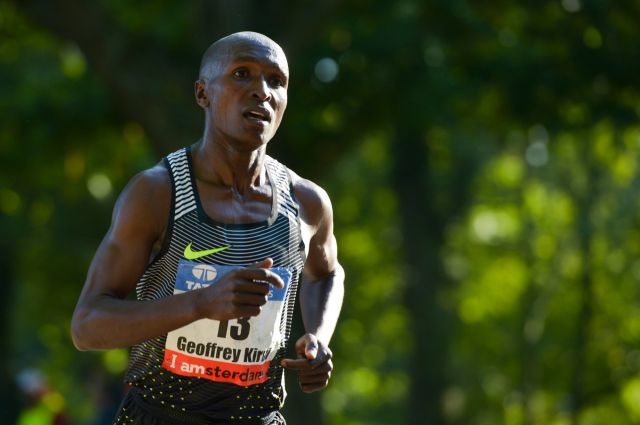
“Last year was a tough one for everyone. Boston is, for me, the exact right motivation and light at the end of the tunnel, as it will be for all returning champions and participants. This is the marathon where I feel at home, and I have big dreams for October,” Kirui said.
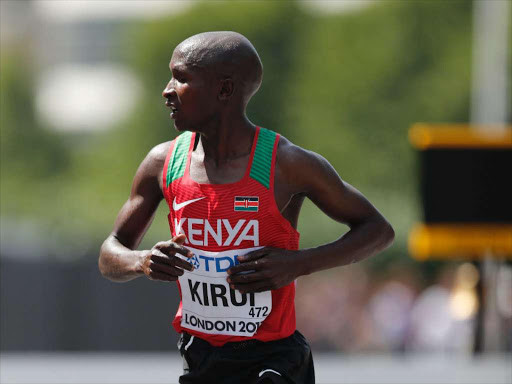
Others to look for out are Lemi Berhanu from Ethiopia, best known for skipping across the Boylston Street finish en-route to winning in 2016.
Yuki Kawauchi, winner of more than 30 international marathons and the Japanese record holder in the 50K, looks to become the first man from Japan since Toshihiko Seiko in 1987 to earn two Boston Marathon titles.
by William Njuguna
Login to leave a comment
Boston Marathon
Among the nation’s oldest athletic clubs, the B.A.A. was established in 1887, and, in 1896, more than half of the U.S. Olympic Team at the first modern games was composed of B.A.A. club members. The Olympic Games provided the inspiration for the first Boston Marathon, which culminated the B.A.A. Games on April 19, 1897. John J. McDermott emerged from a...
more...Elite field for 125th Boston Marathon will include 13 former champions
The field for the 125th Boston Marathon will include 13 former champions with a combined 30 first-place Boston finishes, the Boston Athletic Association announced on Wednesday. The group competing on Oct. 11 includes World Athletics Marathon champions, Paralympic medalists, Abbott World Marathon Majors winners, and Olympians.
Four of the last five women’s open champions are scheduled to run: American Desiree Linden (2018), a two-time Olympian; Kenyan Edna Kiplagat (2017), a two-time World Athletics Marathon Championships gold medalist; Kenyan Caroline Rotich (2015); and Atsede Baysa (2016).
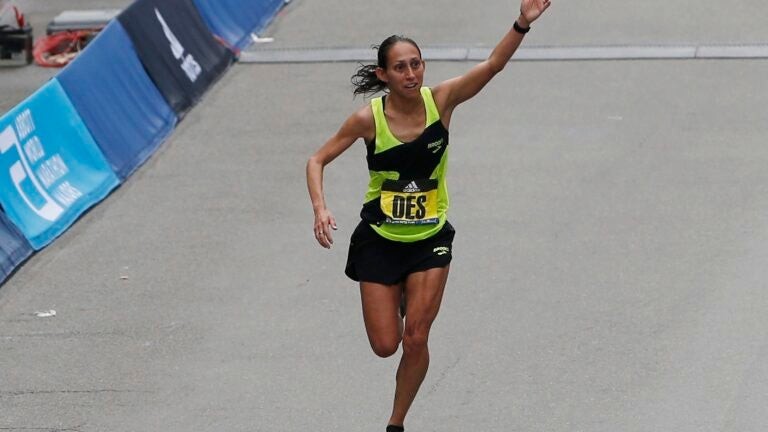
Two-time champion and course record holder Manuela Schär returns to defend her title in the women’s wheelchair race. Schär, a three-time Paralympic medalist from Switzerland, won Boston in 2017 and 2019 and is the only woman to have clocked a sub-1:30 marathon. Also among the wheelchair contenders is five-time Boston champion and 17-time Paralympic medalist Tatyana McFadden, who will race the 400 meters, 800 meters, 1500 meters, 5000 meters, and the marathon at the Tokyo Paralympic Games for Team USA.
The three returning men’s champions have all posted lifetime bests under 2:07:30. They are Kenya’s Geoffrey Kirui (2017), Ethiopia’s Lemi Berhanu (2016), and Yuki Kawauchi (2018), who will attempt to become the first man from Japan since Toshihiko Seiko in 1987 to earn two Boston Marathon titles.
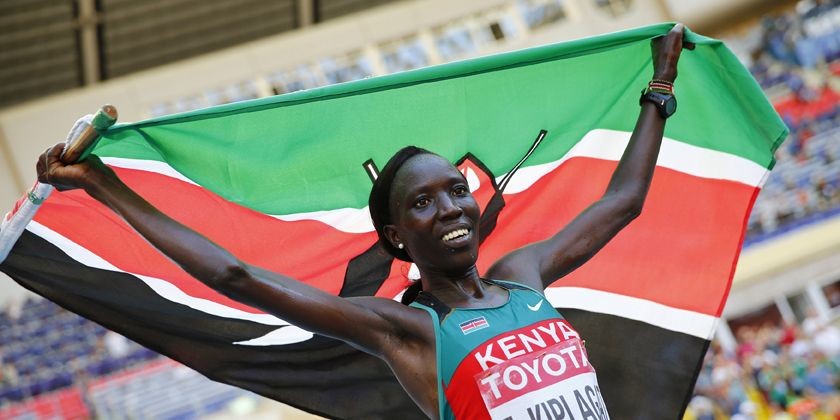
Four men’s wheelchair champions with a combined 16 titles will return, including defending champion Daniel Romanchuk of Illinois. The 2016 and 2021 Paralympian for Team USA made history by winning the 2019 race and Abbott World Marathon Majors Series XII at just 20 years old. Course record holder Marcel Hug of Switzerland, who had four straight wins from 2015-18, is back. Ernst van Dyk of South Africa, the most decorated champion in race history with 10 titles, also will compete, as will 2012 winner and former course record holder Josh Cassidy of Canada.
The race also features restructured prize money awards that will include equal course record bonuses for the open and wheelchair divisions and the introduction of prize money for the inaugural para athletics divisions. Boston will be the first Abbott World Marathon Major event to offer equal $50,000 course record bonuses across open and wheelchair divisions, and the first event to provide a designated prize purse for athletes with upper limb, lower limb, and visual impairments.
“We are delighted to welcome so many champions from such a diverse range of competition back to Boston for the 125th running of the Boston Marathon,” said Tom Grilk, BAA president and CEO. “While October’s race marks a long-awaited return to racing, it will also recognize and celebrate the many world-class athletes competing for an historic prize purse across multiple divisions.”
by Andrew Mahoney
Login to leave a comment
Boston Marathon
Among the nation’s oldest athletic clubs, the B.A.A. was established in 1887, and, in 1896, more than half of the U.S. Olympic Team at the first modern games was composed of B.A.A. club members. The Olympic Games provided the inspiration for the first Boston Marathon, which culminated the B.A.A. Games on April 19, 1897. John J. McDermott emerged from a...
more...Japanese Yuki Kawauchi has become the first person to run 100 sub-2:20 marathons
Guinness World Records (GWR) has recognized Japanese marathoner Yuki Kawauchi for becoming the first person to run 100 sub-2:20 marathons. Kawauchi hit triple digits at Japan’s Hofu Marathon in December, where he ran to a second-place finish in 2:10:26, and he recently posted his 101st sub-2:20 result after running a PB of 2:07:27 at Sunday’s Lake Biwa Mainichi Marathon in Otsu, Japan, where he finished 10th.
GWR awarded Kawauchi a certificate in 2018 after he ran the 78th sub-2:20 marathon of his career and overtook American Doug Kurtis for the most in history. That same year, Kawauchi won the Boston Marathon (crossing the line in 2:15:58), and in 2019, he ran the 100th marathon of his career. At that point, he had broken 2:20 94 times.
Due to the pandemic, Kawauchi didn’t race as much as he normally would last year, but he did manage to run four marathons (for comparison, he ran 10 in 2018 and eight in 2019). He broke 2:20 at each of his races in 2020, and he is currently on a 15-race streak of marathons in which he has broken that barrier.
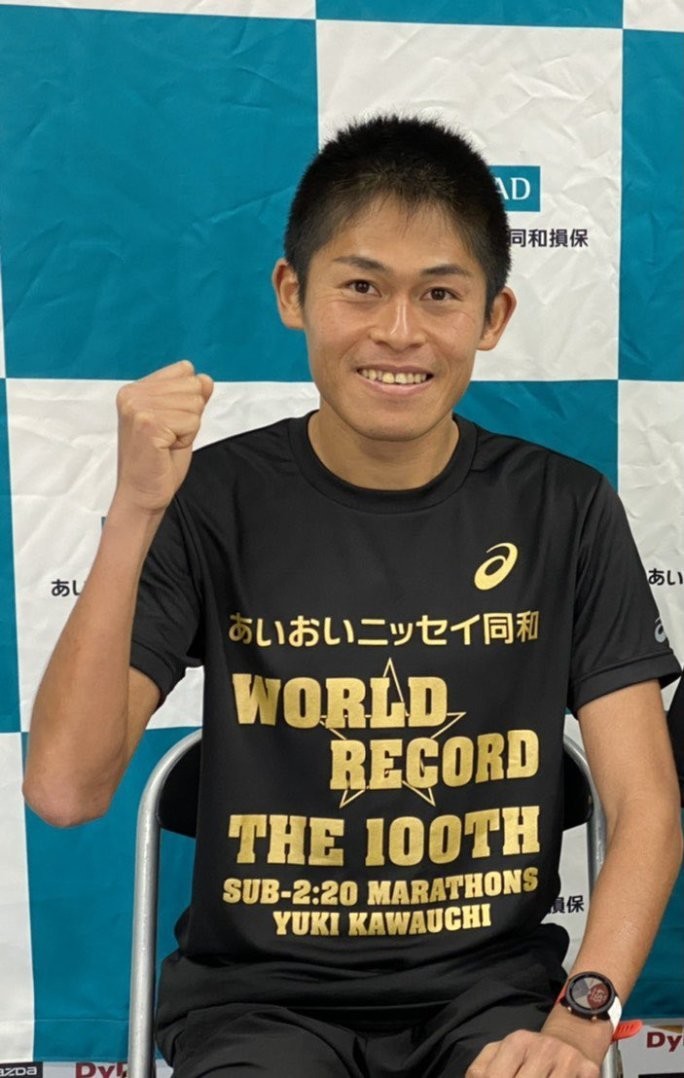
Kawauchi´s last marathon over 2:20 came in October 2018, when he ran 2:27:43 at the Venezia Marathon in Italy. Amazingly, he has run a whopping 109 marathons in his career, meaning he has only failed to break 2:20 on eight of those occasions.
"It might not to be difficult to run under 2:20 once,” Kawauchi said at an online press conference. “But even if it’s easy to achieve it once, in order to achieve that 100 times, you have to be able to continue the sport for a long time, you have to be able to participate in a lot of races, and more than anything you have to stay healthy. Otherwise, you can’t make it happen.”
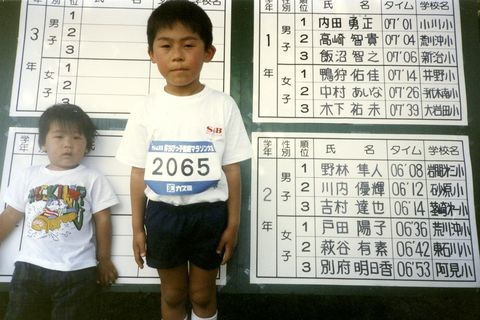
He continued, adding modestly, “With that said, I’m not the fastest in Japan, I’m not the strongest in Japan. But I’ve diligently continued this since I was six years old and it’s resulted in this record.”
Kawauchi turns 34 on Friday, and although he’s getting older, he is still capable of running PBs, as he showed at the Lake Biwa Marathon. He touched on this in the press conference, and he said he is confident he can continue to run this quickly for many years to come.
by Ben Snider-McGrath
Login to leave a comment
Osaka Women´s Marathon is focused just on Japanese elite runners
Due to increasing infection rates in Japan the number of participants in the 40th Osaka Women’s Marathon on 31 January has been limited to 99 and the traditional course through the city changed to a 2.8km lap (x 15) in Nagai Park followed by the finish in the Yanmar Nagai Stadium.
For the same reasons foreign athletes have not been invited and the focus is entirely on the Japanese elite.
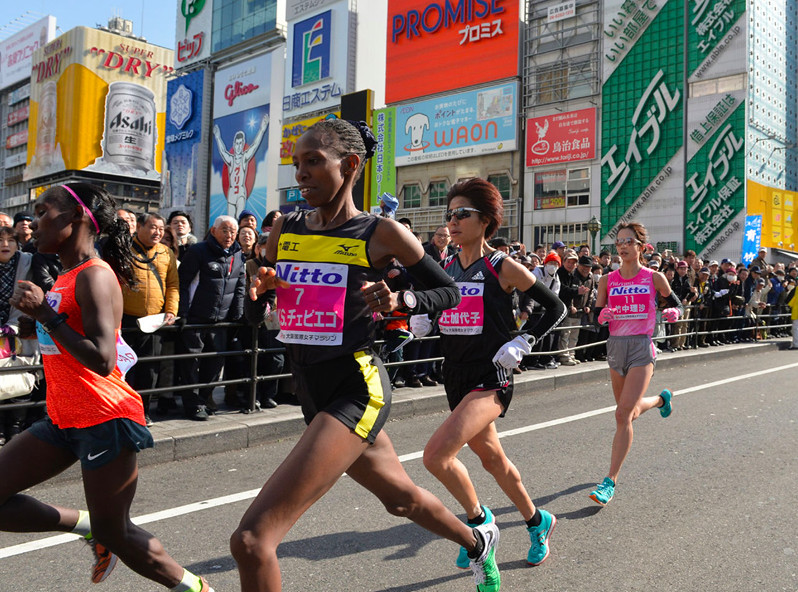
Among those running are Mao Ichiyama (JPN) and Honami Maeda (JPN), who have already qualified for their country’s Olympic team at the Marathon Grand Championships. Ichiyama won the Nagoya marathon in 2:20:29 last year, while Maeda won the Olympic qualification in 2:25:15 in September 2019.
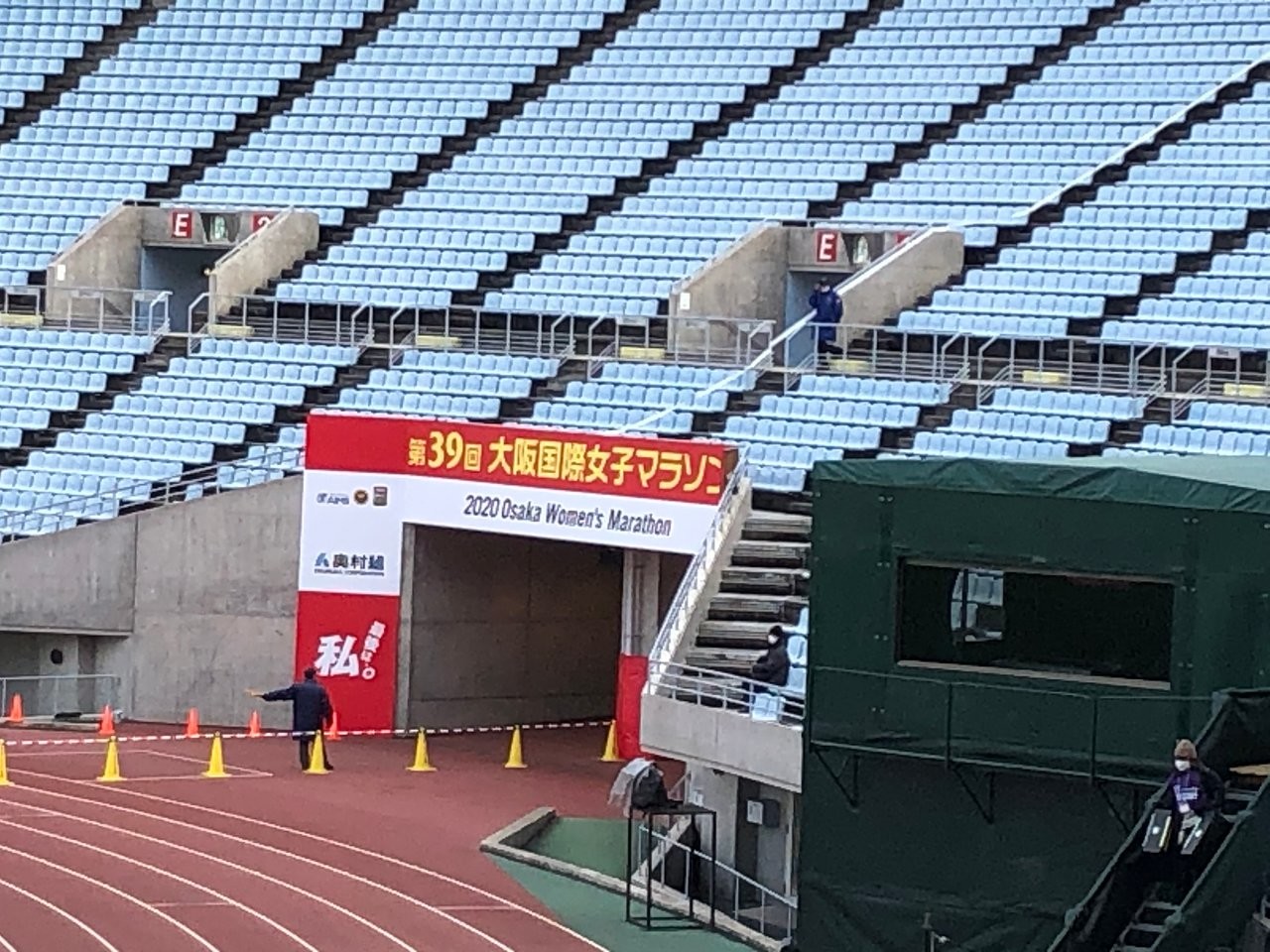
Her best time of 2:23:48 was second in Osaka in 2018, and in the same year she was seventh in 2:25:23 in the Berlin Marathon.
The organizers plan to attack the national record for the women’s marathon of 2:19:12 (set by Mizuki Noguchi at the 2005 Berlin Marathon). The two top runners, in another departure from tradition, will be paced by a total of six men, including the unattached runner Yuki Kawauchi (JPN) and Juji Iwata (JPN).
With personal bests of 2:08:14 and 2:08:45 respectively they are likely to maintain pacing duties until shortly before the stadium entrance.
by Helmut Winter
Login to leave a comment
Osaka International Womens Marathon
The Osaka International Ladies Marathon is an annual marathon road race for women over the classic distance of 42.195 kilometres which is held on the 4th or 5th Sunday of January in the city of Osaka, Japan, and hosted by Japan Association of Athletics Federations, Kansai Telecasting Corporation, the Sankei Shimbun, Sankei Sports, Radio Osaka and Osaka City. The first...
more...Takaku, Hattori and Kawauchi lead Fukuoka Marathon entries
Organisers of the Fukuoka International Marathon have announced their elite field for the World Athletics Gold Label road race on 6 December.
Given the restrictions on international travel, the line-up is predominantly domestic but it includes some of the top marathon runners in the country, along with a few Japan-based internationals.
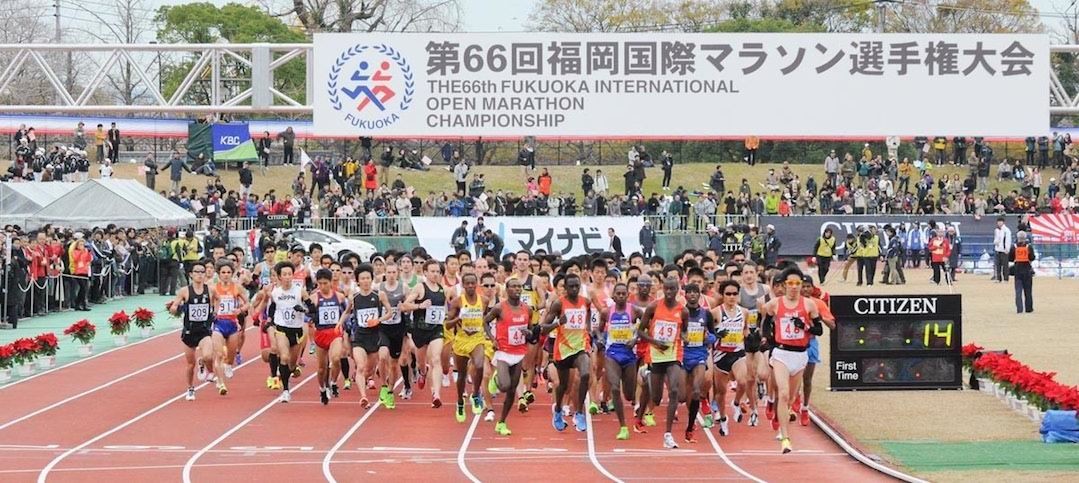
Ryu Takaku, who set a big PB of 2:06:45 in Tokyo earlier this year, is the fastest in the field. The 27-year-old is the fourth-fastest Japanese runner ever and will be making his second appearance in Fukuoka, having raced there in 2018.
Yuma Hattori, winner of the 2018 Fukuoka Marathon, will be back in the Japanese city looking for his second victory there. His last race over the distance was at last year’s Marathon Grand Championships, where he finished second to gain selection for Japan’s Olympic team.
Yuki Kawauchi, the 2018 Boston Marathon champion, will be making his 11th appearance in Fukuoka in what will be his 104th career marathon. A prolific racer, Kawauchi's last race over the distance was nine months ago – his longest break between marathons since 2010.
Taku Fujimoto finished second in Fukuoka last year and will be looking to go one better this time round. He set his PB of 2:07:57 when finishing eighth in Chicago in 2018, while earlier this year he clocked 1:00:06 at the Marugame Half Marathon, moving to second on the Japanese all-time list.
Six other men in the field have PBs faster than 2:09.
Leading entries
Ryu Takaku (JPN) 2:06:45
Yuma Hattori (JPN) 2:07:27
Taku Fujimoto (JPN) 2:07:57
Yuki Kawauchi (JPN) 2:08:14
Yuya Yoshida (JPN) 2:08:30
Naoki Okamoto (JPN) 2:08:37
Ser-Od Bat-Ochir (MGL) 2:08:50
Tsukasa Koyama (JPN) 2:08:53
Satoru Sasaki (JPN) 2:08:56
Naoya Sakuda (JPN) 2:08:59
Michael Githae (KEN) 2:09:21
Hayato Sonoda (JPN) 2:09:34
Jo Fukuda (JPN) 2:09:52
Kento Otsu (JPN) 2:10:01
Yoshiki Takenouchi (JPN) 2:10:01
Shohei Otsuka (JPN) 2:10:12
Koki Yoshioka (JPN) 2:10:13
Asuka Tanaka (JPN) 2:10:13
Daichi Kamino (JPN) 2:10:18
Yuichi Yasui (JPN) 2:10:19
Junichi Tsubouchi (JPN) 2:10:19
Ryo Matsumoto (JPN) 2:10:32
Derese Workneh (ETH) 2:10:52
Natsuki Terada (JPN) 2:10:55
Taiga Ito (JPN) 2:10:52
Paul Kuira (KEN) 2:11:58
Silas Kingori (KEN) debut
by World Athletics
Login to leave a comment
Michael Githae will spearhead Kenya's hopes for victory at the Fukuoka Marathon scheduled for December 6 in Japan
Githae has a personal best of 2:09:21 and will have Paul Kiura (2:11:38) and Silas Kingori, who is making his debut, for company.
Kenya has a superb record in the event with former world marathon record holder, Patrick Makau winning twice and Martin Mathathi, Joseph Ndambiri and Samuel Wanjiru winning once each.
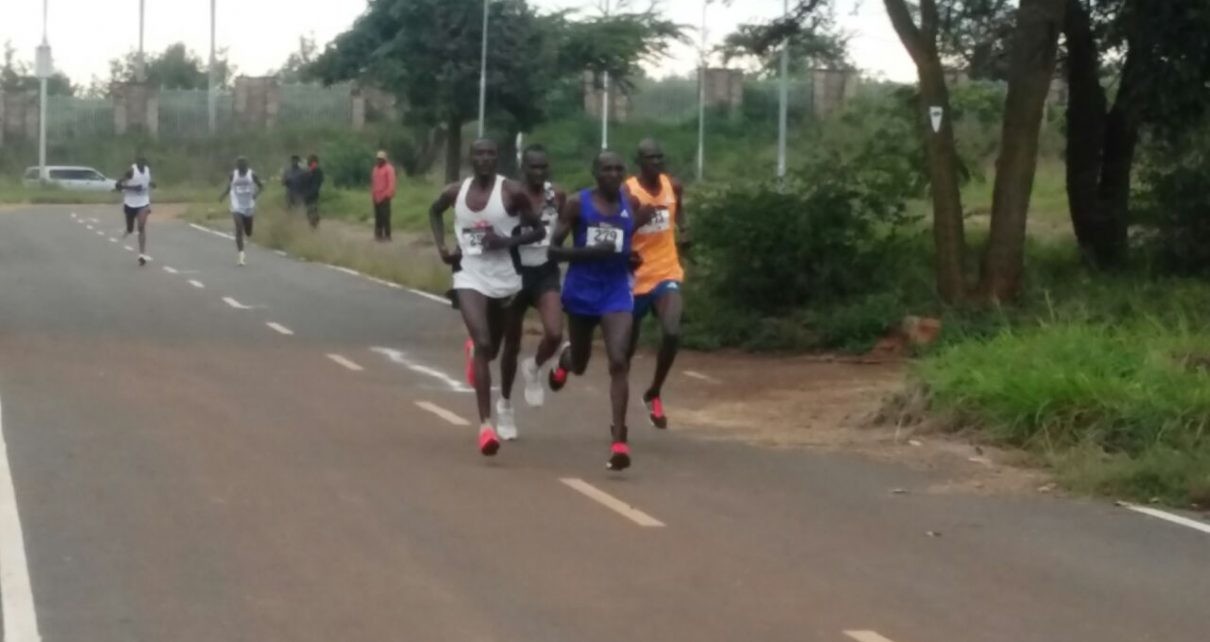
Japan will be well represented by Ryu Takaku, who set a big PB of 2:06:45 in Tokyo earlier this year. He is the fastest in the field. The 27-year-old is the fourth-fastest Japanese runner ever and will be making his second appearance in Fukuoka, having raced there in 2018.
Yuma Hattori, winner of the 2018 Fukuoka Marathon, will be back in the Japanese city looking for his second victory. His last race over the distance was at last year’s Marathon Grand Championships, where he finished second to gain selection in Japan’s Olympic team.
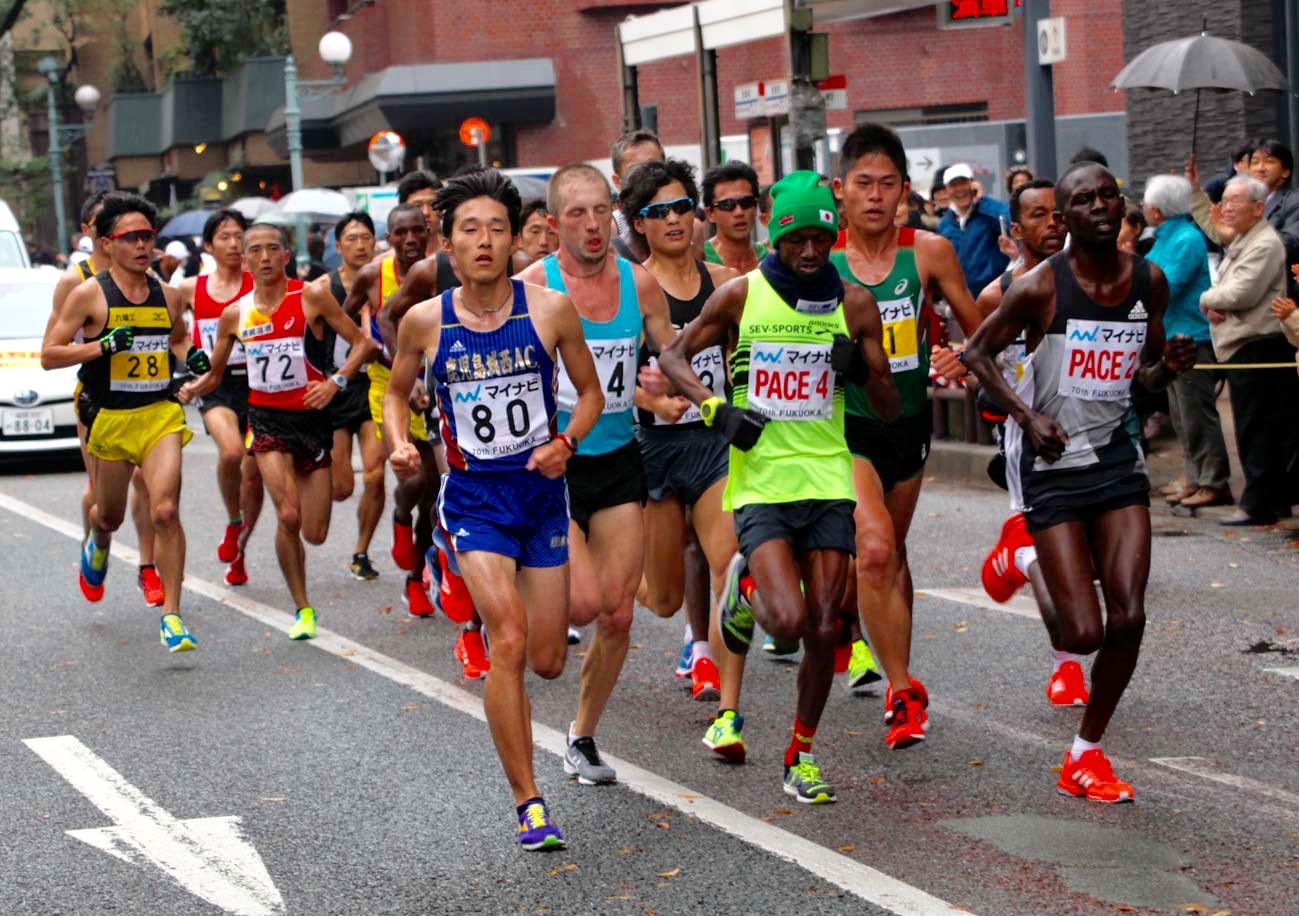
Yuki Kawauchi, the 2018 Boston Marathon champion, will be making his 11th appearance in Fukuoka in what will be his 104th career marathon. A prolific racer, Kawauchi's last race over the distance was nine months ago— his longest break between marathons since 2010.
Taku Fujimoto finished second in Fukuoka last year and will be looking to go one better this time round. He set his PB of 2:07:57 when finishing eighth in Chicago in 2018 while earlier this year, he clocked 1:00:06 at the Marugame Half Marathon, moving to second on the Japanese all-time list. Six other men in the field have PBs faster than 2:09.
by William Njuguna
Login to leave a comment
Fukuoka Marathon
The Fukuoka International Open Marathon Championship is one of the longest running races in Japan, it is alsoan international men’s marathon race established in 1947. The course record is held by Tsegaye Kebede of Ethiopia, running 2:05:18 in 2009. Frank Shorter won first straight years from 1971 to 1974. Derek Clayton set the World Record here in 1967 running 2:09:37. ...
more...Toronto marathon champion Benson Kipruto targets medal at rescheduled Boston marathon
Former Toronto marathon champion Benson Kipruto has returned to training as he tries to regain fitness and compete in Boston after the race was rescheduled to September.
Kipruto, the tenth finisher in last year's Boston marathon, believes with better weather, he can improve on his time and position on return to the United States.
Organizers of the Boston marathon have rescheduled the event to Sept 14 from April 20 due to COVID-19.
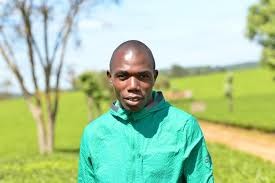
"Boston was to offer me a chance to springboard my career. But the good thing is it will be returning in September, and I want to utilize the chance to stage a better show, run a fast time and prove my critics wrong," Kipruto said on Monday from Eldoret.
The 28-year-old had lost interest in training when COVID-19 wrecked the sports calendar, but he has returned to training now that World Athletics (WA) has confirmed the return of track and field competition in the Diamond League.
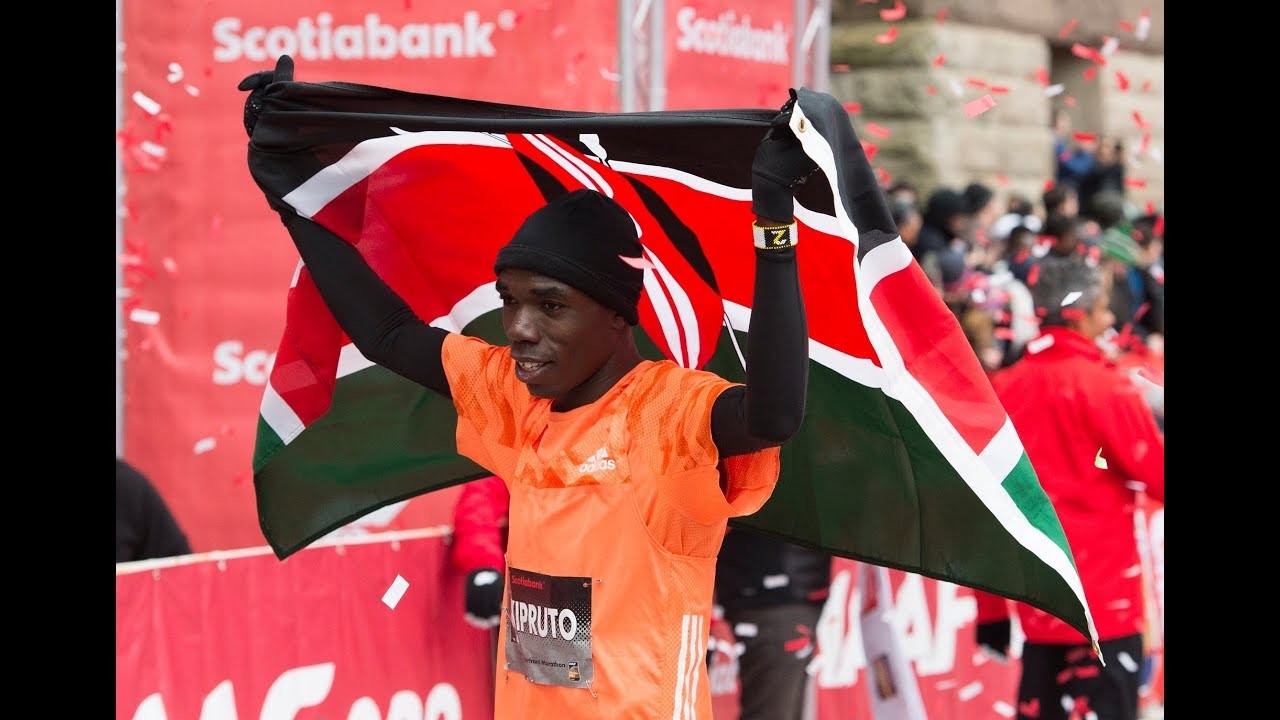
"Today, I train once a day, to keep fit. But I had done a lot in preparing for the Boston marathon and it will not be hard to pick up the pace and work around the clock to attain the optimum fitness to challenge for the medal," said Kipruto.
This year, Kipruto competed at the International Guadalajara Half marathon race in Mexico in February winning in a time of 62 minutes 13 seconds.
"It is important to be careful not to incur any new injuries, even now that we have cut down the training sessions," he added.
In Boston, Kipruto will come up against champion Lawrence Cherono, silver medalist Lelisa Desisa of Ethiopia, Yuki Kawauchi of Japan and 2017 World Athletics Championships gold medalist Geoffrey Kirui of Kenya.
Throw in former Olympic champion Stephen Kiprotich of Uganda, New York marathon silver medalist Albert Korir, Ethiopian Dejene Debela, runner-up to Cherono by one second in Chicago Marathon, Kenneth Kipkemoi, Philemon Rono and Felix Kandie, it is sure to be a hard fought contest.
Login to leave a comment
Boston Marathon
Among the nation’s oldest athletic clubs, the B.A.A. was established in 1887, and, in 1896, more than half of the U.S. Olympic Team at the first modern games was composed of B.A.A. club members. The Olympic Games provided the inspiration for the first Boston Marathon, which culminated the B.A.A. Games on April 19, 1897. John J. McDermott emerged from a...
more...Keizo Yamada a former Boston marathon champion dies at 92
Keizo Yamada, who won the 1953 Boston Marathon and last ran the race in 2009, died of natural causes on April 2, his wife said Thursday. He was 92.
Yamada, who was born in Akita Prefecture in 1927, spent the war years as a youth in Manchuria and after being repatriated competed for Japan in its first postwar Olympics, the 1952 Helsinki Games.
His finishing time of 2 hours, 18 minutes and 51 seconds in Boston was considered the world's fastest marathon at the time until it was found the course failed to meet the standard distance. His triumph was the subject of the Japanese movie "Shinzo Yaburi no Oka" ("Heartbreak Hill").
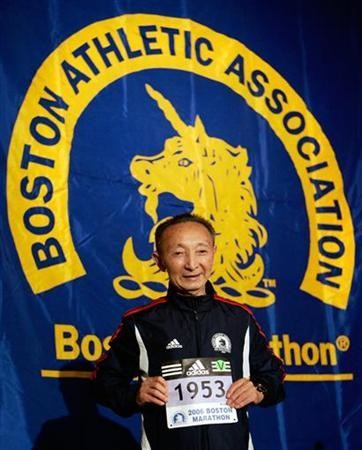
"His victory during the recovery period after the war energized the Japanese people," two-time Boston Marathon champion Toshihiko Seko said in a statement. "It's an honor to have won the same race as Mr. Yamada."
After retiring from competition, Yamada continued running marathons and took part in the Boston Marathon, running in 15 straight until his final one in 2009. That year, Yamada, who ran roughly 340 full marathons in his career, announced he would run no more.
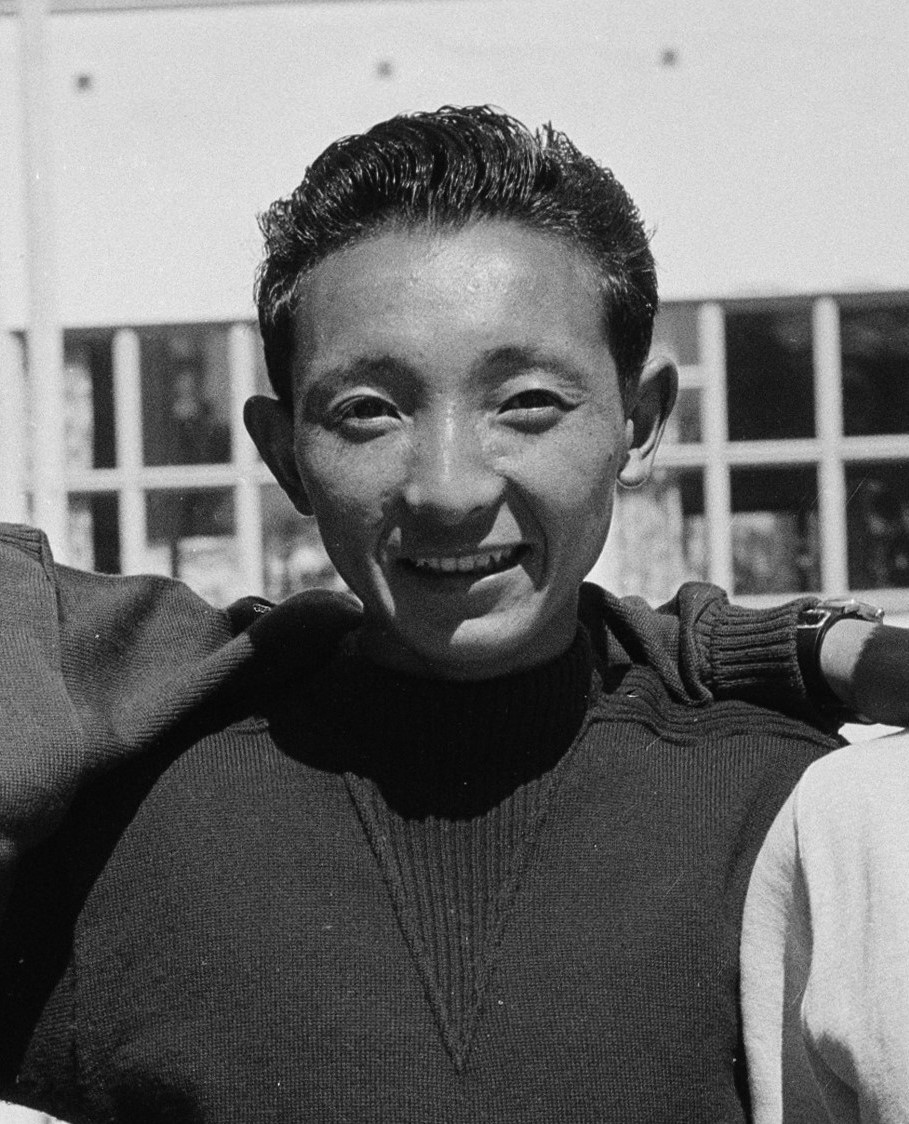
Yuki Kawauchi, who won in Boston in 2018, also paid tribute to Yamada.
"He was a giant among Japanese legends. Despite being an elite runner, he devoted his life to promoting the marathon," Kawauchi said.
The 33-year-old Kawauchi, who has competed in more than 100 full marathons, did so for most of his career while serving as a civil servant in Saitama Prefecture, earning him the nickname "citizen runner."
"Mr. Yamada initiated the citizens' marathon boom with his activities throughout the nation," Kawauchi said. "One of my targets is to run in 340 marathons by my 50th birthday."
Login to leave a comment
Boston Marathon
Among the nation’s oldest athletic clubs, the B.A.A. was established in 1887, and, in 1896, more than half of the U.S. Olympic Team at the first modern games was composed of B.A.A. club members. The Olympic Games provided the inspiration for the first Boston Marathon, which culminated the B.A.A. Games on April 19, 1897. John J. McDermott emerged from a...
more...An assault of Wilson Kipsang's course record on tap at the 75th edition of the Lake Biwa Marathon
An assault of Wilson Kipsang's 2:06:13 course record from 2011 is on tap at the 75th edition of the Lake Biwa Marathon, a World Athletics Gold Label road race, in Otsu, Japan, on Sunday.
Three sub-2:06 and two sub-2:07 runners are in the line-up. Four of those have career bests faster than Kipsang's nine-year-old record. All of those performances came in 2019, suggesting that quartet is on top of their game.
The fastest in the field is Evan Chebet who clocked 2:05:00 in winning last year's Buenos Aires Marathon. Chebet has also produced sub-2:06 runs in Valencia, Berlin and Seoul and also finished fourth in the Tokyo Marathon with 2:06:42.
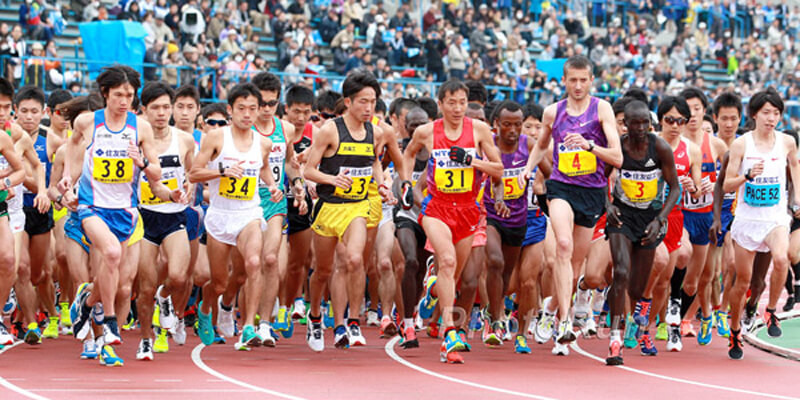
The next fastest is Filex Chemonges who broke the Ugandan national record with a 2:05:12 performance in Toronto last year. He has run three marathons and each time improved his personal best.
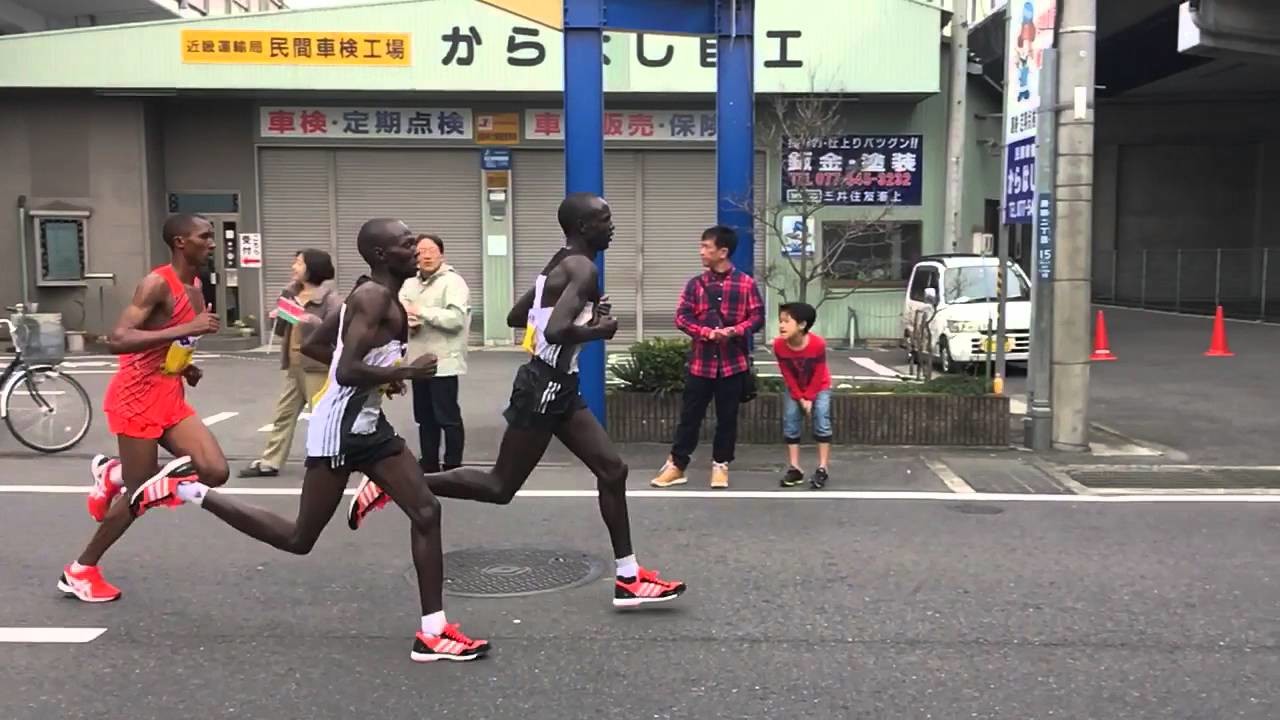
Felix Kiprotich, the third fastest in the field, won the 2019 Daegu Marathon with 2:05:33, and also has three more sub-2:07 runs to his credit. Samuel Ndungu, the Lake Biwa winner in 2015, improved his personal best to 2:06:02 in Lisbon last year. The final sub-2:07 man in the field is Dutch national record holder Abdi Nageeye who improved clocked 2:06:17 in Rotterdam, also last year.
Former winners joining Ndungu are 2018 champion Joseph Ndirangu and 2019 winner Salah Bounasar. Other contenders include Stephen Mokoka who was third in 2019 in 2:07:58, the second-best time of his career.
The race also serves as the final chance for Japanese men to win a spot on the Olympic Marathon team. To secure their spot, a runner must run faster than the 2:05:29 national record set last week by Suguru Osako.
The fastest among the five invited Japanese runners is Yuki Kawauchi, with a lifetime best of 2:08:14. Other high-profile Japanese include Takuya Noguchi, with a 2:08:59 best; Kohei Ogino, who's clocked 2:09:36; Shohei Otsuka, a 2:10:12 man; and Kengo Suzuki, who has a 2:10:21 best.
by World Athletics
Login to leave a comment
Osaka Marathon
In 2022 the Lake Biwa Mainichi Marathon and Osaka Marathon were held together. For 2023 the name of the marathon will be Osaka and both men and women can run the race. The original male-only competition was first held in 1946 and, having taken place every year since then, it is Japan's oldest annual marathon race. The early editions of...
more...Callum Hawkins of Great Britain will be targeting a second victory at the 74th Kagawa Marugame Half Marathon on Sunday
Callum Hawkins, who won the race in 2017, joins 2012 Olympic and 2013 world champion Stephen Kiprotich as a marquee name on the men’s side while Helalia Johannes, the bronze medallist in the marathon at last year’s World Championships, leads the women’s field.
Hawkins, who collapsed in the 2018 Commonwealth Games Marathon while leading, finished fourth in the World Championships marathon in both 2017 and 2019.
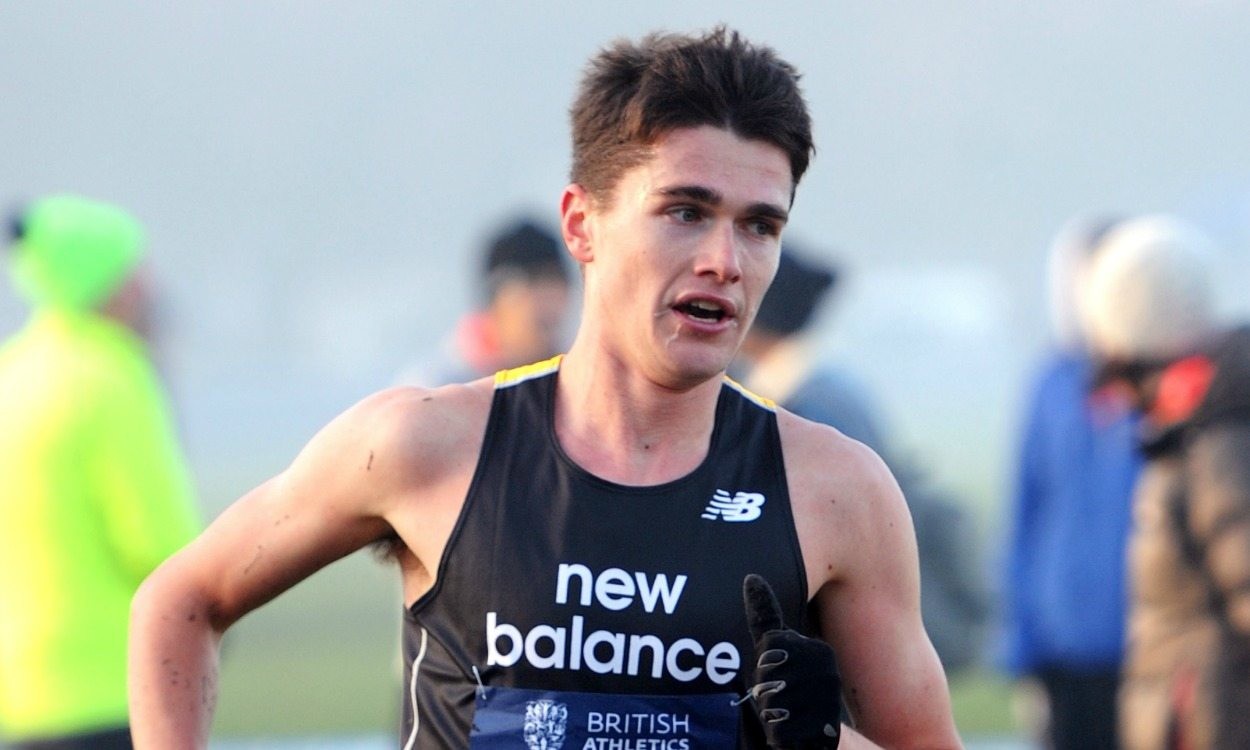
Briton Charlotte Purdue (1:08:45), Japan’s Mao Ichiyama (1:08:49) and Australian Sinead Diver (1:08:55) have the fastest personal bests in the field. All came in 2019: Purdue’s in the Sanyo Women’s road race in December, Ichiyama’s in Hakodate in July and Diver’s in Marugame in February. Two others - Ellie Pashley and Reia Iwade - also have sub-70 minute credentials.
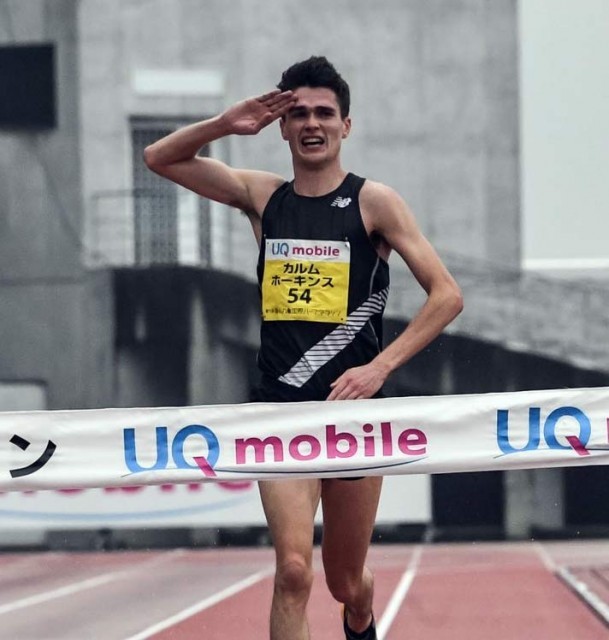
Eri Makikawa, the 2014 Marugame winner with a best of 1:10:28, is also back after skipping the race in recent years.
The men’s field is much stronger.
Both Zane Robertson and Kelvin Kiptum have sub-1 hour bests, while Hawkins’ best is exactly 60 minutes. In fact, the 20-year-old Kiptum has cracked 60:00 twice, both last year. That may qualify Kiptum as the favorite on Sunday. Robertson was second in Marugame in 2015.
The race also serves as a qualifying race for the Japanese team for the World Half Marathon Championships Gdynia 2020.
Several runners, including Japanese national half marathon record holder Yuta Shitara, are running as a tune-up for next month’s Tokyo Marathon. Yuki Sato, a four-time national 10,000m champion, and Shuho Dairokuno, 2019 national 10,000m champion, will also be contesting both Marugame and Tokyo Marathon. Although not an invited runner, Shitara’s twin brother Keita will be running also.
Other top Japanese include Yuma Hattori, the 2018 Fukuoka Marathon champion, Taku Fujimoto, second in the 2019 Fukuoka Marathon, Tetsuya Yoroizaka, the second fastest 10,000m runner in Japan and 2018 Boston Marathon champion Yuki Kawauchi.
by World Athletics
Login to leave a comment
Kagawa Marugame Half Marathon
The Kagawa Marugame Half Marathon is an annual road running competition which takes place in early February in Marugame, Japan. It currently holds IAAF Silver Label Road Race status and the professional races attract over 1000 entries each year, and hosted by the Sankei Shimbun, Sankei Sports, Okayama Broadcasting, BS Fuji. The race in Marugame was first held in 1947...
more...Boston marathon champion Lawrence Cherono said Tuesday that representing Kenya at the Tokyo Olympics will be a big achievement, winning gold will be dream come true
Lawrence Cherono, 31, said his main hurdle to securing a ticket to the Olympics will be in defending his title at the Boston Marathon in April.
However, he hopes to make the provisional team, set to be named in February for the Olympics.
For a country that has over 20 elite runners who have posted a faster time of 2:06.00, picking the best three will be a hard task for the coaches' selector panel.
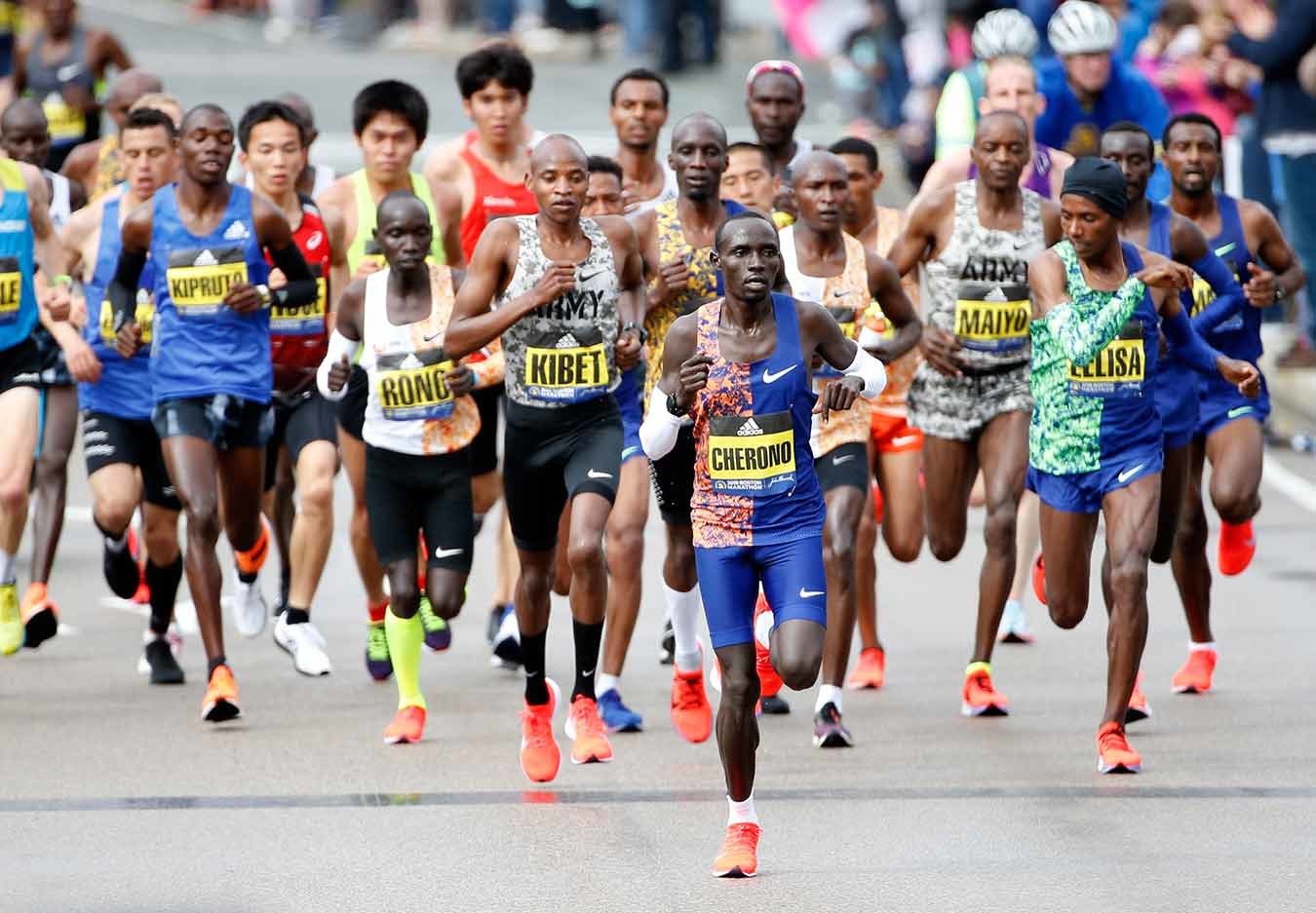
But Cherono has showed a strong desire to represent the country and believes his good performance in the last season will convince the coaches to offer him his maiden show for the country at the global championship.
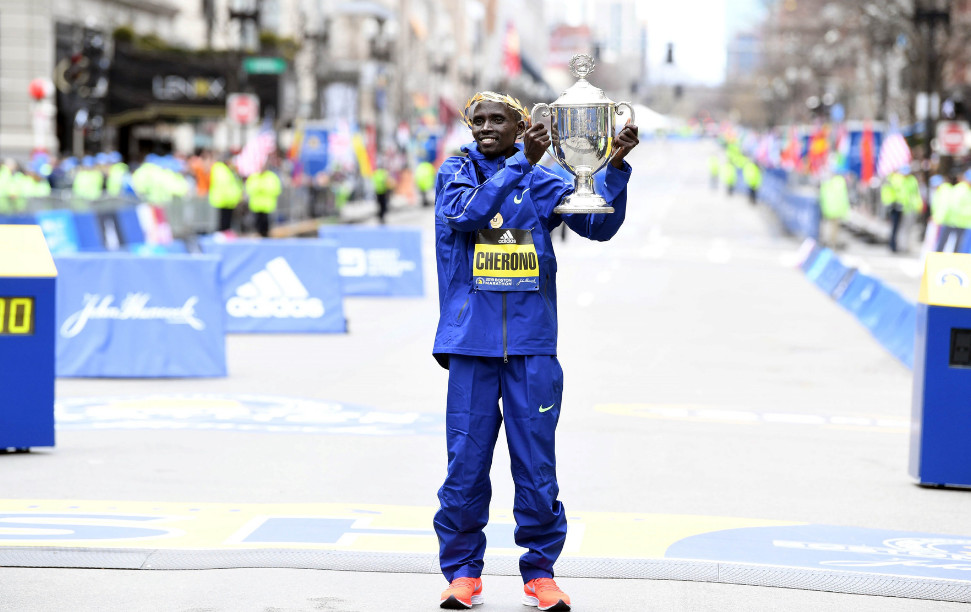
"The competition for position in the Kenya team is tough. With all my accomplishments, I have not been lucky to represent the country at the Olympics. It will be a great honor if I will be part of the team to Tokyo," Cherono said.
Cherono's debut in marathon was in Seville, Spain where he won in 2:09.39.
He then moved to China and was second at the Lanzhou marathon clocking 2:12.33 back in 2015. Later that year he finished seventh at the Shanghai marathon with a time of 2:14.22.
In 2016, he was second at the Hengshui Lake marathon, won in Prague marathon and claimed the silver medal at the Hong Kong city marathon. He has also finished first in Honolulu, Amsterdam, Rotterdam, Chicago and Boston.
If winning in Boston again, Cherono will secure his ticket to Tokyo to join defending champion Eliud Kipchoge, who has already been confirmed for the Olympics.
But it will not be a walk in the park for Cherono in Boston. He will be up against 2018 Boston winner Yuki Kawauchi of Japan, former World marathon champion Geoffrey Kirui who has a personal best of 2:06:27 he recorded at the 2016 Amsterdam marathon.
Also chasing the title in Boston is the 2012 Olympic champion Stephen Kiprotich of Uganda.
Login to leave a comment
Tokyo 2020 Olympic Games
Fifty-six years after having organized the Olympic Games, the Japanese capital will be hosting a Summer edition for the second time, originally scheduled from July 24 to August 9, 2020, the games were postponed due to coronavirus outbreak, the postponed Tokyo Olympics will be held from July 23 to August 8 in 2021, according to the International Olympic Committee decision. ...
more...Reigning Boston Marathon champion Lawrence Cherono can´t wait to defend Boston crown next year
Cherono, who trains in Kaptagat, Elgeyo Marakwet County will face Ethiopia's Lelisa Desisa, 2017 winner Geoffrey Kirui, 2018 champion Yuki Kawauchi among other quality runners.
“I’m delighted that the elite field has been announced early enough for us to prepare well. In the next three months I will be training for the race which is one of the toughest courses in the world,” said Cherono.
Cherono also said that the announced line-up looked strong and it will be a tough challenge for him to retain the title.
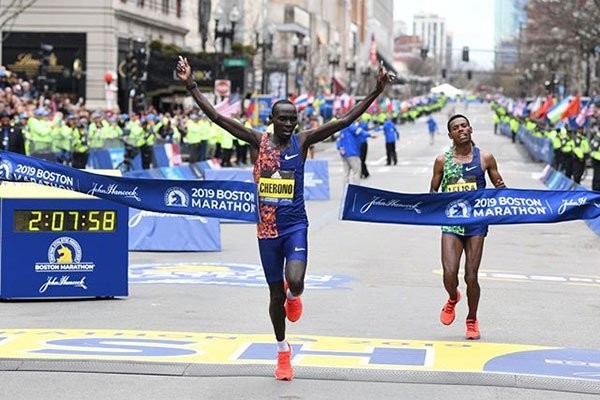
“The 2017 champion Geoffrey Kirui and 2018 champ Yuki Kawauchi and 2013 winner Lelisa Desisa will be competing with me. They have all won before and will be hungry for another title. But so will I. I expect serious fireworks on the Boston roads."
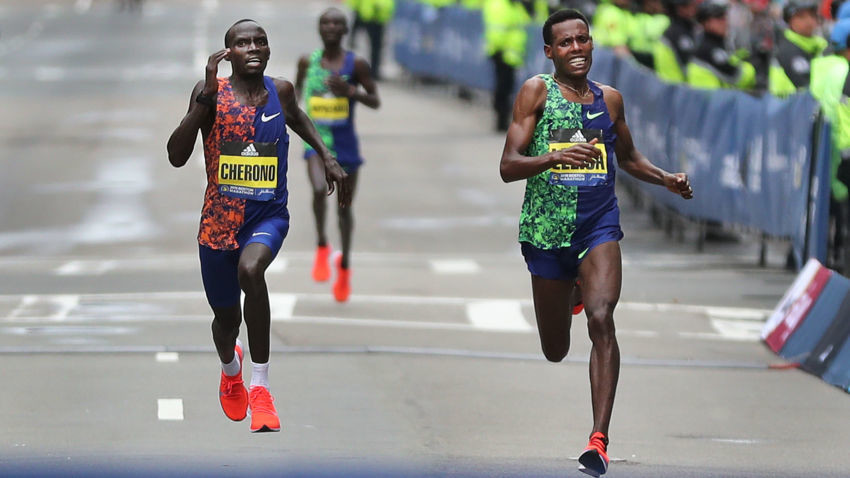
Cherono won the Boston elite men’s race in a sprint finish, clocking 2:07:57 to beat Desisa to second place (2:07:59) while Kenya's Kenneth Kipkemoi settled for third in 2:08:07.
Cherono said it was the final kick that saved the day for him.
“Desisa is a tough athlete and we were together in the leading pack up to the last 50m to the tape. That’s when I sprinted leaving him behind and his body couldn’t react and that’s how I was able to win the race,” said Cherono, who is also the Chicago Marathon champion.
Kirui, who bagged victory in 2017 is also looking forward to a good run and he is well intent to recapturing the crown.
The athlete, who normally trains at his home in Keringet, Nakuru has since shifted to Kaptagat in Elgeyo Marakwet in a bid to improve his performance.
“I have been training in the two regions (Kaptagat and Keringet) and both areas have similar conditions which are good for training.”
Kirui finished second in a rain soaked race in 2018 and fifth this year.
In the women’s category, 2015 champion Caroline Rotich will compete against 2017 champion Edna Kiplagat and reigning champion Ethiopia’s Worknesh Degefa.
Degefa won this year’s race in 2:23:31, Edna Kiplagat was second in 2:24:14 while USA’s Jordan Hasay was third in 2:25:20.
by Bernard Rotich
Login to leave a comment
Boston Marathon
Among the nation’s oldest athletic clubs, the B.A.A. was established in 1887, and, in 1896, more than half of the U.S. Olympic Team at the first modern games was composed of B.A.A. club members. The Olympic Games provided the inspiration for the first Boston Marathon, which culminated the B.A.A. Games on April 19, 1897. John J. McDermott emerged from a...
more...Reigning champions Lawrence Cherono and Worknesh Degefa will headline the 124th edition of the Boston Marathon
Lawrence Cherono won the 2019 race by two seconds over two-time winner Lelisa Desisa while Worknesh Degefa, the Ethiopian record holder at 2:17:41, won by an impressive 42-second margin.
During the race, Degefa said, “I could see first-hand how special the city of Boston, all the towns along the course, and the community is to so many people. And of course, I look forward to the challenge next April of once again racing against the world’s best athletes.”
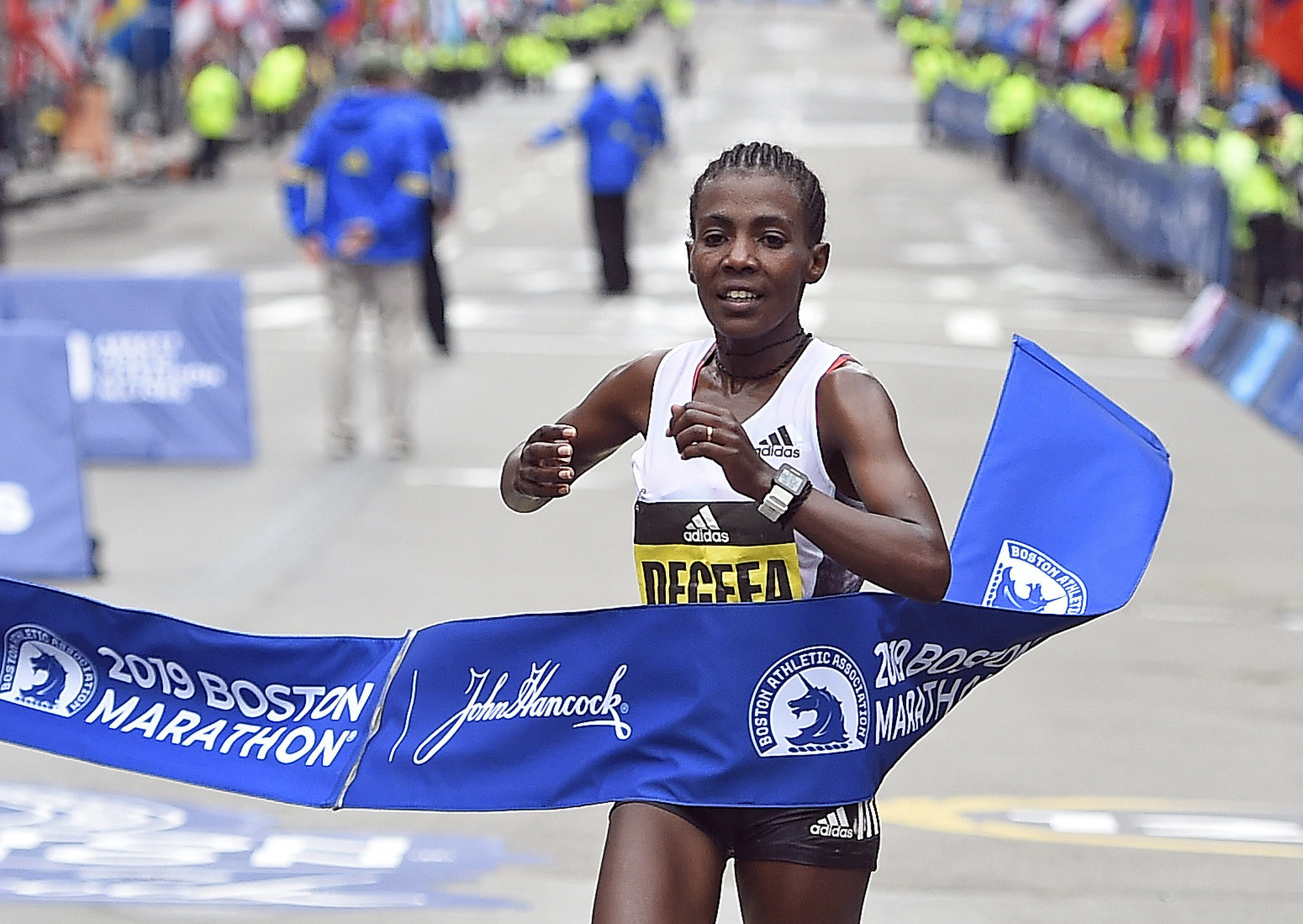
That line up will include 2015 winner Caroline Rotich and 2017 champion Edna Kiplagat, both of Kenya, and Des Linden of the US, who won in 2018. Locally, Linden’s appearance will warrant considerable attention, coming less than eight weeks after she’ll race at the USA Olympic Team Trials Marathon on February 29.
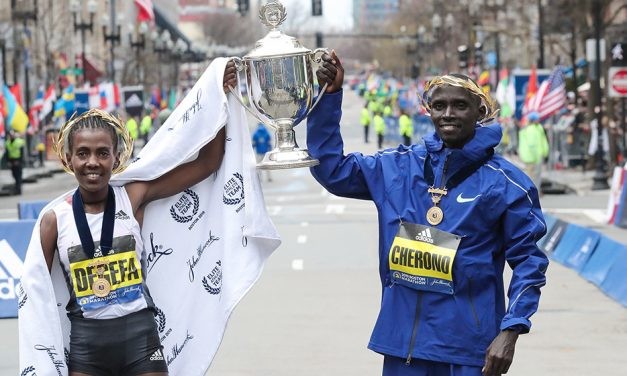
“At this point in my career I enter each race with a heightened sense of urgency and have become very selective in what races I'm willing to commit my time and energy to,” said Linden, 36, a two-time Olympian. “The Boston Marathon has always been the most motivating race on my schedule. I hope to stand on the start line in Hopkinton as the first US Woman to have made three Olympic Marathon teams.”
In the men’s race, Cherono will take on 2018 winner Yuki Kawauchi of Japan, Kenyan Goeffrey Kirui, the 2017 winner, and Desisa, the winner in 2013 and 2015.
“Boston will have a special place in my memories forever,” said Cherono, who has won eight marathons, most recently Chicago in October. “I loved every mile of this race and fought until the end to achieve the first place and become part of the elite family to have won the most prestigious race of the world.”
by World Athletics
Login to leave a comment
Boston Marathon
Among the nation’s oldest athletic clubs, the B.A.A. was established in 1887, and, in 1896, more than half of the U.S. Olympic Team at the first modern games was composed of B.A.A. club members. The Olympic Games provided the inspiration for the first Boston Marathon, which culminated the B.A.A. Games on April 19, 1897. John J. McDermott emerged from a...
more...John Hancock and the Boston Athletic Association announced 16 Boston marathon champions will be running the 2020 Boston Marathon
In a joint statement this morning, John Hancock and the Boston Athletic Association announced that sixteen prior race champions, including 2018 winner Desiree Linden, would run the 2020 Boston Marathon scheduled for Monday, April 20. The 2020 race, always held on the third Monday in April, will be the 124th running of the world’s oldest marathon.
“In our 35th year as principal sponsor of this historic race, we are excited to welcome back our accomplished champions,” said John Hancock chief marketing officer Barbara Goose through a statement. “Their return is a testimony to the tradition and legacy that is the Boston Marathon. These champions are not just racing each other, they are chasing history.”
While today’s announcement included the race’s four open and wheelchair division champions from 2019 –Lawrence Cherono of Kenya, Worknesh Degefa of Ethiopia, Manuela Schär of Switzerland and Daniel Romanchuk of the United States– it is the inclusion of Linden, a two-time Olympian, which will likely get the most attention, at least domestically. Linden, 36, who won the bitterly cold and rain-soaked edition of the race in 2018 where three quarters of the elite field couldn’t finish, will run Boston for the eight time. Moreover, she plans to double back from the USA Olympic Team Trials Marathon which will take place 51 days earlier in Atlanta on February 29. A top-3 finish there would put her on her third Olympic team.
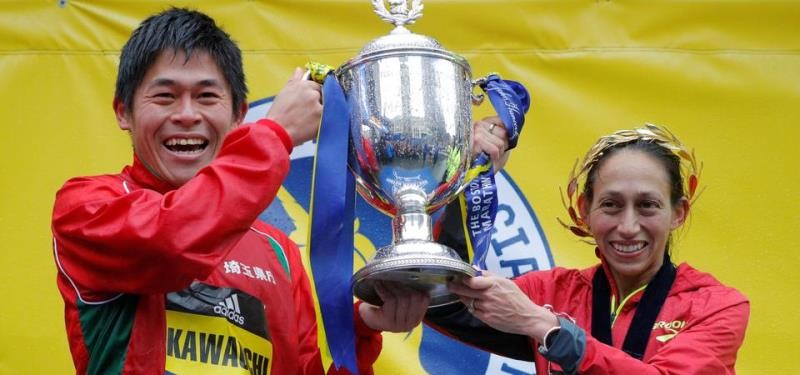
“Running the Boston Marathon seven weeks after the U.S. Olympic Trials is a plan that has been in the works for roughly a year,” Linden explained in a written statement. “I crossed the finish line in 2019 and knew if my body was capable, I wanted to return to Boston in 2020. My coach, Walt Drenth, and I had some long conversations on doing the double, how we would tailor the training, and if it was reasonable to expect to run well in both races. We were both excited about the challenge.”
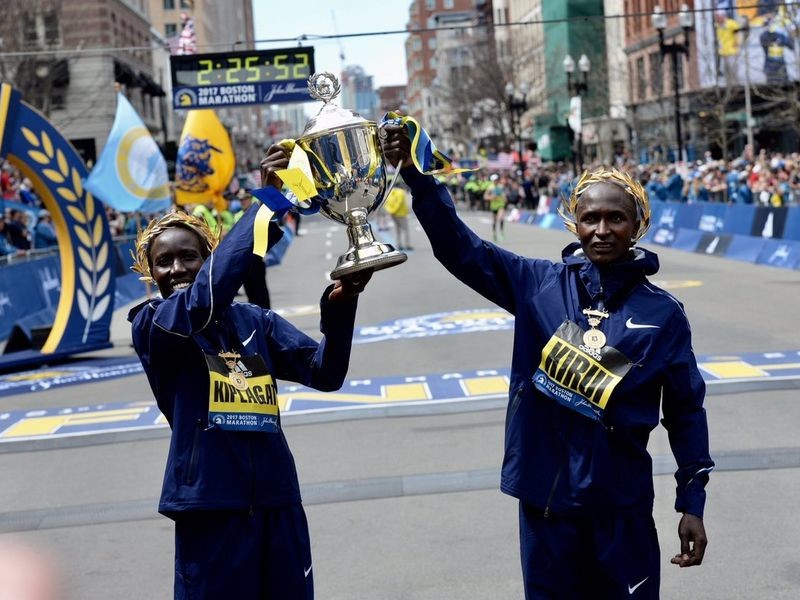
Linden’s marathon career began inauspiciously in Boston in 2007 when she finished 18th in 2:44:56, a time which would only have qualified her for next year’s Olympic Trials by four seconds. But when she returned to the race in 2011, she was a different athlete, nearly winning in a personal best 2:22:38 after a thrilling three-way battle against Kenya’s Caroline Kilel and Sharon Cherop on Boylston Street. Kilel got the win in 2:22:36, just two seconds ahead of Linden and six seconds ahead of Cherop.
Other prior race champions in the open division announced for the 2020 marathon were Yuki Kawauchi of Japan (first in 2018); Edna Kiplagat (2017), Geoffrey Kirui (2017), and Caroline Rotich of Kenya (2015); and Lelisa Desisa of Ethiopia (2013 and 2015), the reigning World Athletics marathon champion. Prior wheelchair division champions who have entered were Tatyana McFadden of the United States (2013 – 2016, 2018), Marcel Hug of Switzerland (2015 – 2018), Ernst van Dyk of South Africa (2011 – 2016, 2008 – 2010, 2014), Hiroyuki Yamamoto (2013) and Masazumi Soejima (2007 and 2011) of Japan, and Josh Cassidy of Canada (2012).
“The race for the tape on Patriots’ Day will surely be both competitive and compelling, as John Hancock has fielded a tremendous team of champions,” said Tom Grilk, the B.A.A. CEO. “With 16 returning champions, the roads leading to Boston will be filled with many of the most decorated runners and wheelchair racers in history. Another memorable chapter in Boston Marathon history will surely unfold on April 20.”
The Boston Marathon –which recorded 26,632 finishers in 2019– is part of the Abbott World Marathon Majors, a confederation of the world’s top marathons, and is also a World Athletics Platinum Label road race. The Platinum Label is new for 2020 and has been given only to a super-elite group of eight marathons so far: Tokyo, Nagoya Women’s, Seoul, Boston, London, Berlin, Chicago and New York (two to four more may be added, according to World Athletics).
by David Monti
Login to leave a comment
Boston Marathon
Among the nation’s oldest athletic clubs, the B.A.A. was established in 1887, and, in 1896, more than half of the U.S. Olympic Team at the first modern games was composed of B.A.A. club members. The Olympic Games provided the inspiration for the first Boston Marathon, which culminated the B.A.A. Games on April 19, 1897. John J. McDermott emerged from a...
more...Yuki Kawauchi ran his 100th marathon at the Hofu Yomiuri Marathon in Japan
2018 Boston Marathon champion Yuki Kawauchi is not like most other competitive marathoners, who typically don’t race more than two or three marathons a year. Yesterday Kawauchi ran his 100th marathon, at the Hofu Yomiuri Marathon in Japan, about 150 kilometers southwest of Hiroshima.
Kawauchi won this race last year, in 2:11:29. This year he finished in 2:14:17, in seventh place, making it his 94th marathon finishing in 2:20 or under.
Students of Kawauchi’s career know that his first marathon was 10 years ago, at the 2009 Beppu-ÅŒita Marathon in Japan, where he finished 20th in 2:19:26. (He brought his time down twice more that year, in Tokyo and Hokkaido.) This means he has averaged more than nine sub 2:20 marathons per year.
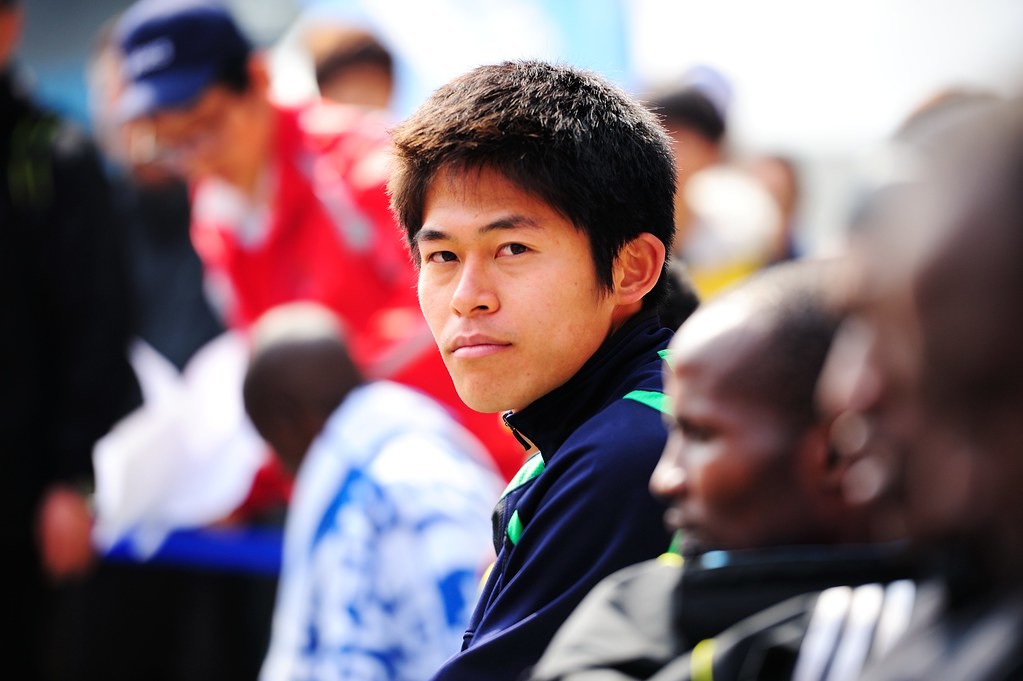
While most competitive marathoners don’t race that distance more than twice a year, Kawauchi races about once a month.
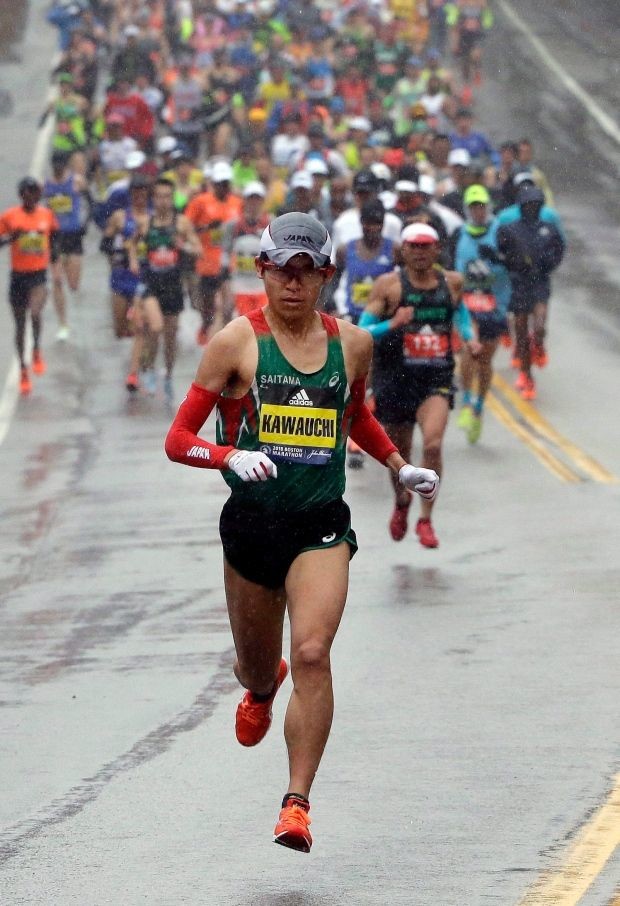
It’s a different kind of impressive from the traditional quest to be the fastest in the world. A 2:08 guy (from Seoul in 2013), Kawauchi may not challenge the world’s fastest marathoners, but he dominates in sheer volume of running. He’s had his share of podium finishes–in addition to winning Boston last year in conditions that drove many of his faster competitors off the course (his 79th sub-2:20 finish), he has stood on the podium at the Gold Coast Marathon four times, and last year he won the BMO Vancouver Marathon, adding to the list of smaller marathons he has won. According to his Wikipedia page, Kawauchi entered nine marathons in 2012 and won five of them.
Kawauchi races ultra distances as well, which some say is his secret weapon. And he comes from a family of runners–his two younger brothers are also marathoners, and this year he returned to Boston with his mom, Mika Kawauchi, who started running marathons at age 52 and qualified easily.
At the rate he’s going, we predict that by next summer he’ll have 100 sub-2:20 finishes.
by Canadian Running
Login to leave a comment
El Mahjoub Dazza, Koen Naert, Ayana Tsedat, and Yuki Kawauchi are set to compete for the title at Fukuoka Marathon
When the Fukuoka International Marathon became a non-domestic race in 1966, the intent of the organizer was to invite the winners from all the international championship marathons which took place over the previous 12 months. In keeping with the spirit of the event, this year’s edition of the World Athletics Gold Label road race, set to take place on Sunday, December 1st, , features European champion Koen Naert and Pan American Games gold medalist Christian Pachoco.
Naert recorded his marathon personal best, 2:07:39, at this year’s Rotterdam Marathon. But Morocco’s El Mahjoub Dazza is the fastest in the field as he recorded 2:05:26 at the 2018 Valencia Marathon and 2:05:58 in Prague earlier this year. Those two performances are faster than the PBs of all the other runners in the field.
“I am ready,” he said. “If the weather is good, I can run fast.”
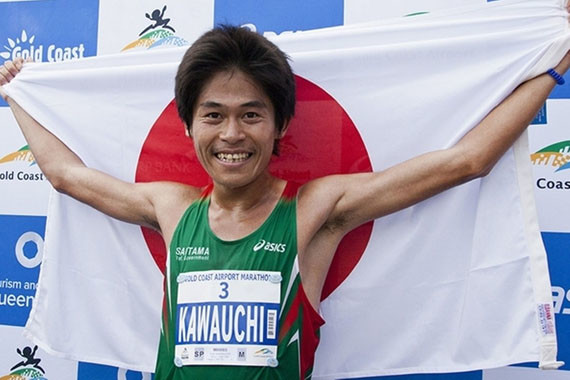
Other invited runners include Tsedat Abeje Ayana, who set a PB of 2:06:36 in Seville earlier this year, as well as sub-2:09 performers Raymond Choge, Amanuel Mesel, Abdi Ibrahim Abdo, and Shadrack Kiplagat. Mesel has competed in the past four editions of Fukuoka Marathon and has broken 2:10 in 2017 and 2018.
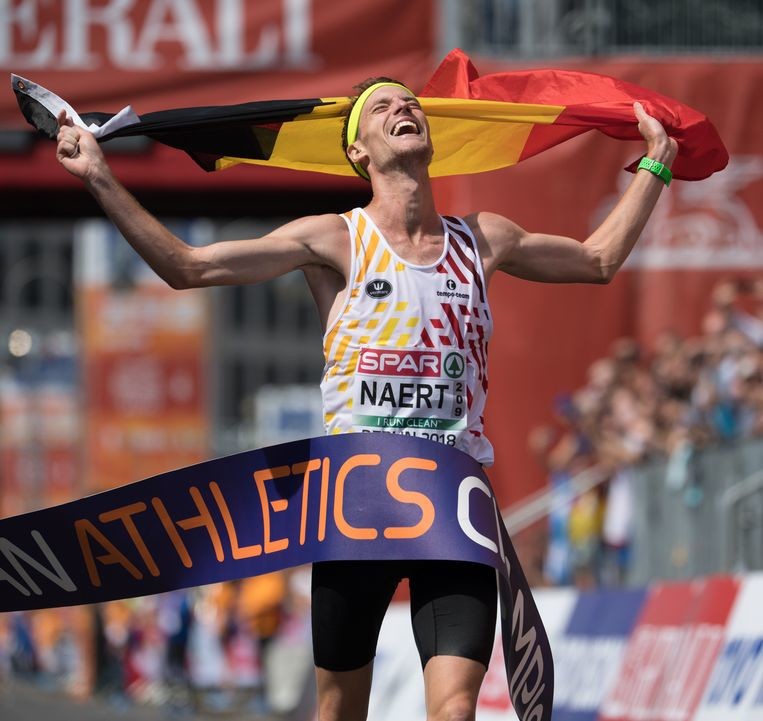
Kenyans running for a corporate sponsored team won the race on three occasions between 2011 and 2013. This year Michael Githae, who runs for Suzuki Hamamatsu Athletics Club, will try to become fourth Kenyan with a Japanese connection to win the Fukuoka Marathon. He was eighth at the 2017 Fukuoka Marathon and recorded a personal best of 2:09:21 at the 2018 Lake Biwa Marathon.
For Japanese runners, the significance of the race is that anybody who improves the national marathon record, 2:05:50, will clinch the third spot on the Japanese Olympic Marathon team – unless someone else improves the record further at the 2020 Tokyo or the Lake Biwa Marathon. Given the Japanese entrants for Sunday’s race, however, a national record appears unlikely in Fukuoka.
Taku Fujimoto, who ran 2:07:57 at the 2018 Chicago Marathon, is the fastest Japanese runner in the field, while Yuki Sato, who has a 10,000m best of 27:38.25, may have the best marathon potential.
Yuki Kawauchi will run the Fukuoka Marathon for the fifth straight year. His personal best is 2:08:14, while his best time in Fukuoka is 2:09:05 from 2013. Now that Kawauchi no longer works for Saitama prefecture government, he may be ready for a quicker time.
by World Athletics
Login to leave a comment
Fukuoka Marathon
The Fukuoka International Open Marathon Championship is one of the longest running races in Japan, it is alsoan international men’s marathon race established in 1947. The course record is held by Tsegaye Kebede of Ethiopia, running 2:05:18 in 2009. Frank Shorter won first straight years from 1971 to 1974. Derek Clayton set the World Record here in 1967 running 2:09:37. ...
more...Yuta Shitara sets new course record at the Gold Coast Marathon even when weather conditions were not ideal
The second fastest Japanese marathon runner in history became the fastest runner in Gold Coast Marathon history when Yuta Shitara won the IAAF Gold Label race in 2:07:50 this morning.
The 27-year-old had an exciting duel with placegetters Barnabus Kiptum of Kenya and Zane Robertson of New Zealand over the final 12km before making his move with 2km remaining.
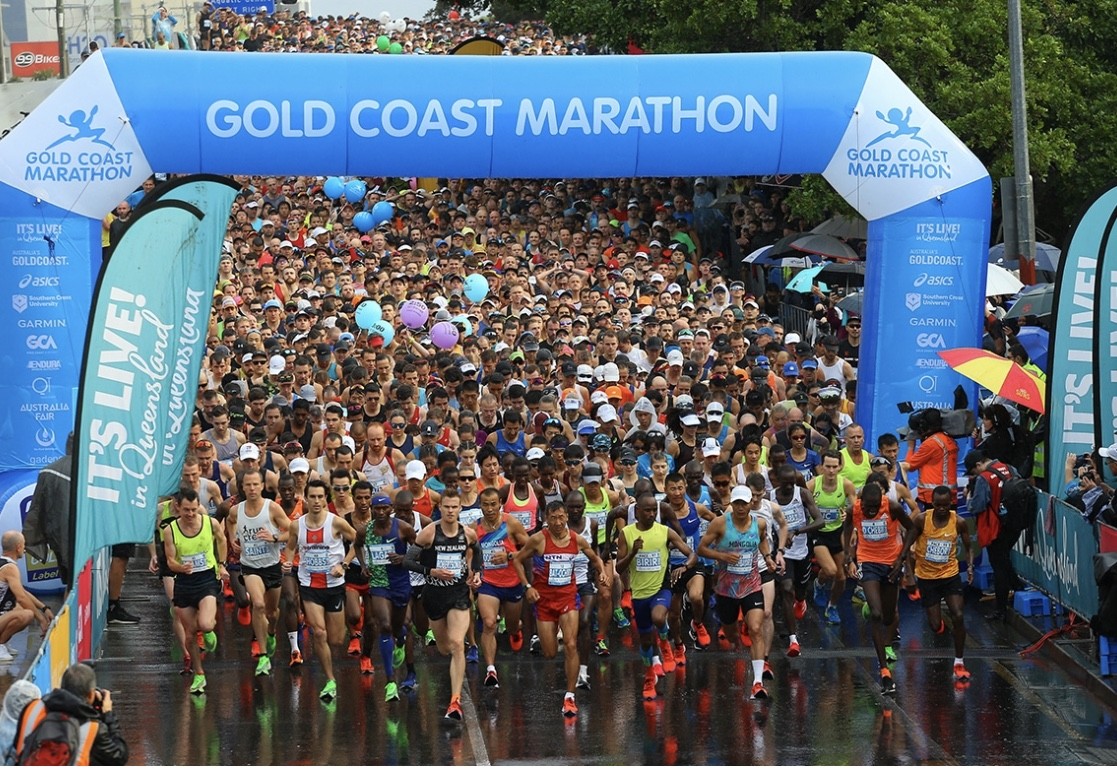
It was the eighth win by Japanese men in the 41-year history of the event and bettered the race record and Australian all comers record previously held by Kenyan Kenneth Mungara (2:08:42).
Shitara takes home $20,000 in victory prize money and an additional $10,000 time bonus for his record-breaking effort today.
Kiptum, the winner of the Hong Kong Marathon in February, finished second in a personal best 2:08:02, while marathon debutant Robertson placed third in 2:08:19.
It was an extra special result for Robertson as his time was a New Zealand record, bettering the previous mark of his brother Jake (2:08:26, Lake Biwa, 2018), and he was crowned the IAAF Oceania Area Marathon Champion for 2019.
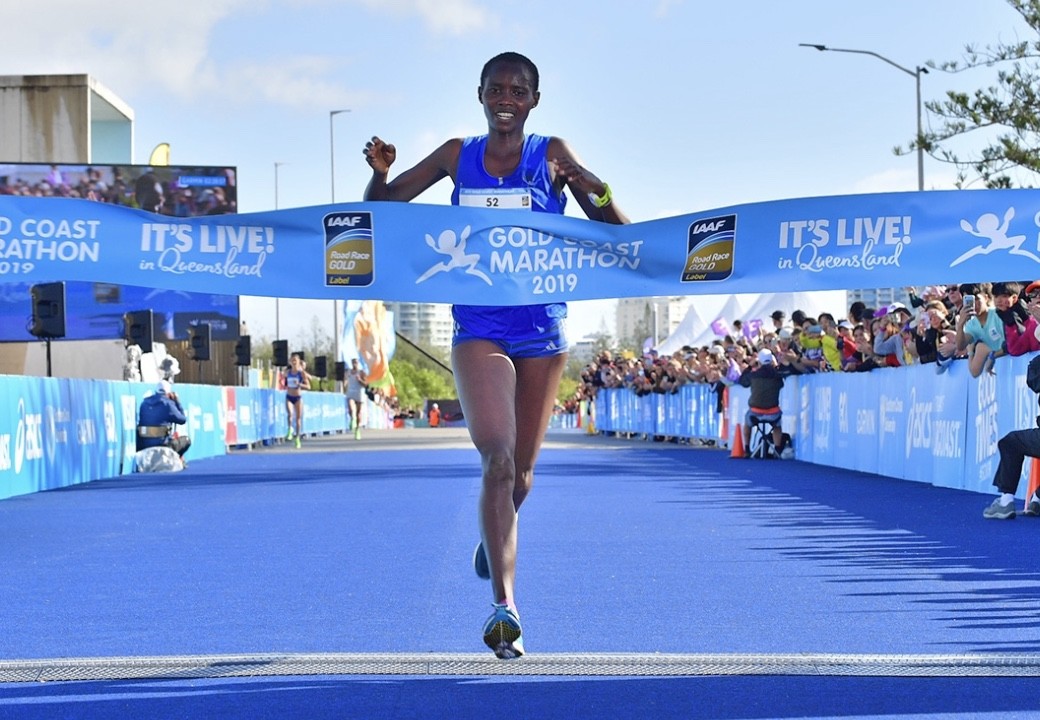
The first Australian across the line was Victorian Liam Adams in sixth place clocking a pb 2:11:36 – a bittersweet result for the 32-year-old as it was an agonising six seconds outside the 2020 Olympic qualification standard.
Dual world champion over 1500m and 5000m on the track Bernard Lagat (USA) improved his marathon pr to 2:12:10 for seventh place, while 2013 race winner Yuki Kawauchi (JPN) placed 13th in 2:15:32.
"It's definitely a confidence builder, and I have had a lot of things to make me confident, but this is a big one heading into the Japanese Olympic trials," said Shitara.
Shitara, who stayed with the lead group of four throughout the race, said although he was not aiming for a particular time or result, the win showed his training had paid off.
“We did a lot of training, and I think that helped," he said in a post-race interview.
Weather conditions on the Gold Coast were less than ideal, with athletes in both the full- and half-marathons battling headwinds and heavy rain.
"Honestly, I'd like to be able to run together with Yuta but I'm still not good enough," Kimura said.
Kenyan Rodah Jepkorir (KEN) held off a strong finishing burst from Tasmanian Milly Clark (AUS/TAS) to take the women’s Gold Coast Marathon.
The 27-year-old broke away from the 30km mark and then lasted to break the tape in 2:27:56, with Clark second (2:28:08) and Eritrea’s Nazret Weldu (ERI) third in 2:28:57.
This year’s eight Gold Coast Marathon races attracted a total of 26,287 entries, including 3,678 overseas competitors, as the event continues to achieve a long-term upward trend.
Login to leave a comment
Gold Coast Airport Marathon
The Gold Coast Airport Marathon is held annually in one of the most popular holiday destinations in the world. It is Australia’s premier road race and was the first marathon in the country to hold an International Association of Athletics Federations (IAAF) Road Race Gold Label. The event is held on the first weekend of July and attracts more than...
more...Kenyan Kenneth Mungara, Bernard lagat, Zane Robertson and Yuki Kawauchi are ready to compete at Gold Coast Marathon
Can the man dubbed ‘King Kenneth’ by race organizers, Kenya’s Kenneth Mungara, continue to hold back the years to achieve a fourth victory on the Gold Coast? Has Bernard ‘Kip’ Lagat learned enough from a humbling marathon debut in New York last year to mount a credible challenge? Can New Zealand’s Zane Robertson, who missed last year’s Commonwealth Games marathon on the Gold Coast through injury, atone with a victory this time and perhaps take the family record off twin brother Jake into the bargain?
First, let’s take Mungara, as befits an athlete who is the defending champion and holds the race and Australian all-comers’ records with his 2:08:42 in 2015. Sunday will be precisely two months before his 46th birthday, but he shows no signs of slowing down. Should he win again, Mungara will join Pat Carroll, who himself has the credentials to be considered king of the Gold Coast, and Margaret Reddan as four-time winners of the event.
He may not even be first in category. Bernard Lagat turns 45 in December. By any measure, Lagat is the best all-round distance runner to compete in the Gold Coast race. A silver and bronze Olympic medallist at 1500m and second-fastest ever at the event, world over 1500m and 5000m in Osaka in 2007 – he sits comfortably in any conversation of track distances up to, and including, the 10,000m. The marathon is another matter. His debut of 2:17:20 in New York last year was a harsh learning experience and left him with something to prove.
“One of the most important things I learned from running the New York Marathon,” Lagat said when his Gold Coast commitment was announced, “was the experience of ‘hitting the wall’. A lot of people warned me about it and told me to watch for it, but nothing quite teaches you like living through that experience… I panicked a bit, questioned myself if I could finish.”
If Lagat has conquered those doubts, he could be a big factor on the Gold Coast.
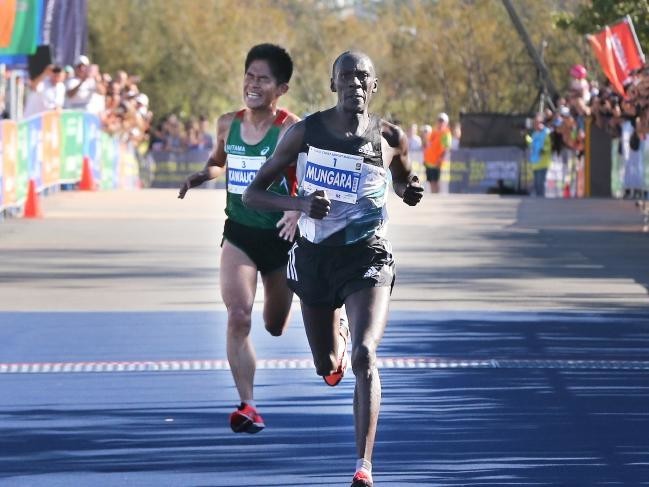
Zane Roberston believes he could have won the Commonwealth Games race. A half-marathon PB of 59:47 suggest that is more than just idle talk. He was happy to talk up his chances pre-race.
“First and foremost, I always target the win,’ Robertson said. “I want to run as fast as the pacemakers allow and once they step off the road anything can be possible. Perhaps a new Oceania record?”
Robert de Castella holds the Oceania record at 2:07:51, his winning time the first year the Boston marathon went open in 1986. Of equal note, Zane’s twin brother Jake holds the New Zealand, and family, record at 2:08:26.
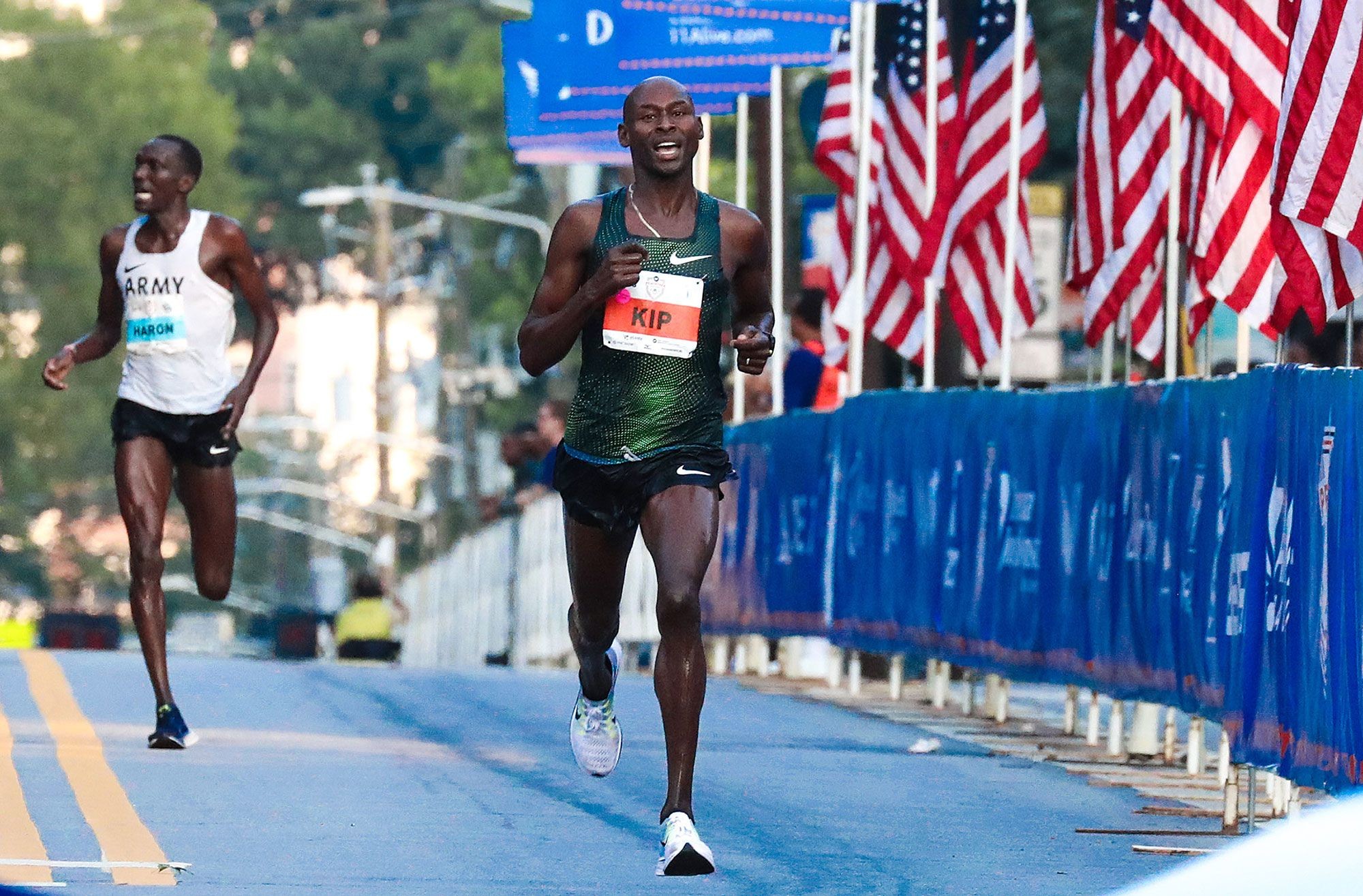
The Gold Coast race also serves as the Oceania championships, so the Oceania champion will accrue valuable rankings points for the Tokyo 2020 Olympics.
Kenyan pair Ezekiel Chebii and Philip Sanga Kimutai both boast personal bests of 2:06:07, the former from 2016 in Amsterdam, the latter from 2011 in Frankfurt. But the man with the most recent 2:06-clocking is Japan’s Yuta Shitara who ran a national record 2:06:11 in Tokyo last year, a mark subsequently bettered by Suguru Osako’s 2:05:50 in Chicago. Along with the indefatigable Yuki Kawauchi, he gives Japan a strong hand in what has been traditionally a strong race for them.
by IAAF
Login to leave a comment
Gold Coast Airport Marathon
The Gold Coast Airport Marathon is held annually in one of the most popular holiday destinations in the world. It is Australia’s premier road race and was the first marathon in the country to hold an International Association of Athletics Federations (IAAF) Road Race Gold Label. The event is held on the first weekend of July and attracts more than...
more...New Zealand-born Zane Robertson eagerly awaiting marathon debut at Gold Coast
When you want to be the best at something, you surround yourself with the best. That was New Zealand-born Zane Robertson’s thinking when he and twin brother Jake Robertson shunned US athletics scholarships and moved to Kenya at age 17 to immerse themselves in one of the culture that produces the world’s best runners.
Dubbed ‘Elvis’ by the Kenyans for once dying his hair black, the 29-year-old New Zealand 10,000m national record holder and Glasgow 2014 Commonwealth Games 5,000m bronze medallist has chosen to make his marathon debut at the Gold Coast Marathon, an IAAF Gold Label road race, on 7 July.
After a groin injury ruled him out of his first marathon at the Gold Coast 2018 Commonwealth Games, Robertson is hungry to make amends on the same flat and fast course.
“Missing out last year when I was in crazy shape was devastating. I watched the race from Kenya and couldn’t stop thinking about how I could have won,” Robertson said.
“By coming to the Gold Coast Marathon, I feel I can replace that loss of mine.”
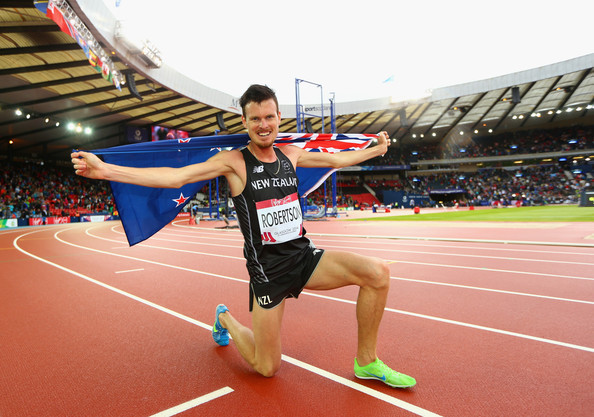
Robertson, who has a half marathon PB of 59:47, is not letting last year’s disappointment faze him in the lead up to his first attempt at 42.195km.
“The mind is such a powerful thing in sport, especially in long distance races,” he said.
“If you don't believe in yourself, you've already lost. I always feel confident; if I don't, I won't race.”
Robertson is upbeat about his potential in this year’s event, despite toeing the line alongside a stellar line up in the men’s marathon including 2013 champion and 2018 Boston Marathon winner Yuki Kawauchi of Japan and three-time Gold Coast Marathon champion and race record holder Kenneth Mungara of Kenya.
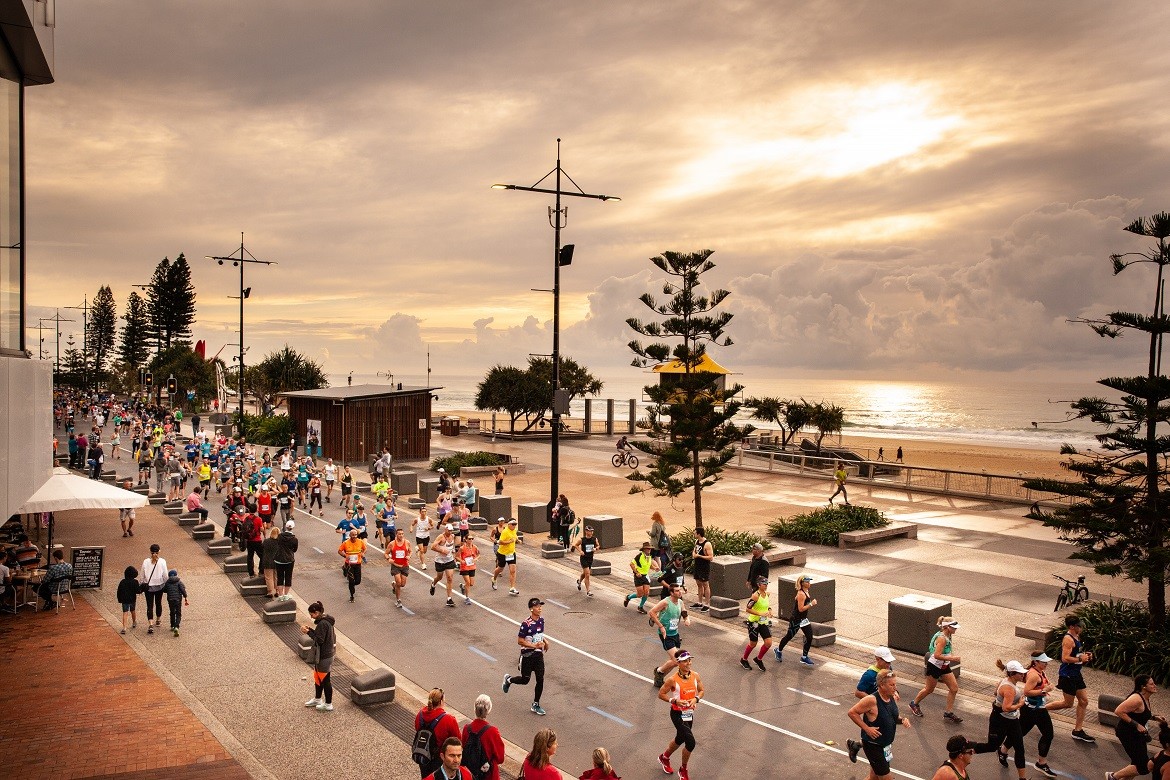
“First and foremost, I always target the win. I want to run as fast as the pacemakers allow and once they step off the road anything can be possible. Perhaps a new Oceania record?” Robertson said.
Robertson and his brother have now spent over a decade in Kenya and Ethiopia learning what makes the best runners tick and while the jury is out on whether it is nature or nurture, he’s confident the lessons learnt both on and off the track will stand him in good stead for a fast marathon time.
“I’ve learnt to live a runner’s life - which means to have discipline when you’re training, and to relax and recover when you’re not,” he said.
Twin brother Jake placed third on debut at last year’s Lake Biwa Marathon in Japan in an impressive 2:08:26, a time 16 seconds faster than Mungara’s Gold Coast Marathon race record of 2:08:42 set in 2015.
But despite his brother seemingly throwing down the gauntlet, Zane remains assured the pair have moved past sibling rivalry.
“We realised that this world is so much bigger than that and the challenge is not with each other but against ourselves to be better than we were yesterday,” he said.
Login to leave a comment
Gold Coast Airport Marathon
The Gold Coast Airport Marathon is held annually in one of the most popular holiday destinations in the world. It is Australia’s premier road race and was the first marathon in the country to hold an International Association of Athletics Federations (IAAF) Road Race Gold Label. The event is held on the first weekend of July and attracts more than...
more...Yuki and Yuko have known each other for 11 years and today they got married
The 2018 Boston Marathon champion Yuki Kawauchi married Yuko Mizuguchi today. He wrote on Facebook, “She loves running as same as me. Yuko PB’s are 2:31:39 for the marathon, 1:11:03 Half marathon and 32:10 for 10000m.
They recently won both the men’s and women’s titles at the Vancouver Marathon in Canada.
Yuki who is now a professional runner and not working full time continued, “We met at New Caledonia international marathon 11 years ago.”
They will run the Gold Coast marathon in July and the New Caledonia international marathon in August.
Yuki Kawauchi
Login to leave a comment
Yuki Kawauchi and fiance Yuko Mizuguchi, yes fiance won the BMO Vancouver Marathon titles
An engaged couple from Japan won the BMO Vancouver Marathon, the first time two Japanese runners who have taken home gold in 20 years.
And attendance was at an all-time high, with 18,000 runners from around 65 countries participating in one of three distances.
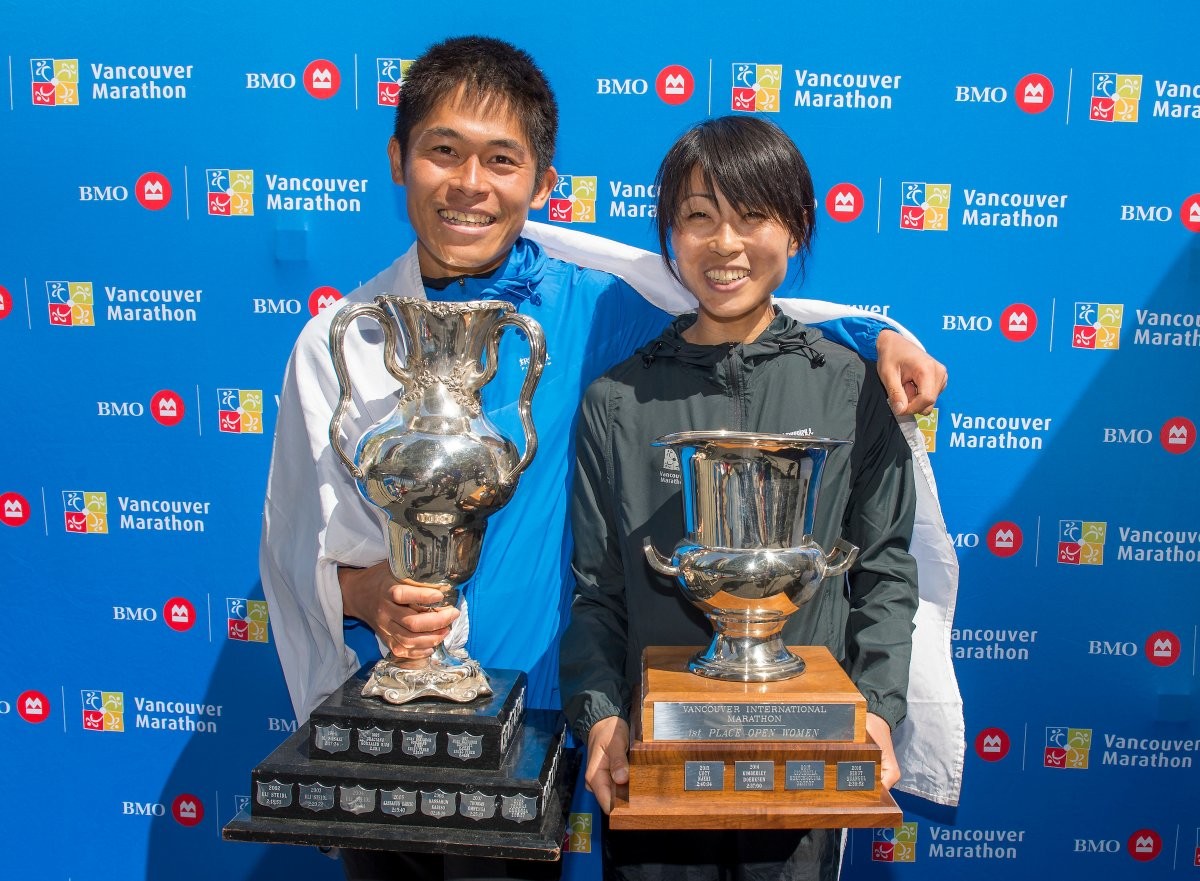
Yuki Kawauchi and Yuko Mizuguchi came out the champions with finishing times of (02:15:01) and (02:41:28) for the marathon.
The recently-engaged couple arrived in Vancouver last week for their first Canadian marathon, and won.
2018 Boston Marathon winner Kawauchi broke the course record of 2:18:37 set by Luka Chelimo from Kenya in 2015.
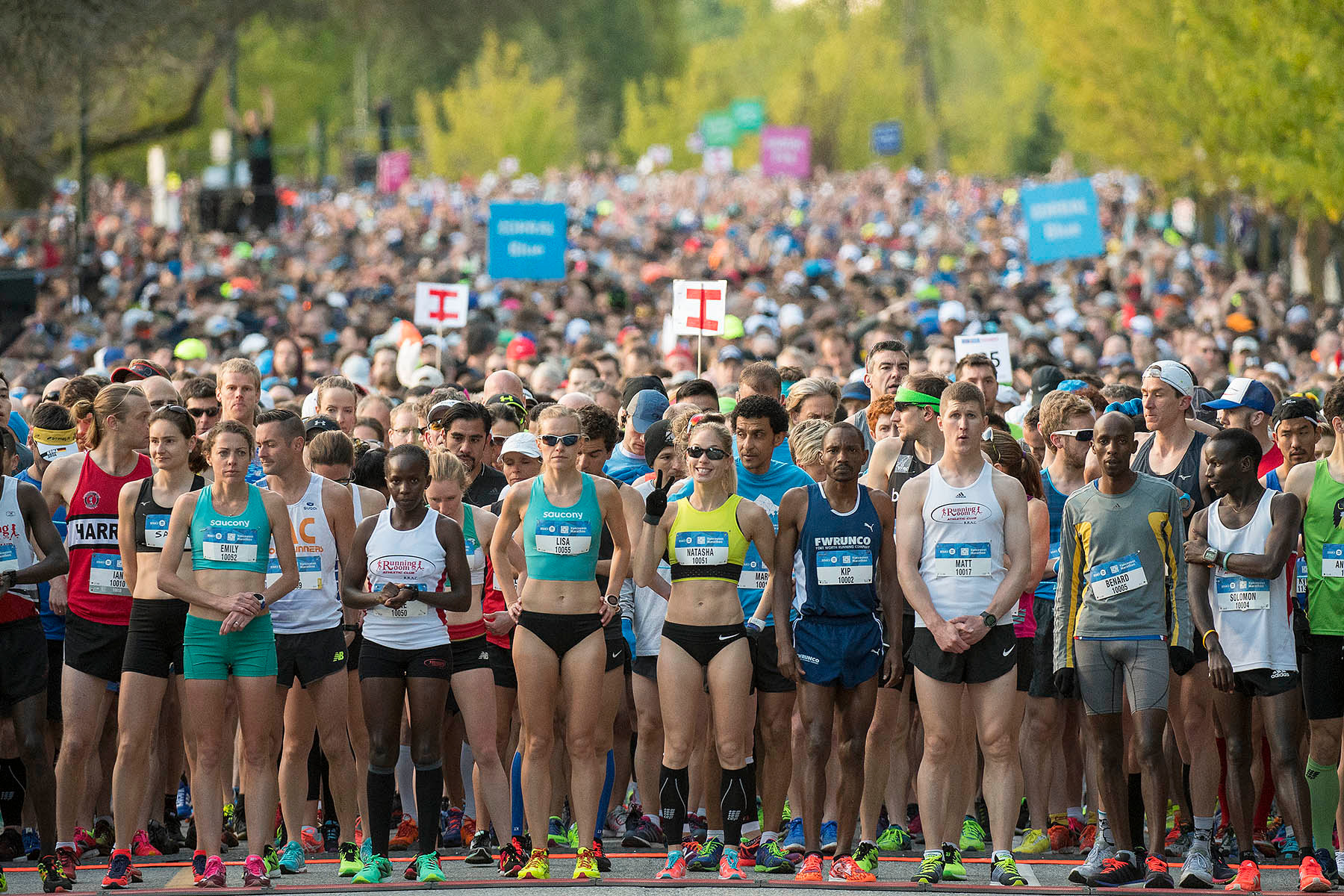
“They really pushed me to this record,” Kawauchi says in a press release, speaking of second and third-place finishers Feyera Gemeda Dadi and Chelimo. “It’s not an easy course, but it’s a very beautiful course, I would definitely recommend coming here to enjoy it and get the most out of it, it’s a great event.”
He was impressed by the scenery and support from the crowd, as was women’s title winner and fiancee Mizuguchi.
“Running around Stanley Park in the midst of all that nature really gave me a nice boost,” she says in a release. “Being able to see the ocean and the mountains – at some parts of the race, I found myself kind of distracted looking at how beautiful the ocean was.”
Login to leave a comment
BMO Vancouver Marathon
The BMO Vancouver Marathon is one of Vancouver’s most iconic marathon events. The event features a full marathon, marathon relay, half marathon, 8k run, and streets lined with thousands of spectators. Runners can expect to experience a little bit of everything that Vancouver has to offer as they run a straight course that starts at Queen Elizabeth Park, and finishes...
more...Bedan Karoki and Eunice Kirwa, both past winners of the Gifu Seiryu Half Marathon, will return to defend their titles this weekend
Gifu Seiryu Half Marathon, Also known as the ‘Naoko Takahashi Cup’ as it is held in the home town of the 2000 Olympic marathon champion, the men’s course record of 1:00:02 was set by Karoki when he won in 2014, while the women’s course record of 1:07:44 was set by world record-holder Joyciline Jepkosgei in 2017.
Karoki, world ranked No.13 in road running, will be aiming to become just the second two-time men’s champion in Gifu. Since his last run in Gifu, Karoki earned world silver medals at cross-country in 2015 and at the half marathon in 2016.
He also improved his half marathon PB to 58:42 in 2018 and earlier this year clocked a marathon best of 2:06:48 to finish second in Tokyo.
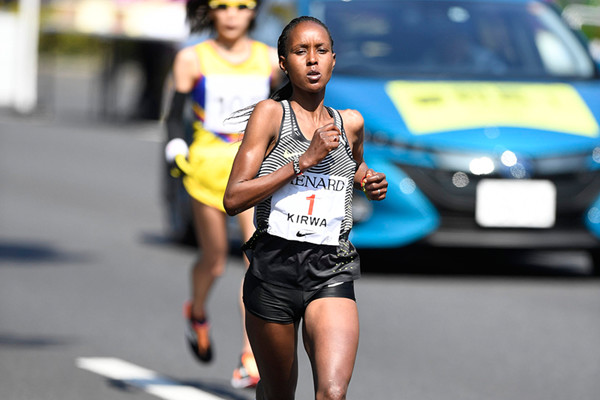
His main challengers are Eritrea’s Samuel Tsegay, who has a best of 59:21, Abraham Kipyatich, world ranked No.79, and Uganda’s Abdallah Mande, world ranked No.30. Tsegay’s best was recorded back in 2014, but Kipyatich and Mande both set PBs at various distances in 2018 so will likely be bigger threats to Karoki.
Yuki Kawauchi, the 2018 Boston Marathon champion, is the most famous Japanese runner in the field, but national half marathon record-holder Yuta Shitara is the fastest of the domestic entrants. Shitara’s half marathon best is 60:17 recorded in 2017.
Two time Gifu Seiryu Half Marathon champion Eunice Kirwa Jepkirui leads the loaded women’s field. The Olympic marathon silver medallist set an Asian half marathon record of 1:06:46 in Istanbul in 2017 in what was her last race over the distance.
The 2015 world bronze medallist didn’t race at all in 2018, though, and she may need to be at her best if she hopes to win her third title in Gifu.
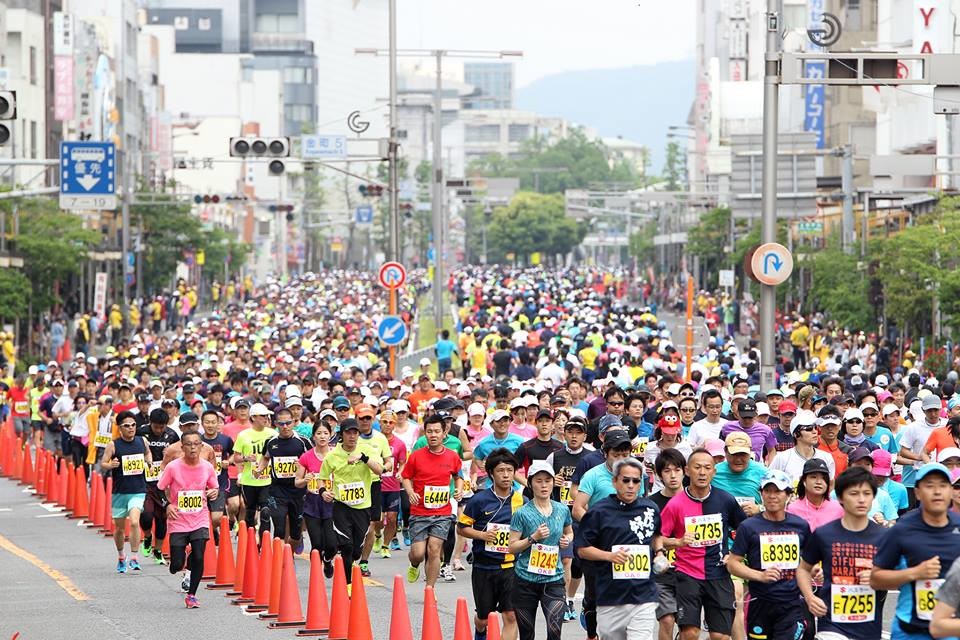
Joan Melly Chelimo, world ranked No.3 in road running, has the fastest PB of the field. The Kenyan clocked 1:05:04 in Prague last year, making her the fourth-fastest woman in history for the distance.
Ruth Chepngetich, world ranked No.1 in the marathon, heads to Gifu in the form of her life. She won this year’s Dubai Marathon in 2:17:08, the third-fastest time in history, and followed it with half marathon performances of 1:06:09 and 1:05:29.
World marathon champion Rose Chelimo will be aiming to improve on her PB of 1:08:08, while Ana Dulce Felix, Mimi Belete and Gotytom Gebreslase are also in the field.
by Ken Nakamura
Login to leave a comment
Gifu Half Marathon
The Gifu Seiryu Half Marathon is an annual half marathon road running competition held in Gifu, Japan. First held in 2011, the race is also called the Naoko Takahashi Cup, named after Naoko Takashi, the retired local runner who won the marathon at the 2000 Sidney Olympics and broke the marathon world record in 2001, becoming the first woman to...
more...Yuki Kawauchi's mom Mika ran 3:41:52 in Boston just one year after her son won it
2018 Boston champion Yuki Kawauchi’s mom, Mika Kawauchi, ran a 3:41:52 at Boston on Monday. This is her PR. The 54-year-old easily ran a BQ for next year and got to do it in the same race as her son.
Mika is an accomplished middle distance runner, and according to a story in the New York Times last October, she was Yuki’s first coach. The B.A.A. invited her to race at Boston this year.
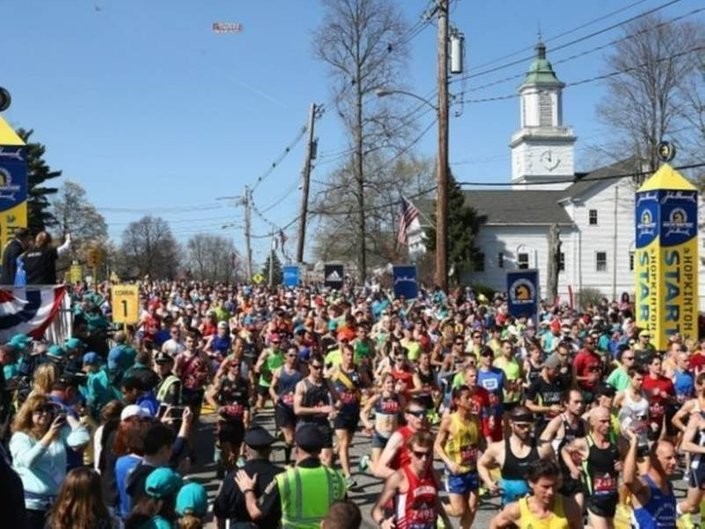
“We are excited to have her run this year,” says B.A.A. communications manager Chris Lotsbom, whom we reached by email, “and believe it is the first time a parent of a defending champion has competed in the same race their son/daughter was racing in as defending champion.”
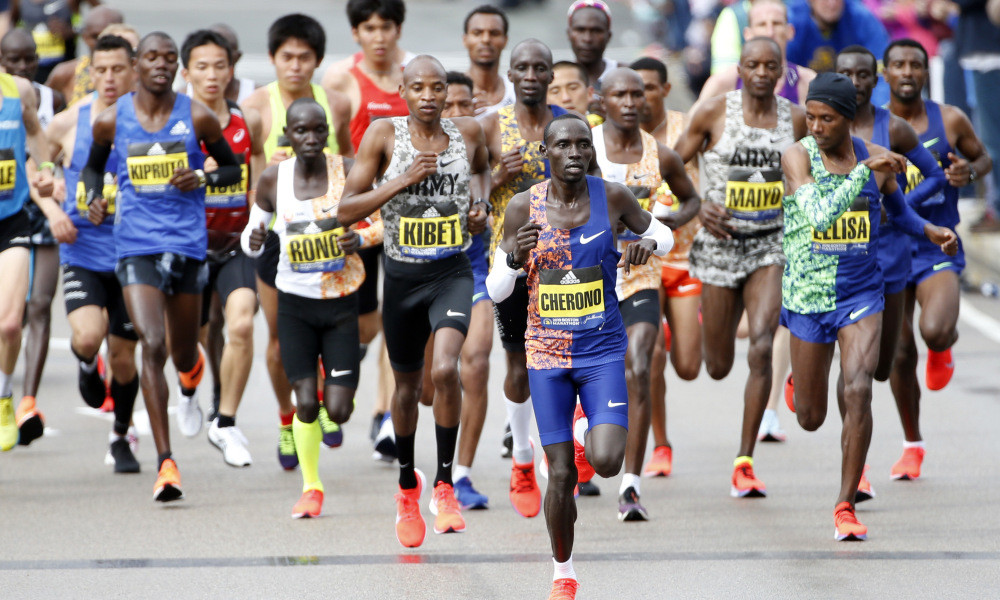
What few people know is that the Kawauchi’s are a running family. Yuki’s brothers Koki and Yoshiki are both runners. Mika ran her first marathon at Gold Coast in Australia in 2016 at age 52, finishing in 3:53.
Yuki finished in 17th place in Monday’s marathon in a time of 2:15:29 which was 25 seconds faster than his 2018 winning time of 2:15:54.
Login to leave a comment
Boston Marathon
Among the nation’s oldest athletic clubs, the B.A.A. was established in 1887, and, in 1896, more than half of the U.S. Olympic Team at the first modern games was composed of B.A.A. club members. The Olympic Games provided the inspiration for the first Boston Marathon, which culminated the B.A.A. Games on April 19, 1897. John J. McDermott emerged from a...
more...Lawrence Cherono wins the 2019 Boston Marathon Elite Men's race by two seconds
It was a sprint to the finish at this year's Boston Marathon. A three-person race down the stretch on Boylston Street turned into a two-man, all-out sprint and Cherone of Kenya emerged in front of Lelisa Desisa. Cheroono's time was 2:07:57, best time since 2011, while Desisa clocked a 2:07:59. Kenneth Kipkemoi faded in the final 300 yards and placed thired in 2:08:06.
Scott Fauble, in seventh, and Jared Ward, in eighth, were the top American finishers, crossing in 2:09.10 and 2:09.25, respectively.
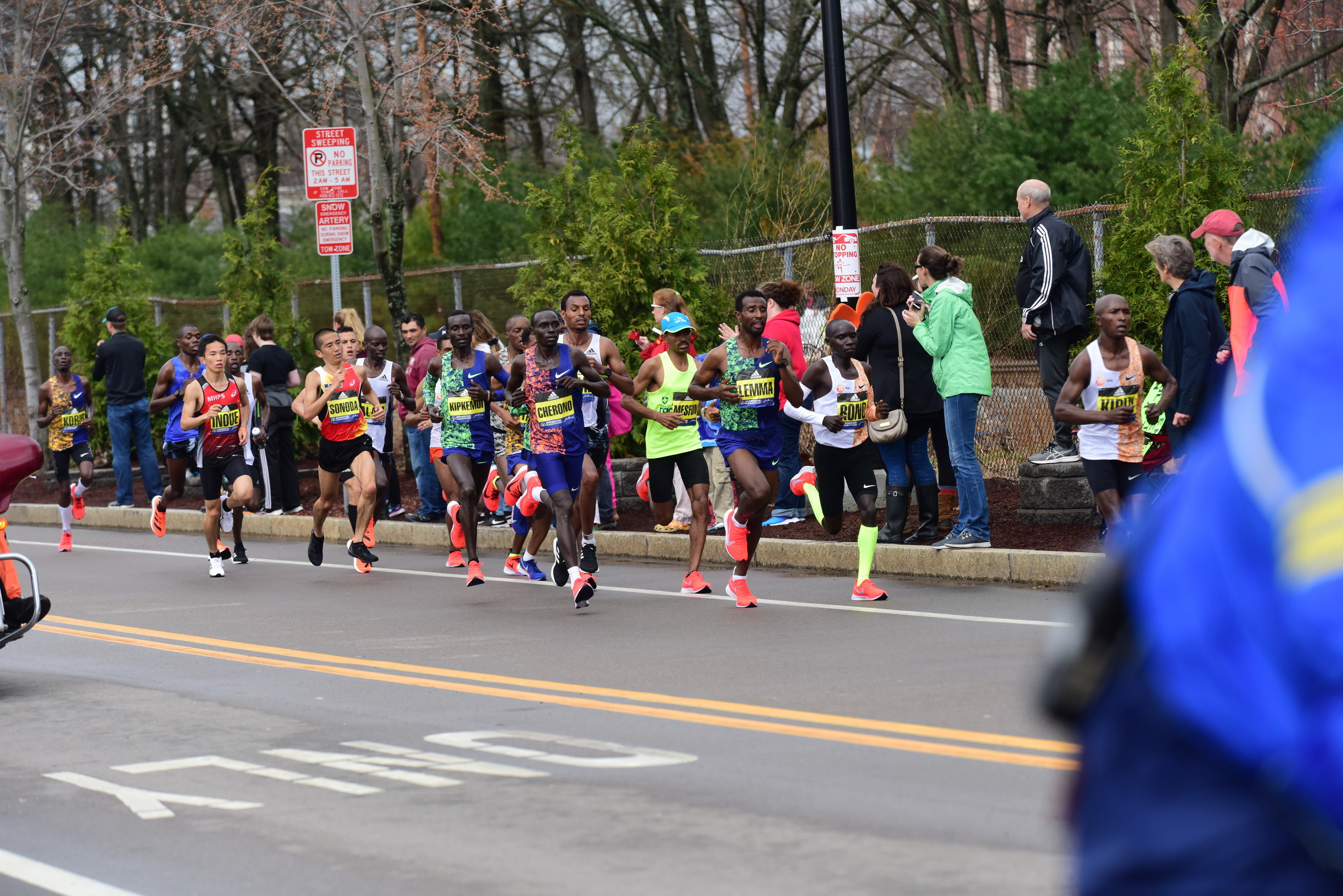
Going into Boston Lawrence was the winner of six marathons and was the fastest man in the 2019 Boston Marathon field, Cherono brought both speed and strength to his Boston debut. His personal best was earned with a course record win at the 2018 Amsterdam Marathon (2:04:06). He also won the 2017 Amsterdam Marathon, the 2016 and 2017 Honolulu Marathon, the 2016 Prague Marathon and the 2015 Zurich Marathon. In his first Abbott World Marathon Majors event, he finished seventh at the Virgin Money London Marathon in 2:09:25.
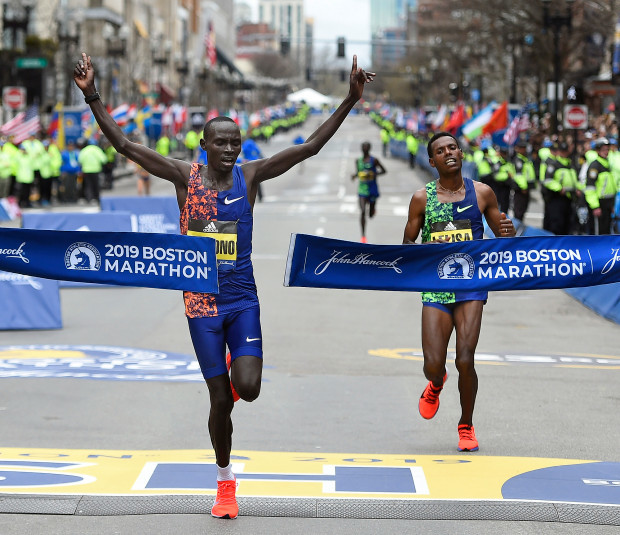
Cherono’s coach is 2007 Boston Marathon runner-up James Kwambai. He says winning the Amsterdam Marathon in a course record time has been a career highlight.
Last year Geoffrey Kirui was intent on defending his Boston crown, but after pulling away from the front pack and leading many of the closing miles, he was caught by Yuki Kawauchi and had to settle for second in 2018.
This year at 20 miles Geoffrey was leading clocking 1:38:37 but in the end he faded to fifth about a minute behind the winner.
Login to leave a comment
Boston Marathon
Among the nation’s oldest athletic clubs, the B.A.A. was established in 1887, and, in 1896, more than half of the U.S. Olympic Team at the first modern games was composed of B.A.A. club members. The Olympic Games provided the inspiration for the first Boston Marathon, which culminated the B.A.A. Games on April 19, 1897. John J. McDermott emerged from a...
more...Mika Kawauchi the mom of Yuki Kawauchi is going to be running the Boston Marathon this year
The JapanRunningNews.com site reports that Boston Marathon defending champion Yuki Kawauchi’s mother, Mika Kawauchi, is also running the Boston Marathon this year. She will start in Wave four.
Mika is an accomplished middle distance runner, and according to a story in the New York Times last October, she was Yuki’s first coach.
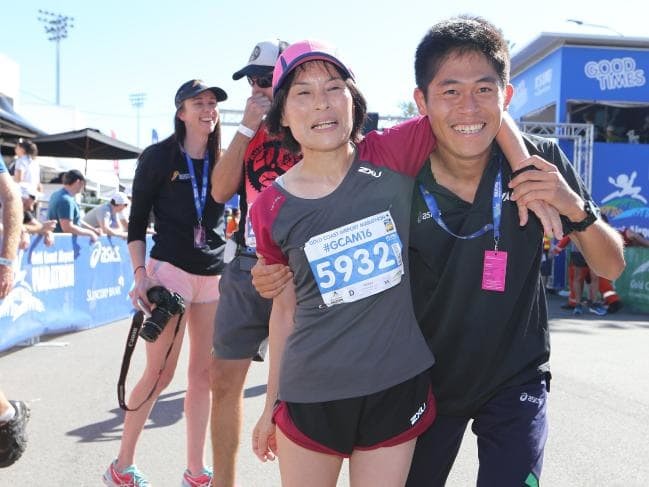
The B.A.A. invited her to race at Boston this year. “We are excited to have her run this year,” says B.A.A. communications manager Chris Lotsbom, whom we reached by email today, “and believe it is the first time a parent of a defending champion has competed in the same race their son/daughter was racing in as defending champion.”
What few people know is that the Kawauchis are a running family. Yuki’s brothers Koki and Yoshiki are both runners. Mika ran her first marathon at Gold Coast in Australia in 2016 at age 52, finishing in 3:53.
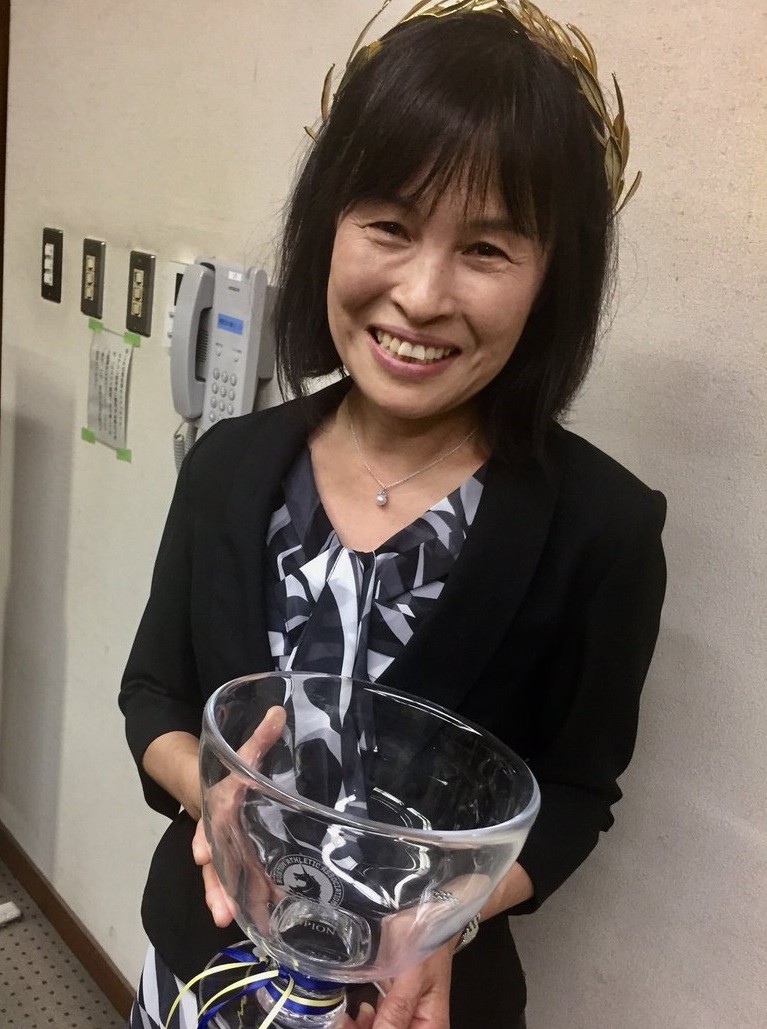
Yuki runs the Gold Coast every year and has stood on the podium four times. (He has an ongoing rivalry with Kenyan runner Kenneth Mungara, who holds the course record and Australian all-comers record of 2:08:42, set in 2015).
The four Kawauchis all raced at the Gold Coast together last year, Mika and Yoshiki running the Southern Cross University 10K, and Koki the half-marathon. Mika finished in 46:27, for eighth in her age group.
by Anne Francis
Login to leave a comment
Boston Marathon
Among the nation’s oldest athletic clubs, the B.A.A. was established in 1887, and, in 1896, more than half of the U.S. Olympic Team at the first modern games was composed of B.A.A. club members. The Olympic Games provided the inspiration for the first Boston Marathon, which culminated the B.A.A. Games on April 19, 1897. John J. McDermott emerged from a...
more...Kenyan Kenneth Mungara and Japan’s Yuki Kawauchi, who produced one of the closest finishes in the event’s 40-year history, will once again face each other
The 2019 Gold Coast Marathon is shaping up to be an exciting one with the announcement today that long term rivals Kenyan Kenneth Mungara and Japan’s Yuki Kawauchi, who produced one of the closest finishes in the event’s 40-year history, will once again face each other.
Mungara edged out Kawauchi by just one second to win the 2016 Gold Coast Marathon in a finish that came down to the wire with a sprint between the pair in the finish chute, creating an unforgettable highlight on the event’s timeline.
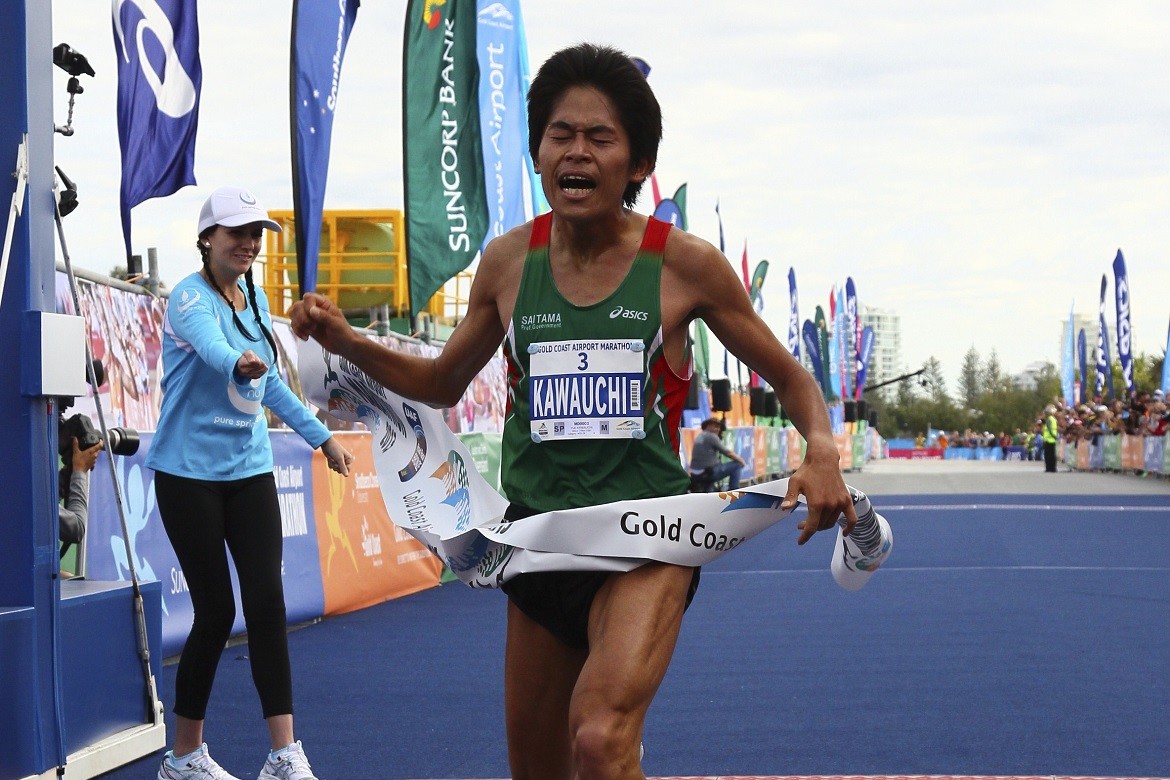
Gold Coast Marathon CEO Cameron Hart confirmed that both Mungara and Kawauchi have entered the prestigious IAFF Gold Label Road Race event to be held on Sunday 7 July.
“I’m thrilled to welcome both men back to the Gold Coast this year, and along with the rest of the elite field which will be announced shortly, these great runners will put the race record under threat and vindicate our position as Australia’s fastest marathon,” Mr Hart said.
“The duels between these two on the Gold Coast have created one of the great rivalries in sport in this country and based on recent form, we’re in for another mouth-watering battle.
“Our ability to attract first-class international elite runners is a testament to the standard of our event and our flat, fast course located in one of the world’s most popular holiday destinations.”
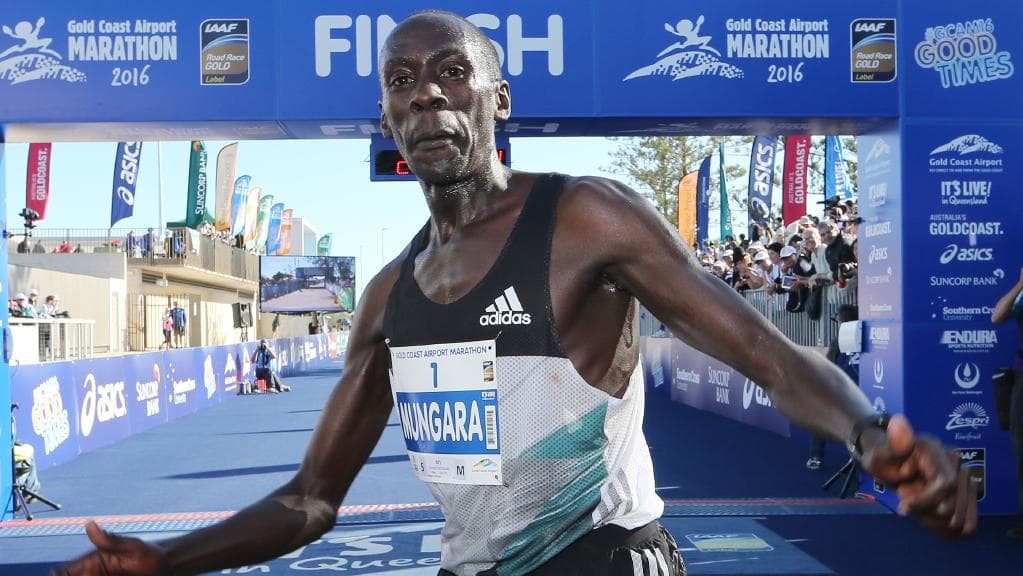
Kawauchi was previously known for shunning sponsorship in favour of continuing his full-time job in administration at a high school near Tokyo whilst running marathons outside of work hours, however he has recently accepted sponsorship deals, including with ASICS.
“This coming Gold Coast Marathon is my first marathon as a professional runner so I’m coming into it having plenty time to focus on my training,” Kawauchi said.
“I’m challenging myself to achieve my personal best and I’m confident I can place better than recent years. I am familiar with the course and I know how to manage my race at the Gold Coast Marathon.”
Login to leave a comment
Gold Coast Airport Marathon
The Gold Coast Airport Marathon is held annually in one of the most popular holiday destinations in the world. It is Australia’s premier road race and was the first marathon in the country to hold an International Association of Athletics Federations (IAAF) Road Race Gold Label. The event is held on the first weekend of July and attracts more than...
more...2018 Boston Marathon champion Yuki Kawauchi perhaps is Japan’s most famous marathon runner
During the past decade, Yuki Kawauchi has been perhaps Japan’s most famous marathon runner. He’s been known as the “Citizen Runner” or the “Civil Service Runner.”M
But he no longer carries these catchphrases when he runs.
Kawauchi became a professional runner on Monday, meaning he will be able to devote all his time to the sport.
While he has taken pride in his accomplishments as an amateur runner, Kawauchi is excited about the dawn of his new full-time athletic career. He believes that he can now commit himself 24/7 to the sport, which was not possible when he was a Saitama Prefectural Office employee working full time at Kasukabe High School.
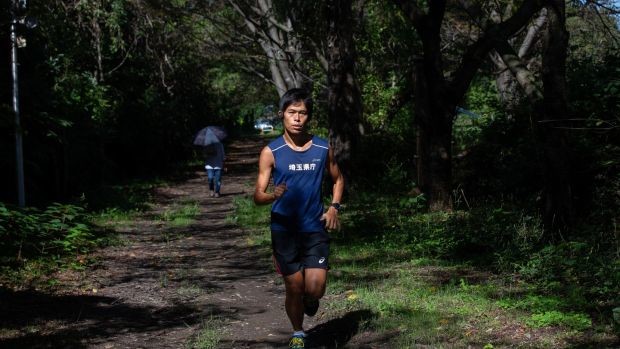
The 32-year-old said that he began thinking about turning pro in 2017, when he competed at the IAAF World Championships in London. It was his third appearance at worlds. He barely missed a top-eight finish, placing ninth.
While he regretted the result, the experience to stay in England for 10 days to prepare for the race opened up his eyes.
“I had never had a chance to be away from home for nine nights or for 10 days,” Kawauchi told The Japan Times after a Tokyo news conference to announce his advisory role for sporting apparel company Asics on Tuesday. “And spending nine nights, my condition went up as the time wore on.
“And then, I asked myself what kind of potential I would have if I spent a month, a year or two years.”
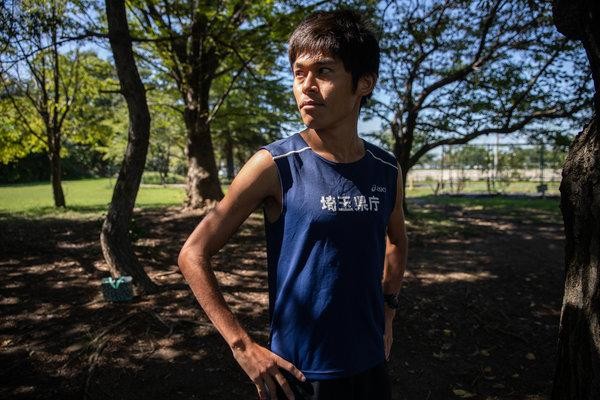
The idea of becoming a pro dwelled on Kawauchi’s mind later the same year at the Fukuoka International Marathon, where he participated along with his younger brother, Yoshiki. Kawauchi said that his brother, who had just turned pro after working for a private company for three years, impressed him by improving his personal-best time by five minutes.
“I had not come up with a new personal best for a long time either,” said Kawauchi, whose personal record is 2 hours, 8 minutes, 14 seconds at the 2013 Seoul International Marathon in 2013. “So I made up my mind to become a pro runner. I decided so by watching my brother’s performance.”
On Tuesday, Kawauchi was ecstatic while appearing before the media and talking about what he will do next. He said that now he would be able to do a lot of things he “had envisioned” he could do as a pro.
The Tokyo native, who grew up mostly in Saitama Prefecture, announced that he plans to hold a two-month training camp in Kushiro, Hokkaido, starting in June.
To make up for a lack of practice time as an amateur, Kawauchi competed in races nearly every weekend, treating them like training sessions. But he admitted that he was sacrificing his body, which could not fully recover before the next race. That said, he’s thrilled to now have proper time for medical care if needed.
Interestingly, Kawauchi, who has completed 92 full marathons in his career, insisted that he would have less pressure on his shoulders as a pro because he would essentially compete for himself.
by KAZ NAGATSUKA
Login to leave a comment
Boston Marathon
Among the nation’s oldest athletic clubs, the B.A.A. was established in 1887, and, in 1896, more than half of the U.S. Olympic Team at the first modern games was composed of B.A.A. club members. The Olympic Games provided the inspiration for the first Boston Marathon, which culminated the B.A.A. Games on April 19, 1897. John J. McDermott emerged from a...
more...Yuki Kawauchi has signed a three-year sponsorship deal with piano maker Yamaha Music Japan Company
Having left his goverment job at the end of the Japanese fiscal year in March to make a go of it as a professional runner, it was announced today that 2018 Boston Marathon winner Yuki Kawauchi, 32, has signed a three-year sponsorship deal with piano maker Yamaha Music Japan Co., Ltd.

“What I like about a Yamaha piano is that it’s all there in front of you in black and white, like life,” said Kawauchi, an avid pianist as a child before his parents made him pursue running.
“I hope that we’ll have a long and harmonious relationship, with just a hint of dissonance for depth.”
The endorsement deal includes the introduction of a “Make a Breakthrough” Kawauchi signature model acoustic grand piano, proceeds from the sales of which will go toward supporting Kawauchi’s training in the lead-up to the 2021 Eugene World Championships.
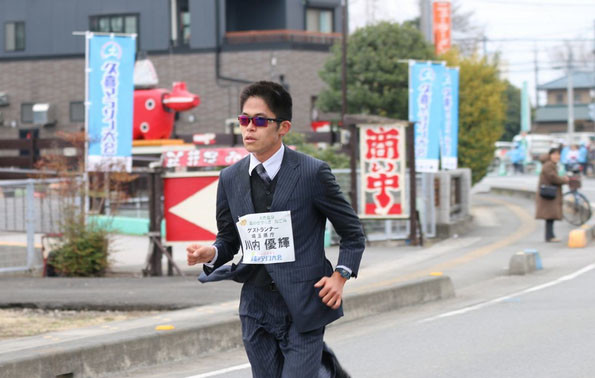
A delighted Yamaha president Naoji Suda told reporters, “Kawauchi’s values are well-tuned to ours, one of the keys to any successful relationship.
I can’t think of a better brand ambassador for our flagship line of acoustic grand pianos. He may not be the fastest pianist in the world, but nobody carries a tune, or a piano, quite like him.”
Login to leave a comment
Boston Marathon
Among the nation’s oldest athletic clubs, the B.A.A. was established in 1887, and, in 1896, more than half of the U.S. Olympic Team at the first modern games was composed of B.A.A. club members. The Olympic Games provided the inspiration for the first Boston Marathon, which culminated the B.A.A. Games on April 19, 1897. John J. McDermott emerged from a...
more...

